Forum to come up with lasting solution to the crisis, which if left unaddressed, would leave higher education on the verge of collapse.
Pain for parents as Govt raises school fees
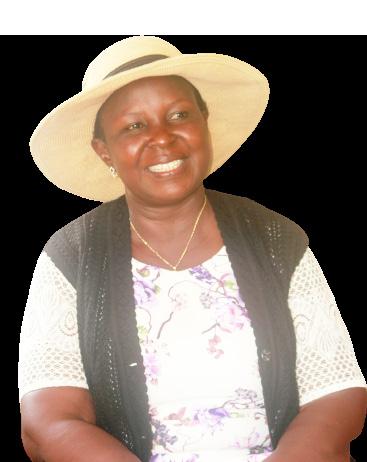


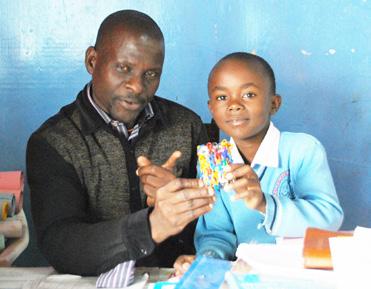

Parents with children in boarding schools will now be forced to dig deeper into their pockets to finance their children’s education as government issues new fee guidelines that has increased it by over Ksh 5,000, bringing an end to subsidised fees which started in 2021.

» Page 31
More Form Two boys than girls abandoning school, says KNEC

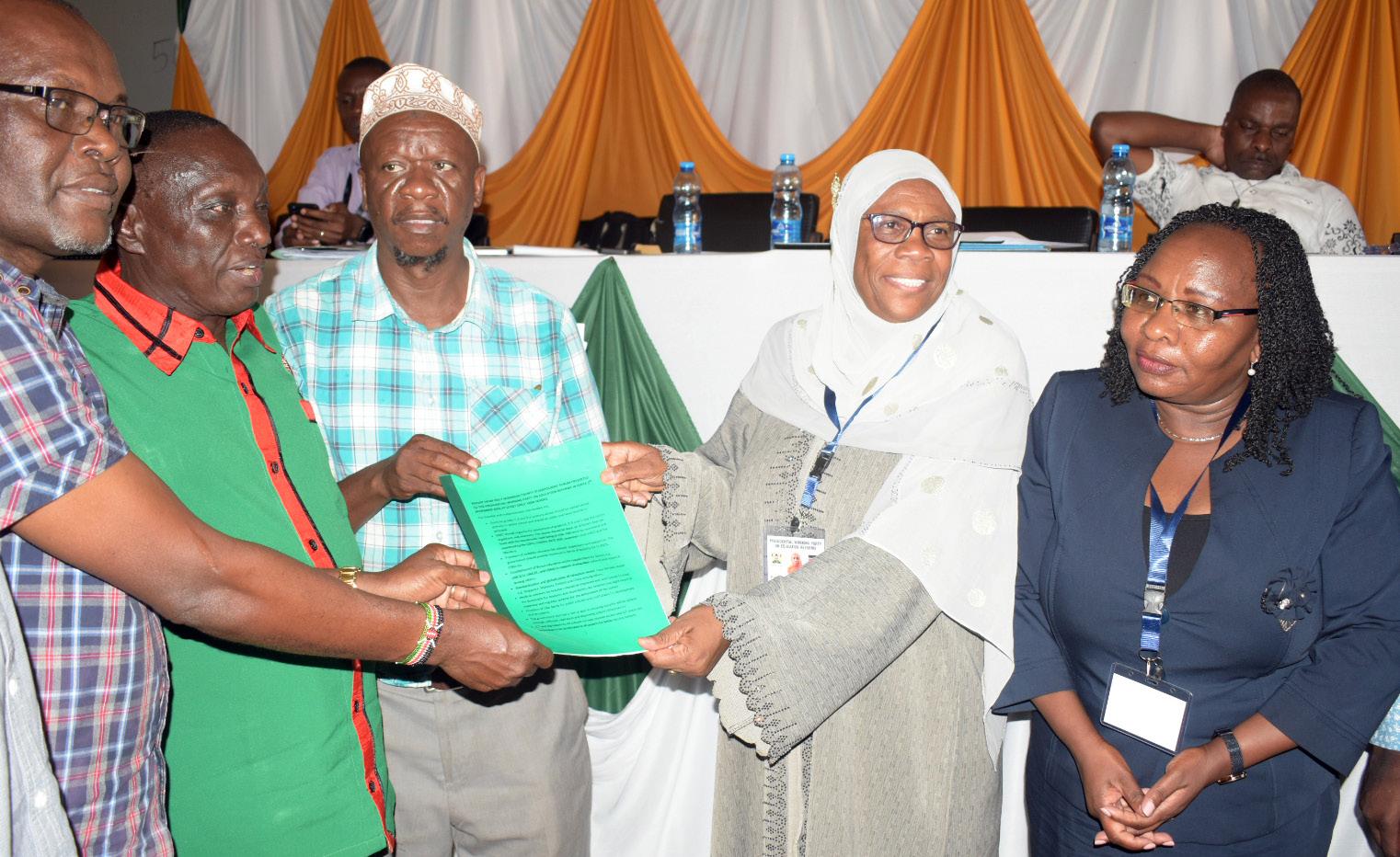
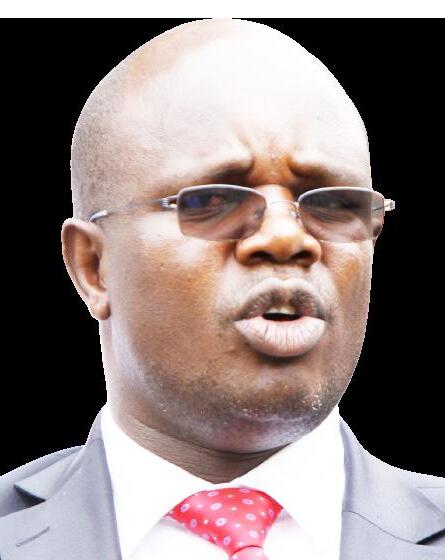
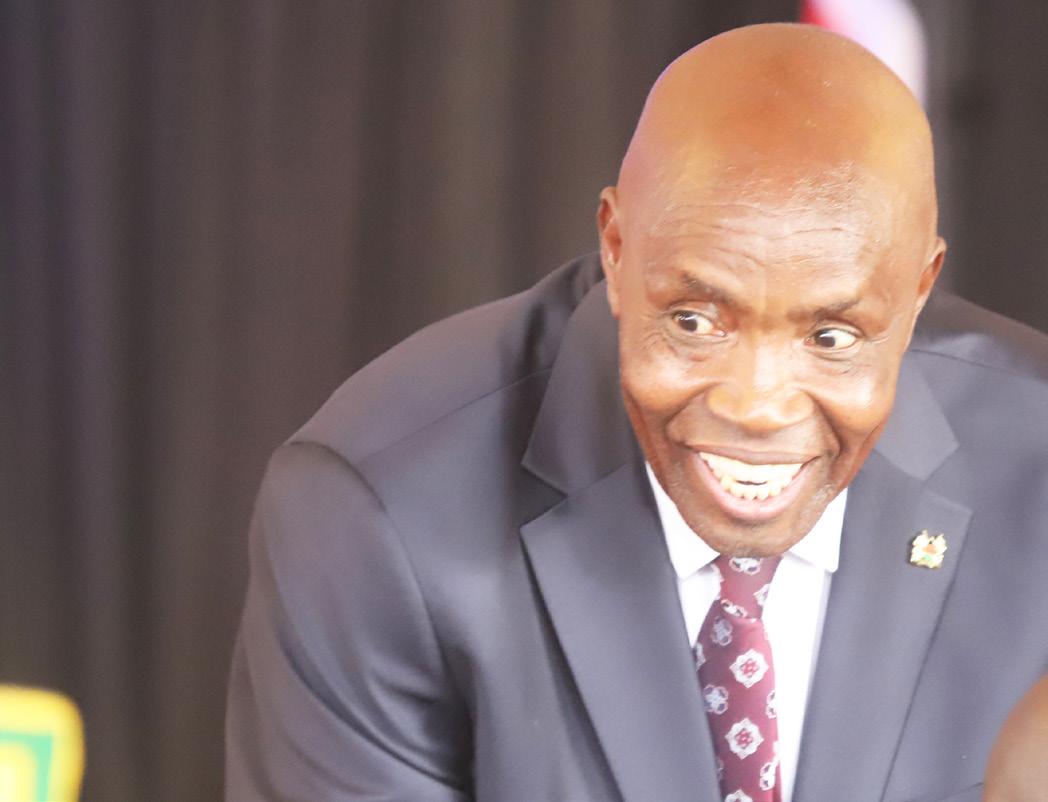

INSIDE:
TERTIARY INSTITUTI
BRIEFS
COAST | KILIFI
Malindi MP raises concern over education standards

 By Tsozungu Kombe
By Tsozungu Kombe
All education stakeholders in Malindi, Kilifi County have been urged to work as a team to improve both academic standards and national examinations performance in the sub-county.
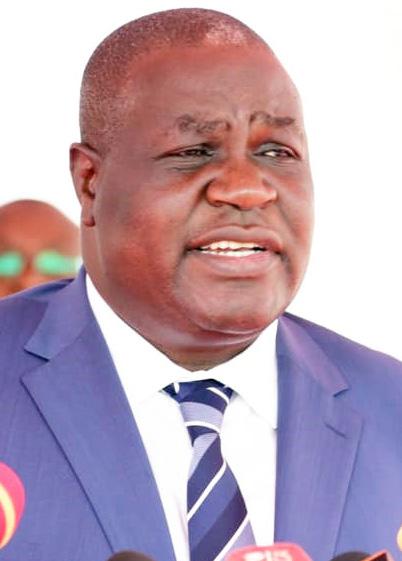
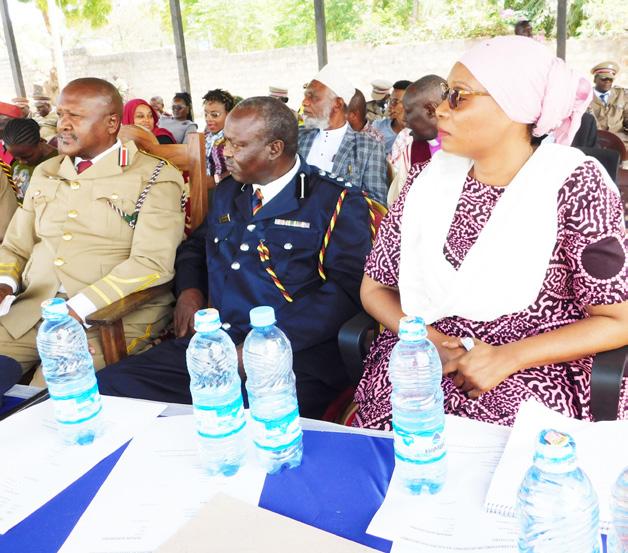
Malindi MP Amina Munyazi attributed low education levels in the area to early pregnancies and marriages among school girls.
She asked education stakeholders in the sub-county to prioritise education and promised to work with teachers to promote education in the area.
“Although the sub-county performed well in 2021 Kenya Certificate of Primary Education (KCPE) and Kenya Certificate of Secondary Education (KCSE) there is still more room for improvement in this year’s KCPE and KCSE respectively,” Munyazi said.
She decried the high dropout rate
By Education News reporterParents with children in boarding schools will now be forced to dig deeper into their pockets to finance their children’s education as government issues new fee guidelines that has increased it by over Ksh 5,000, bringing an end to subsidised fees which started in 2021.
This was revealed in the Ministry of Education’s (MoE) circular on the implementation of Free Day Secondary Education (FDSE) for the year 2023 dated November 15, 2022 signed by the outgoing basic education Principal Secretary (PS) Dr. Julius Jwan.
This is after the school calendar reverted to the normal 39 weeks from the 30 necessitated by the Covid-19 disruptions of 2020 when learning was put off for close to a year.
In the new guidelines, national and extra county schools in Nairobi, Mombasa, Nakuru, Kisumu, Nyeri, Thika and Eldoret, which form Category ‘A’ of boarding schools, will from January 2023 charge Ksh53,554 per year, up from Ksh45,000 which they have been paying since the 2021 school calendar.
Those in boarding and extra county schools located outside the listed major urban centres to form Category ‘B’ will now pay Ksh40,535 per year from the current Ksh35,000.
However, the government will continue providing a subsidy for each learner in a boarding school that is equal to the subsidy for each learner in a day school, which is Ksh22,244.
This will include tuition (teaching, learning materials and exams), which has been allocated Ksh4,144, medical and insurance (Ksh2,000), activity (Ksh1,500), and Strengthening of Mathematics and Science in Secondary Education’s (SMASSE) Ksh200.
Other vote heads, including local travel and transport, administrative costs, electricity, water and conservancy, and personnel emolument
is allocated a total of Ksh9,400, as maintenance and improvement gets Ksh5,000.
Break down
Parents with their children in all national and extra county schools located in the said urban centres will in January 2023 pay a boarding equipment and stores fee of Ksh30,385 up from Ksh24,935, which they have been paying for the last two years since 2021. They will also pay a total of Ksh20,371 as other vote-heads, up from Ksh17,267 annually.
Those with children in boarding and extra county schools outside these urban centres will pay Ksh25,385 for boarding equipment and stores, up from Ksh20,830. Other vote-heads will be Ksh12,900 up from Ksh11,670 per year.
For Special Needs Schools (SNEs), the government will provide an enhanced capitation of Ksh57,974 per learner.
The total government subsidy in boarding SNEs per learner annually will include: tuition (Ksh4,144), boarding equipment and stores (Ksh23,220), maintenance and improvement (Ksh5,000), other vote heads (Ksh9,400) activity fees (Ksh1,500), medical and insurance (Ksh2,000), top-up grant (Ksh 12,510), and SMASSE (Ksh 200).
The top-up grant per learner is normally used to procure assistive devices and any additional personnel needed.
In order to meet the cost of boarding as well as maintenance and im-
among school girls in the area, noting that the rate has equally been contributed by early pregnancies and early marriages.
The legislator further asked education stakeholders to ensure that all school girls who dropped out of school go back to continue with their education.
She said that the move would equally enhance education levels in the sub-county.

At the same time, Munyazi urged parents to take all their children to school, adding: “Those parents who will refuse to take their children to school will immediately be arrested and charged.”
She noted that the county’s rapid development depended on educated people who will be charged with the sole responsibility of designing, planning and implementing community development projects.
By Roy HezronKenya National Qualifications Authority (KNQA) has urged Kenyans with skills and competencies acquired through informal learning to seek certification through the Recognition of Prior Learning (RPL) programme to improve their employability and mobility.
Director General Juma Mukhwana, recently nominated Principal Secretary Ministry of Trade and Industry, said through the certification, beneficiaries are able to secure jobs within their respective disciplines and at the same time benefit from government tenders.
He said the programme had generated a lot of interest across the country, adding that through partnership with a number of Technical and Vocational Education Training (TVET) institutions,
more Kenyans were set to be certified.

“In July we conferred the first recognition of prior learning certificates to 62 graduates training with base titanium in Kwale County. By the end of this year
provement, parents in these schools will pay boarding fees of Ksh12,790 annually, up from the Ksh10,860 they have been paying since 2021.
The enrollment data to be used for provision of the government subsidy will be obtained from National Education Management Information System (NEMIS) on diverse dates from December 15, 2022, March 31, 2023, to June 30, 2023.
2023 school calendar
The normal January-December school calendar is expected to resume from January 2023 after it was disrupted by Covid-19 in March 2020.
we expect to issue certificates to over 500 Kenyans,” Mukhwana disclosed.


Speaking in Kisumu during a workshop for RPL assessors from Nyanza region, he said through the programme, plumbers, tailors, mechanics and jua kali artisans among others are set to receive internationally recognised certificates to facilitate their mobility and career progression.
This, he added, is a departure from the past where workers in the sector which constitutes 80 per cent of the country’s workforce, were looked down upon.
“A mason, for example, would carry a photo album to show potential clients some of the projects he has undertaken. This certification now puts them at par with their counterparts who went through formal training,” said Mukhwana. He added: “They can even travel
In the ministry’s circular dated November 7, 2022, all pre-primary, primary and secondary schools will open on January 23, 2023 for their 13-week term, to run up to April 21, 2023.
There will be a half-term break between March 23, 2023 and March 26, 2023.
Second term will kick off on May 8, 2023 to run up to August 11, 2023 with a three-day half-term break starting from June 29, 2023 to July 2, 2023, before proceeding for another two-week holiday from August 12, 2023 to August 27, 2023.
Schools will then open for the 10 weeks of third term between August 28, 2023 and November 3, 2023 to pave way for the four-day 2023 Kenya Certificate of Primary Education (KCPE) exams from November 6, 2023 to November 9, 2023, and the 3-week Kenya Certificate of Secondary Education (KCSE) exams from November 10, 2023 to December 1, 2023.
According to Competency-Based Curriculum (CBC) Taskforce data of 2020, there are a total of 9,077 public secondary schools in the country, which comprise of 112 national schools (52 boys, 55 girls and 5 mixed), and 776 extra county schools (361 boys, 349 girls and 66 mixed).
There are also 1,378 county schools (353 boys, 516 girls and 509 mixed) and 6,776 sub-county schools (167 boys, 312 girls and 6,297 mixed).
(hezzroy@educationnews.co.ke)

outside the country and use the certificates to get decent employment.”
Stanley Maindi, KNQA Director of Technical Services, said the agency has partnered with the Kenya National Federation of Jua Kali Associations to ensure that the talent in the sector is tapped and certified.
The assessment, he said, was being done in local languages for those who do not speak English to ensure that as many skilled Kenyans as possible benefit from the programme.
A total of 62 graduates were conferred with certificates in base titanium on July 7, 2022 in Kwale County by National Industrial Training Authority (NITA). The graduands were the first to be awarded under the RPL policy.
KNUT, KUPPET differ on composition of CBC review team
Akelo Misori cried foul, saying they were left out despite being relevant stakeholders.Malindi Deputy County Commissioner Thuo Ngugi and Malindi MP Amina Mnyazi. Photo
KENYA NATIONAL UNION OF TEACHERS

Wishing 2022 candidates best of luck
Dear Grade 6, Standard 8 and Form 4 candidates, exams are conducted to self –assess and gauge your talent and abilities. This calls for greater confidence that will bring success in the long term. From KNUT Secretary General, the members of the National Executive Council and KNUT staff from all over the country, we wish you all the best of luck in your forthcoming Kenya Primary School Education Assessment (KPSEA) for Grade 6, who are our pioneer CompetencyBased Curriculum (CBC) candidates, KCPE and KCSE for STD 8 and Form 4 respectively.
May God grant you focus during the exams.
Collins Henry Oyuu, Secretary General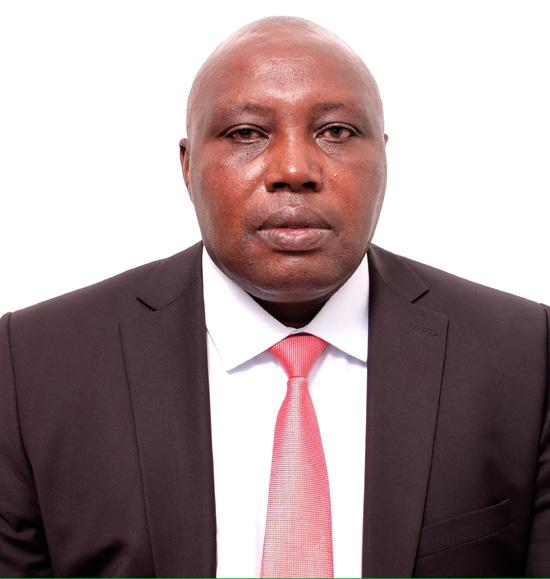
Our Core Values
Our Vision
To become the most effective and self-reliant teacher Union in the world
Mission
To unite teachers of all grades for quality service, socio-economic improvement and professional advancement and strengthen their bargaining power, and promote quality education.
•Integrity: We are committed to honesty, accountability and transparency in all our undertakings.


•Equity: We are committed to gender equity, social justice and unity of teachers of all grades and qualifications
•Teamwork: We embrace teamwork and are committed to participatory decision making.
•Continuous Improvement: We are committed to the continuous improvement of the terms and conditions of service for all teachers.
•Professional interest: We shall endeavour to promote the educational development of the teaching profession.
•Efficiency: we strive to achieve the highest value of benefits for all our members.
•Courage and Bravery: we shall tirelessly and bravely continue to fight for the rights of our members.
Core functions
•To bring together and unite teachers of all grades and qualifications in Kenya and provide a forum for cooperation.
•To fight for improved terms and conditions of service for teachers and protecting teachers’ interests.
•Promoting programmes aimed at improving teachers’ welfare or socio-economic status.
•To offer assistance to individual members in professional as well as legal matters.

•To settle disputes between members of the Union or between its members and their employers through collective and constitutional means.
•To co-operate with other societies, bodies, Unions or organisations within or outside Kenya with similar objectives.
•To promote matters leading to the improvement of education and the establishment of a common system of education.
•To secure effective representation of the teaching profession on the government, public and private bodies or organisations where such representation may be necessary.
Stakeholders blame parents for low discipline levels among learners
By Kiplat KaptuyaFaith Based Organizations (FBOs) in West Pokot County have blamed parents from the region of failing to mould their children, leading to moral decadence and indiscipline among learners.
The FBOs urged parents to stop leaving the responsibility of moulding children to teachers but to diligently execute their roles as caretakers and mentors to children.
West Pokot National Council of Churches of Kenya (NCCK) Chair Rev Moses Long’iro of the Anglican Church of Kenya (ACK) urged parents to seriously note that proper parenting calls for concerted efforts from both parents and teachers.
“Most parents do not care about shaping the character and lives of their children during school holidays. This

makes the work of teachers cumbersome when students return to school after recess,” he argued.
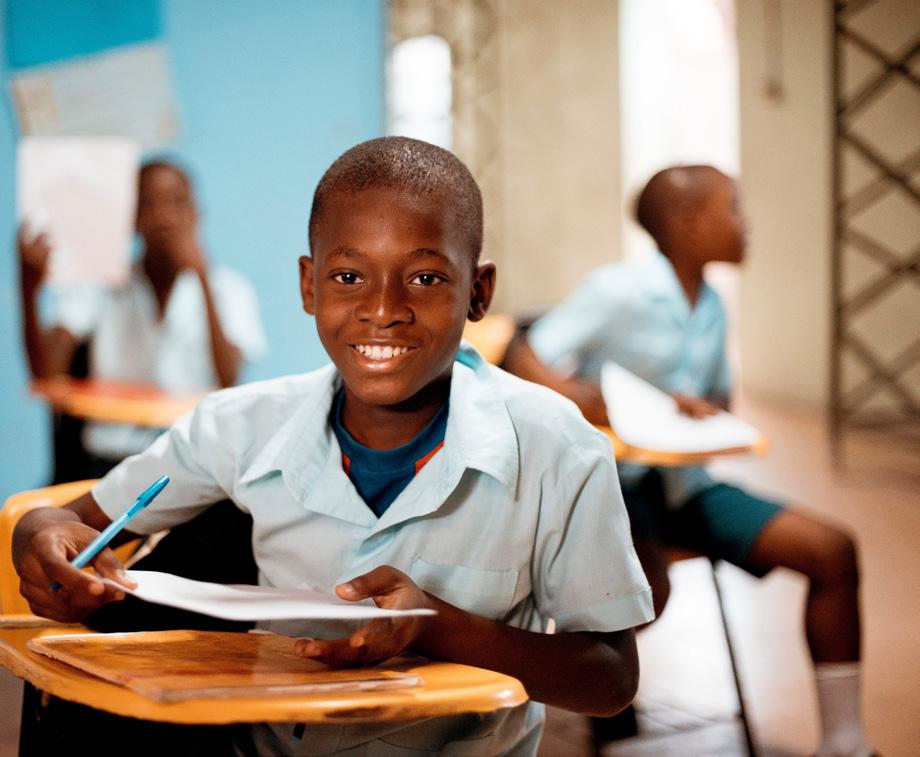
He suggested that religious education studies should be made compulsory across the board for the sake of improving the moral standards of the nation.
“Religious education should be made a compulsory subject at all levels of education so as to help address cases of immorality and violent extremism, especially among our youth,” explained Rev Long’iro.
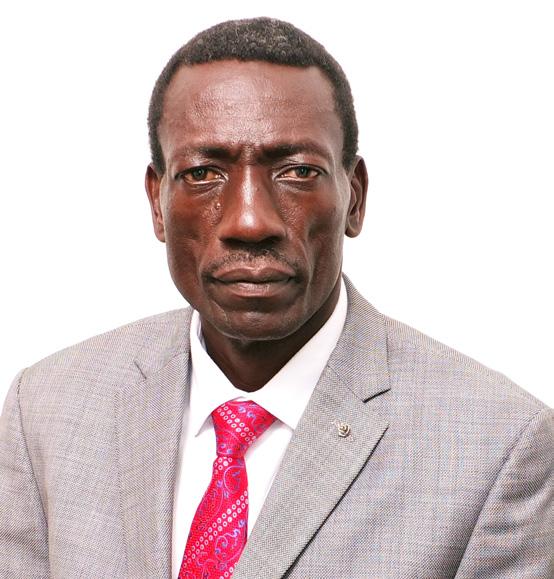
The Rev expressed concern that low media content quality easily accessible to children, through various social media platforms was partly to blame for derailing the essence of education.
“Poor parenting including uncontrolled viewing of television programmes and online content through
mobile phones which expose students to violent behavior makes it difficult for teachers to manage them,” said Rev Long’iro.
Catholic Diocese of Kitale Education Secretary Delphine Wachiye suggested that strict measures should
be instituted against those who make school girls pregnant, explaining that such learners undergo untold stigma.
“Schools, with the help of the Ministry of Health and consultation with parents, should be allowed to perform pregnancy tests on learners before schools close. Pregnant learners should be allowed to go on leave to avoid the ensuing stigma,” stated Ms Wachiye.
The Diocesan Education Secretary called on the relevant education stakeholders to look into the issue of drugs and substance abuse as well as cultism in learning institutions.
She strongly opposed the idea of Grade 6 learners joining Junior Secondary Schools (JSS) with their counterparts in standard 8, arguing that the arrangement will escalate the cases of homo sexuality, stealing, defilements and absenteeism in schools.
West Pokot Pastors Network Chairperson Ronald Chumum called on parents to guide their children accordingly and asked the community to support parents in doing so.
West Pokot County Education Director Francis Shikanda blamed parents for giving excess freedom to their children while at home, adding that most parents think their duty ends at paying fees for their kids.
Some of the parents blamed themselves for failing to be good role models to their children.
Mr Ashiono Wendo, 40, accused some parents of being too lenient on their children, adding that we’re living in an era where parents are reluctant to instill discipline and good morals in their children.
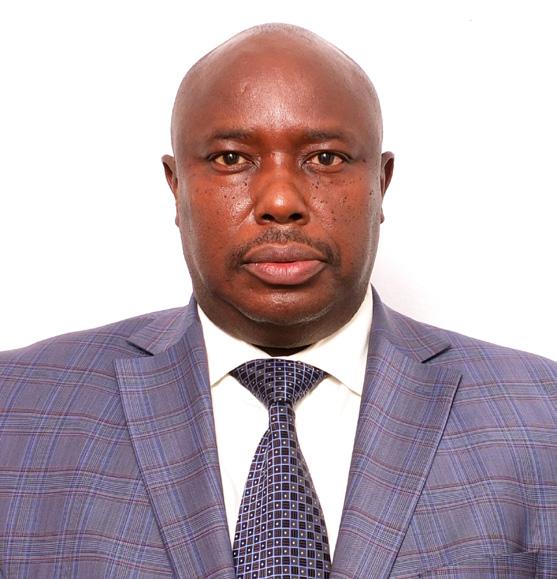
Most parents leave the responsibility of moulding children to teachers yet they should diligently execute their roles as caretakers and mentors to children.
KNUT appeals to county govt to complete girls rescue centre
 By Enock Okong'o
By Enock Okong'o
The Kisii County Government has been asked to hasten the completion and furnishing of a girls rescue centre that has stalled for long to enable the commencement of operations.
Speaking to the public at Kisii town, Kenya National Union of Teachers (KNUT) Executive Secretary for Gucha Lucy Machuki said the girl child undergoes immense trouble meted against them by people trusted to bring them up.
“We are so much affected when we see our children traumatized by adults who still enjoy their freedom after committing atrocities against our girls," she said.
She narrated how she got to know a Standard 8 girl at Nyamonema SDA Primary School who was reportedly impregnated by a bodaboda rider. He later left her to fend for herself, her child and siblings.
She appealed to the area chief to seek justice for the minor and other well-wishers to assist her continue with her education.
"I appeal to all including our good area MP Innocent Obiri to intervene and alleviate this suffering by bringing the culprit to book,” she appealed.
RIFT VALLEY | TURKANA62 Turkana schools get relief food from Salvation Army Church
By Our ReporterThe Salvation Army Church in Kenya is fully focused on helping fight the continued drought by providing water and food to affected residents in Turkana, Kenya West Territorial Commissioner Margaret Siamoya has revealed.
Speaking at Jogoo Primary School in Kisii county during their annual thanks giving ceremony, Commissioner Siamoya, who was accompanied by the church's Chief Secretary Lieutenant Daniel Imbiakha, said that the church has so far donated relief food to 62 schools in Turkana.
By Emmanuel GwakoiWhen Lucy Bwari Machuki Machuki completed her A-level late 1980s, she never imagined one day she would be among the first woman elected Kenya National Union of Teachers (KNUT) Branch Executive Secretaries.
Like other village girls growing up in rural areas, she surmounted the many hurdles on her way through hard work and determination.
Brought up at Masige East location in Bobasi Constituency in Kisii County, she attended Kiobegi Primary School from class one to seven.
She proceeded to Gionseri Mixed Secondary School for O-level (Form Four) and Sironga Girls for Advanced level ( A-level).
The first born in a family of eight, five boys and three girls, Lucy trekked daily to Gionseri Secondary School for preps and returned in the evenings to do household chores.
“My father, Samuel Getoi, was a teacher who ensured that we worked on our farm and did other menial work. It really shaped our lives,” Machuki told Education News.
She used to cook for her siblings, take cows to the river and tended to her kitchen garden, and juggling her education and household chores was challenging.
Machuki was employed at a local school as an untrained teacher till 1995 when she joined Asumbi Teachers Training College (TTC) where she trained as P1 teacher.
“When I graduated in 2000, I taught in various primary schools before I was appointed Gucha KNUT branch Woman Representative in 2006,” adding, that she was also appointed a delegate to the Gusii Mwalimu Savings and Credit Co-operative Society to represent Nyachenge/ Omosaria area.
She lost the seat to Esther Nyabayo in 2011, vied for the Branch Executive Secretary in 2016 and floored Samwel Nyairo, James Mogire, Isaiah Nyarango and Isaiah Nyariki. Nyairo was defending the seat.
“The competition was stiff. I never believed that I would defeat my competitors who had invested more resources in the campaign than I did,” Machuki explained, attributing her victory to her record as a Woman Representative.
Lucy Machuki: How I became KNUT branch boss despite huge odds
A trained Counselor, she used to guide and counsel stressed residents and also embraced vegetable farming and small businesses which helped her to survive.
She fought for the rights of teachers, supported teachers affected by alcoholism to recover and ensured that they resumed their work, adding that she campaigned for female teachers to be promoted to be deputies and school heads.
“In 2016, the branch had four female school heads and now we have more than 20 and I am proud of that,” Machuki stated.
Inspired with an urge to fight for the teacher, she joined politics and contested for Kisii County Woman Representative through Democratic Party (DP) and lost to Wiper Democratic Party of Kenya’s Dorice Aburi.
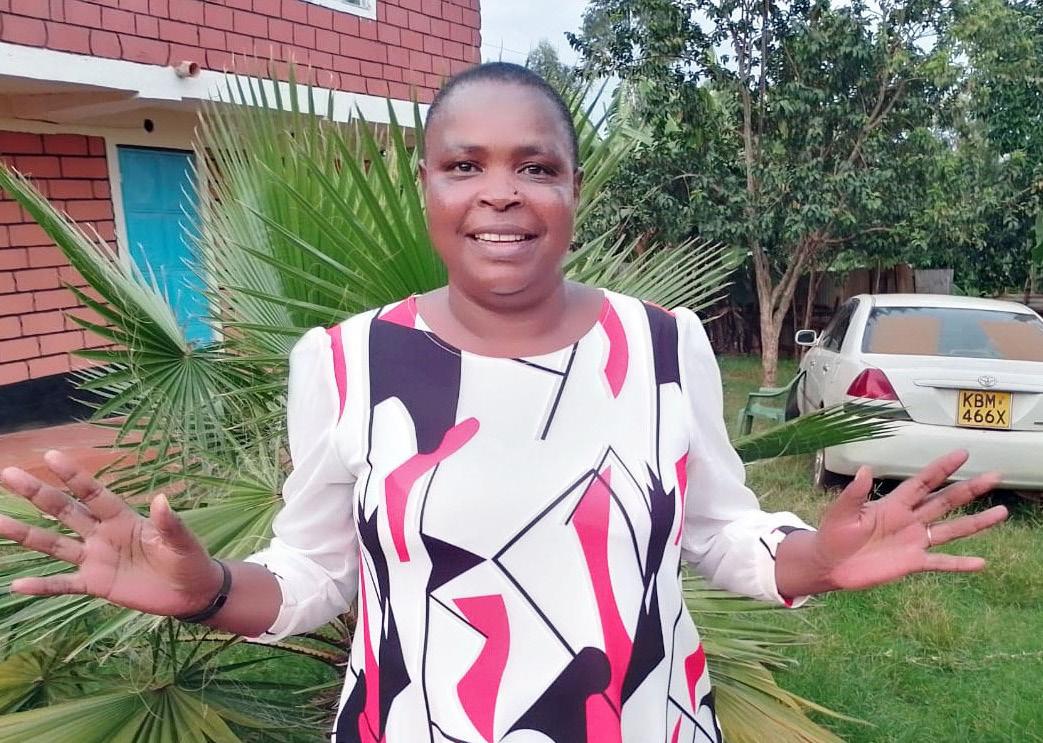
be cheated and realize it after they have invested a lot of money in the campaigns and only to be declared losers.
“I have not given up. When the right time comes, I will also make up my mind. I am still ambitious and pray God to guide me” Machuki said at her home.
To boost her income, she has a borehole and has planted bananas, vegetables which she consumes and sells the surplus to neighbours. She also has rental houses.
Machuki’s worst experience is when her chauffer rolled her car during campaigns.
The church distributed food like maize, beans, rice and sugar. It also distributed cooking oil and water worth Ksh 8 million.
The church, which was established in the area in 1938 by businessman Samwel Openda, has built schools in Jogoo, Ndonyo and Otendo in Kisii county, Kiabuya in Homa Bay county and Gesweswe and Kenguso in Nyamira county.
Siamoya regretted that children and helpless mothers are languishing in poverty hence the church’s efforts to ensure they save as many lives as possible.
“We aren’t partisan in assisting the needy in the society. Our priority is where there is too much hunger and suffering,” she explained.
She added that there are many community care ministries at Corps and divisional levels who are always ready to assist the needy and vulnerable in the society.
Widowed 25 years ago, she never listened to the propaganda peddled by her rivals. Instead, she stressed on her campaigns and emerged victorious.
Her victory was dogged by accusations that she had embezzled the union’s funds. She was suspended for two years and sued at the Labour Relations Court.
She won the case in 2018 and resumed her work.
“I never misused the money and was reinstated in 2021, vied again and won. God favoured me because I worked well for teachers,” Machuki said.
To add another feather to her cup, she was appointed the union’s National Executive Council (NEC)
member in June 2021 and attributes this to the confidence teachers have in her.
A mother of one son and three daughters, Machuki is among the first woman to be elected Knut Executive Committee member in Kenya, inspiring Salome Olambo and Eunice Bosco who were elected Suba and Rongo Knut Executive Secretaries respectively.
Her lowest moment was when she went for two years without earning a salary, adding she almost died due to depression but managed to overcome it.
“I suffered for two and half years until 2021 when Collins Oyuu was elected KNUT Secretary General,” Machuki said.
She wanted to join Wilson Sossion, then a nominated Lawmaker as a Member of Parliament and be appointed to the Education Committee to fight for the plight of teachers, especially on remuneration and working environment.
“I wanted to be an MP to also make laws and formulate policies to protect orphans, street children, widows and fight against gender-based violence (GBV) which is rampant in our Gusii community” said Machuki Men, she notes, are also victims of GBV, stressing that they mostly suffer silently and end up dying by suicide unlike women who share their problems, get support to overcome them.
As a politician, she has learnt that not all those who claim to be supporters are genuine, adding that in politics, candidates are bound to
“Luckily we were not hurt. My prayers protected me,” She appeals to the girls to have a vision to be focused and work hard, noting that they are capable like the boy child and can excel with determination.
Machuki also challenges the girl child to embrace self-discipline and shun immoral activities and drug abuse which can only derail her education and life.
The Knut Executive Secretary appeals to parents to give the boy and the girl child equal opportunities to access and complete their education, saying: “If you educate a girl, you educate the community, if you educate a boy, you educate an individual.”
She says the girl child has many needs unlike the boy child and appeals to parents and guardians to support them the girl child so that she can be settled and be focused on her education to excel.
When Machuki is free, she enjoys watching drama, taking part in politics and fighting for the rights of the girl child.
Widowed 25 years ago, she never listened to the propaganda peddled by her rivals. Instead, she stressed on her campaigns and emerged victorious.By Roy Hezron
The National Parent Association (NPA) now wants the teachers employer Teachers Service Commission (TSC) to be placed under the direct supervision of the Ministry of Education (MoE).
The association, under the leadership of National Chairman David Silas Obuhatsa, argues that for the last 10 years there has been a lot of conflict of power between the MoE and the TSC, which has further percolated to field officers of both organizations.
In their proposals to their Presidential Working Party on Education
Parents want TSC to be controlled by education ministry
The association suggests that the TSC Act and the Constitution should be amended to transfer the powers granted to TSC as an independent commission back to the MoE for uniformity of orders and effective administration of the education sector
Reforms (PWPER), the association suggests that the TSC Act and the Constitution should be amended to transfer the powers granted to TSC as an independent commission back to the MoE for uniformity of orders and effective administration of the education sector.
“We are proposing that Article 237 of the Constitution be amended to remove the independence of TSC and be placed under the supervision of the Ministry of Education,” reads the NPA proposal in part.
At one point in 2020, the immediate former Education Cabinet Secretary Prof George Magoha, while appearing before the National Assembly’s Education Committee, told MPs he did not have control over teachers hence and asked them to re-look into the law that does not empower his office to be in charge.
It emerged that the lack of powers to hold head teachers to account for financial impropriety does not rest easy with top officials in the MoE.
Best Wishes
After the promulgation of the 2010 Constitution, TSC became an independent commission with sole powers to manage all trained teachers in the country.
The association now proposes that the functions of the quality assurance on curriculum delivery should be exercised by the Ministry of Education (MoE) in order to avoid duplication of functions.
Further, the association suggests that a national council of policy formulation and implementation, which the NPA should be a member, should be created in the Basic Education Act in order to streamline and harmonize various educational policies that are issued by different organizations.
Where rivalry started
The rivalry between MOE and TSC started in 2012 when the then TSC Secretary and Chief Executive Officer (CEO) Gabriel Lengoiboni revoked the MoE’s powers that enabled the then Provincial Directors of Education (PDEs) and District Education Officers (DEOs), who were then under the ministry, to manage teachers.
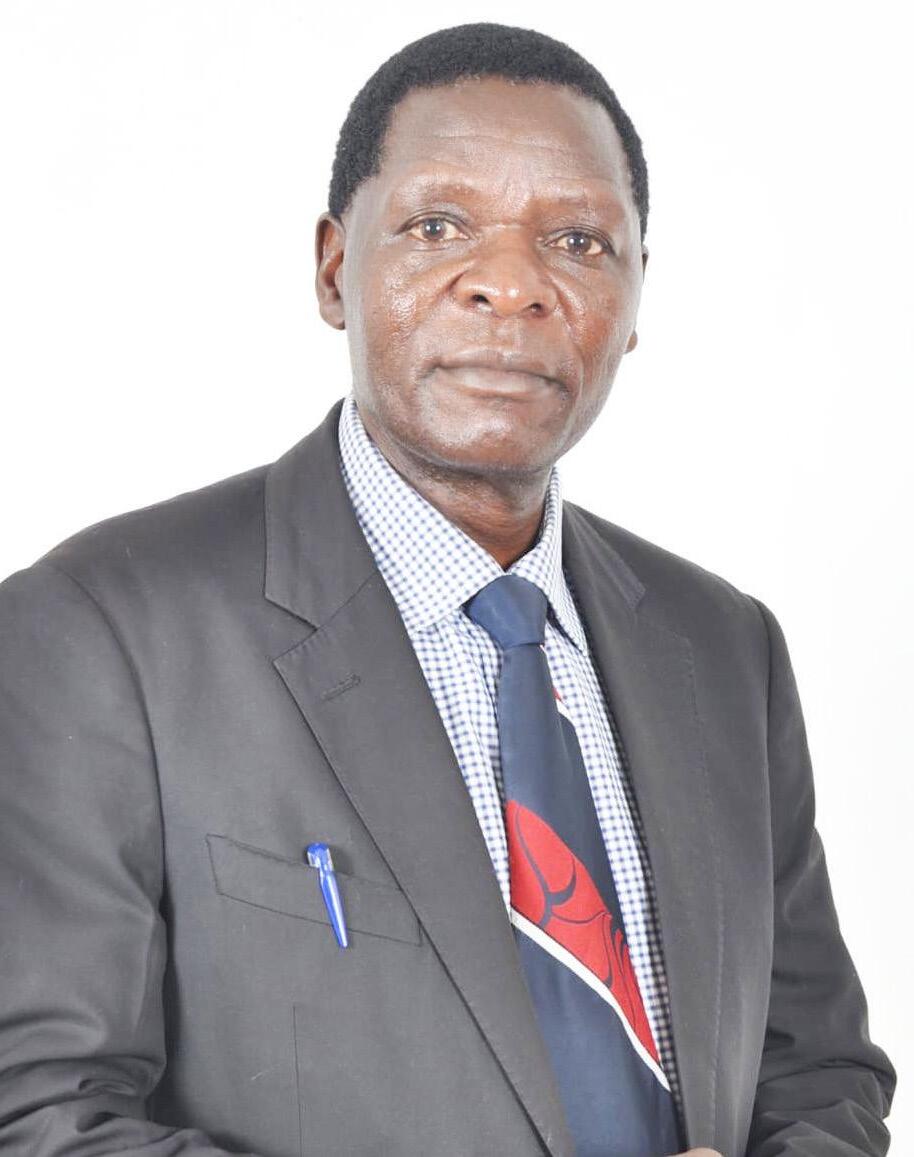
The TSC revoked the MoE in regard to the teacher management functions as per the TSC Act (Cap 212) and legal Notice No.95 of 171, which
Who is Obuhatsa, the new parents association boss?
Born in Es'songo'lo village in Luanda sub-county, Vihiga county, David Obuhatsa has worked as a teacher in Mumias Sugar Complex and Central schools in Western Kenya.
“These are some of the well-known schools that used to top in National exams and have produced great men and Women in Kenya,” he says.
meant that TSC had stripped all the PDEs and DEOs of their powers to manage teachers’ affairs in a radical move to entrench itself as a constitutional commission.
The TSC then created County Directors of Education (CDE) structures that effectively replaced the old order, rendering the once powerful ministry staff irrelevant.
And even as the ministry also established its own county structures in line with Constitutional provisions, the bad blood between TSC and ministry kicked in.
Charging of illegal fees

The proposals decry overcharging parents and attaching unexplained levies on them.

“The Constitution of Kenya, Article 53, declares free basic education. The same was operationalized by the Basic Education Act, 2013, but despite coming up with very clear declarations, majority of our schools have continued to overcharge and slap extra levies on parents,” said the association.


It also proposes that the Basic Education Act be amended to make it a criminal offence for any person to turn away children for more than 14 days, and further be amended to criminalize forced repetition of classes.
He has also taught at Laiser Hill International School, Arap Moi and Ongata Rongai schools in Kajiado, the Green Garden, Garden Estate and Wankan Academies in Kiambu County in addition to being untrained teacher at Es'songo'lo Secondary School in his own village.
After losing Wemilabi Ward County Assembly seat in the August 9 General Elections, Obuhatsa was elected National Parents Association (NPA) chairman to lead over 15 million parents in basic learning institutions, replacing the longtime Chair Nicholas Maiyo.
Obuhatsa told Education News in a recent interview that he never gives up in life whenever he decides to go for something, a virtue that has seen him achieve a lot in life.
He is a father of three, with two boys already graduates. His last born is currently sitting her Grade 6 Kenya Primary School Education Assessment (KPSEA) at St. Mary's school Nairobi. Obuhatsa comes from a family of scholars.
“I am the son to the late Rev. Jairus Otanga Obuhatsa and Veronica Ambasa. I’m the brother to Prof. Joshua Obuhatsa, Dr. Reanah Otanga, Dr. Bishop Joseph Otanga and Rosemary Wangwe,” he says.
He holds a Master’s Degree in Curriculum Design and is currently pursuing his PhD at the University of Nairobi in the same area of study.
An alumnus of Mang’u High School, St Paul's University and University of Nairobi (UoN), Obuhatsa has served in various non-governmental organisations (NGOs) in different capacities.
your hard work set you on the path of professionalism.
Dr. Nicholas K. Letting’, Ph.D, EBS
Secretary / Chief Executive Officer
The Board, management, staff and the entire kasneb fraternity wishes the 2022 KCPE & KCSE candidates all the best in the national examinations.David Obuhatsa, Chairman, Kenya National Parents Association
Govt loan boost for teachers going for higher education
By Our ReporterTeachers have received a major boost after the Government introduced a special fund to help them further their studies in different disciplines rather than education-related courses.
The Government, through the Ministry of Public Service and Gender (MPSG), established Training Revolving Fund (TRF) to be administered by the Higher Education Loans Board (HELB).
Funding will be given out in the form of a loan specifically to public servants applicants including teachers and persons involved in public teaching service.
Interested applicants can borrow funds for professional self- development in any of the 84 critical listed courses.
In a Circular seen by Education News, Nancy Njeri Macharia, Teachers Service Commission (TSC) Secretary and Chief Executive Officer confirmed that the MPSG has signed a Memorandum of Un ernment.
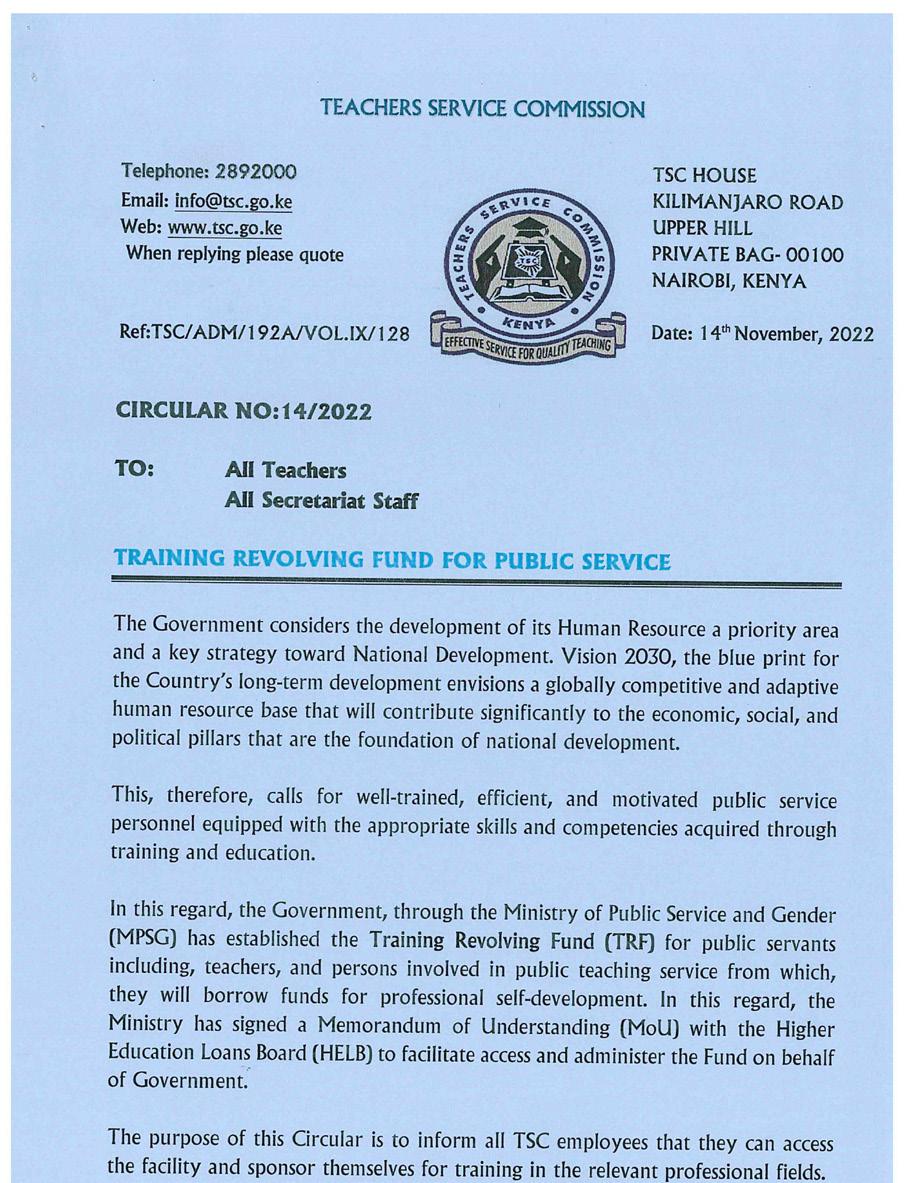
All secretariat staff from TSC will also benefit from the arrangement to advance their studies, according to the circular dated November 14, 2022.
“The purpose of this circular is to inform all TSC employees that they can access the facility and sponsor themselves for training in the relevant professional fields,” said Macharia.
This marks a shift from the current arrangement whereby teachers are forced to go for study loans from banks, savings and credit cooperative societies (Saccos) and other microfinance institutions through their T-Pay system at high interest rates.
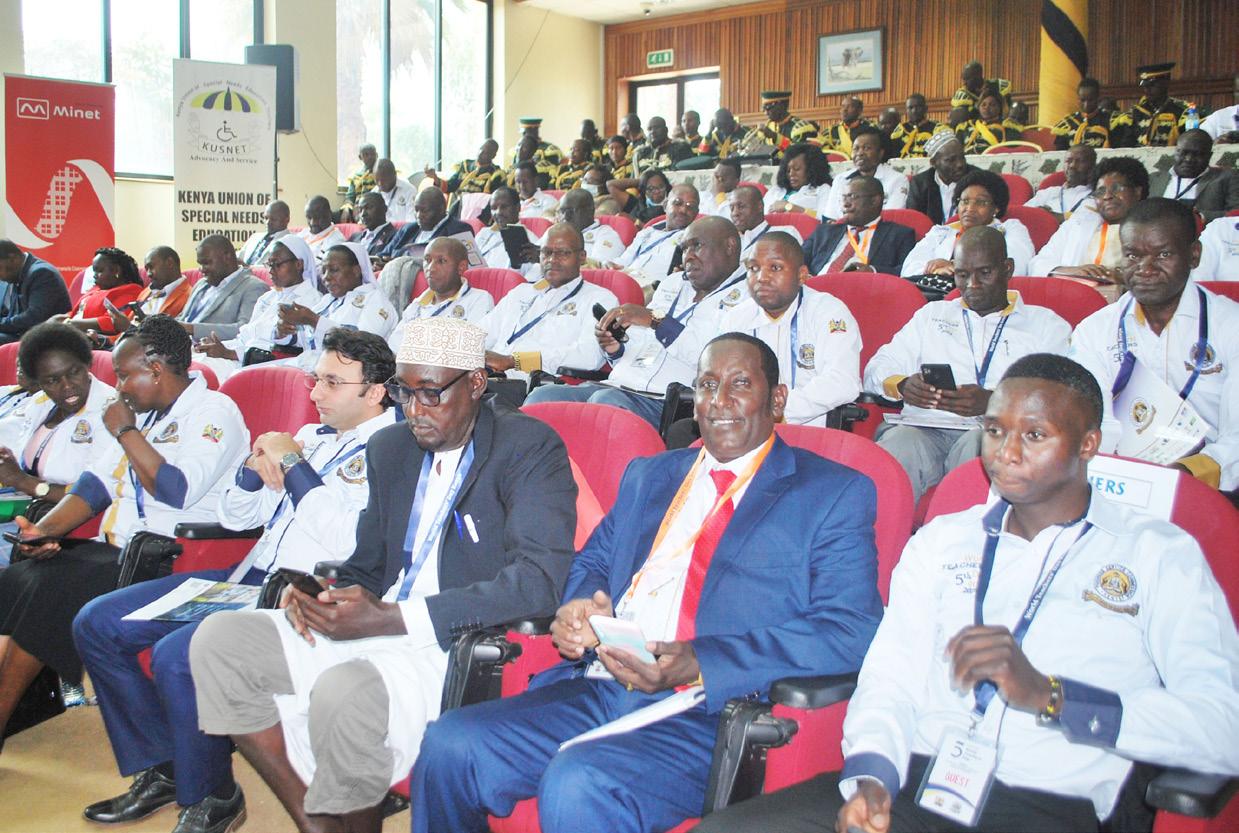
Under the new arrangement, teachers will be awarded between KSh30,000 and KSh500,000 per year subject to ability to pay back the loan.
HELB notes that the repayment will start one month after disbursement through the check off system with a maximum re-
for Goverment loans when they pursue higher studies.
payment period of six years or 72 months, with an interest of four per cent per year.
According to TSC, the funding consideration will only be restricted to costs related to tuition, examination, library, computer and research.
Where applicable, fees for accommodation and tuition on residential short courses will be treated as one item for the purpose of funding.
In addition, no one shall benefit from the fund more than once at the same time with successful completion of the course being restricted to the stipulated period.
The Training Revolving Fund will not meet expenses occasioned by repetition of
The courses should be offered in local training institutions for consideration of funding with application for further funding being considered on reasonable grounds.
Where beneficiaries exit the Public Service, further disbursement will cease.
In the new arrangement, apart from teachers being public servants, beneficiaries are required to have completed the probation period and completed two years since completion of a long course.
They would also be required to have completed one year since the completion of a short course, and further commence their studies during the financial year when the funds are awarded.
Further to the provisions under the Code of Regulations for Teachers (CORT), the Commission may grant study leave to a teacher who has enrolled for full time studies and has worked for the TSC for a minimum of five years except for rehabil-
itation cases.
In addition, they are required to have served for a minimum of three years since the expiry of a previous study leave, whether such leave was with or without pay except for Kenya Institute of Special Needs Education (KISE) certificate cases where one shall be required to serve for one year.
The previous beneficiaries of HELB loans are required to have completed repayment or been servicing the loan for at least six months to qualify for the loan under the TRF.
After fulfilling the set requirements, applicants shall be required to fill an application form which shall be available at the HELB website for online application.
Besides, they would be required to sign a loan agreement form when applying for the funds and submit the forms along with the required supporting documents.
The supporting documents include application forms in hard copy or electronic, certified copy of the applicant's national ID and copies of the latest three month’s pay slips, copy of admission letter from a recognized institution.
A recommendation letter from the employer signed by the Accounting Officer or designated officer indicating the approved course, personal number (admission number) and designation of the officer proceeding for training; and certified copies of national IDs of guarantors who must be serving in a Ministry, Department, Service Commission or County government.
Recently, the Commission made changes on its study leave policy, noting changes in the teaching service which include introduction of the new curriculum-Competency Based Curriculum (CBC), and subsequent introduction of new courses in the higher institutions of learning, as well as emerging external factors like the Covid-19 pandemic that negatively impacts the teaching service.
The last circular on study leave Policy was issued in December 2012, whereas the review of the CORT was done in 2015 and as such there has been disharmony between the two documents.
APPROVED TRAINING AREAS
2. Actuarial Studies
3. Administration
4. Advanced Finger Print
5. Advanced Rock Blasting Techniques
6. Aeronautical and Radar Management
7. Agriculture Engineering
8. Agricultural Resource Management
9. Analytical Chemistry
Under the new arrangement, teachers will be awarded between KSh30,000 and KSh500,000 per year subject to ability to pay back the loan.Teachers following proceedings during this year’s World Teachers Day celebrations at Kenya School of Government. The educators are now eligible
The Cheptais Boys School has established ambitious academic programmes to propel it into realizing its set academic targets for the forthcoming national exams.

Speaking to Education News in his office, the principal Julius K. Kemei said the school has registered 117 candidates, who are striving to attain a set target of 7.2.
He revealed that the candidates, known as The Titans, are very disciplined and are poised for great performance.
“We’re in a good position to perform well because of the measures we’ve put in place,” he said, adding that the reliable and trusted administration have worked hard for the same.
The principal, who joined the school in early August last year, said he has set his eyes on propelling the school to become a centre of excellence and an academic hub.
“We’ve instilled discipline in the students and that has led to good performance. Through patience, we’ll redeem the school to its former glory as an academic giant,” he said.
Kemei revealed that he has channeled inter personal contact between teachers and students, which has improved stakeholder engagement that will expectedly raise performance in national examinations.


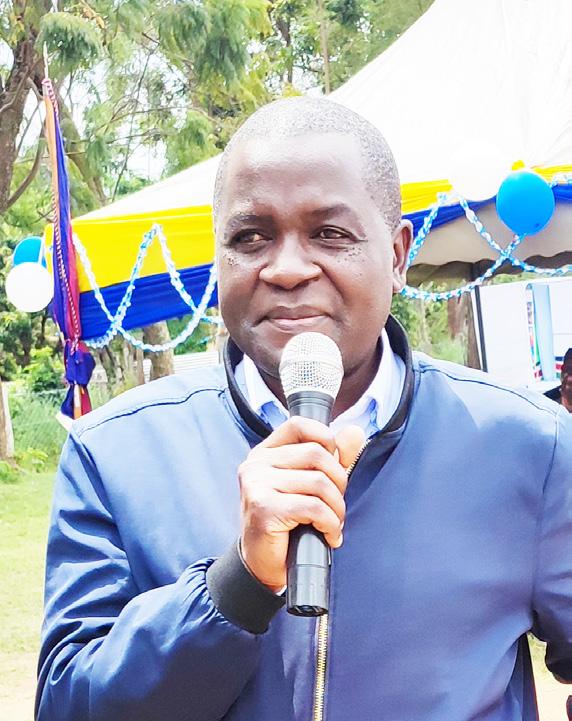
He noted that the school does a lot of benchmarking with peers around Mt Elgon region and beyond.
“We visit schools to learn their best practices just as they do from us,” he said, adding that they also do joint exams whose results have been great, pointing to an improved performance in
The Cheptais Boys School in quest for academic excellence


We believe the sky is only the beginning of our limit. We’re working on a scheme to emerge the best school in the entire Mt Elgon region and beyond.
- Julius Kemei, PrincipalKCSE.
He added: “We believe the sky is only the beginning of our limit. We’re working on a scheme to emerge the best school in the entire Mt Elgon region and beyond.”
that through proper utilization of the little resources in the school, they intend to expand to extra county status any time soon.
“The BoM will play a huge role in improving the infrastructural facelift of
the school,” he said.
He added that a storey tuition building of 8 classes is currently under construction to help ease congestion in classes.
Already, renovation of some classes, laboratories (Physics) and one additional twin dormitory which is complete and in use that accomodates 300 students has been done by the principal and the BoM.
A fence has been erected to guarantee the security of students.
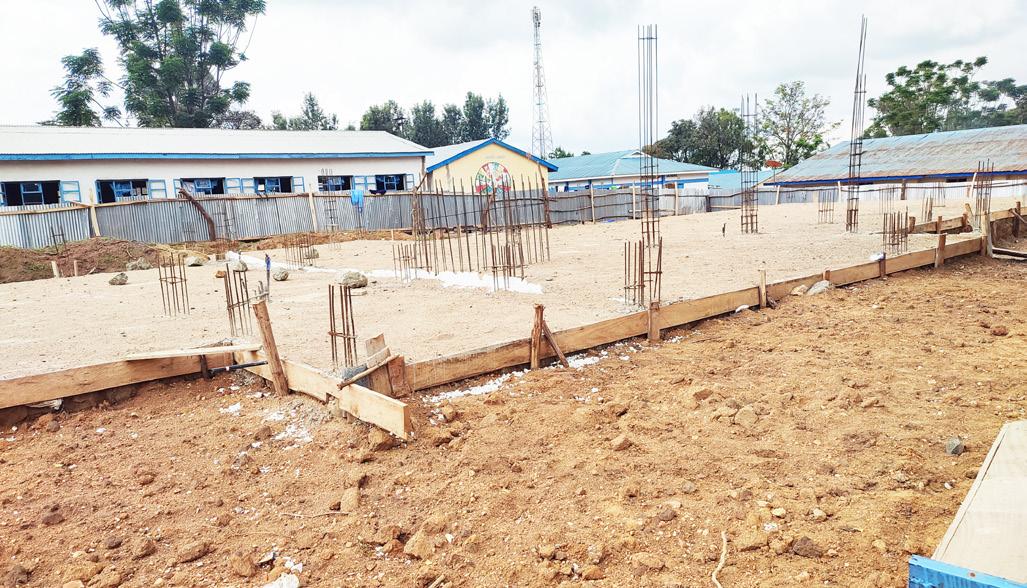
The deputy principal Douglas Namango works closely with the principal to improve student discipline and initiate a vital link between teachers and learners.
Fred Kirong’, the bursar, is a better manager in assisting the administration in proper utilization of school resources .
Located in Mount Elgon in Bungoma County, The Cheptais Boys School was established in 1965 on a 13-acre piece of land suitable for expansion of infrastructure as population grows.

The Salvation Armysponsored school has a student population of 968 who are guided by 28 TSC teachers and assisted by 10 BoM personnel.
The school is geographically set on the mountainous terrain of a rural set up, free of urban disruptive bustles.
The principal, who teaches Mathematics and Business Studies, revealed
NYANDARUA NATIONAL POLYTECHNIC
NYANDARUA NATIONAL POLYTECHNIC
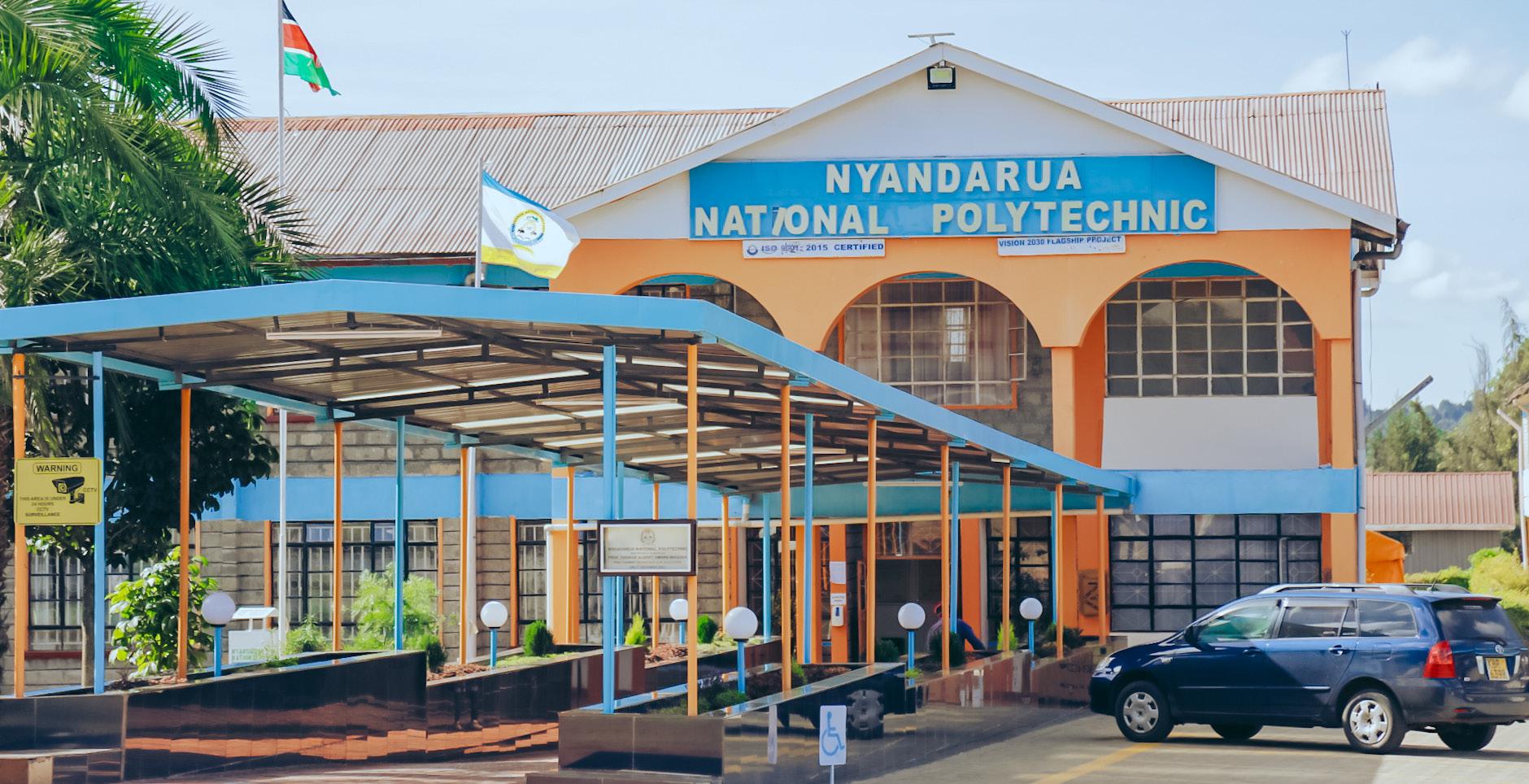
P.O Box 2033 - 20300, NYAHURURU | TEL: 0727-256001
P.O BOX 2033 – 20300, NYAHURURU
Cell: 0727-256001/0732-335757
Website: www.nyandaruanationalpoly.ac.ke

Email: info@nyandaruanationalpoly.ac.ke / nyandaruanationalpoly@gmail.com
Email: info@nyandaruanationalpoly.ac.ke/nyandaruapolytechnic@gmail.com

Website: www.nyandaruanationalpoly.ac.ke.
NyNP IS ISO 9001:2015 CERTIFIED

GRADUATION NOTICE

A NATIONAL CENTRE OF EXCELLENCE IN BUILDING AND CIVIL ENGINEERING AND AGRICULTURE REGULAR TVET COURSES FOR JANUARY 2023 INTAKE APPLICATIONS ARE INVITED FOR THE FOLLOWING COURSES
1ST GRADUATION CEREMONY
Nyandarua National Polytechnic wishes to announce its first graduation ceremony as a National Polytechnic, which will be held on Wednesday 30th November, 2022 as from 8.00 am at the Polytechnic grounds.

The Ceremony will be presided over by Hon. Ezekiel Machogu, CBS, Cabinet Secretary, Ministry of Education.
Graduands are advised to confirm their details and attendance in the Polytechnic website, www.nyandaruanationalpoly.ac.ke.
Please note:
1) Rehearsal
Graduands must attend rehearsal at the Polytechnic graduation square on Tuesday 29th November, 2022 at 9.00a.m.
2) Fees
A mandatory non-refundable fee of Ksh.2,000 only must be paid to Polytechnic’s Bank A/C No. 0160296471157, Equity Bank – Nyahururu Branch, or M-PESA Pay Bill No. 247247 not later than Monday 21st November, 2022.

3) Graduation Gowns
During the ceremony only graduands in graduation attire will be allowed at the graduation grounds. Graduands are required to collect the graduation gown from Tuesday 22nd and Monday 28th November, 2022 from their respective heads of departments. Graduation gown will be returned latest 8th December, 2022 after which a penalty of ksh.500 per day will be charged.
4) Punctuality
Graduands and their guests are required to be seated by 8.30 am on the graduation day.
For more information call 0727-256001 or check on our website: www.nyandaruanationalpoly.ac.ke. Office of the Registrar, Nyandarua National Polytechnic
The Governing Council, Principal, staff, trainees and the entire Nyandarua National Polytechnic fraternity Wish the 2022 KPSEA, KCPE and KCSE candidates the best of luck in their forthcoming national examinations.
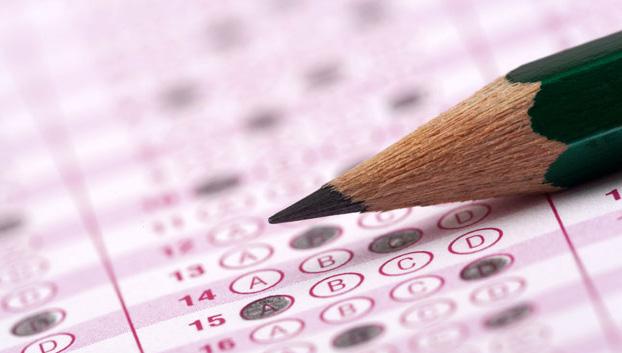

NYANDARUA NATIONAL POLYTECHNIC P.O BOX 2033 – 20300, NYAHURURU Cell: 0727-256001/0732-335757


Email: info@nyandaruanationalpoly.ac.ke/nyandaruapolytechnic@gmail.com Website: www.nyandaruanationalpoly.ac.ke.
NYANDARUA NATIONAL POLYTECHNIC
P.O BOX 2033 – 20300, NYAHURURU









Cell: 0727-256001/0732-335757
Email: info@nyandaruanationalpoly.ac.ke/nyandaruapolytechnic@gmail.com
Website: www.nyandaruanationalpoly.ac.ke
A NATIONAL CENTRE OF EXCELLENCE IN BUILDING AND CIVIL ENGINEERING AND AGRICULTURE REGULAR TVET COURSES FOR JANUARY 2023 INTAKE APPLICATIONS ARE INVITED FOR THE FOLLOWING COURSES
A NATIONAL CENTRE OF EXCELLENCE IN BUILDING AND CIVIL ENGINEERING AND AGRICULTURE REGULAR TVET COURSES FOR JANUARY 2023 INTAKE APPLICATIONS ARE INVITED FOR THE FOLLOWING COURSES


ELECTRICAL ENGINEERING DEPARTMENT
Note:
Note: Admitted students benefit with government CAPITATION of Ksh. 30,000 per year and HELB Loan. Application form can also be downloaded from the Polytechnic website: www.nyandaruanationalpoly.ac.ke
Admitted students benefit with government CAPITATION of Ksh. 30,000 per year and HELB Loan. Application form can also be downloaded from the Polytechnic website: www.nyandaruanationalpoly.ac.ke
Note:
Admitted students benefit with government CAPITATION of Ksh. 30,000 per year and HELB Loan. Application form can also be downloaded from the Polytechnic website: www.nyandaruanationalpoly.ac.ke
Applicants should include Photocopies of Academic Certificates, KCSE Certificate/result slip, School Leaving certificate National ID and birth certificate.
Applicants should include Photocopies of Academic Certificates, KCSE Certificate/result slip, School Leaving certificate National ID and birth certificate.
Applicants should include Photocopies of Academic Certificates, KCSE Certificate/result slip, School Leaving certificate National ID and birth certificate.
For more Details, Contact: The Principal, Cell: 0727-256001 / 0732-335757
MECHANICAL ENGINEERING DEPARTMENT
NYANDARUA NATIONAL POLYTECHNIC IS AN ISO 9001:2015 CERTIFIED INSTITUTION
For more Details, Contact: The Principal, Cell: 0727-256001 / 0732-335757
For more Details, Contact: The Principal, Cell: 0727-256001 / 0732-335757
NYANDARUA NATIONAL POLYTECHNIC IS AN ISO 9001:2015 CERTIFIED INSTITUTION



Govt should reconsider decision to raise school fees
The move by the national government last year to subsidize fees to cushion parents from the devastating effects of the Covid-19 pandemic was roundly lauded by stakeholders.
It was the best that could be done at a time everything went south and no one, not even the wealthy, could comfortably put food on the table and take their children to school.
In a growing economy like Kenya, subsidies are largely an unwelcome exigency, given the demand much overrides compensation for services rendered elsewhere in the world, developed or under-developed.

The government subsidized as a matter of human concern. However, the relief was shortlived as the ministry has now removed it for the reason that Covid-19 has been fully managed.
In a circular dated November 15, 2022 signed by outgoing basic education Principal Secretary Dr Julius Jwan, national and extra county schools in Nairobi, Mombasa, Nakuru, Kisumu, Nyeri, Thika and Eldoret, which form Category ‘A’ of boarding schools, will from January 2023 charge Ksh53,554 per year, up from Ksh45,000 they have been paying since the 2021 school calendar. The deficit is maintained in all other schools.
It is not an extra 7,000 shillings for parents, but an excruciating pain for most that saw a transition to a friendlier environment of trust and love for the less fortunate.
The fifteen million parents are all in a hole. It may be assumed that the government is working across all layers to bring the economy back to its feet, yet the underlying apathy to the plight afflicting most is killing the optimism that swept this government into power.
The government ought not to do away with the subsidy as the effects of the Covid-19 pandemic, which necessitated the mitigation, are still being felt. Parents gravely face a myriad of challenges, including a debilitating drought and an unbearable high cost of living.
Removing the fees subsidy is tantamount to telling parents to stay home with their children since schools cannot run without money. Effectively, this will derail the 100 per cent transition policy and reverse some of the gains made in the education sector.
To continue the subsidy programme may not be the easiest thing to do, but it is the most imperative when hustlers want to retain their children in school.
OPINIONS & COMMENTARIES
High school students have closed school this week and are heading home for the long December holidays, a time of the year that’s full of fun and festivities. They should make wise use of the holiday by balancing three things — home chores, personal study time and leisure. Here is how they can do that:
• Building useful bonds
Holidays are for bonding with the family. Students can write a thank you note to express an attitude of gratitude to their parents and guardians for the help they accorded them. They can also help parents and guardians attend to house chores or generate income if they know how their caregivers make money.
Being in good terms with parents attracts the favour factor. The Bible urges children to honour their parents, for it is the first commandment with a promise: long life.
• Reading good books
Students should cultivate a rich reading culture by creating more sessions to read notes, corecourse books, storybooks, class readers, KCSE set texts, self-help books, newspapers and magazines.
become better writers of imaginative compositions and improve their attention and concentration span.
Books are sources of interesting and intelligent conversation. Books boost ingenuity and creativity. Reading best books is the sweet secret to a good mood as it reduces stress, expands the brain and exposes learners to novelty.
• Completing all assignments
marking. There should be positive peer influence, with a special focus on learning literate habits, hobbies, routines and rituals.
• Engaging in edutainment
Entertainment is important. Teens love life full of fun. However, I think that teens should choose edutainment instead of entertainment since edutainment is entertainment that is both educative and informative.
• Wise use of media
In the distant past, Malcolm X, the African-American leader observed, “Media is the greatest entity on earth. It has the power to make the innocent guilty and the guilty innocent.” Therefore, if a young person can access a phone, it is good to use it wisely.
During the holiday, students should read relevant books and follow TV programmes that provide useful information about careers. They can consult career counselors or learn about careers through job shadowing, visiting places where people practice what they aspire to do in future.
• Unleashing the potential Talent is an in-born ability, gift is a divine-driven ability while skill is an acquired ability.
During the holiday, students should discover and nurture their talents. In 2 Timothy 1:6, Apostle Paul of Tarsus charged his protégé Timothy to fan his gift into flames.
In Proverbs 18:16, Solomon in his winsome wit and wisdom wrote, “A man’s gift makes room for him and brings him before great men.”
Chief Executive Officer: Peter Silsil
Managing Editor: Rosemil Oduor
Revise Editor: Kipkemboi Toroitich

Consulting Editor: Johnstone Agalo
Senior Reporter : Roy Hezron
Head of Marketing: Peris Cherono
Layout & Design: Gabriel Sankale & Sydney Kimiywi
Nassim Taleb observed, “A good book gets better at the second reading, a great book at the third reading. No book is quite the same when you read it again.”
A rich reading ritual enhances content mastery and memory. Reading props up levels of confidence, enriches word banks and builds verbal linguistic intelligence. Through reading, students
When students break for holidays, most teachers issue shedloads of assignments. Students should therefore make wise use of the holiday by completing such assignments and not engaging so much on non-academic issues that can plunge them into problems.
• Borrowing academic practices
During the holiday, it is possible to meet and greet peers from other schools. It is wise to compare notes with them and ascertain Best Academic Practices worth bench-
During the school stasis caused by Covid-19 pandemic in 2020, students discovered that they could use electronic gadgets to learn and earn knowledge. Likewise, during this holiday, students can receive or read useful materials on useful platforms such as WhatsApp. They can attend educative lessons on TV channels and use special sites such as YouTube to watch phenomenal speeches and didactic documentaries. They can also watch prime time news in order to keep abreast with the current affairs.
• Participating in church
During most holidays, purpose-driven churches organise mentorship programmes in form of seminars, conferences and camps. It is important to attend such meetings to enhance intimacy with God Almighty and to learn to be kind, empathetic and altruistic in nature.
• Learning about careers
In addition, alongside hard skills learnt in school, students should use the holiday to develop soft skills, life skills, 21st century skills, transferable skills, employability skills, inter-personal and intra-personal skills.
• Learning from mentors Young people should have right role models who can inspire them to climb the lofty ladders of life.
There is an extraordinary book from the Centre of Creative Leadership titled the Lessons of Experience where the putative authors state that 50% of what we learn, we earn from experience and 20 per cent from mentors and coaches, 20 per cent from failure and the remaining 10% from formal education.
Life is a journey, not a destination. Therefore, if they want to know the way, they should ask those who are coming back. Laurent D. Daloz got it right, “Mentors are guides; they lead us a long a journey of our lives, we trust them because they have been there before us.”
How students can make wise use of the December holidays
Boarding or day school: What is better for a child?
Currently, there is a lot of talk about where to domicile the present Grade six pupils come January next year, when they start their grade 7.
Arguments are being raised against their joining boarding schools that are far from home since they are underage. Some have even claimed it’s unfair for the learners to be in a boarding school with their counterparts in the old 8-4-4 system.
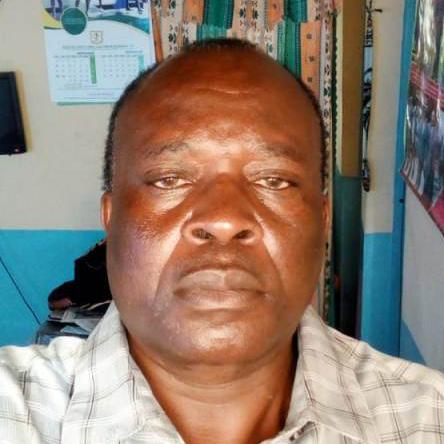
I think the issue that should be raised is whether as a country and society, we need boarding schools at all.
That is what should ultimately come up for debate, with a view of seeing if it is still prudent to continue subjecting our children to this situation in their academic life.
Incidentally, many of us have been through boarding schools, especially while in high school. We are thus conversant with the pros and cons of the system. But somehow, we are unwilling to freely discuss them. We don’t seem to want to share our experiences, whether good or bad. Instead, we seem to wholesomely support it. We see it as a normal step in one’s academic life.

So all we to do is put our children in these schools, and hope that all will go well, and that after four years, our children will excel and come out unscathed, and ready for the life ahead.
But I feel that as far as boarding schools are concerned, there is no need to suffer a national bout of the Ostrich Syndrome.
Let’s not assume that all is well, and continue subjecting our children to situations which can have far-reaching repercussions on their lives.
Below are some of the dangers of the boarding schools
1. Bullying
This is something we tend to either ignore, or pour cold water on. It is a brutal thing, consisting of physical beatings, robbery, traumatic experiences like being forced to lick smelly feet and swallowing, and many more.
There are those who will want to imagine such things don’t happen these days. The fact is, they do; especially in the big schools which were once for ‘whites only’. Recall the case of the boy who was forced to lie on a grave for I don’t know how long?
2. Initiation into evil practices
Some of these include homosexuality and lesbianism. These are now being re-
ported as rampant.

The initiation could start with a child being forced into it through rape, after which they could get addicted.
The most targeted for homosexuality are young boys. These ones may need the protection of the bigger, and in exchange, they end up being hooked to the so-called protector.
One big problem is that the boys indulging in it claim they are holed up in the schools for 8 weeks, and they end up becoming sex-starved. They have to find an outlet, they reason.
The effect is that once they get hooked to this socially unacceptable sexual orientation, it may become a lifelong thing. Parents taking their boys to boarding schools better are aware of this.
Lesbianism is the same. A girl is either seduced into accepting it, coerced (rape), or given some incentives, like food, money, and cosmetics.
Just like in homosexuality, with time and experience, some victims get hooked to it for a lifetime.
3. Drugs
Schools, as we are aware, host a variety of learners from all sort of backgrounds. Some of these learners are drug users and abusers. These habits can be passed on to other learners due to peer pressure. Many people have had their lives permanently affected this way.
4. Premarital sexuality
Some learners, who may have already started indulging in this, try to influence
those who are innocent. I know people may argue that this can happen anywhere; but then, the fact that these learners are holed up together for that long affords them an ample opportunity to facilitate their evil schemes. The experienced glorify sex so much that those who have not indulged tend to feel they are missing something they ought to be getting. They feel they are not developing normally, and resolve to try it out, with the attendant disastrous results.
5. Self-esteem issues
As has been stated, learners in schools come from all sorts of backgrounds. Some come from very rich backgrounds, while some, indeed the majority, come from very poor backgrounds. Those from rich backgrounds come to school loaded with both provisions and money. In spite of any efforts the schools can make to bring equality, the class just comes out. It could be cosmetics, wear, food, and the like.
This situation has the effect of making the other students from poor backgrounds feel very insufficient. Their self-esteem becomes very poor; and this could end up affecting their performance, and social development. This effect can last a life time.
6. Overcrowding/Overstretched Boarding Facilities
Due to the huge number of students admitted, the boarding facilities in many schools are overstretched to the limit. I am thinking of dormitories, toilets, dining facilities, and the like. I know a school where the sanitation block was turned into a dormitory by demolishing some of the walls, since more students had to be accommodated.
Such procedure makes some of the boarding schools a health hazard.
I must say that the above highlighted issues are not all that is wanting as far as boarding schools are concerned. But parents must consider them when they have to make the decision of choosing to take their children to day or boarding schools.
My take: improve day schools, by upgrading facilities, and staffing them well and they will serve the purpose far better than boarding schools. After all, the children will have more time to spend with their parents, instead of teachers (limited time) and students. These kids are at their formative stage, and need the right influence to develop right.
Tips for good memory retention

Our minds are engineered to remember even the most trivial of thoughts or experiences. However, at times, we tend to forget things when we need to remember them the most. Take a case in point a student in an exam room who can’t remember a point he/she read the previous night.
The good news is that we can improve our memory and information retention capacity through a few tips listed below:
• Rehearsals.
A woodpecker only makes a hole on the tree after continuous pecking. Practice makes perfect. The more you keep rehearsing and repeating information, the more it sinks and the easier it will be to retrieve if when need be. There is no shortcut. This calls for a revision plan and a personal timetable which must be followed to the later.
• Analyzing, interpreting and attaching emotion to
CBC will not address unemployment, a major problem in Kenya
CBC will not address the high unemployment rates in Kenya but rather we shall have graduates who have skills and talents that cannot be converted into income. Have we asked ourselves like Kenyans, what are we lacking? How should education fill in this gap? Having a music graduate in Kenya will only show case their music talents either in high end places or leave the country. I do not see Kenyans as consumers of some of these talents and skills.
A research should be done on where Kenya will be in 5-30 years, what skills will we need and how do we tap on these skills from this generation. Solving the issue of climate change and agriculture children should be taught using the recent innovations and solutions. We are facing food shortage because of using the same old methodologies we learnt in the early 90s and here we are teaching our children the same old methodologies. Can CBC address modern problem of this century not solutions that were automated years ago? This invokes the kids to think in a broader perspective on how to make things work and how to solve problems.
By Muthoni Muriithi sofiemuthoni@gmail.comParents don’t have time for children’s CBC homework
CBC assignments have become a burden to parents which should not be the issue. Parental engagement in the CBC assignments should not be tolerated as parents are busy trying to meet other needs especially basic due to high cost of living. Teachers are not ready to be in the tag of war between parents and Ministry of Education (MOE) on CBC. From this, children are not benefiting at all.
By Josphat K Kirera josphat1983@gmail.comDear readers: Kindly send your observations or views on topical education matters to editor@educationnews. co.ke. Note that the Editor reserves right to edit your articles for purposes of clarity and precision.
 Mike Ochieng
Mike Ochieng

The writer is a family man, educational psychologist, public speaker, team builder and founder of Gorba Total Wellness
You Can Reach Him Though: 0714904165
Mikeochieng11@Gmail.com
You Tube: Gorba Gym Total Wellness
what we read (personalizing)
When synthesizing information you are giving it a reflective look. What is the information tell-
ing me? What are the key terms? How can I explain this to someone else?
You can add meaning to what you study by attaching it to someone or something close to you.
• Use of mnemonics and games
This entails using your favorite song or lyrics to master content. This not only makes it fun but also very personalized. Examples are Master Vestus Employs Many Junior Servants Under No Pay (planets) to OSHACOMP (order of adjectives).
On the flip side, let me mention the enemies of good memory:
1. Lack of content and revision/rehearsal. What is there to remember?
2. Lack of interest in the subject matter
3. Stress and trauma
4. Addictions, to name but a few
Siaya Institute of Technology is undoubtedly one of Kenya’s indomitable trendsetters in offering quality industrial and technical training that conforms to the 21st century market demands, apparently setting the pace for technical training.
The institute is focused on ensuring that its trainees are properly moulded, and has therefore invested in equipping its workshops and laboratories with state-of the art equipment and machines, alongside engaging competent and highly trained technical professionals to run its faculties.
The college does well in performance contracting, which evaluates management performance outcomes. It is ratified by the Board of Governors and the Ministry of Education, consistently scoring an impressive cumulative index lower than 3.0.
Senior Principal Daniel Randa has steadily steered the institute to register remarkable progress. In fact, in Nyanza and Western regions, Siaya Institute of Technology has been the best performing TVET institute in successive business and technical examinations.
Siaya Institute of Technology sets pace for competency -based technical training
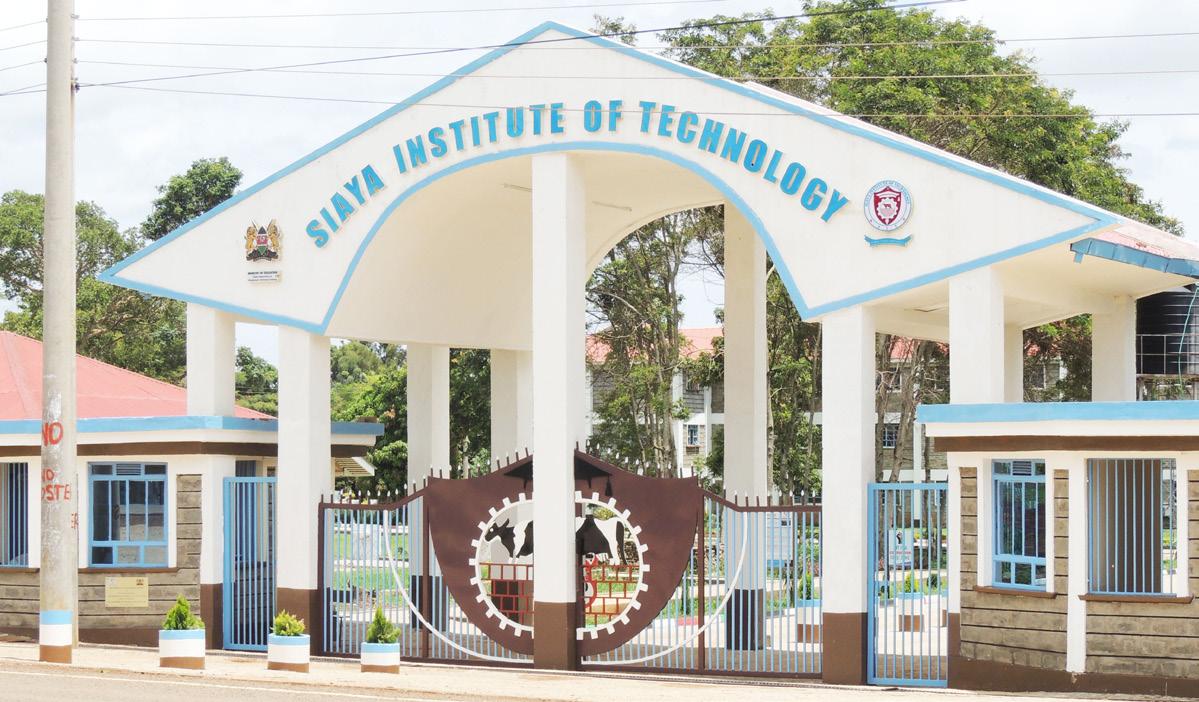
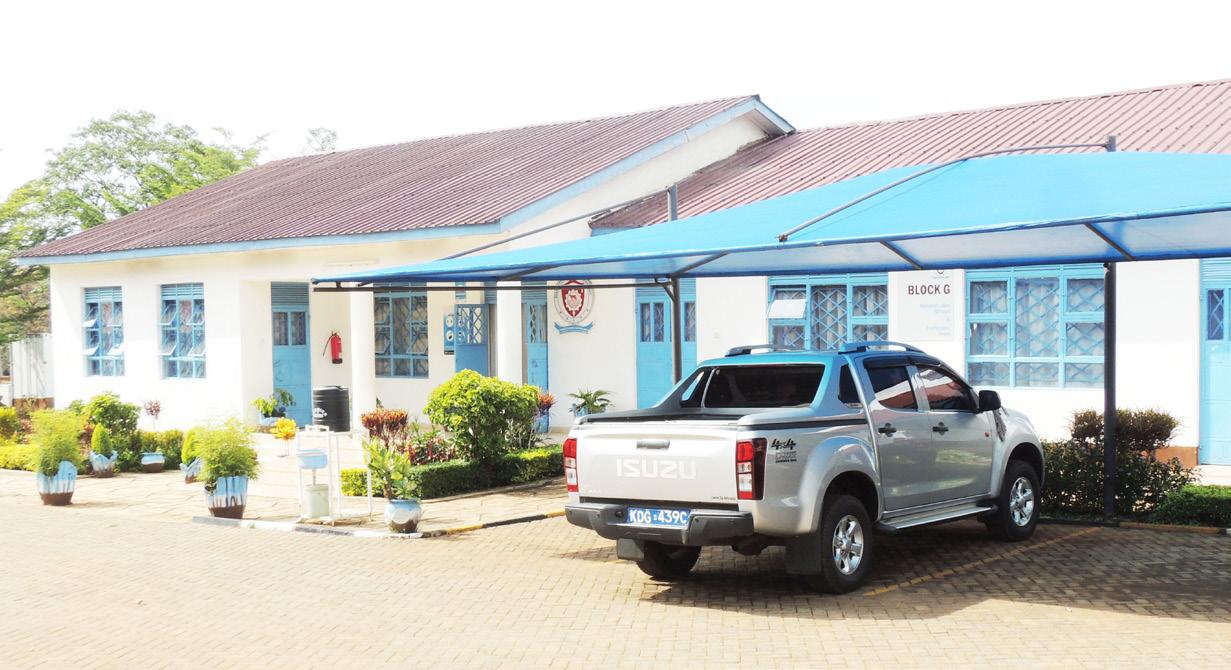
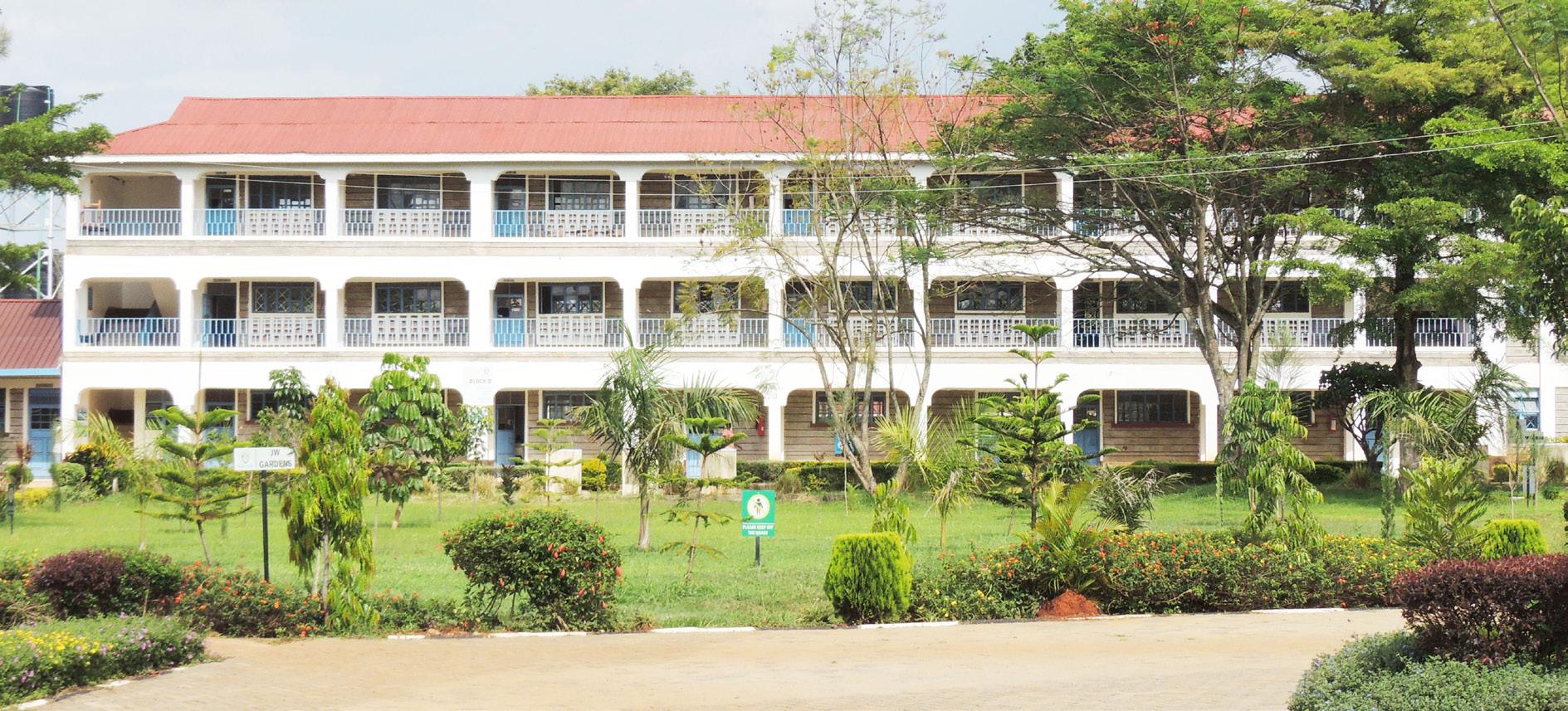
The institute is focused on ensuring that its trainees are properly moulded, and has therefore invested in equipping its workshops and laboratories with state-of the art equipment and machines, alongside engaging competent and highly trained technical professionals to run its faculties.
Randa pointed out that they are keen on localizing admissions so that the communities around the institute can also benefit from the training. He acknowledged the enormous support from the county government that has been giving bursary support to trainees, including the various NG-CDF from the six constituencies in Siaya County.
“As much as we are looking for quality performance in vertical knowledge, we also invest so much in horizontal knowledge, which is skills acquisition so that they become hands on as well as excellent performers in academics,” he noted.
He introduced new courses, including CDAAC-CBET, and NITA and KASNEB courses for business and accounting. The institute’s population has hit a record 4,000 trainees, thanks to the rich quality training programmes.
“The institution is proud of admitting students from Siaya so that we build capacity for future job markets because we envisage a situation where the county creates micro processing industries and enterprise centres, which will accommodate the graduates from technical institutions. We are looking at a situation where all the technocrats in technical fields working for the county government will be sourced from the institutes around Siaya County,” he stated.
Randa disclosed that the institute is also looking for partnerships and
“Further, we shall require that Science and technology universities form TVET wings so that graduates can do Bachelor of Technology courses to train in innovation, research and managerial principles,” he advised.
He noted that the universities should not fight TVET institutions, neither should they offer low level TVET courses.
“It’s regrettable that today every university wants to offer certificate and diploma in TVET courses just because they are on a mission to make money. Let them offer degree, masters and PhDs because we need new research, innovations and developments so that the country can move forward,” he said.
The senior principal is an ardent supporter of the CompetencyBased Curriculum (CBC), which he said has the potential to grow the economy if managed properly. He was one of the few selected members of the taskforce formed by president
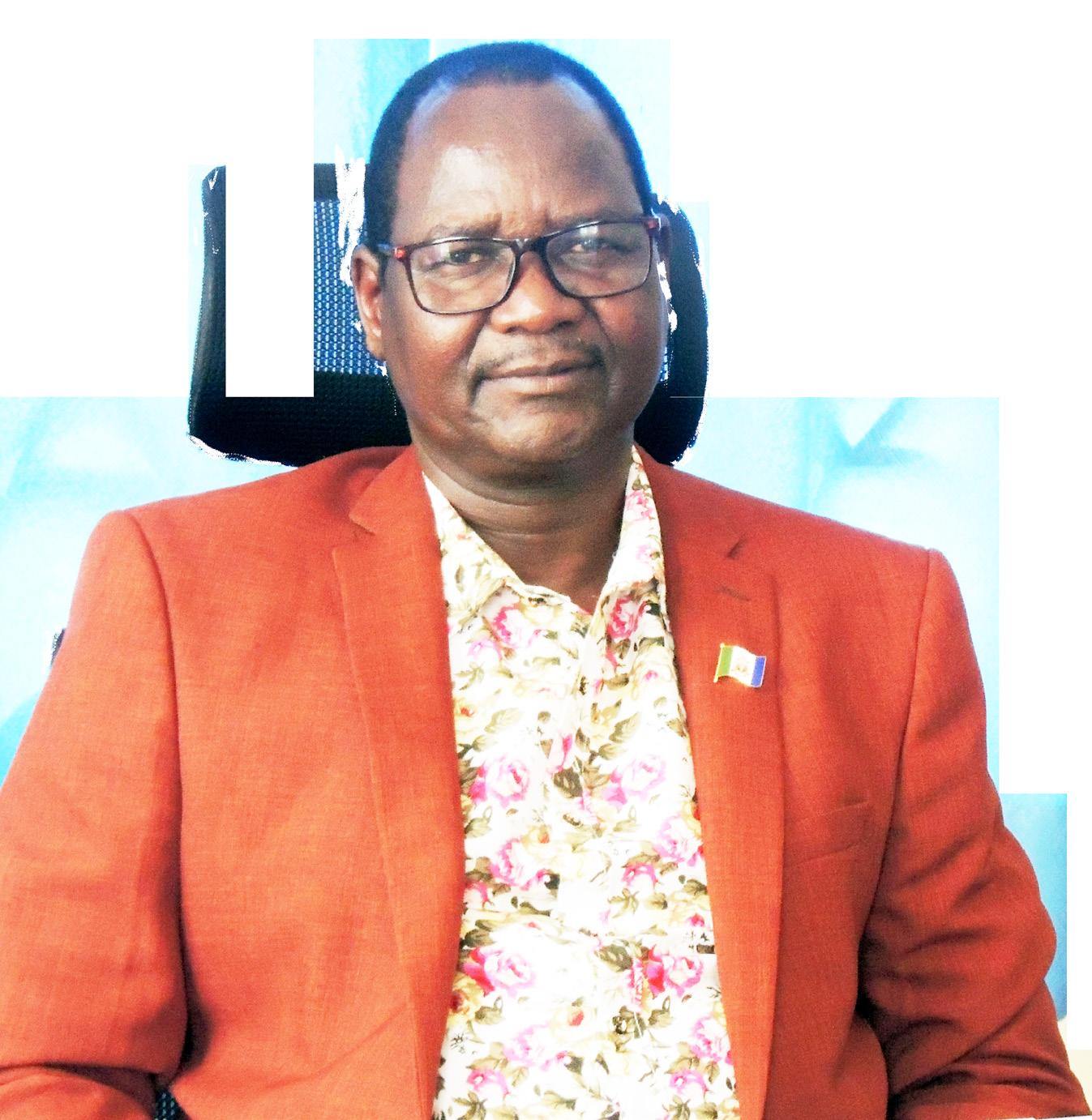
“The key areas to be addressed in TVET to make it better include curriculum design, which must be in touch with industrial demands so that when we produce our graduates, the manufacturing, processing and the industry at large understand what they want from our institutions and the trainees also understand what the industry expects of them,” he observed.
Another key area of concern is the comprehensive funding mechanism. He said TVET training and education is very expensive in terms of equipment, tools and implements.
“Technology must also be addressed if we are to achieve the goals of TVET. Institutions should have modern technological machines which are computerized to conform to the 21st century training,” he added.
Randa continued: “Trainer retooling must also be of concern to the government. TVET trainers in Kenya are not moving at par with the latest training technology hence capacity building of trainers in TVET institutions should be factored by the government.”
He observed that it was not right to offer higher remuneration to TVET trainers yet their capacities to impart skills and technical training is still low.
“We are asking the government to first consider retraining the existing trainers in TVET institutes, then equip our laboratories and workshops with modern machines so that the trainees get the best training to be highly marketable and their output will be productive. The government can later pay us well because we will be more capacitated to deserve better pay.” Randa stated.
collaborations with industries and other stakeholders so that trainees are placed for industrial attachment and internships within the locality.
Randa called for a policy shift to allow for seamless transition from basic education to tertiary institutions since it is very difficult to expect all the pupils transiting to secondary to also move to universities at the same rate. He noted that IQ disparities are wide, hence those who drop from class eight should have a pathway to join vocational training institutes and acquire skills for creating own employment.
SIAYA INSTITUTE OF TECHNOLOGY
P.O Box 1087- 40600, SIAYA | TEL: 0703564522
Website: siayainstitute.ac.ke Email: info@siayainstitute.ac.ke
COURSES OFFERED AT SIAYA INSTITUTE OF TECHNOLOGY
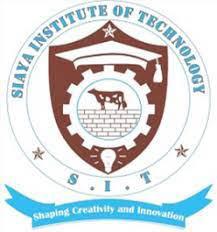

DEPARTMENT OF HEALTH SCIENCES
DP DIPLOMA IN PHARMACY(CHEM C,BIOLOGY C,ENG
CND CERTICATE IN NUTRITION AND DIETETICS(BIO D,CHEM D,ENG/KISW D AND HSC/AGRI/MATH.D
DCHN DIPLOMA IN COMMUNITY HEALTH
(Maths C, Eng C, Phyc, C plain)
DND DIPLOMA IN NUTRITION AND DIETETICS (BIO D+,CHEM D+,ENG/KISWA D+AND HSC/AGRI/MATH.D)
DEPARTMENT OF APLLIED SCIENCES
CSLT CRAFT CERT.I SCIENCE LABARATORY TECHNOLOGY
DFST DIPLOMA IN FOOD SCIENCE AND TECHNOLOGY
DAPB DIPLOMA IN APPLIED BIOLOGY (BIO D+)
DACH DIPLOMA IN ANALYTICAL CHEMISTRY(CHEM.D+)
DFST DIPLOMA IN FOOD SCIENCE AND TECHNOLOGY
KNEC
KNEC
3YEARS KNEC
KNEC
2YEARS KNEC
3YEARS KNEC
3YEARS KNEC
3YEARS KNEC
DEPARTMENT OF HOSPITALITY & INSTITUTIONAL MANAGEMENT
Qualified candidates to apply enclosing photocopies or form four Result slips/ certificate and ID or apply nline using admission@siayainstitute.ac.ke or www.siayainstitute.ac.ke
KIRINYAGA
KUPPET: Teachers interested in reinstatement to former stations to reach out
By Munene KamauKUPPET Kirinyaga branch Executive Secretary
Njogu Mbui has called on teachers who were transferred under the delocalization policy but wished to remain in their former stations to freely state their preferred work stations.
Addressing KUPPET members during their recent Annual General Meeting (AGM) at Maya Resort in Sagana town, Mbui argued that the policy, which was introduced in 2018, didn’t involve the input of the stakeholders, particularly teachers, as is enshrined in the 2010 Constitution.
Quality Assurance and Standards Officers call for retention of CBC
By Obegi Malack obegimalack@gmail.comKiambu County Quality Assurance and Standards Officers have called on the government to retain the Competency Based Curriculum (CBC) and only make a few adjustments.
In a memorandum to the Presidential Working Party on Education Reforms signed by Gatundu North Sub-County Quality Assurance and Standards Officer Secretary George Morara Ondieki, the officers recommended an appropriate structure to implement the CBC.
They recommended CBC to be retained because it resonates with the Kenya Constitution 2010 articles 6, 10 and 53 (1b) which aims to actualize Kenya Vision 2030 and conforms to global standards on curriculum review (UNESCO-IBE), Sustainable Development Goal No. 4 and 21st Century learning skills.
The officers also said CBC provides flexible pathways for identifying and nurturing aptitudes, talents and interests in learners early enough in life in order to prepare them for the world of work.
“The process ended up breaking families as spouses were hurriedly separated, leaving them highly exposed,” he said.
On corporal punishment, Mbui noted that some teachers were still canning children yet it was outlawed in all schools. He warned them about it, further adding that the union will not be party to it.
He also warned teachers against being sexual predators.
He added that the union is aware and is watching a school head who has deliberately kept the clocking register in his office so that when young female teachers enter the office to check in, he indecently touches them.
KUPPET Embu branch Executive Secretary Jacob Karora shocked the members when he revealed that he had just received a call about a teacher from Embu county who is in police custody over allegations of being a sex pest.
“We can’t defend teachers who keep preying on school girls.” Karora warned.
“CBC is less dependent on summative and do or die examinations which had turned learners into examination "machines",” they said.
In the new curriculum, they argued, no learner is left behind and/or declared a failure because every learner's talent and potential is identified and nurtured thus reducing emphasis on cognitive skills.
CBC also seeks to address lack of values among Kenyans because they have been mainstreamed in curriculum.
The officers proposed that Junior Secondary School (JSS) should be domiciled in primary schools because primary schools will have two extra classrooms that can host J.S.S thus reducing pressure of double intake for 2 years in secondary schools. The children will continue learning in the same environment they are used to thus reducing anxiety among the learners and parents.
County adult education boss decries high illiteracy level
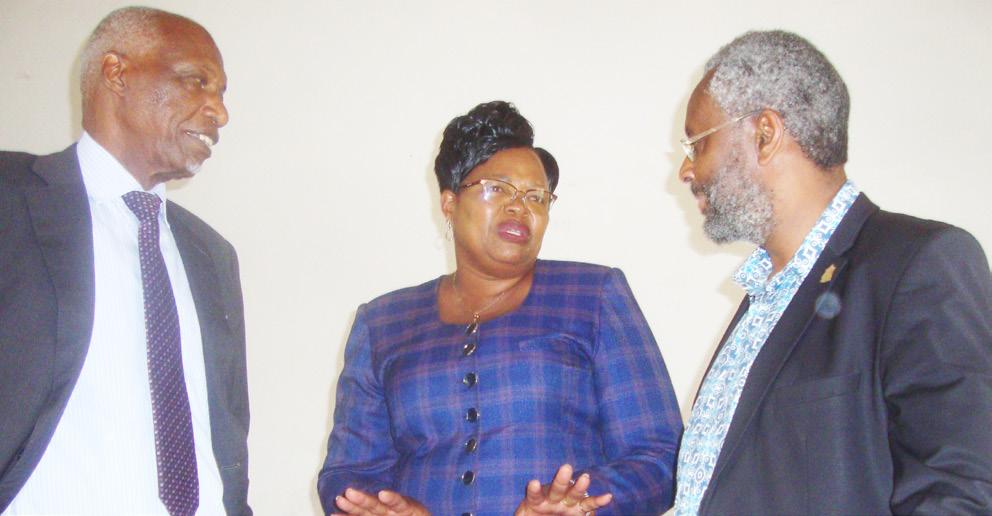 By Amoto Ndiewo
By Amoto Ndiewo
Tana River County Director of Adult Education Robert Zonga has expressed concern over the low enrolment of adult learners in the region.
Zonga stated that the low enrolment has threatened to derail efforts to eradicate illiteracy in the Coastal area.
He also complained that high illiteracy level has led to high poverty levels.
“Illiteracy and poverty work in tandem to make an unholy alliance,” he reasoned.
He lamented that the county has only seven permanent adult education teachers who are supported by 43 part time teachers employed by NGOs.
“Adding insult to the injury, the county has only 101 teachers manning 101 adult education literacy centres,’’ Zonga noted, further noting that the learning centres have an enrolment of 1,622 learners.
The adult education chief stressed that the aim of adult education is to ensure learners who perform well in national exams get employment or became self-employed.
He went on to add that 8 candidates will sit for
They noted that secondary school teachers have not been trained to handle these young learners who will be joining J.S.S and that their counterparts in primary schools are more prepared.
“Domiciling JSS in primary schools will also help the government cut costs since the government will not significantly increase the capitation given to primary schools. Learners in secondary schools get a capitation of approximately Ksh. 22,000 per annum while those in primary get approximately Ksh 1, 420,” they said.
The officers further argued that if JSS isn’t domiciled in primary schools, they should be in day secondary schools only and that all boarding secondary schools should be Senior Secondary Schools (SSS) with a clear categorization for the purpose of offering various pathways.
They also want teachers currently teaching in primary schools but have attained higher academic qualifications to be absorbed to teach in secondary schools.
“The government should also equip all schools that will offer J.S.S with the tools and equipment required to offer practical subjects based on the model of the current book purchase programme in schools,” they stated.
In Assessment and Evaluation Framework, the officers recommended that summative evaluation should account for 60 per cent while School Based Assessment (SBA) should take up the remaining 40 per cent.SBA comprises of projects and written assessment.
KNEC should fully digitize all forms of written assessments as this will curb examination dishonesty and bring down the cost of administration of assessments. KNEC should also meet the cost of SBA so that the burden is not passed to parents.
The recommended that the summative evaluation given at the end of grade 6 should also not be multiple choice type of questions.
COAST
this year’s KCPE exams while 15 will sit for KCSE exams.
Speaking to Education News on phone, Tana River County Director of Education Dr. Khalif Issack regretted that with an illiteracy rate at 67%, the poverty index lies compromised.
“Tana River County occupies the 44th position in illiteracy levels while Mandera county holds the tail end at position 47,’’Issack noted.
Tana River Deputy County Commissioner Joseph Langat urged the adult education department to run a sensitization programme so as to improve the literacy levels in the county.
Langat said that educated adults can practice better modern farming, treat their livestock, live healthier lives and lead better lives.
The education levels in Tana River County are so low. Data from 2019 Kenya Population and Housing Census reported that from 32,815 girls, only 13,464 completed school.
The data also revealed that 58,872 males and 68, 287 females have never been to school in Tana River County.
By Kage NjorogeEducation stakeholders from Murang’a county have stated that the education sector needs radical reforms to create an enabling process for effective delivery of the Competency Based Curriculum (CBC) in contemporary times.
During a session held at Murang’a Teachers Training College, Murang’a South KNUT branch Executive Secretary John Njata told the Presidential Working Party on Education Reforms led by University of Nairobi Vice Chancellor Prof Stephen Kiama that the curriculum should be crafted to impart knowledge and skills to empower today’s children to enable them cope with the fast changing technologies and issues in the world.
“The entire education level chain needs changes to enable the realization of the country’s growth agenda,” he said.
Njata pointed that CBC syllabus is acceptable and needs to be strengthened to improve the quality of teaching and learning.
He added that teachers should be empowered with skills, training and teaching resources to equip them to easily transfer
knowledge to the children.
He argued that the government needs to develop a deliberate programme to continuously train teachers on CBC for regular empowerment in their career growth.
The stakeholders also proposed that the controversial Junior Secondary School (JSS) should be domiciled in primary schools.
“The children are too young to be sent to secondary schools away from parental care,” they said.
Murang’a Senator Joseph Nyutu observed that the proposed JSS should be renamed upper or senior primary and that the learners should remain in primary schools.
“This will cut down on the cost of building new classrooms,” he said.
KNUT official Kamau Githaiga disclosed that most public primary schools in the region have empty classrooms due to the decreasing number of pupils.
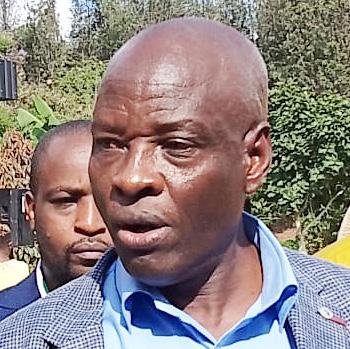
He said that Central Kenya region is recording low birth rates in recent times and the established primary schools have underutilized infrastructures which could accommodate JSS.
Philanthropist to support education of five children
By Collins Akong’oDubai-based Philanthropist Ravi Rach has promised to support needy families in Kinango, Kwale County and pay school fees for five needy children all the way to University level.
Through the BG Rach Foundation, formerly Rach Family Trust, Rach has promised to cater for five children who recently lost their father in Taru village.
Rach, who took over the humanitarian aid organisation from his late Grandfather Bhurdarji Rach, said he will ensure the children get their basic needs including food, shelter, education and any other humanitarian needs.
“We were informed about the much- needed humanitarian aid by these families and B G Rach Foundation has taken the lead role to help them,” he disclosed.
To start with, the philanthropist will not only provide food to the family who lost their bread winner but also pay all school fees for the five children for their secondary to University education.
Rach said B G Rach Foundation organisation is here to serve humanity as its core mandate.
“Ali Said, Mohammed Said and Juma Said together with their two minors in Taru will access all basic needs and school fees courtesy of B G Rach Foundation,” he reiterated.
Rach said the Foundation that has already transformed lives of the needy families in India, Malawi and Kenya among many other countries will do more for the rural communities within Kinango sub-County.
The three brothers thanked Rach through the B G Rach Foundation for the kind gesture to revive their dreams of higher education.
Meanwhile, B G Rach Foundation is working towards the construction of residential houses for over 23 families in Taru area.
Speaking from Dubai, Rach said since Taru area is a renowned semi-arid land where families are going through drastic economic challenges, it will also benefit from two large boreholes that will serve the entire households.
“It soothes my heart when I see smiles on faces of many families who were once entangled in poverty and despair. I will do everything possible to ensure lives of these individuals are positively transformed.” He added.
Education sector needs radical reforms, stakeholders sayPresidential Working Party on Education Reforms Official Prof Paul Wainaina (VC KU), Maragua MP Mary Waithira Njoroge (Centre) and University of Nairobi VC Prof. Stephen Kiama consult.

Kenya Union of Secondary School Non-Teaching Staff (KUSSNTS) has urged the government to directly absorb and employ all non-teaching staff under permanent and pensionable terms.
The Non-Teaching Staff (NTS) also wants their salaries to be paid directly to their bank accounts as is the case for other civil servants.
In their recommendations and proposals to the Presidential Working Party on Education Reforms chaired by Prof. Raphael Munavu on November 11, 2022 at the University of Nairobi grounds, the NTS in Nairobi County secondary schools, through KUSSNTS, proposed that there should be job security and appropriate grading of NTS as per civil servant scale and scheme of service.
“Secondary schools are public entities since they are financed from public funds, hence any staff offering services to any public entity is a public servant, amongst them all non-teaching staff in public secondary schools,” reads the recommendations in part.
The proposals were compiled and submitted by the Union’s Eastern Regional Secretary Alexander Muthiani and Peter Kimoni, the co-ordinator.
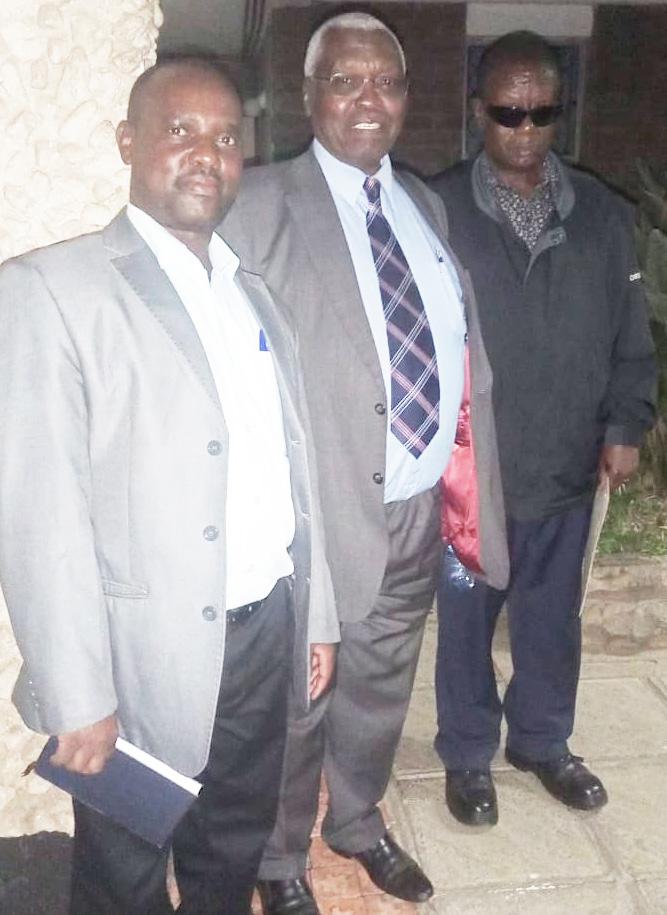
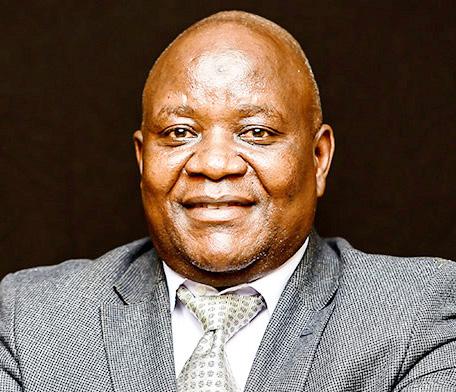
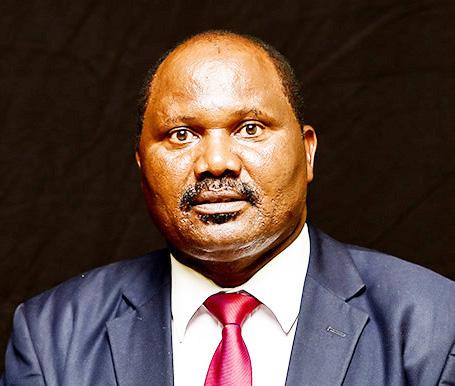
The proposals further suggested that there should be a scheme of service for non-teaching staff which should be adhered to when it comes to recruitment, promotion, remuneration, termination and payment of terminal dues to avert the current discrimination and unfairness being witnessed, and that the NTS professional staff be trained regu-
Union wants govt to hire school workers on permanent terms
larly to match technology and needs of the schools.
Some of the challenges secondary schools non-teaching staff encounter include: low pay, lack of job description, lack of appointment letters, long working hours, lack of job security, unsafe working conditions, lack of retirement packages, denied allowances, mistreatment, lack of scheme of service, and frustration and dismissal when one joins a trade union.
Fair treatment, representation
The non-teaching staff want the management of their affairs to be detached from the school Boards of Management (BoMs) for fairness and uniformity, since different BoMs manage them in different ways. They further want to be answerable to the Ministry of Education directly and not the school BoMs, and that their recruitment and termination should be done as per Employment Act and the civil servants scheme of service.
In addition, they also want professional NTS to be able to be transferred to different schools across the country.
Currently, non-teaching staff are not represented in the school BoMs which is composed of Principal, two teachers, the Church, community, six parents and the area Member of Parliament.
The NTS want proper and fair representation in all sittings discussing issues regarding secondary schools just like in any other sector in the government.
They recommended that a representative of the non-teaching staff in schools, preferably the bursar or finance officer, should be part of the school BoM and that the Ministry of Education should have sittings with non-teaching staff representatives to discuss matters regarding the secondary schools.
The non-teaching staff want the right and lawful procedure to be adhered to when administering disciplinary actions on them, following scenarios where some BoMs did not offer them fair hearings.
Clarity in personal emolument vote-head
They also want clarity on the Personal Emolument (PE) vote in the Free Day Secondary School Capitation, further noting that the vote head should be
distinct, very well stipulated and funded as per the school budget and not capitation or enrolment of the school.
They argued that the teaching staff is not paid factoring the school capitation but as per their grading and job groups, hence it should be extended to the non-teaching staff.
They argued that the Ministry of Education doesn’t have the data of the non-teaching staff working in the public secondary schools hence under budget for them.

They added that grouping of votehead currently is punitive and has disadvantaged the school NTS for lack of clarity.
Currently, the Personal Emolument is co-joined with Local Travel and Transport, Administration and Electricity and Water Conservation (EWC) under other vote heads.
Other recommendations and proposals include being allowed to freely join and participate in legal groupings like trade unions and associations, and Savings and Credit Co-operatives (SACCOs) of their choice , NTS membership subscription of these groupings should be done at source; compensation for those get any form of injury or illness in the line of duty and incase of death, the next of kin should be the beneficiary of the same; the government to offer development loans and advances to the NTS to develop themselves since many NTS end up leaving in poverty and hardships especially in times of retirement, and after offering services to secondary schools in their entire life.
hezzroy@educationnews.co.ke

The Chairman, Board of Directors, Members and Staff of Solution Sacco wish the 2022 KCPE, KCSE & KPSEA (Kenya Primary School Education Assessment) candidates the best wishes in their national examinations.
We’re confident you’ll emerge victorious after labouring hard with the support of your dedicated teachers and parents.KUSSNTS officials Alexander Muthiani (left) and Peter Kimoni with Prof Raphael Munavu after presenting their views to the Presidential Working Party on Education Reforms at University of Nairobi
The union wants to be employed under permanent and pensionable terms. They also want job security and appropriate grading of NonTeaching Staff as per civil servant scale and scheme of service.By Peter Otuoro
Teachers Service Commission (TSC) has ghost teachers on its payroll, casting doubts on the effectiveness of the Commission’s payroll structures and systems.
The Commission’s Internal Audit Directorate official Isaac Mamu disclosed that past school visits in the country’s 47 counties identified various inconsistencies between their official records and the actual school records. A number of teachers in different schools were reportedly on the TSC pay roll while they were already out of the teaching service.
“From our findings, after visiting various counties, we have identified a lot of irregularities especially on the TSC pay roll. We can confirm that the statistics in the TSC files at the headquarters are very different from statistics that are in the field,” revealed Mamu.
He was speaking at ARC Hall in Egerton University during a five-day workshop for TSC sub-county directors.
The TSC internal audit team visited a few Murang’a County schools and found that two teachers were being paid for services not rendered.
However, he did not reveal how long these ghost teachers had been earning salaries.
He said the Commission’s internal audit’s role is to investigate irregularities in various TSC offices and work stations, before reporting them to the Board for action by relevant TSC directorate.
Mamu instructed their officials to scrutinize their own records of teachers to ensure only those who are still contracted to serve receive salaries.
From their visits to various schools in different counties, they also discovered that some teachers are overpaid as others go for two years without salaries. He attributed this to possible statistical discrepancies between the files that are in TSC headquarters, and those in the county headquarters.
Besides, he noted, schools in urban centres have more female teachers compared to schools in rural areas. The reverse is true for male teachers.
Mamu encouraged TSC Staff-
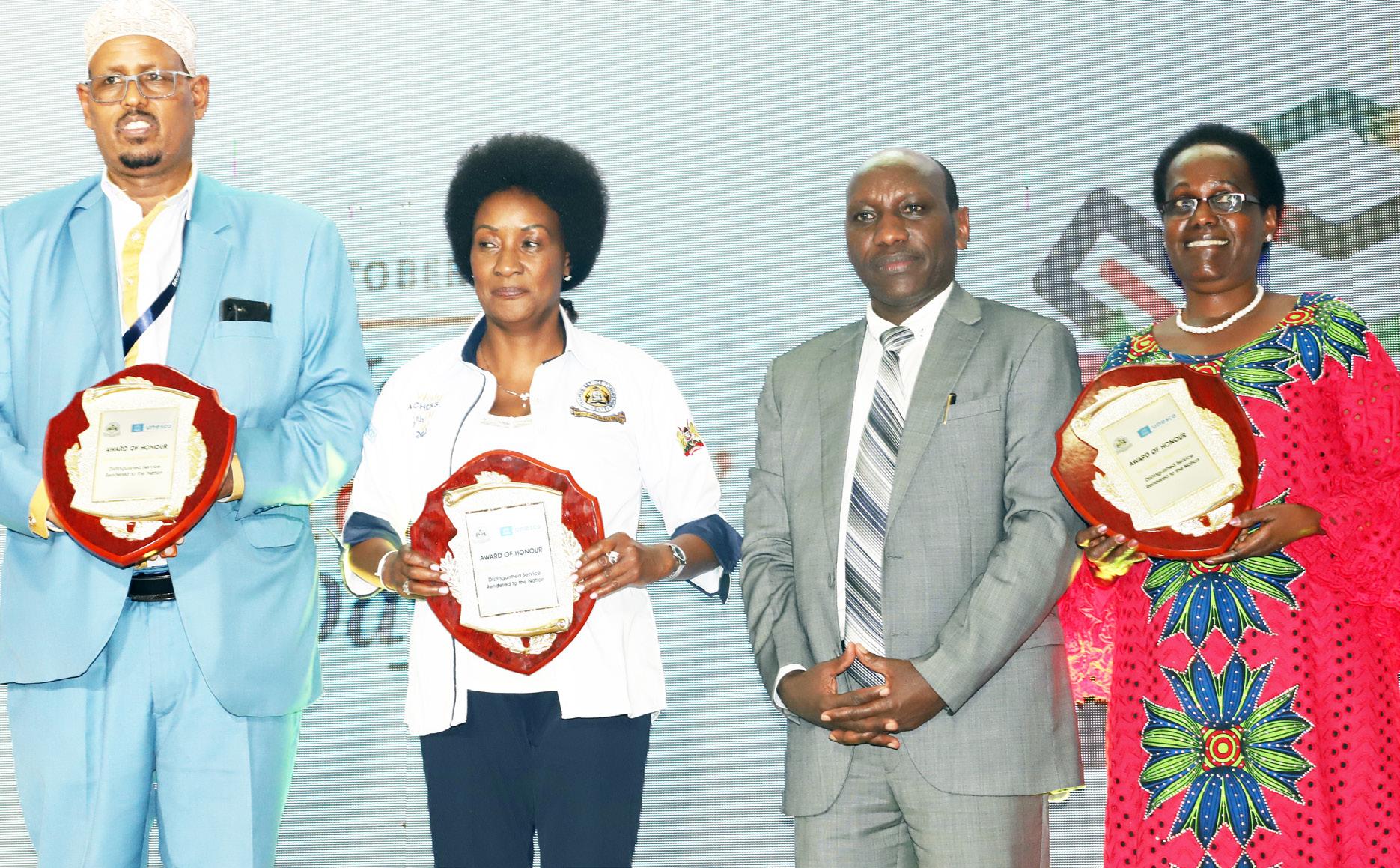
Ghost teachers on TSC payroll
those of the teachers they supervised. Meanwhile, he encouraged the sub-county directors to work around with what they can to safeguard the Commission’s properties under their care and the lives of staff.
He suggested they could work closely with the Interior Ministry to ensure the Commission’s offices and properties are safe.
Nevertheless, he praised the county and sub-county directors for doing a commendable job of ensuring that their offices have active disciplinary panels and teacher recruitment committees, which are essential and integral to their functions.
“We thank our county and sub-county directors for ensuring that their respective counties and sub-counties have fully constituted disciplinary panels and recruitment committees,” said Mamu.
He also thanked them for ensuring that most counties have updated financial management records like cash and vote books, and receipt and payment vouchers.
Mamu also said they had realized most teachers posted to special needs education institutions are regular teachers and not special needs-trained.
ing Directorate, as well as county and sub-county directors, to balance teachers along all fair considerations so that services are rendered equally and impartially in all parts of the country.
“Schools in urban areas were not meant for female teachers and schools in rural areas not for male teachers only. Both female and male teachers are employed by the Commission to work in any part of Kenya,” added the TSC official.
He also revealed that over a thousand schools across the country have only one gender of teachers, terming
the arrangement unprofessional and miserable, whether they are in mixed, boys or girls only schools.
“If a mixed school has only male teachers, girls in that school will not get critical services of guidance and counselling that can only be adequately offered by female teachers because they understand critical social challenges facing girls,” said Mamu.
The same, he said, is true for boys in the same setting if all teachers are female.
Mamu said their statistics also show that most sub-county directors’ offices
lacked space, had no furniture, stationery and equipment, as well as being security risks as there were no infrastructure to deal with accidents and incidences such as fire occurrences.
On this, he advised the TSC directorate concerned to urgently take measures to create a good working environment for the over 300 sub-county offices in the country.
Education News had in its previous issue reported the plight of these neglected officers, noting that apart from their facilitation, they were also paid meagre salaries that were far below
He advised the TSC staffing directorate to ensure only those who have undergone special needs training are posted to special needs schools.
“Majority of learners in special needs institutions require teachers trained in special needs because they are the ones who know how to use various assistive devices used by these learners,” pointed out Mamu.
He said most schools have no administrators, especially deputy principals, thus undermining the crucial role they play in institutional management.
Fresh optimism as A-level teachers seek help from new regime
By our reporterOver 4,000 P1/S1- A level teachers are optimistic President William Ruto’s government will come to their rescue in unlocking the arrears they have been fighting for since 2010.
Through their association of Retired and About to Retire (REAR) welfare association, the teachers said they are confident with how teacher issues are approached now, citing the recent motion passed in the National Assembly to repeal delocalization.
According to the association National Chairman Kepha Mshambala, who also represents all deputy head teachers and senior teachers, the current government is a defender of the poor, being in that socio-economic class themselves.
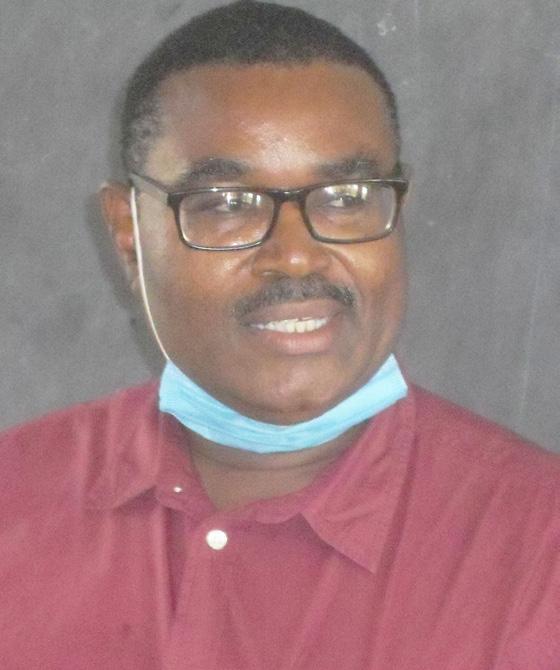
The philosophy of ‘bottom-up’ by President William Ruto is against injustice to the poor or those at the bottom, he argued.
“When a teacher gets money wrongful from TSC by commission or omission, TSC brutally recovers that money without considering if the teacher is living with disability, sick or the pay slip is in ‘ICU’,” said Mshambala.
He added: “But when TSC gets money from teachers wrongfully by commission or omission, the teacher will have to fight to get it back.”
In a recent interview with Education News, Mshambala revealed that since the government released Ksh1.4 billion on July 1, 2010 to be distributed to this cadre of teachers, TSC has withheld their arrears.
He noted that the Commission has never accounted for the money since it has never revealed the number of teachers who have been graded and paid their arrears.
“Ksh1.4 billion has not been accounted for. TSC was supposed to state how many P1-A level teach-
ers were graded and paid their arrears as per KNUT’s letter dated August 8, 2009, Ref No. KNUT/ EDU/49/12/2009,” he observed.
They were promoted from P1, Approved Teacher Status (ATS)-4
and ATS-3 to ATS-1 (Job Group ‘L’) on account of their qualifications in 2010, but were never paid their arrears.
The teachers have since been on the warpath with their employer TSC and the National Treasury over the subdued arrears, saying they were due for promotion in 1996 when their colleagues who took a two-week course at Bondo and Kagumo TTCs were promoted to grade S1.
“We have listened very keenly to Deputy President’s (DP) speech and we feel it is sweet music to our ears after years of being treated as modern day slaves,” said Mshambala, referring to DP’s promise that all teachers’ issues must be looked into.
He added further that the issue of A-level teachers’ arrears is genuine since the employer accepted liability when it graded them.
In an earlier interview in September 2020, Mshambala revealed that
despite some teachers attaining higher qualifications, their efforts have never been recognized by their employer yet they spent much on their higher qualifications.
He stated that some of the common challenges facing the A –Level teachers include over-staying in one Job Group (C3) for over 10 years, with some assistant teachers having acted as administrators for over five years without confirmation.
He revealed further during the interview that some teachers who retired from 2010 have not yet received their pensions.
The motion moved by Lurambi MP Titus Khamala, he said, was God-sent to relief teachers of the burden imposed by TSC; which he said is the rich oppressor in the bottom-up arrangement.
hezzroy@educationnews.co.ke
A statistical survey around the country by TSC’s internal audit reveals that field records of teachers and those at the TSC offices do not match, meaning some teachers have exited service but are still being paid.TSC Administration Services Director Ibrahim Mumin, CEO Nancy Macharia, Chairman Jamleck Muturi and former TSC Chairperson Lydia Nzomo pose with awards for Distinguished Service rendered to nation during the World Teachers Day in Nairobi. Kepha Mshambala
Iwas busy in a form three Chemistry class explaining the nitty gritty of the mole concept when I heard form two students laughing out loudly.

I knew it was an English lesson and my colleague Marashi can be as cheeky as she can be irritating, sometimes going overboard.
I have warned her on occasions but it seems this is part of her permanent voluble character.
However, this time round it was completely different.
You see, there had been this crazy proposal that teachers start wearing uniform, but without any formal notice by our employer, Marashi had come to school fully clad in uniform - a grey skirt, a checked blouse and a red tie.
Incidentally, our principal Obote is on sabbatical, which automatically places Napoleon on top of Mavumbi Boys as acting head.

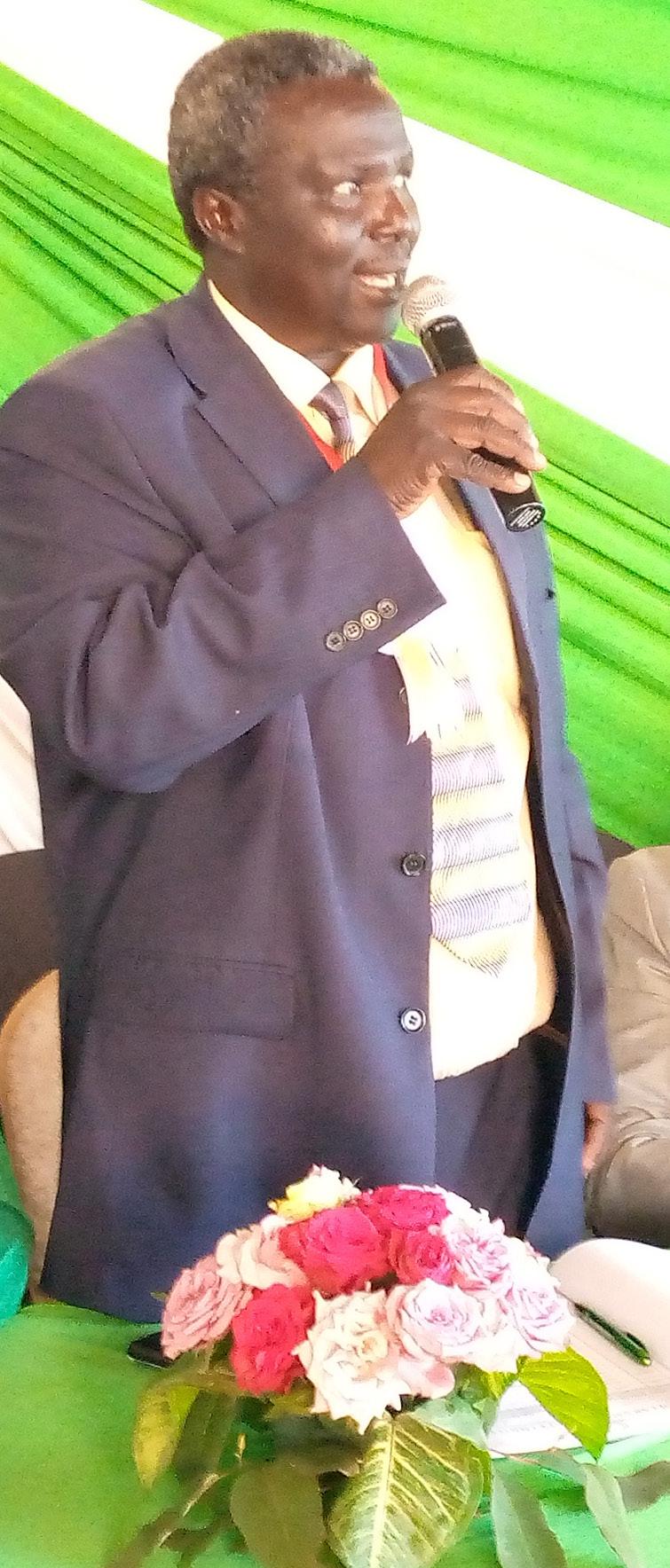
I wonder how he could have reacted to this amusing breach of regulations, but I was sure Napoleon would be at loggerheads with Marashi.
I've told you before why there has been bad blood between Napoleon and Marashi, the latter seemingly hell-bent to settle scores by making Napoleon’s
By Pascal Mwandambo

life as difficult as possible.
In the first place, Marashi refused to acknowledge Napoleon as the deputy principal, and instead referred to him as "deputy headmaster", whatever the difference there may be.
Now this spectacle. After the lesson, Marashi went ahead to take selfies with excited students along the corridor leading to the staffroom. Napoleon was taken aback.
We quickly called for an impromptu staff meeting, the sole agenda being teachers wearing uniforms and taking
Teacher Marashi causes stir as she puts on uniform

selfies.
Marashi, however, did not attend the meeting, knowing very well that she would be the gist of the deliberations.
"What is the problem with wearing uniforms? Even police officers wear uniforms and no one has complained," Marashi said defiantly as she stormed off to ‘check on her ailing mother’ at Mavumbi hospital.
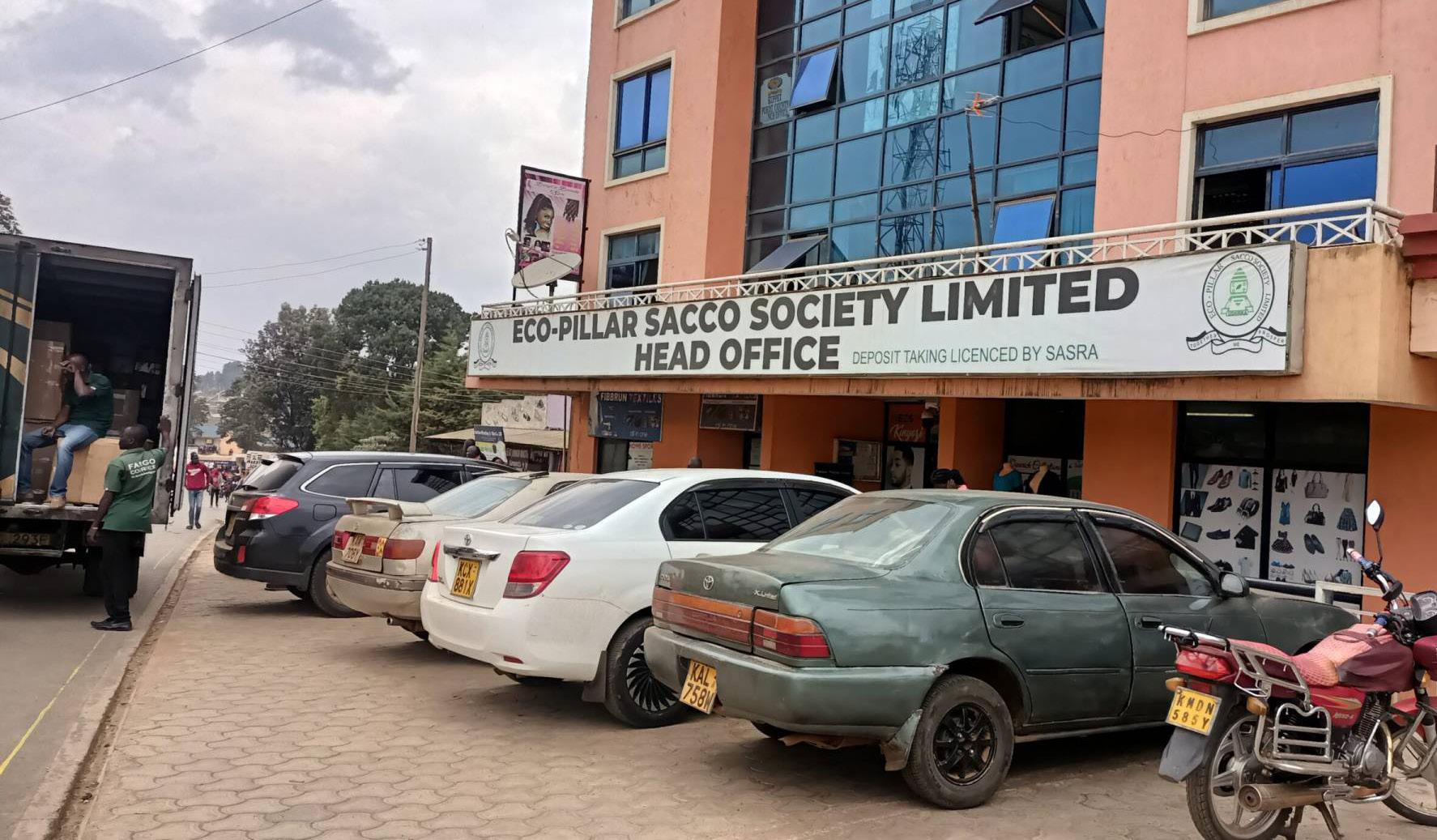
I told her that her argument was logical, only that she had put the cart before the horse, causing a commotion amongst students.
Before she cut me off, she reminded me to tell Napoleon it's only Obote who could summon her on any issue, ‘not mere deputy headmasters behaving like school prefects’.

Anyway, we held our brief staff meeting, with Napoleon hot under the collar.
Still fuming and raving, he harangued us to wait for a circular on the modalities of wearing uniforms.
The last time I wore a piece of uniform was more than thirty years ago. Now I am wondering how I will look like in one, and what design it will be.
The Chairman, Board of Directors, Staff and members of Eco Pillar Sacco wish the 2022 KCPE, KCSE & KPSEA (Kenya Primary School Education Assessment) candidates the best of luck in their national examinations.
confident you’ll emerge victorious after labouring hard with the support of your dedicated teachers and parents. All the best!
Vision
NATIONAL POLYTECHIC
Mission
To provide demand driven quality Training, Research and Innovation for Sustainable Development.
By Education News ReporterSince its beginning in 1924 as a native Industrial Training Depot up to its current status as a national polytechnic, the institution has achieved a lot and boasts a pool of well skilled trainees who are ready for the industry.
The main aim of the polytechnic is to develop an institution with excellence in teaching, training entrepreneurship, consultancy, and community service, among other facets with emphasis on technology to create a lasting developmental impact within and outside Kenya.

The Polytechnic trains in market-driven courses and technical education needed to pursue vision 2030 and other sustainable development goals, and thereby attract attention from the industry. The interest shown by the students confirms the confidence the institution enjoys in the industry and the labour market in general.
The Governing Council has put in place plans to improve the Polytechnic to enhance training, research and development. In particular, the polytechnic;
• Promotes and establishes a culture of innovation in engineering and technology and technology transfer amongst the staff and students.
• Provides a multilevel system of post secondary school education training programmes relevant to the needs of the community covering a wide range of fields and levels with provision for recognition of prior learning and flexibility of transition between programmes.
• Contributes to industrial and technological development of Kenya in collaboration with industry and other organizations through transfer of technology.
• Embraces technology and has set up an Open and Distance e-learning (ODeL) Centre to enable online training.
Currently the Polytechnic offers Diploma programmes and Certificate
Kabete National Polytechnic leaves indelible footprints in skills training

courses with accreditation by the following bodies; CDACC, KASNEB, KNEC, Pharmacy and Poisons Board, and Kenya Medical Laboratories Technicians and Technologists Board (KMLTTB).
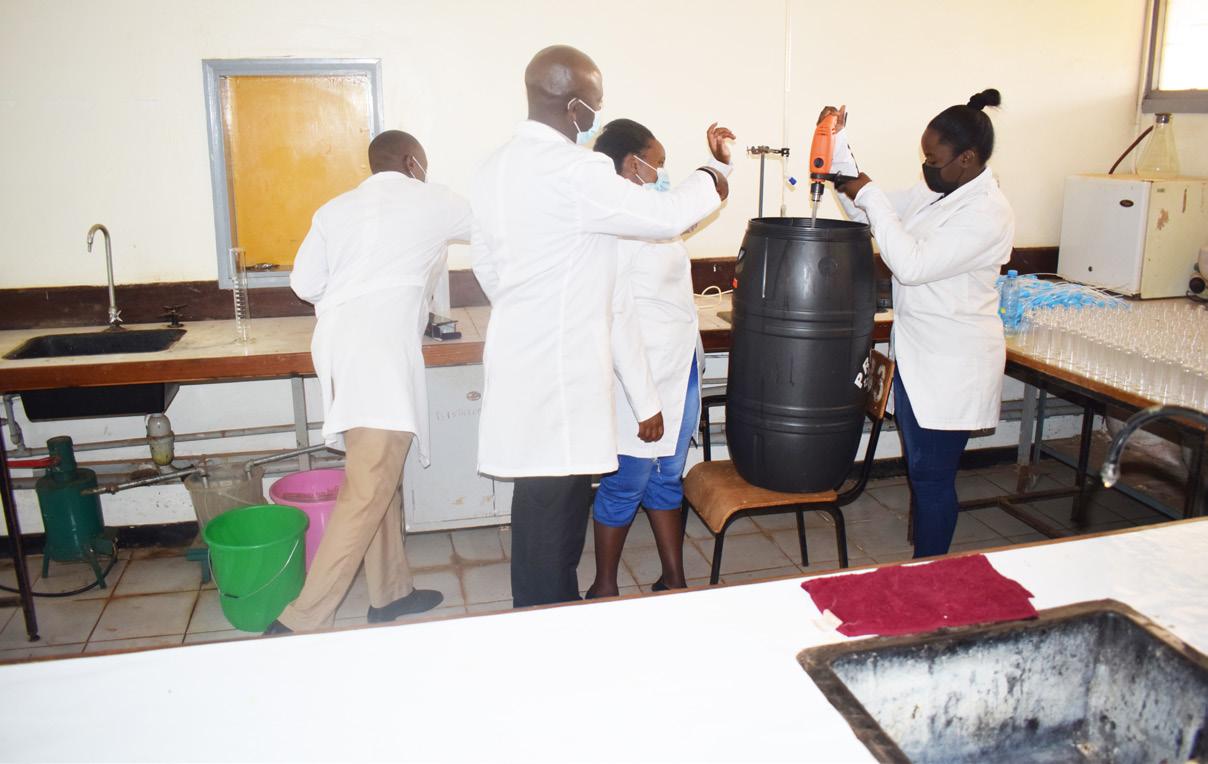
The Polytechnic has an enrolment of 10,665 trainees, out of whom 7,328 are male and 3,337 are female.
The Polytechnic has had its key successes which include:
1. Improved Academic Performance Index in the national examinations, making the Polytechnic an institute of choice for many applicants. The trend of the Performance Index has been positive.
2. Promotion of Research and innovation: Through research activities, the polytechnic
endeavours to raise awareness on the role of TVET in advancing society through research, Science, Engineering, Technology and Innovation for accelerated sustainable development. The use of
technology in environmental management to address climate change and the role of research and academia in the realization of Sustainable Development Goals (SDGs) is another focal point. The staff and Trainees conduct high quality research that is relevant to societal needs and they have made presentations in research conferences. Publications in journals are fast becoming commonplace in the polytechnic. Innovations from staff and Trainees have attained enviable positions in the regional, national and at international fairs. The Innovators in the department have also performed well in robotics and automation, becoming the champion in robotics for the last two years, having won both at regional and national levels.
3. The Polytechnic was involved in production of 5,000 machine parts for China, a con-
tract of Ksh10 million. This exposed the trainees on Competency-Based Practice.
4. The Polytechnic’s role in affordable housing has improved, with the polytechnic being contracted to produce cabinets, a contract worth Ksh9 million. The trainees are involved in production, thereby testing and improving the skills that they have attained after workshop practice.
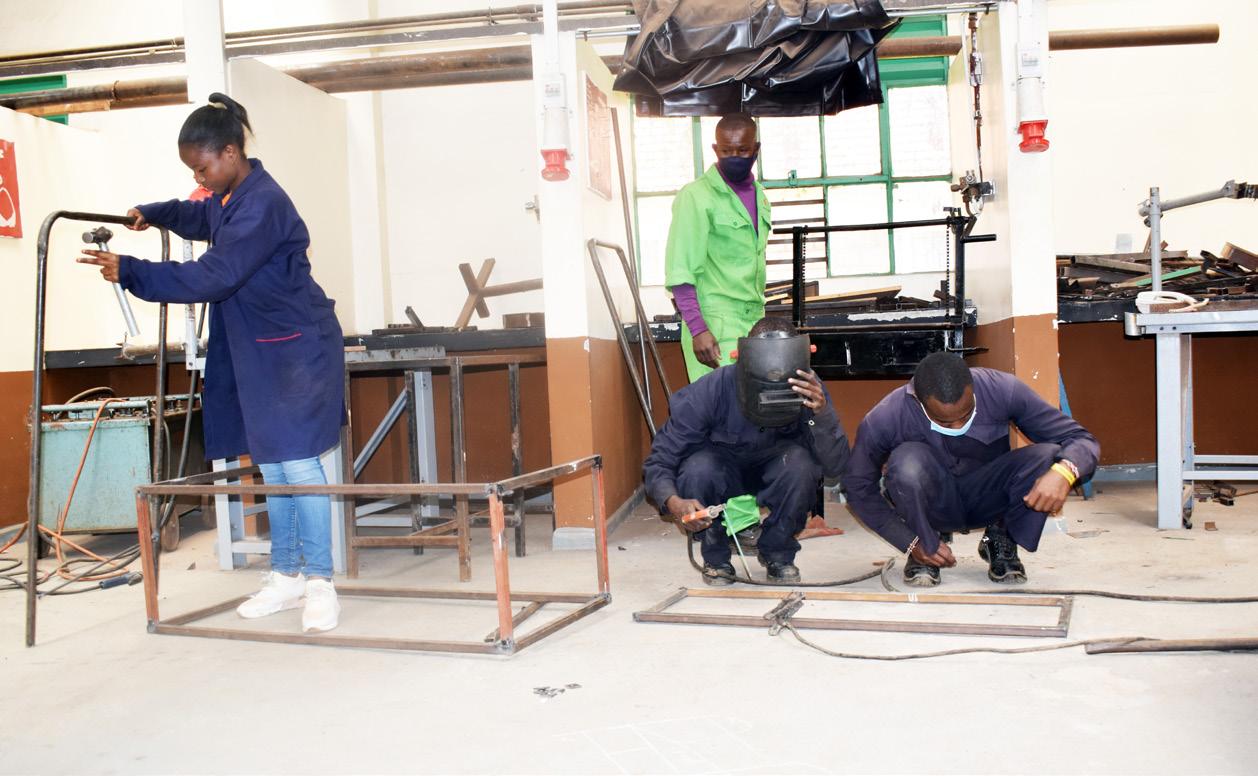
5. The Association of Technical Universities and Polytechnics in Africa (ATUPA) organized an International Research Conference under the theme “Repositioning TVET Education Ecosystem in Light of Covid-19 Through Heritage Based Education” in Victoria Falls, Zimbabwe between 28th August and 3rd September 2022. The Polytechnic sent 2 trainees who had an innovation that competed in the Startup Africa Olympiad in the youth forum. A medical Engineering student and an ICT student developed an innovation dubbed “A Smart Secured ICU Patient Monitoring and Real Time Reporting System” used in hospital ICUs. They competed at semifinals and finals. Out of the 15 teams that participated, they were ranked position two, scooping a 2,000 USD award, which is geared to assisting them commercialize the idea into a business startup.
6. Under the guidance of the polytechnic Governing Council and the management, the polytechnic hosted a successful second International Research Conference under the Theme: Linking Research, Science, Technology and Innovation with Development in Africa.
There were 8 keynote addresses, 4 panel discussions and 16 research papers presented under the following sub-themes:
• Role of TVET in advancing society through Research, Science, Engineering
• Technology and Innovations
• Collaboration of government, academia and industry for accelerated industrialization
• Green technology for accelerated sustainable development.
• TVETs’ role in sustainable blue economy.
A Premier Polytechnic recognized Globally for the Advancement of Knowledge and Skills for Sustainable Development.Production of sanitizer in a Science laboratory Institute of Applied and Health Sciences complex Graduands in a previous ceremony. The Polytechnic will hold its 4th graduation ceremony on Monday 19th December, 2022 Practical lesson in a Welding and Fabrication Workshop
COURSES FOR INTAKES; JANUARY, MAY, SEPTEMBER
HIGHER DIPLOMA PROGRAMMES
➢ Higher Diploma in Electrical and Electronic Engineering (Power Option)
➢ Higher Diploma in Construction (Building Economics Option)
➢ Higher Diploma in Construction (Building and Civil Engineering Option)
➢ Higher Diploma in Institution Management
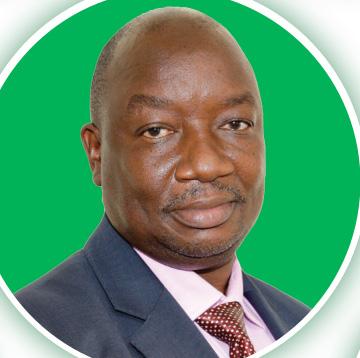
➢ Higher Diploma in Human Resource Management
➢ Higher Diploma in Entrepreneurship Education
Entry requirements
Pass in relevant Diploma from an Accredited Institution. Those with Distinctions will be awarded Credit transfers as per the Polytechnic’s Academic Policy.
DIPLOMA PROGRAMMES
➢ Diploma in Agriculture
➢ Diploma in Food Science and Processing Technology
➢ Diploma in Science Laboratory Technology

➢ Diploma in Geophysics Exploration Technology
➢ Diploma in Petroleum Geosciences
➢ Diploma in Applied Biology
➢ Diploma in Analytical Chemistry
➢ Diploma in Industrial Chemistry
Entry Requirements
• KCSE grade C – (minus) Mathematics c-, Biology c- Chemistry, Physics / Physical science C-, English C-
• Pass in the relevant Diploma Course
➢ Diploma in Food and Beverage Production and Service
➢ Diploma in Catering and Accommodation Management
Entry Requirements
KCSE grade C – (minus) Mathematics c-, Biology and/or Home Science C-, English C-

➢ Diploma in Health Records and Information
➢ Diploma in Pharmaceutical Technology
➢ Diploma in Nutrition and Dietetics
➢ Diploma in Medical Laboratory Technology

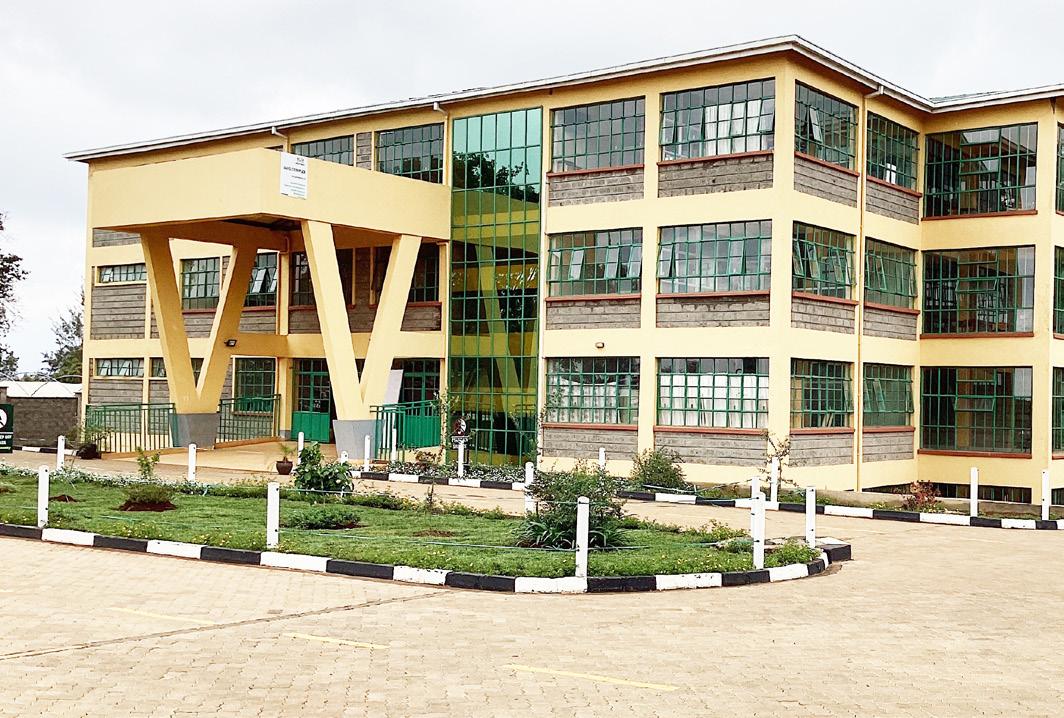
Entry Requirements
KCSE grade C – (minus) Mathematics C-, Biology C- Chemistry, /Physical science
C-, English C- as required by regulating bodies
➢ Diploma in Architecture and Design
➢ Diploma in Land Surveying
➢ Diploma in Quantity Surveying
➢ Diploma in Building Construction Technology
➢ Diploma in Civil Engineering
➢ Diploma in Mechanical Engineering (Production Option)
➢ Diploma in Mechanical Engineering (Plant Option)
➢ Diploma in Automotive Engineering
➢ Diploma in Welding & Fabrication
➢ Diploma in Electrical Engineering (Power Option)
➢ Diploma in Electrical Engineering (Telecommunication Option)
➢ Diploma in Electrical Engineering (Instrumentation and Control Option)
➢ Diploma in Industrial Automation and Robotics
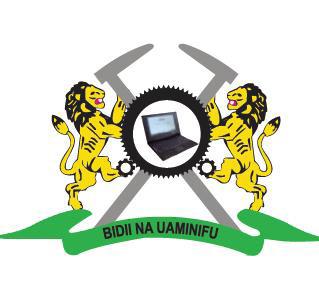
➢ Diploma in Information Communication Technology
➢ Diploma in Library Information Science


➢ Diploma in Archives and Records Management
Entry Requirements
• KCSE grade C – (minus) with Mathematics C-, Physical science C-, English C-
• Pass in relevant Craft Certificate course
➢ Diploma in Entrepreneurship
Education
➢ Diploma in Social Work and Community Development
➢ Diploma in Business Management
➢ Diploma in Project Management
➢ Diploma in Cooperative Management
➢ Diploma in Accounting Technician
➢ Diploma in Supply Chain Management
➢ Diploma in Human Resource Management
➢ Diploma in Broadcast Media Journalism
Entry Requirements
• KCSE grade C – (minus
• Pass in relevant Craft Certificate course
CRAFT CERTIFICATE PROGRAMMES
➢ Craft Certificate in Agriculture
➢ Craft Certificate in Food Science and Processing Technology
➢ Craft Certificate in Science Laboratory Technology
➢ Craft Certificate in Nutrition and Dietetics
➢ Craft Certificate in Building Construction Technology
➢ Craft Certificate in Masonry
➢ Craft Certificate in Carpentry and Joinery
➢ Craft Certificate in Plumbing
➢ Craft Certificate in Mechanical Engineering
➢ Craft Certificate in Motor Vehicle Mechanics
➢ Craft Certificate in Electrical Engineering Technology
➢ Craft Certificate in Telecommunication Engineering Technology
➢ Craft Certificate in Information Communication Technology
➢ Craft Certificate in Broadcast Media Journalism
➢ Craft Certificate in Archives and Records Management
➢ Craft Certificate in Food and Beverage Production and Service
➢ Craft Certificate in Catering and Accommodation Management
Entry Requirements
KCSE Grade D (Plain) with at least a D (Plain) in Mathematics, English and Physical Science
The Governing Council, Principal, Staff, Trainees and the entire community of Kabete National Polytechnic
Varsity
20 EDUCATION NEWS NOV 25 - DEC 12, 2022
By Education News reporterThe government intends to construct 14 Science and Technology Parks (STPs) in the next 10 years in a bid to support and commercialize research and innovation.
Majority of the STPs will be located in public universities.
According to the Ministry of Education’s (MoE) 10-year Master Plan for the STPs drafted in June 2022, and which is in the implementation stage, there are six STPs proposed within three technology corridors of Nairobi, Central and Western regions.
Most of them are at different stages of establishment and in Nairobi Technopolis Corridor, the STPs include Konza Technopolis, whose technology focuses on biotechnology, pharmaceuticals and natural products, Information and Communication Technology (ICT) and emerging technologies.
Others are the Jomo Kenyatta University of Agriculture and Technology (JKUAT) Park and the University of Nairobi Park to focus on open-ended technology.
The Dedan Kimathi University of Technology STP will incline towards agro-technology, design, manufacturing, and materials and ICT. Its construction is currently ongoing in Central Technology Corridor.
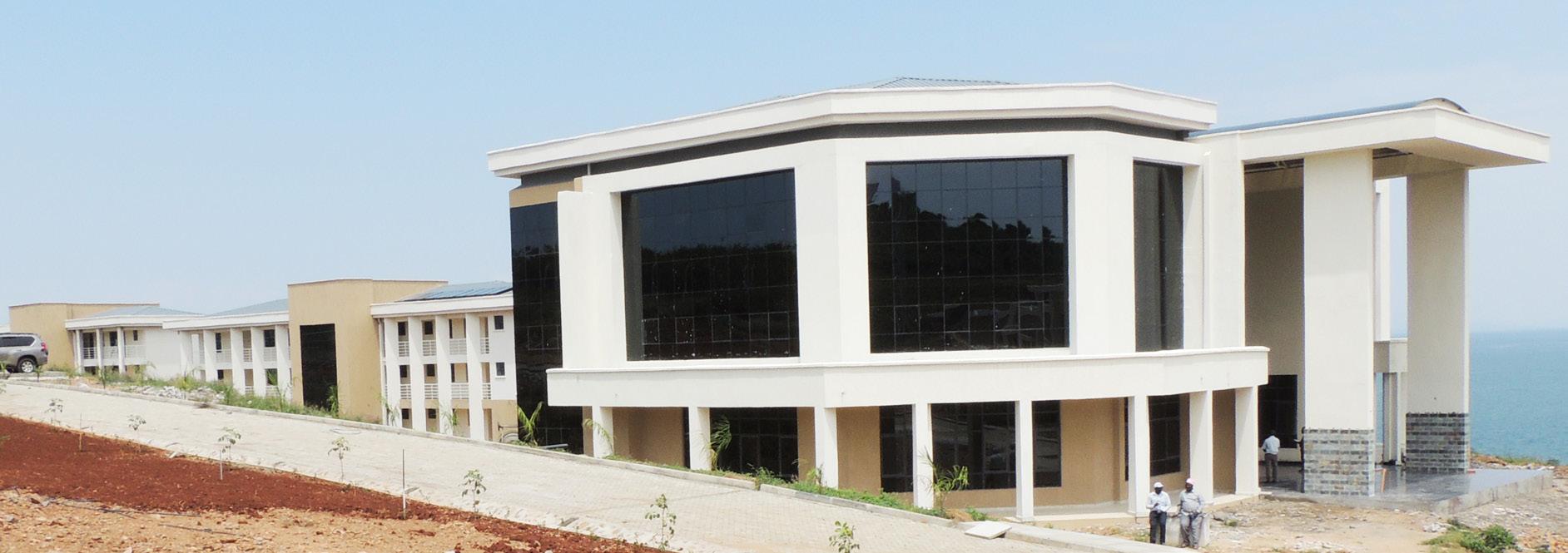
Moi University Science and Technology Park, an already established African Centre of Excellence, will focus on renewable energy, phytochemicals and garment manufacturing, while the Maseno University Science and Technology Park will be an open ended STP based in the Western Technology Corridor.
A Science and Technology Park (STP), also known as a research park, technology park or innovation centre, is a purpose-built cluster of office spaces, laboratories, workrooms and meeting areas designed to support Research and
THE PLATFORM FOR HIGHER EDUCATION
Govt to establish 14 commercial research centres at public Varsities
Development (R&D).
It is an organization managed by specialized professionals, whose main aim is to increase community prosperity by promoting a culture of innovation and competitiveness.

Other proposed STPs, which are in different stages of establishment, include Chuka University Science and Technology Park (Central Technology Corridor). Its construction is currently ongoing and will focus on environmental conservation, protection and renewable energy.
University of Kabianga Science and Technology Park has been proposed to focus on value addition to agro-produce and related technology development.
Report reveals varsities aren’t prepared to integrate CBET
By Erick NyayieraA report by the Directorate of University Education has revealed that many institutions of higher education aren’t prepared to integrate Competency Based Education Training (CBET) in their curricular.
In the report titled Sustainable Development, A Function Of Competency
Based Education: The Case Of High-
Nevertheless, the level of preparedness of institutions of higher learning in Kenya to effectively mainstream CBET in their curricular and thus remain relevant in meeting new research, innovation and technological challenges geared towards the attainment of a middle level economic status is to a large extent unexplored.
er Education in Kenya, Dr Samuel M. Njehu and Eshphan W. Kingoru (from the Directorate of University Education) revealed that the institutions of higher learning in Kenya still lack the capacity to implement CBET in their training components.
The report findings attempted to justify the integration of CBET in university education and its ensuing implications on sustainable development in Kenya.
“Education for sustainable development is tremendously gaining currency as a core element of education systems and has gained considerable attention as an enabler of sustainable economic progress. To this end, developed nations as well as emerging economies are consistently adopting more sustainable intervention measures which are pillared on appropriate education with the potential to sustain their economic, social, educational and environmental levels among other levels of development,” read the excerpt of the report.
According to the report, CBET comes as a pathway for creation of an
Egerton University Science and Technology Park, which is an established African Centre of Excellence with a focus on genetic engineering and biotechnology, will form the Rift Valley Technology Corridor.
The Western Technology Corridor brings together Masinde Muliro University of Science and Technology (MMUST) Park that will be biased towards manufacturing, agricultural machines, equipment and tools, and agroproduct processing and value addition/ manufacturing, and Jaramogi Oginga Odinga University of Science and Technology (JOOUST) Park, an already established African Centre of Excellence with a bias on fisheries, food security and
education platform which will impart graduates with skills and competencies that will make them active, creative co-operative and capable of combining theoretical knowledge with innovative and practical ideas.
“Nevertheless, the level of preparedness of institutions of higher learning in Kenya to effectively mainstream CBET in their curricular and thus remain relevant in meeting new research, innovation and technological challenges geared towards the attainment of a middle level economic status is to a large extent unexplored,” the report noted.
The report further revealed that low understanding of CBET concept, inadequate support facilities and resources, large number of students in training classes, lack of motivation from trainers, low cooperation and poor attitude from students are some of the challenges causing CBET integration in institutions.
“A notable hiccup in implementing CBET in higher education is the standardization of the mechanisms in which competencies or skills are assessed. CBET largely is centered on a personalized learning approach which focuses principally on subject mastery notwithstanding the place, time, and pathway to completion.” The report summarized.
aquatic sciences.
At the Kenya Coast Corridor, there are two STPs to be developed: Taita Taveta University that will focus on mineral processing, fertilizer, cement, jewelry, and semi-conductors, and manufacturing, and Pwani University STP, which is being positioned to train on the blue economy.
The primary activities undertaken in an STP are aimed at changing codified knowledge into products and services through research and development, strategic thinking, re-engineering and reverse engineering, among others.
The parks also play a central role in supporting start-ups in converting their ideas into commercially viable products (through incubation mechanisms), and then helping them scale up and develop sound business plans and models
(through acceleration), thus playing a key role in accelerating growth and productivity of start-ups.
According to MoE, the STP activities are faced with a number of challenges, like approximately 90 per cent of startups failing in the first year and 50 per cent failing by the 5th year, hence the need for the parks to ensure the success of commercialization and value chain.
UASU asks CS to arbitrate in their salary tiff
The Universities Academic Staff Union’s (UASU) Maseno Chapter has appealed to education Cabinet Secretary (CS) Ezekiel Machogu to intercede in the salary arrears standoff that is bedeviling institutions of higher learning in the country.
Speaking in Kisumu during their AGM, the chapter chairman Dr George Kotuto said UASU members across the country are owed arrears worth billions of shillings.
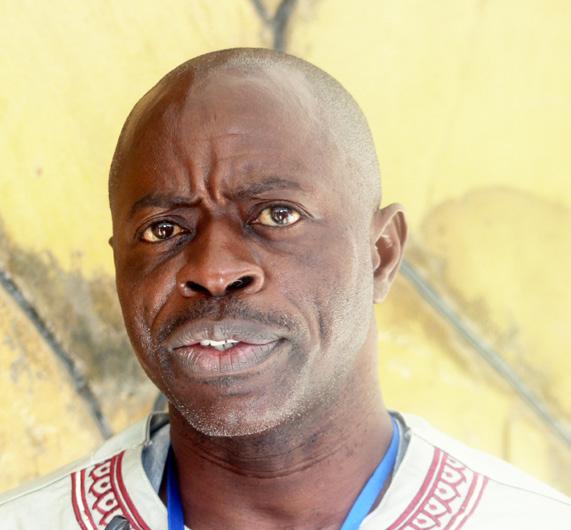
He said some of the Collective Bargaining Agreements(CBA) dating back to 2017 were yet to be honoured.
“We are at the moment waiting for a counter offer from the government in order to see the way forward,” he said.
He said the 2017/2021 deal was now obsolete, calling for fresh meaningful negotiations.
Dr Kotuto pointed out that some of the challenges range from salary arrears of senior staff to low funding of public universities.
He also decried the low level of funding to institutions of higher learning that has compromised research and innovation.
During the last AGM, lecturers complained that their bargains were not taken seriously even after agreements had been reached.
Far from salaries, they pointed out that some university buildings had no wheelchair ramps for staff who are physically challenged.
In this meeting, it was resolved that they will in future appoint a local auditor to work on their books of accounts.
The Science and Technology parks will play a big role in supporting start-ups and also commercializing research and innovations, which will boost universities financial status since they will be used to internally generate income.The Research Hub under construction at Jaramogi Oginga Odinga University of Science and Technology (JOOUST).Photo /Erick Nyayiera Fredrick Odiero UASU Maseno Chapter Chairman Dr George Kotuto
Six African varsities partner to establish PhD Hub
By Patrick AmunaviSix universities in Africa have formalized a partnership with UK based Nottingham Trent University(NTU) to broaden their pool of doctoral students and supervisors, develop research capacity and training, build international partnerships, share physical facilities as well as expertise through a network of peers and the establishment of the Eastern Africa PhD Hub that will serve them all.
The institutions include: Jomo Kenyatta University of Agriculture and Technology (JKUAT), NTU, Makerere University, University of Malawi, Mount Kenya University (MKU), Kenyatta University and Rongo University.
Speaking during the signing of the MoU in Limuru in Kenya, NTU Vice Chancellor Prof. Edward Peck underscored the importance of strengthening the doctoral supervision process, terming it “a key component in ensuring success for candidates and developing leadership skills in our universities and the wider society.”
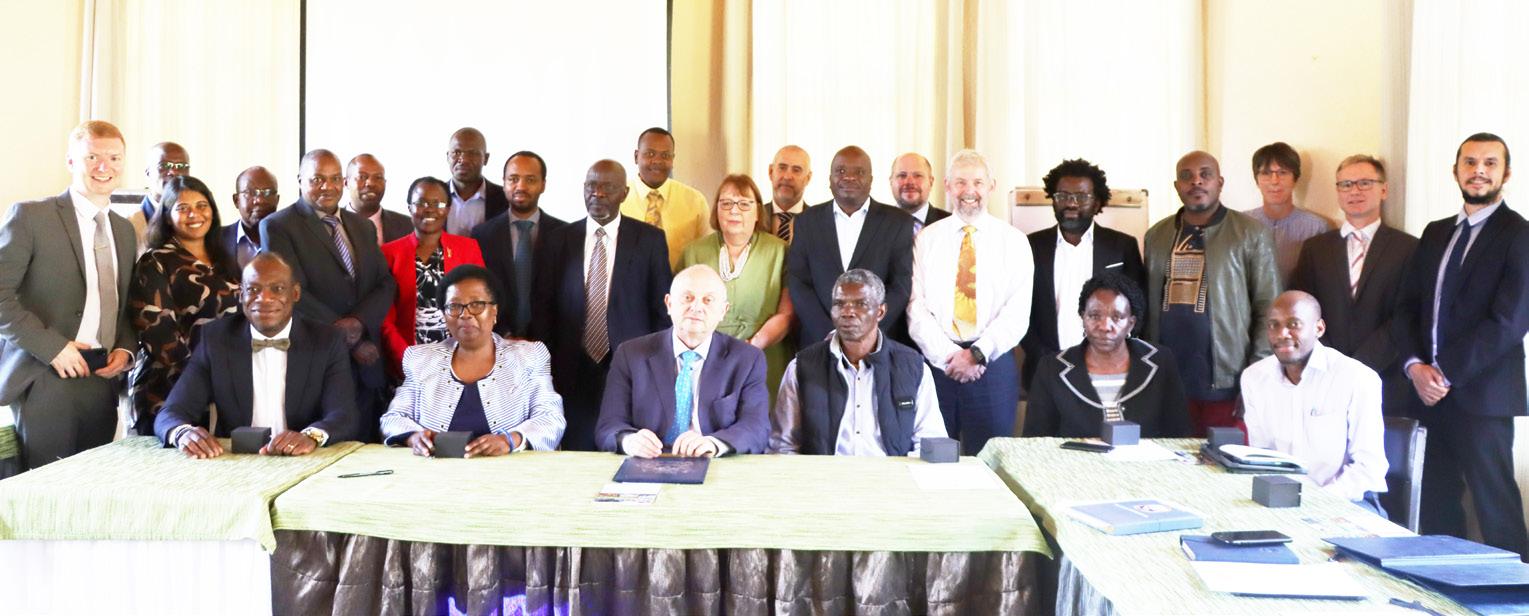
Prof. Peck said he is excited to see how the partnership is in line with the core principles of NTU’s strategic plan.
“This past summer, 40 students and 20 staff members from Makerere, MKU and JKUAT , who were part of the Erasmus International Credit Mobility project, shared knowledge and ideas on topics of global importance such as public health, food security and the environment,” he said.
He lauded activities at the Centre for Ecological Restoration at Brackenhurst in Limuru where JKUAT and MKU are collaborating to deepen the concept of embracing sustainability and connecting globally, with a strong commitment to the UN’s Sustainable Development Goals.
JKUAT Vice Chancellor Prof. Victoria Wambui Ngumi committed to support the establishment of the Eastern Africa PhD Hub, noting that the initiative was profoundly justifiable as the challenges PhD students encounter are quiet alarming.
She stated that the unique component of intro
ducing the perspective of initiating PhD supervisors into supervision and mentorship alongside the PhD students provides a solution-based approach in a more diversified manner from a global partnership perspective.
She acknowledged Dr. Jackline Nyaberi from JKUAT School of Public Health and her colleagues working on the partnership for their great work and encouraged them to work in a collaborative spirit to further accomplish the aims and objectives of the Eastern Africa PhD Hub.
The partner institutions represented at the ceremony re-affirmed their commitment to the partnership, which they agreed, would be beneficial to them.
After formalizing the partnership, the partners retreated to a two-day workshop that deliberated on various pertinent topics amongst them, understanding doctoral supervision in partner universities, developing mentoring programme and developing a strategic research plan.
It is envisaged that the Eastern Africa PhD hub model will operate through a working consortium of the partner universities and it is poised to be a vibrant forum for best practice for PhD students.
NTU is strategically committed to building global partnerships in order to nurture global citizenship, engaging the international research community and attracting talented students and staff globally. Through the Global Strategic Partnership Fund, NTU has committed resources to support interested parties to develop the Eastern Africa PhD hub.
The Hub seeks to build and increase capacity in PhDs as well as shine a spotlight on the quality of doctoral supervision. By strengthening doctoral supervisory training, PhD programmes will build capacity to support more candidates complete their doctoral studies.
Once operational, the Eastern Africa model for PhD supervision will enable students to draw supervisors from any university in order to gain access to expertise.
Education ministry mulls over funding of performing arts in local varsities
By Erick NyayieraThe Ministry of Education (MoE) is considering a proposal to finance the activities of Kenya Universities’ Performing Arts Association (KUPAA), with a view to fully fund artistic talent in local higher learning institutions.
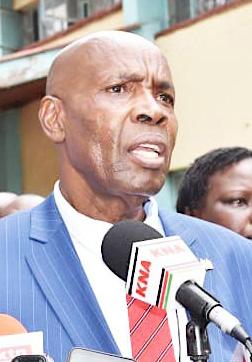
Education Cabinet Secretary (CS) Ezekiel Mochogu, in his remarks during the 4th National KUPAA festival, 2022 edition that encompassed drama, beauty pageantry, visual arts and film production hosted by Jaramogi Oginga Odinga University of Science and Technology, JOOUST, assured the association of the government’s support in the forthcoming festivals.
The CS noted that the funding is an investment as the arts can help cities attract talent, spur innovation, and grow their economies.
“In this regard, I would like to appreciate all the Vice Chancellors (VCs) of all the participating universities for providing funds to students and staff to come and take part in this very important activity. It is upon you students to reciprocate by working hard and maintaining discipline to get value for money,” noted Mochogu.
He said the investment is geared towards development of talent in performing arts and has a long and sustainable payback to participants and the nation.
“In the same vein, I wish to express my gratitude to you student actors and must also congratulate you for your creativity and innovativeness, alongside your trainers who have taken time to guide and mentor you to this extent,” he
added.
The CS reminded the young artistes that by participating in the festival, they were showing commitment to creating art within a societal context, supported and cushioned by the conditions of current times that include availability of resources, existing technology, intelligence, knowledge, and economic, political, social, cultural and religious or philosophical inclinations of the moment.
He added: “I particularly wish to recognize JOOUST for taking the bold step to host the 4th National KUPAA Festival. It is not easy. I also wish to recognize the Ministry of Sports and Culture for taking the initiative to register KUPAA in order to provide unlimited opportunities to our young artistes.”
The fourth edition of KUPAA festivals saw students from over thirty universities across the country converge to showcase their talent.
KUPAA national chairman
Boniface Isalambo said the festival had grown both quantitatively and qualitatively. However, he regretted that not all the universities were able to participate.
"We were expecting all the 35 KUPAA member universities to participate, but due to the challenge of funding co-curriculum in universities, we were unlikely to have everyone attending," he said.
He added that the festival is student-centered and research-driven.
The event, which is expected to end on November 13, 2022, is a hot reflection of talent in drama, visual arts and beauty pageantry abounding in Kenyan universities.
JOOUST VC Prof Stephen Agong’ lauded KUPAA for organizing the festival, which he said provides learners with opportunities to not only showcase their talent, but also inspire them into job opportunities and wealth creation.
“We are happy as an institution to have hosted both the regional and national festivals,” said Agong’.
Education CS Machogu assured KUPAA of the government’s support in the forthcoming festivals.
He noted that the funding is an investment as the arts can help cities attract talent, spur innovation, and grow their economies.
Varsity dons urge state to protect budding innovators
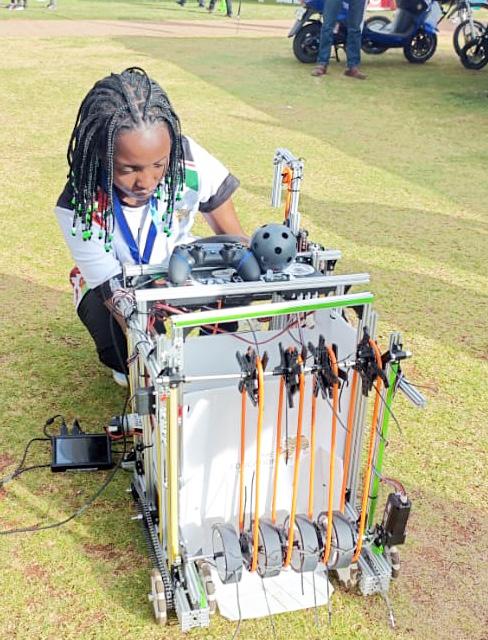 By Kamau Njoroge
By Kamau Njoroge
As research and innovation take centre stage in today’s training in higher learning institutions across the country, university dons have raised concerns over exploitation of young innovators by firms and investors.
The scholars, led by Zetech University Vice Chancellor Prof Njenga Munene and Commission for University Education (CUE) deputy CEO in charge of accreditation Prof Grace Njoroge, asserted that most young innovators are not living to enjoy the fruits of their ideas as
they are being preyed on by well established firms.
The duo, who spoke at the university’s Thika Road Campus in Ruiru, Kiambu County, said the predatory investors and companies are depriving the budding innovators their intellectual rights in what they termed as ‘Intellectual Innovations Theft’.
Prof Munene opined that most young innovators lack proper financial muscle as well as knowledge on how to protect their inventions through patenting. He noted that it was the main reason the multinationals were taking advantage of the gullible inventors.
He said that despite higher learning institutions in the country investing heavily on research, technology and in-
novations, most of their students as well as faculty members with innovative ideas do not reach the commercialization stage of their innovations due to the predators.
“This trend of exploitation of young innovators has discouraged many of them, some of them from poor families who hope to make a livelihood out of their innovations,” he said.
CUE’s Prof Njoroge said that multinationals as well as investors in the country should be assisting the young innovators exploit their potential in diverse fields instead of exploiting them.
“There is also need to strengthen universities-industry collaboration for the development of innovations in mature and emergent industries in newly industrializing countries. This will give students and
young innovators the relevant industrial exposure to enhance their innovations and skills,” she said.
She further noted that the formal sector was absorbing only 10 per cent of labour at the moment, adding that the remaining 90 per cent is left to be filled by technology and innovations.
At the university, Education News met one of the innovators, a first-year Bachelor of Science, Information and Technology student Florida Korir,18, who together with other students developed a robot that won a silver award recently in Geneva, Switzerland.
Ms Korir said the robotic and automation trends are increasingly gaining momentum in the advance of technology.
Children W rld
CBC Innovation Corner
Name of innovator: Leon Mokaya
School: Mountain of the Lord Education Center Ongata Rongai, Kajiado County Grade: 2
Age: 8
Class teacher: Dismas Ojow
Cross
word
1.Sense organ for smell
2.Even number after digit 4
3.First person pronoun in plural
5.First Deputy President under the new Constitution
6.
Children W rld
By Obegi Malack obegimalack@gmail.comNairobi County schools recently held a Paukwa Kids Open Day, a festival that brings together pupils through plays, songs, folk dances, poems, STEM demos, artworks and so much more fun items.
Paukwa festival celebrates goodness through art
The Competency-Based Curriculum (CBC) is living up to its expectation; helping children to explore their innate talents, skills, abilities and inclinations.
Leon Mokaya, a Grade 2 pupil at Mountain of the Lord Education Center in Ongata Rongai, Kajiado County, is a good testament of how the new system of education can
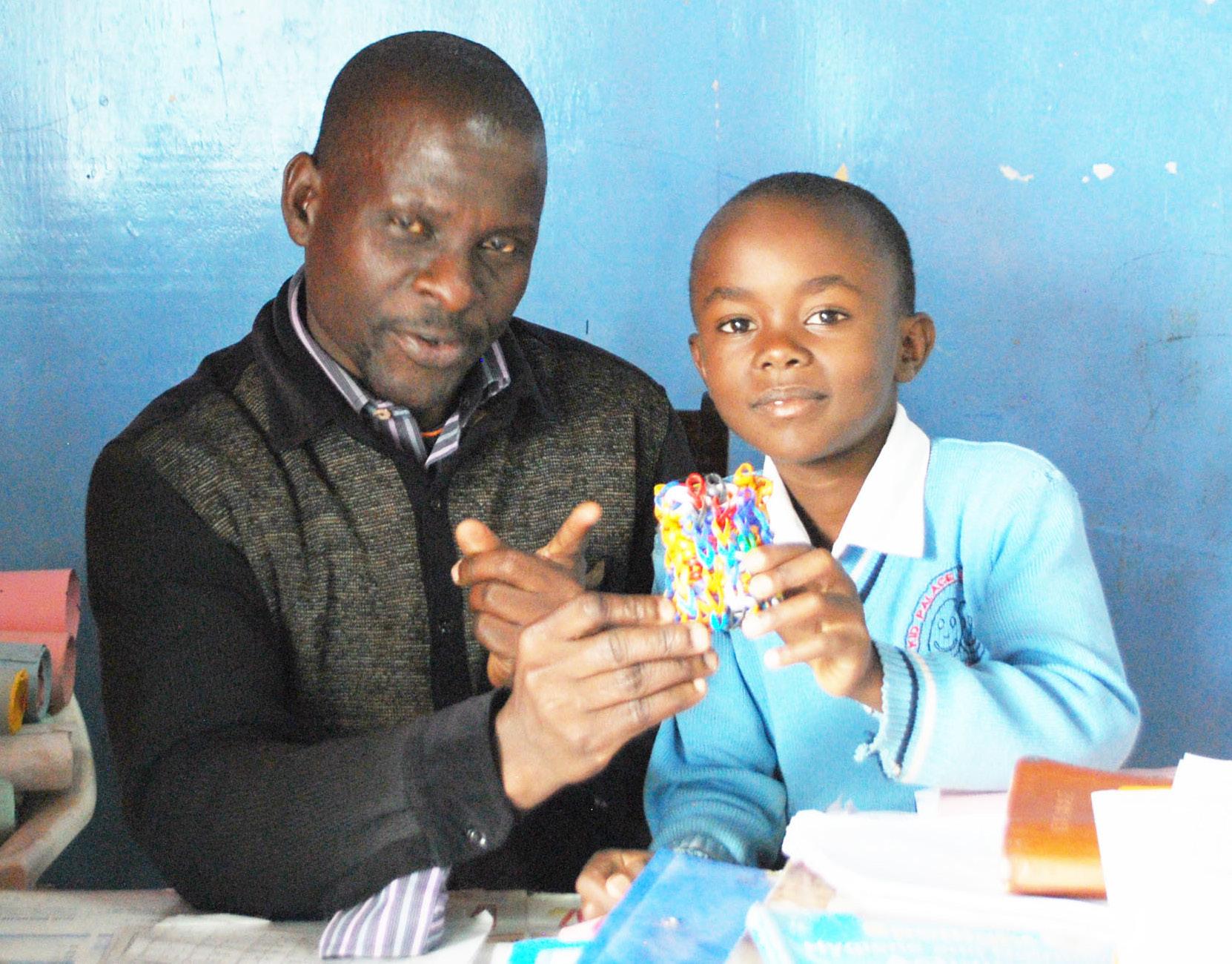
Innovation: Making a basket from bottle top seals.

transform a pastime to a serious venture.
Plastic bottle tops may not be worth your attention once you are done sipping the contents, but not so for the 8-year old who hunts for them to extract the precious seal. What he does with them having collected enough is amazing; he tangles them together into a long
weave that he uses creatively to design a basket. The result is a potable container that can be used to carry solid materials, including money because the holes are so overlapped that you cannot see through it – let alone squeeze the coins through. His class teacher Dismas Ojow praised his innovation as unique in the entire class.

11.
The 150 learners from 15 schools narrated their learning experiences in the Paukwa Hummingbird Tales, a celebration of talent whose aim is to instill positive values in children. Resilience, determination, responsibility, excellence, patriotism, hard work, service, care, peace, love, compassion, passion, justice, and humility are some of the virtues that Hummingbird desires to be portrayed in children.
7.
8.
9.
10.
Most of the presentations were about climate change, peacefully coexistence, good leadership, and many other community issues.


Paukwa Kids leader Ann Thuo said learning has moved from traditional ways to digital platforms.
“The children are more responsive and learn quickly when we use the cartoons model,” she said.
Hassan Kuya, a teacher at Tujisaidie Community School, said teachers have been taken through what Paukwa does, and it was time learners took it up.
“The learners interacted with the Paukwa characters and can now relate them to real people,” he said. Also present was Kenya
Poetry
Poetry is written to be enjoyed through recital, or better still, sang. If you can create a tune for a poem, then you will have taken a good step towards a better understanding. We begin our column with a short beautiful poem with questions that you may attempt.
National Library Services (KNLS) officer Mary Munanga, who invited schools to utilize library services, saying they are affordable and exposed children to diverse reading experiences.
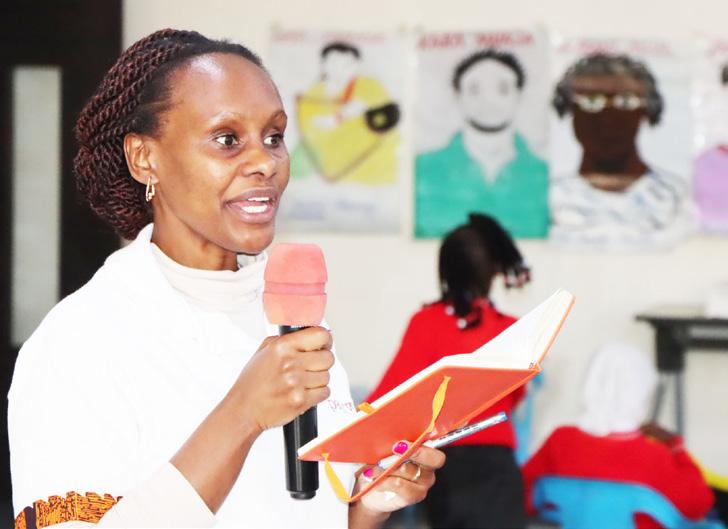
Paukwa Kids designs and produces educational content for children.

Since 2021, it has been working with children
drawn from the low income areas of Nairobi to treat them to the Hummingbird tales animations, which feature inspirational life stories of Kenyans.
The Owl and the Pussycat
By Edward LearThe Owl and the Pussy-cat went to sea
In a beautiful pea-green boat, They took some honey, and plenty of money, Wrapped up in a five-pound note. The Owl looked up to the stars above, And sang to a small guitar, ‘O lovely Pussy! O Pussy, my love, What a beautiful Pussy you are, You are, You are!
What a beautiful Pussy you are!’
Questions
1. What is the poem talking about?
2. What in line 5 suggests the time this is happening?
3. What does the honey in line 3 connect to line 7?
4. What do you know about the relationship between cats and owls?
5. Does your knowledge help you understand the poem?
6. List all the words that are repeated in the poem
Answers and a new poem will be published in the next issue. You can also send in your own poem for consideration.
Dear readers:
Kindly send your observations or views on children matters to editor@ educationnews. co.ke.
Note that the Editor reserves right to edit your articles for purposes of clarity and precision.
TERTIARY INSTITUTI NS
Shedding light on TTCs, TVETS, ECDE, other Colleges EDUCATION
TTI stakeholders’ proposals to the Presidential Working Party on Education
KCPE/KCSE trainees go for National Vocational Certificate in Education and Training (NAVCET) programs at youth polytechnic centres for trade test grade 3-1. When they join TVCs, they meet trainees who haven’t gone through the programmes at artisan level hence there is need to give them a waiver in the units they have covered in the trade test levels,’’ the report read in part.
By Benedict NgetichKericho Township TTI Principal
Mr Shadrack Tonui has called for a review of the rules governing progression of KCPE/ KCSE learners from Vocational Training Centres (VTCs) who join Technical and Vocational Colleges (TVCs) to pursue artisan courses.
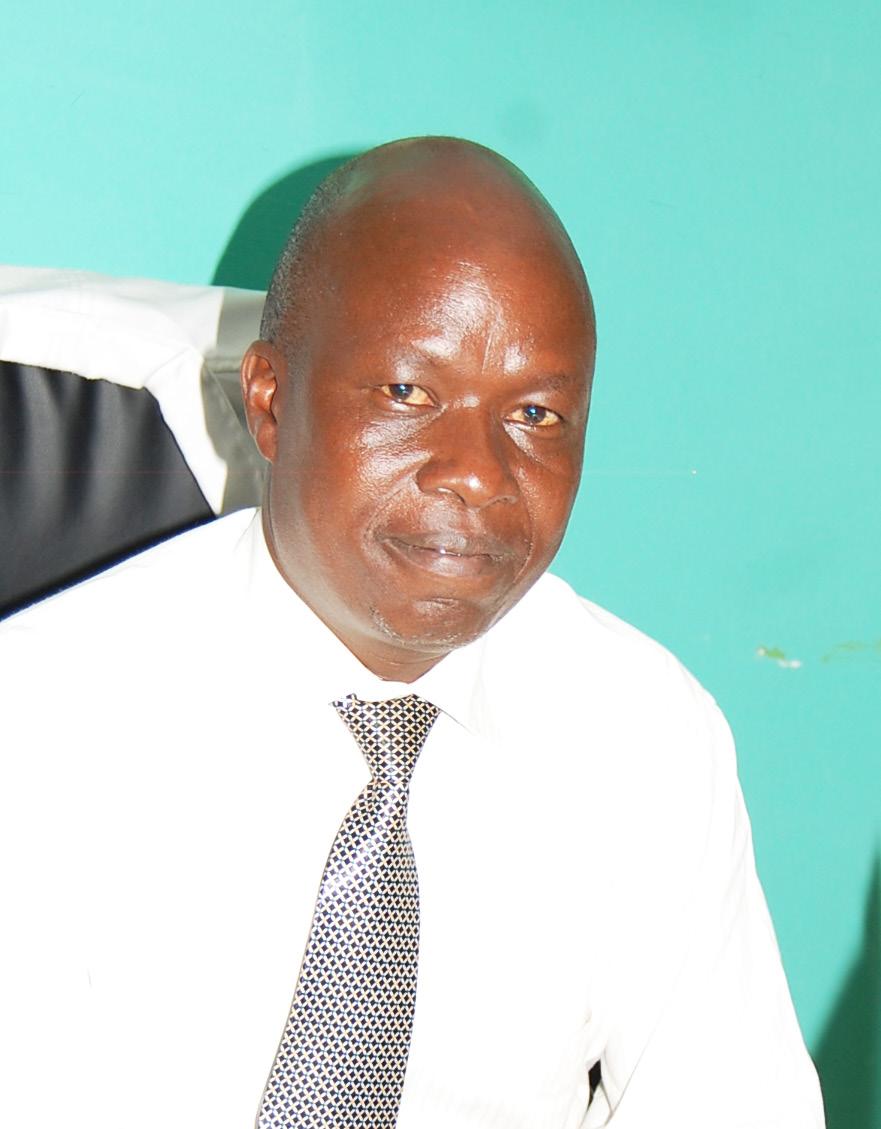
The principal, together with Board Chair Dr Reuben Langat, presented the proposal in a report to the Presidential Working Party who visited the institution before holding other sessions at Kericho Teachers Training College.
“Currently the pathway allows
The report also asked the Public Service Commission (PSC) to clearly recognize Higher Diplomas as an equivalent of a degree.
“There is need for these qualifications to be recognised as one grade,” the report read, further stating that the Kenya National Qualifications Authority (KNQA) has recognized the same for KMTC graduates.
The issue of irregular transfer of TVET principals was also addressed in the report.
“A principal can be transferred from an institution with a student population of 1,000 to start a new school. Some principals have been moved to more than three stations within two years, a move that has denied them an
KMTC Higher Diplomas now equivalent to University Degrees
By David Kipkoriropportunity to witness for themselves the fruits of their labour in their previous stations,” the report read, further stating that deployments should be justifiable and be carried out with humane consideration.
The report further raised the issue of inconsistent disbursement of capitation.
“Every TVET trainee is supposed to benefit from Ksh. 30,000.00 government capitation annually yet institutions have been missing some quarters of the said funds. We have so far missed two quarters: 4th quarter 2022 and 3rd quarter 2021. In the few instances we have received capitation, it’s always proportional to half the enrolment of trainees. The situation is so bad that most students have huge fee arrears and some have totally dropped out of school,”
To remedy this persistent challenge, the ministry should broadly look for better ways of addressing this concern.
A review of how new colleges are funded and construction of more learning facilities in the institution was also addressed in the report.
Kenya Medical Training College (KMTC) has received a certificate of registration and accreditation from the Kenya National Qualifications Authority (KNQA) following a successful evaluation and subsequent endorsement as a Qualification Awarding Institution (QAI).
Following the accreditation, the College’s Higher National Diploma Qualifications now fall in the KNQA level 7 which makes them equivalent to the Bachelor’s degree, Certified Public Accountant (CPA) III, Certified Public Sec-
which were fully aligned to Kenya National Qualifications Framework (KNQF) requirements for accreditation, have been registered onto the KNQF portal.
Technical officers from both KNQA and KMTC are currently working towards ensuring the remaining qualifications are registered before the end of the year.
KMTC CEO Kelly Oluoch said the college will continue to enhance its processes to ensure the quality of graduates it releases into the market meet the expectations of employers as well as those they serve.
By Stephen MarangaEngineering technologists have been urged to embrace modern technologies and share them to foster their work and contribute to the country's technological and industrial growth.
Institution of Engineering Technologists and Technicians (IETT-K) Vice Chairperson Eucabeth Gwaya insisted they must adapt to remain relevant, saying technology is changing fast.
She challenged professionals to be innovative to meet the needs of society and help transform the world through technology.
"Our core values are professionalism, integrity, accountability, transparency and timely service delivery," Gwaya, accompanied by secretary Alice Mutai and organizing secretary Moses Gichana, told stakeholders at a Kisii hotel.
She said technicians play a vital role in the country's industrialization, adding that some have managed to modify vehicles to reduce fuel consumption, thus reducing costs.
The official said the technologists are applying new scientific techniques and knowledge and are equipped with skills to enhance their practical work and technical principals.
"They identify problems, take remedial action and ensure performance-based criteria are satisfied within a safe and sustainable environment," Gwaya explained.
Technologists, noted the official, can manage engineering technicians engaged in inspection, approval, and cer-
tification of designs, tests, installations and reliable operations.
“Engineering technicians assemble equipment, test component parts of devices designed by others and are supervised by an Engineer or an Engineering technologist," Gwaya noted.
She said vocational technicians are also trained to specialize in a given area with less emphasis on scientific or mathematical principles, adding they fabricate products and materials according to specified designs.
"Vocational technicians use hand and power tools to service, maintain and operate machines or products useful to the engineering team," Gwaya said.
She added that registered Engineering craft persons are highly skilled in a craft or art, and can deal with specific and well defined engineering problems and activities in the system.
The sector has since registered about six thousand Engineering technologists, who are degree or higher diploma holders, technicians, and from other Engineering fields.
retary (CPS) or Master Craft Person I. Presenting the certificate, KNQA Acting Council Chair Rosemary Njogu lauded the College for the integral role it continues to play in Kenya’s health sector.
“Keeping in mind that the College’s courses are designed to build critical medical skills while incorporating the effective use of modern technology, the accreditation as a QAI will bear significance in Kenya’s medical field and the African Health Sector by extension,” she added.
Zachary Muburi-Muita, KMTC board chairperson, said the decision to register qualifications and learners with KNQA builds confidence in the college’s programmes and has opened new opportunities to attract as well as enrol more foreign students.
“It has also positioned KMTC as the premiere Middle-Level Medical Training College in Kenya and beyond," he added in a speech read on his behalf by KMTC Director and chair of the Academics, Standards and Ethics Committee Naomi Mutea.
He added: “It gives me pleasure to note that now our graduates are linked to training and career opportunities globally since their qualifications are aligned and verifiable to potential employers as well as higher education institutions.”
A total of 42 KMTC qualifications,
“This accreditation provides an assurance that our programmes are recognised worldwide and in return their comparability with qualifications of institutions of higher learning enhances employability of our graduates,” he added.
Towards ensuring the quality of the college’s processes, Oluoch said KMTC would continue to develop and implement sound strategies as well as leverage technology. It will also continue to innovate to enhance excellence in its training programmes.
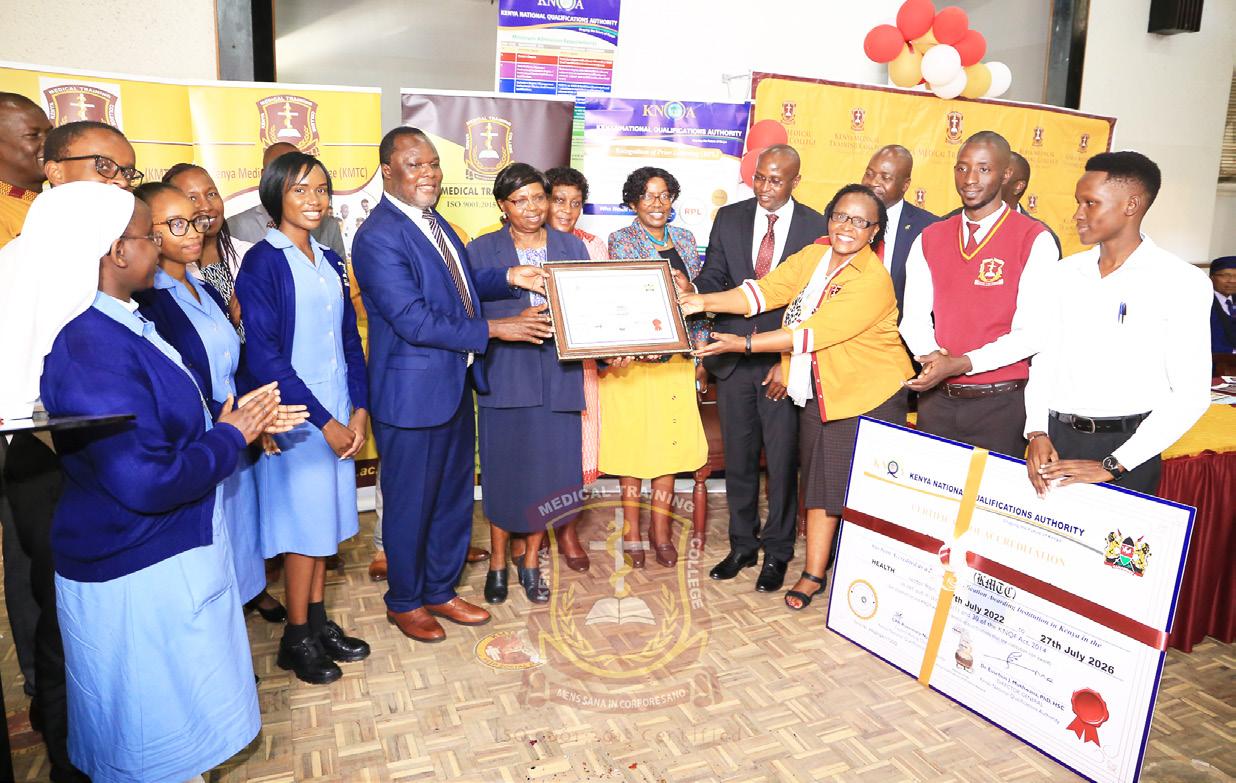
Juma Mukhwana, outgoing KNQA Chief CEO, noted that to remain competitive in a dynamic world, the college would need to continually focus on enhancing accessibility of its training programmes.
This, he said, can be achieved by strengthening quality to meet international standards and relevant applicability of skills in the labour market.
KMTC Deputy Director Academics Nyawira Mwangi said the college currently offers 93 courses, developed in line with local and international health training needs as well as market forces.
The college has so far registered 57,268 graduates, who completed their training between 2016 and 2021, with KNQA. A further 16,000 students set to graduate on December 1 are earmarked for registration.
Technical specialists asked to keep abreast with emerging technology to remain relevantMr. Shadrack Tonui, Kericho Township TVC Principal KMTC CEO Kelly Oluoch receiving the certificate for exemplary performance
Professionals need to be innovative to meet the needs of the society and help transform the world through technology.
-IETT-K Vice Chairperson Eucabeth Gwaya
Social stigma affects children with disability, says VTC manager
By Enock Okong'oCommunity misconception and stigma relating to children with disability have remained a hindrance to giving them the necessary assistance.
This is according to the manager of Kisii Vocational Rehabilitation Centre Joseph Owino, who said these vices lead to increased negligence and discrimination of the children.
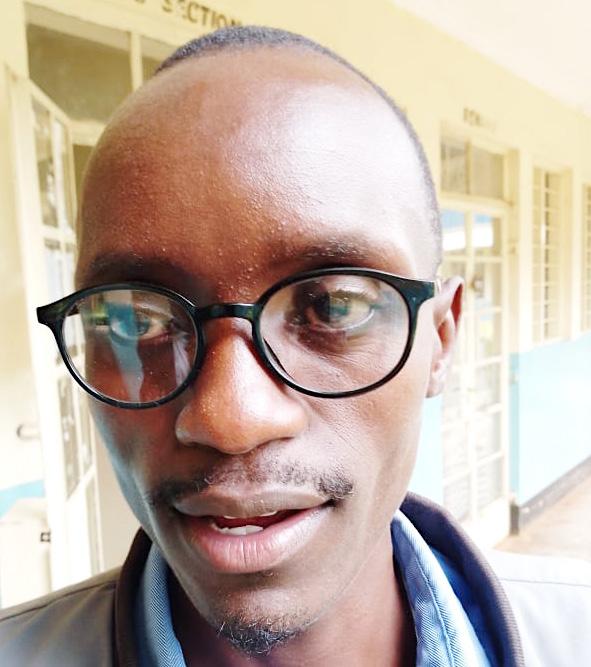
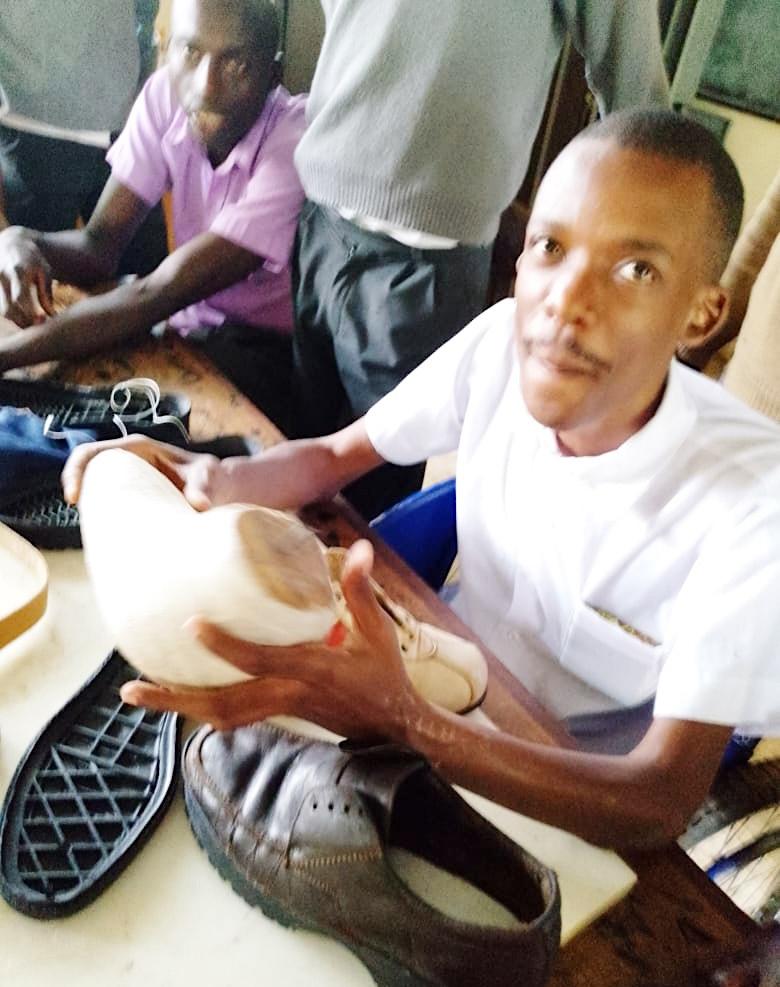

Speaking to Education News in his office, the manager appealed to parents not to hide their disabled children because of perceived shame, but instead expose them to learning
institutions to realize their potential.
The manager told parents, service providers and the public to appreciate this group of children and accord them the right to good health, shelter and quality education because it is their obligation.
He said that the social, industrial and spiritual skills inculcated in the learners will help them fit in the changing world.
He highlighted a few problems like inconsistent financing and shortage of relevant teachers, but thanked the SDA church that has always stood with them at their time of need.
Closure threat to Kigari Teachers College alarms local leaders
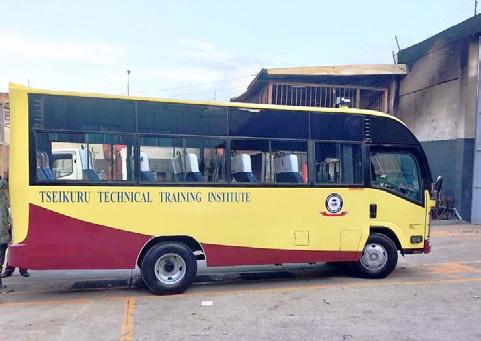
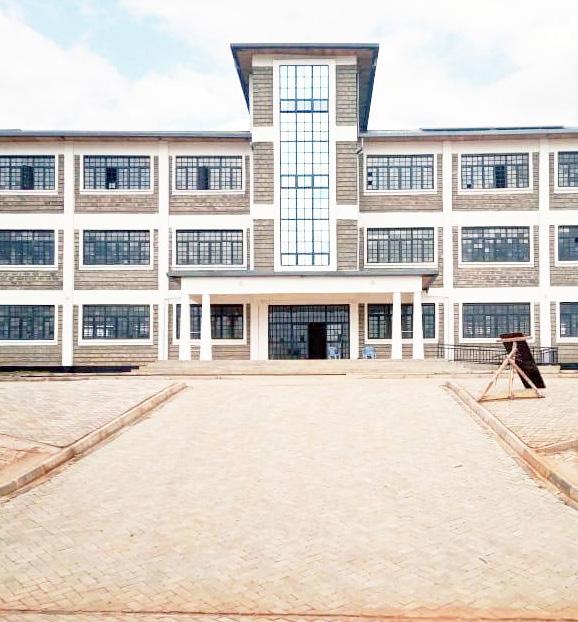 By Musyoka Kaleti
By Musyoka Kaleti
Concerns have been raised over the status of Kigari Teachers College, which is now on the verge of collapse due to lack of students.
Several leaders are concerned that enrollment has dropped from its full capacity of 1,500 to a paltry 100 currently.
Ruguru Gandori Member of County Assembly (MCA) Muturi
Mwombo noted that the college has been experiencing very low turnout of students who want to take teaching course.
In what is seen to be the worst intake ever, only three students registered for the teaching course in the last intake.
Muturi said it will be unfortunate to see the old institution that was incepted in 1910 shut.
"There are 100 students against 100 teachers. This is pathetic and something must be done to restore
The Eldoret National Polytechnic gets accreditation in Prior Learning
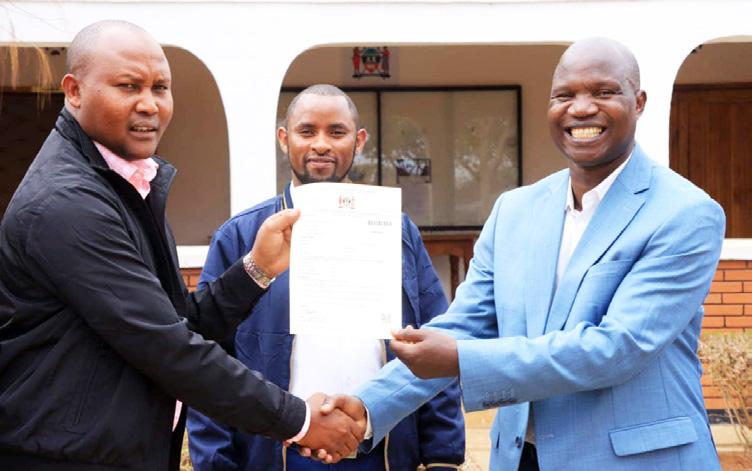
Kajiado govt allocates 50 acres to KMTC campus
the Kigari Teachers College we knew," said Muturi.
He urged parents to encourage students to take up teaching, saying it was still marketable.
Manyatta Member of Parliament (MP) Gitonga Mukunji, speaking when he was closing the drama festivals for technical and vocational training institutes, agreed and urged parents not to discourage their children from taking teaching courses.

He said his office will be giving bursaries to all students uniformly, saying those who will be joining the college from his constituency will be given priority.
"We are ready to support those who will be joining it," said Mukunji.
Kigari Teachers College was the Anglican church and has churned out many teachers who have had a strong influence across the country.
By Wasike Elvis By Obegi Malack obegimalack@gmail.comKajiado County Government has hived off 50 acres of land for the construction of a Kenya Medical Training College (KMTC) campus in Kajiado town near Kajiado Referral Hospital.
The Eldoret National Polytechnic has been accredited as Recognition of Prior Learning (RPL) Centre of excellence.

Speaking to the press after hosting officials from the Kenya National Qualification Authority (KNQA), Chief Principal Charles Koech said the institution can now
A statement from the county government details how KMTC struck a deal with them to set up the college.
Former KMTC Board chairman Philip Kaloki, then acting CEO Phillip Kiptoo and Governor Joseph Ole Lenku met in 2018 to finalize the deal.
This will be the second campus in the county after the Loitoktok Kajiado South campus. The national government also promised to build another campus in Ngong town.
During his last term in office, former president Uhuru Kenyatta said the government had allocated part of Ngong Veterinary Farm to KMTC Campus and a level 4 hospital.
The medical training institutions will cater for the increased numbers of students and need for more medics in the country.
Garissa Teachers College shuts after failing to pay staff
By Amoto Ndiewo Garissa TeachersCollege has closed its doors following a ten month non-payment of 52 non-teaching staff, including cooks, watchmen, carpenters and gardeners.
Speaking to the press, the principal Peter Mogoshi admitted that non-teaching staff have gone without pay since January this year.
He explained that the national government had not availed funds for two financial years and that the funds had been slashed based on the number of enrolled students.
“We used to get
develop qualifications, and assess and award certificates to qualified applicants.
He said RPL is the process of identifying, assessing and certifying knowledge, skills and attitudes regardless of how, when or where learning occurred.
“As the Eldoret National Polytechnic we want to confirm our capacity in provision of RPL that will


Ksh4.5 million but currently we get Ksh2. 2million yet our wage bill stands at Ksh1. 3million per month, ’’ noted Magochi.
Mohamed Aden, a non-teaching staff, called on local leaders led by Defence Cabinet Secretary (CS) Aden Duale to intervene.
Mohamed Abdi, another non-teaching staff, said some of them had already retired without gratuity.
“We have sought audience with the school principal who said the national government hasn’t disbursed the funds.’’ He complained.
ensure occupational standards are actually demystified and implemented within the institution,” he added.
Stanley Maindi, Director Technical Services at KNQA, said they were in the institution to launch a capacity building programme which is a five year project that started in 2020 between the government of Kenya and KNQA with MasterCard foundation.
Excel Bright Academy takes steps towards greater performance
strategies in the short and long term.
Ranked among top schools in the county, it is built on a Christian value system that has mobilized all resources around purpose to reach the full potential of every learner, highly qualified teaching staff providing the pivotal support required to keep the wheels of success revolving.
By Martin RuttoExcel Bright Academy, the pride of TransNzoia County, is mapping its way into excellence both academically and in co-curriculum with great
Strategically situated about a half a kilometre from Kitale town in Lukhuna village, it is one of the recently inaugurated schools that have taken positive steps towards all rounded performance in nurturing talent and scholarly excellence.
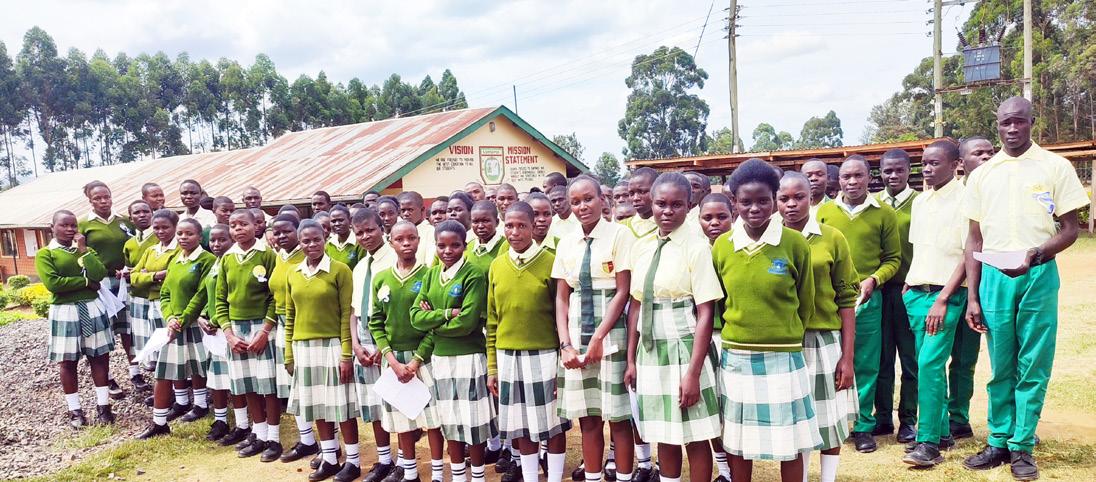

The school provides free computer lessons to all classes under the guidance of Daniel Wangila and Sarah Nakhumwa.
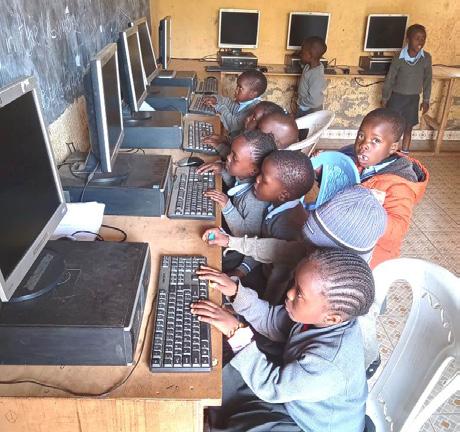
Further, educational tours are part of the plan to make their dream come true, besides the adequate recreational facilities comprising swings, tyres, merrygo- rounds and slides.
Personalized teaching and coaching is used to hone every pupil’s skill in every subject, which has put the school in top ranks amongst good institutions in the region. In 2017 for instance, they had a mean score of 325.3, sending many students to national schools.
It is run by competent
administrators, including Enock Simiyu as the head teacher, Benson Odanga the deputy, Purity Adhiambo the senior teacher and Sylvia Wasilwa as the secretary.
In total, the school has 16 qualified teachers and 5 nonteaching staff.
For the 2022 KCPE, there are 30 candidates guided by Rodgers Wabomba, the class teacher.
The school is sponsored by the Calvary Church under Bishop Winny Wanyonyi.
By Leonard AngatiaLumama Secondary School has set sights on attaining a mean grade of 4.0 in the forthcoming national exams.

The school has put in place the necessary measures to ensure the 81 registered candidates attain their target, and perhaps surpass it.
Senior Principal Nixon Sabwa, who teaches History and CRE, said the teachers are engaging the students in rigorous testing and
Lumama Secondary School poised for great academic performance
Candidates ready for KCSE
Despite a miniature of challenges, the school produced the best student in 2021 KCSE in Lugari Sub County and stakeholders have confidence in the administration which is deemed for great achievements.
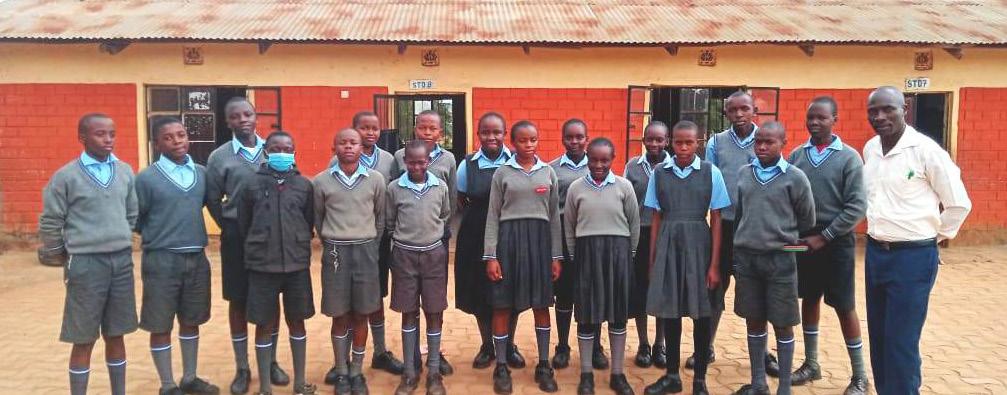
The school is sponsored by the Pentecostal Assemblies of God (P.A.G) church. It has a student population of 346 with 14 TSC
revision, inviting top examiners to guide the candidates and also encouraging parents to talk to and motivate their children for improved performance.
He revealed that he has also put in place strategies for the harmonization of teachers and essential staff welfare.
“We also worked on the students’ discipline and encouraged them to report to school very early in the morning and leave late so that much of their time is spent on studies,” he said, adding that he believes they are on the right academic track.
Mr. Sabwa, who joined the school this year from Nyamue High School in Kisii County, further revealed that he has restructured administration through departmental re-organization and cocurriculum activities enhancement to boost students’ morale.

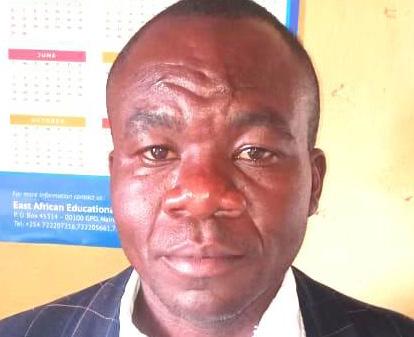
teachers, plus 5 employed by the BoM.
The senior principal thanked the BoM led by renowned academician Albert Egenya Luvisi for their input in running the school.
He revealed that the school is in the process of installing CCTV cameras and biometric data for accountability reasons.
He further noted that the school doesn’t have a multi-purpose hall, library and girls latrines. It also has limited land for expansion.
Deputy Principal Njuka Nicodemus has vast experience, an invaluable asset in discharging service. He ensures students are disciplined at all times and academic programmes are adhered to.
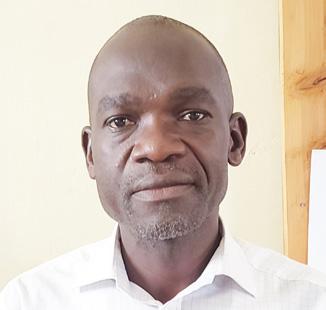
Lumama Secondary School is 2-stream mixed sub-county school located in Lugari, Kakamega County.
2022 candidates
By Kiplat KaptuyaApart from insecurity as a major stumbling block to development in West Pokot County, illiteracy and food insecurity are things that should also be given first priority.
Keen observers on the ground say that for decades, the Pokot community youth have resorted to cattle rustling and banditry instead of education.
Community professionals interviewed on education and food security issues revealed that the two haunting ghosts in Pokot are illiteracy and food insecurity.
They said that the county is still wallowing in illiteracy estimated to stand at 67 per cent and has only one professor and few doctors.
They noted that lack of education resulted in insecurity. However, with all the drastic measures taken by the donor community, it is their hope that these problems may soon be consigned to oblivion.
Despite the challenges, the church has played a pivotal role in promoting education. Bishops Maurice Crowley, Stephen Kewasis, Rev Julius Murgor, the late Bishop Samson Lokipuna and the late Rev Joseph Murpus have done a commendable job.
Those interviewed by Education News noted that due to marginalisation, West Pokot lags behind in development and it is among the poorest, thus depend
High illiteracy rates worry West Pokot professionals
on relief food despite the fact that it is one of the rich counties in terms of resources.
They said that tragic irony is coupled with poor environmental conditions and poor planning on the part of leaders. They propose capacity building and sensitisation of community members on education.
The first Pokot woman to join University Lillian Plapan says that there is need to increase the number of female students by fighting prohibitive cultures such as Female Genital Mutilation (FGM) and early marriages, which continue to make education among girls a dream too far.
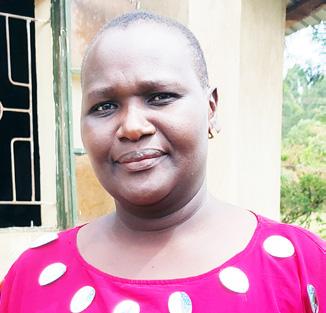
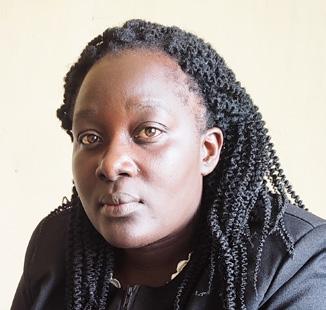
“We are trying to discard retrogressive practices which hinder girl’s education. We should not discriminate against girls. Let no girl fear boys but compete with them favourably,” says Plapan.
She urged parents to send children to school without discrimination, adding: “It is the responsibility of everyone in the county to support education initiatives.”
Kenya National Union of Teachers West Pokot Branch Executive Secretary Martin Sembelo said the government is aware of the plight of many schools in the area.
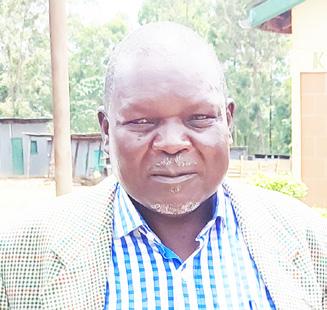
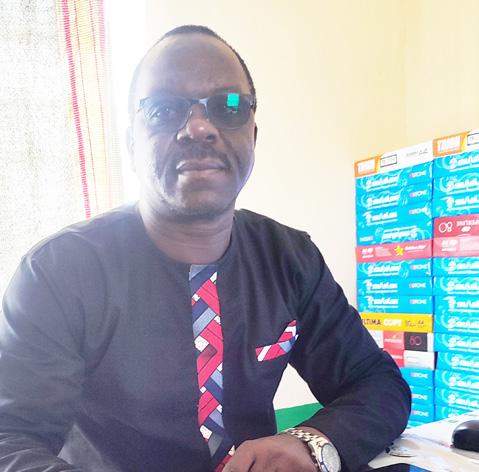
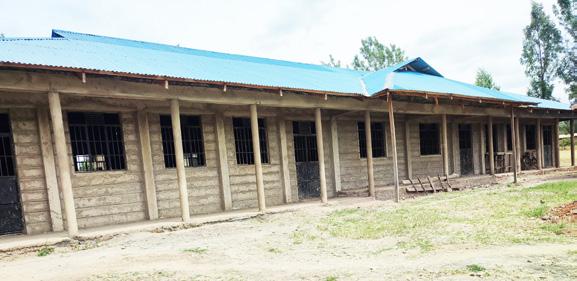
He said the area is affected by shortage of well-trained teachers and others who fail to do their work effectively, leading to learners sitting examinations without com-
pleting their syllabus.
He lamented that there is only one private teachers college and no university in the area, saying: “Every child should be given the opportunity to have basic education.”
Another professional ,Raymond Nyeris, said that many parents, especially illiterate ones, have a carefree attitude towards education and see no value in keeping a child in school. Nyeris admitted that the county has a high level of school drop outs.
Dennis Kapchok, another profession-
Children at Sarinmach area West Pokot county hunting in the bushes. Illitracy levels in the region is so high. File Photo
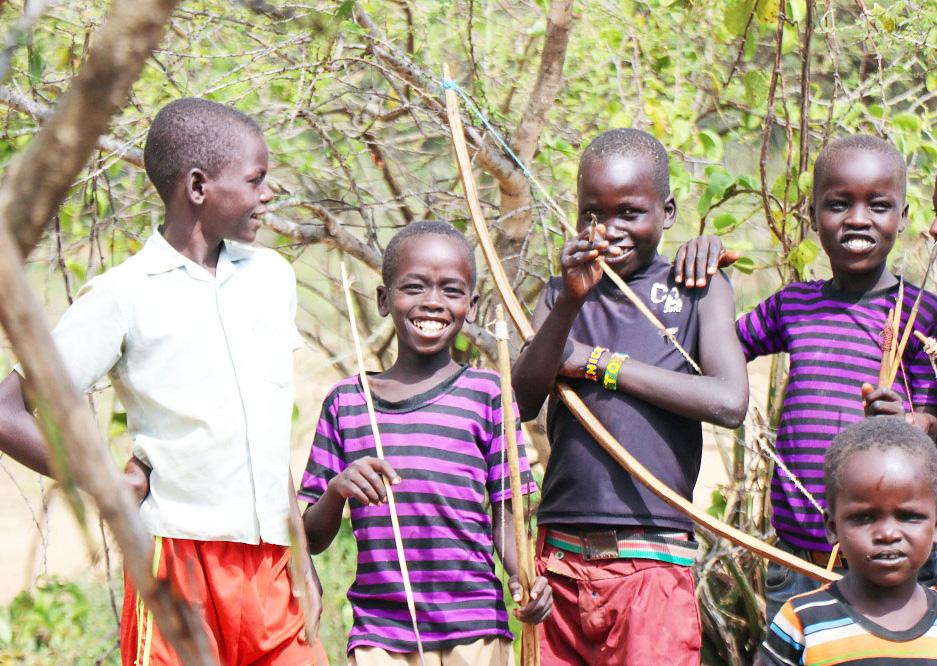
al, says many people have been dealing with short term measures instead of structural solutions.
“Hunger-affected people should not be seen on television to confirm that they are suffering,” he adds.
According to Richard Mwareng, a businessman, the needs of the poor and vulnerable that are most predisposed to hunger demand elaborate attention.
“We should make sure that clear policies are enunciated by government to target improving extension services and give credit to our farmers to assure supply of in-
puts to improve their production,” he said.
“It is time for the County to take positive steps to end hunger,” he added.
On the other hand, Governor Simon Kachapin says devolution is like independence for the Pokot community who remained marginalised and underdeveloped for decades.
“It’s now that people of West Pokot County can realise the fruits of independence through devolution,” he adds.
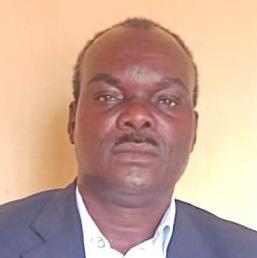
Kachapin says the county can sustain itself in terms of food, given that it has six permanent rivers namely Kerio,Suam,Wei wei, Lomut, Kanyang’areng and Muruny. “Among these, only the river Wei Wei is used for irrigation,” he said.
Kachapin acknowledges that the county has been experiencing cyclical food shortages, jeopardising economic growth.
“The culture will end if the residents will be empowered economically. Frantic appeals by organisations and individuals at the local and international levels are just but short measures,” says Kachapin.
Kachapin notes that education is a requisite tool for development.
He says efforts are needed to enable youths to gain skills to become professionals who can spur economic growth of the county.
The Board of Directors, Management and entire staff of Trans National Times DT Sacco Ltd members wish the 2022 KPSEA, KCPE and KCSE candidatesSuccess !! in their coming national exams.




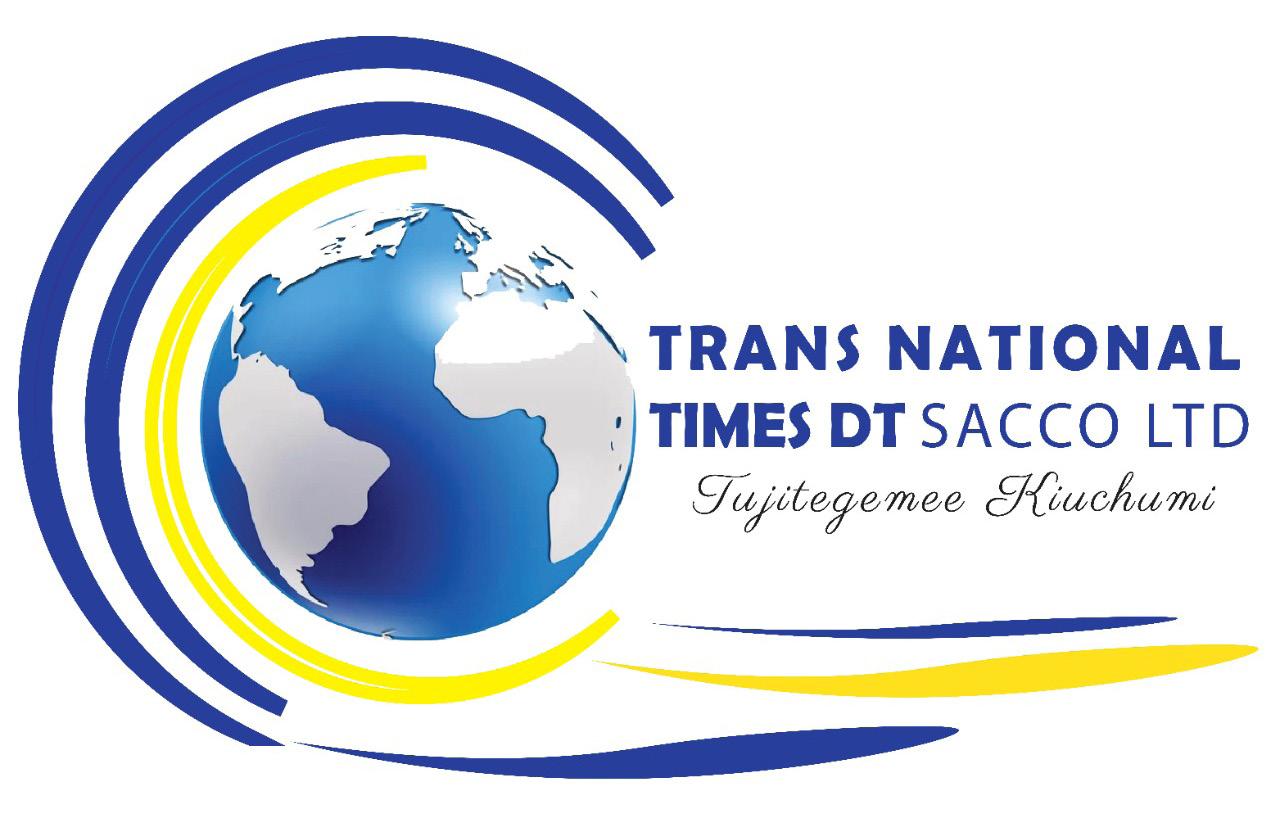
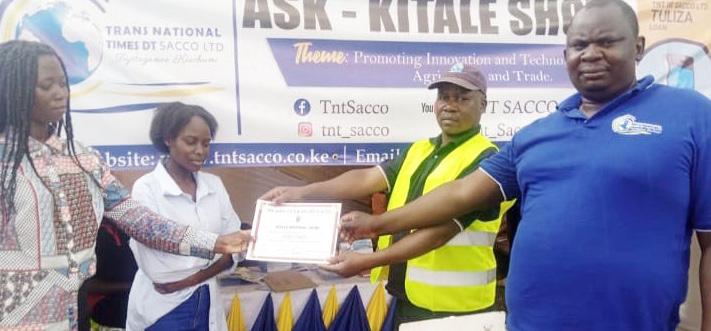
GoodLuck! Good

More Form Two boys dropout of school due to financial difficulties than girls, a new study by the Kenya National Examination Council (KNEC) has revealed.
According to the baseline study, 31.7 per cent of the Form Two boys dropout due to financial difficulties compared to 28.9 per cent of girls, calling for urgent measures to reverse the trend.
For more than five years, the Government has increased efforts to ensure 100 per cent transition for Class eight pupils to Form One.
Any drop out thus dims the prospects of ensuring all or majority of the KCPE candidates reach attain a Form Four KCSE certificate.
Additionally, low academic achievement is likely to push out more Form Two boys from school compared to girls at 18.2 per cent and 13 per cent respectively.
However, pregnancy remained the highest contributor for Form Two girls dropout 54.4 per cent.
KNEC National Assessment Centre Coordinator Eva Ngota said that Form Two girls dropout as majority of them do not report back to school after birth.
Truancy and drug abuse emerged key contributing factors for the Form Two boys’ dropout at 26.9 per cent and 16.6 per cent respectively.
The baseline survey targeted all the Form Two students in 2,147 public secondary schools in 110 sub-counties drawn from 30 counties.
Ngota said many school boys in Form Two join boda boda operations to enable them get money.
She said this while addressing over 300 Teachers Service Commission (TSC) sub-county directors during a five-day workshop at Egerton University recently.
The report revealed that 63.5 per cent of students have been absent in school at one time, with financial
More Boys drop out of Form Two than girls, KNEC survey says
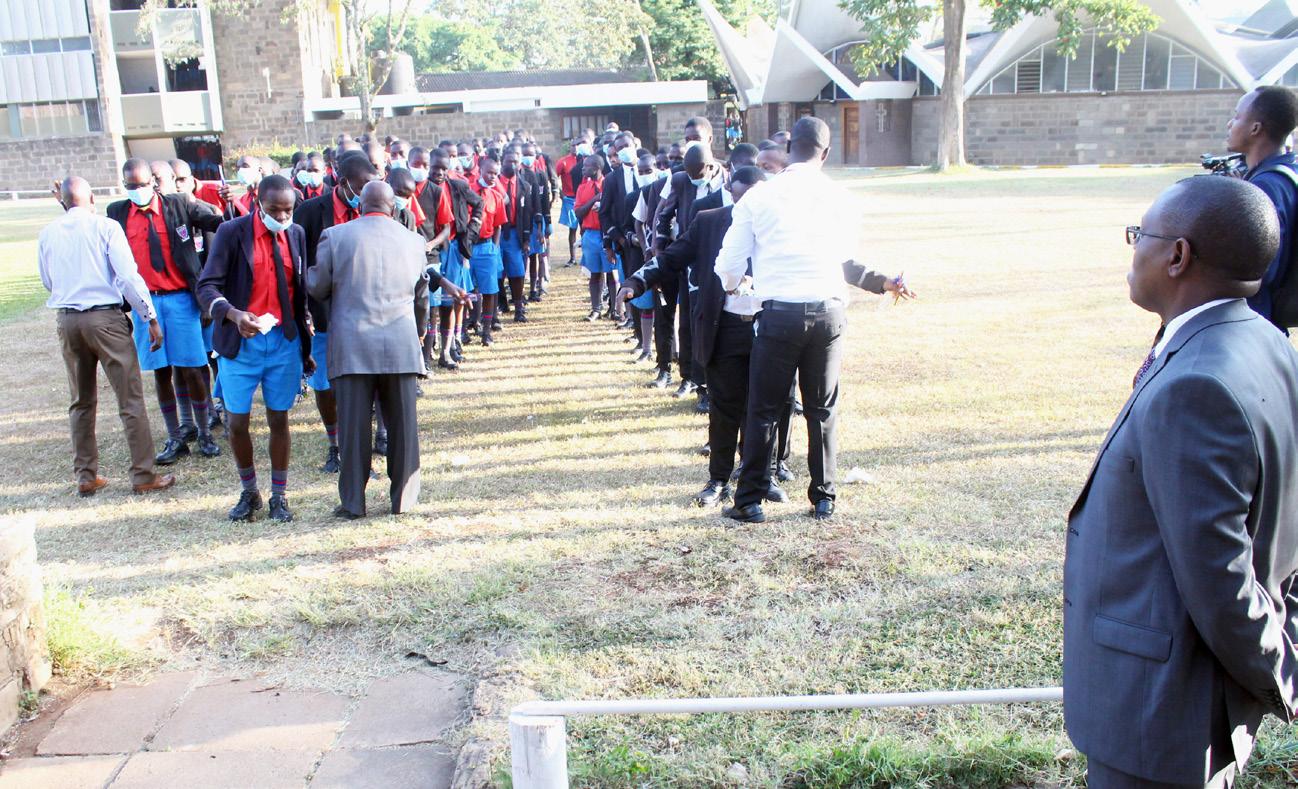
Truancy and drug abuse emerged key contributing factors for the Form Two boys’
and other stakeholders should to join hands to sensitise boys against dropping out as well as curb the high pregnancy rates.
Ngota also encouraged parents and guardians to assist girls financially to enable them proceed with their secondary education to the fourth form.
Boys and girls should also be encouraged to continue with their studies and low academic achievements should not be an excuse.
“Parents should be encouraged to advise their girls to proceed with education after delivery,” said Ngota.
Meanwhile, the report revealed that 27.5 per cent of teachers in Kenya have more workload than required as per the regulations and guidelines of the Teachers Service Commission (TSC).
difficulties cited as the biggest contributor.
“The school principals whom we interrogated about the reasons for student absenteeism cited lack of school fees as the major reason,” she said.
As a result of absenteeism, teachers and students will not cover syllabus which will contribute to poor performance in national exams.
To address these problems, non-governmental organisations
EASTERN MAKUENI
As a result, teachers cannot produce good results hence the need to employ more teachers.
The report has also revealed that 92 per cent of teachers in Kenya continued with their appraisal using the TPAD while eight per cent have not been appraised using the system.
Ngota said that the study findings have revealed that TPAD has a positive impact in the education system in Kenya, especial-
TSC Director urges examiners to uphold high level of integrity
By Lydia NgooloWith national examinations barely two weeks away, Makueni county Teachers Service Commissioner (TSC) Director Alex Cheruiyot has called upon all examiners to uphold high levels of integrity while conducting the exercise.
Speaking to Education News in his Wote office, Cheruiyot also asked for total commitment from teachers and all education stakeholders to ensure a seamless process throughout the entire period.
“It's only through devotion and commitment that we will get the best results. This county is one of the best performing and we want it to shine even more,” he said.
The Director noted that in this year’s national examinations, the county has; 29,390 candidates sitting for Kenya Primary School Education Assess-
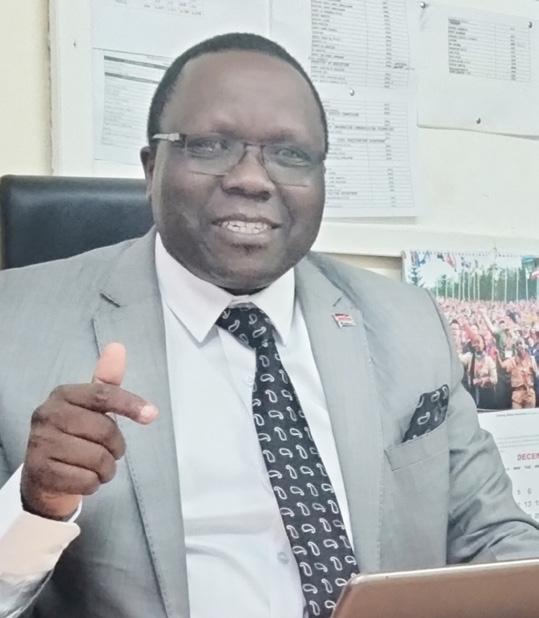 Alex Cheruiyot, Makueni county TSC director
Alex Cheruiyot, Makueni county TSC director

ment (KPSEA) where 15,404 are boys and 13,986 are girls; a total of 34,372 candidates sitting for the Kenya Certificate of Primary Education (KCPE) with 17,488 boys and 16,884 girls; and 29,518 candidates will sit for Kenya Certificate Of Secondary Education (KCSE)
where 14,560 are boys and 14,948 are girls.
“I wish all these candidates the best in their national exams and I'm sure they will do better than their predecessors,” Cheruiyot said.
He however called upon examiners to bear all the inconveniences that might arise during the period, adding that every issue shall be immediately addressed.
The Director welcomed the newly recruited 280 secondary school teachers and 270 primary school teachers attached to the county, who are being inducted.
“The induction is being conducted per sub counties. I kindly urge them to do their work diligently and uphold professionalism. I also encourage them to familiarize themselves the with rules and regulations put down by TSC,” he added.
ly in the teaching profession.
TPAD, she stated, assisted teachers’ preparation by 61.3 per cent, time management by 59.7 per cent, teaching learning materials by 59.6 per cent, effective classroom progressive by 54.4 per cent and syllabus coverage by 50.2 per cent.
Teachers-related factors that affect syllabus coverage include time wastage at 76 per cent, frequent absenteeism 70.7 per cent, inadequate Training of teachers 48 per cent and
failure to use syllabus while teaching 36 per cent.
She also stated that factors affecting effectiveness of teachers in most Kenyan schools are insecurity by 72.5 per cent, sickness by 60.7 per cent, drugs 60 per cent, natural calamities by 59.7 per cent and domestics issues by 37 per cent.
Ngota also revealed that 72.2 per cent of Kenyan schools have no computer laboratories and school libraries.
concerned over high number of malnourished children
By John MajauNorth Imenti Drought Risk Management Committee Chair Ms. Odilliah
Ndeti has raised concerns over the number of malnourished children in the sub-county.
Ndeti, who is also the area Deputy County Commissioner, said a total of 149 cases of malnourished children had been reported in various health facilities in the sub county over the last one month.
She revealed that 90 children were severely malnourished while 59 were moderately malnourished.
She further revealed that 10 pregnant and lactating mothers are under the ‘Lishe Bora’ programme at Meru Teaching and Refer-
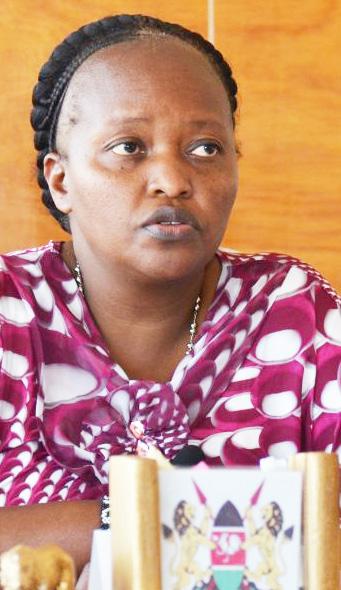
ral Hospital.
She expressed concern that the numbers might increase owing to the continuing drought and called on well-wishers to intervene by donating food to the affected children.
“If you wish to donate foodstuff or money, kindly do so through my office or Meru County special programmes department,” she noted.
Giaki Division Assistant County Commissioner Ms. Betty Kinanda said almost 2,000 households have been affected by drought in the division alone.
She added that the situation has also led to cases of school dropouts as children join their parents in search of food.
StakeholdersMs. Odilliah Ndeti, North Imenti Deputy County Commissioner Dr. David Njengere, KNEC CEO
dropout at 26.9 per cent and 16.6 per cent respectively,says KNEC report.KNEC CEO David Njengere ( in suit right) watches as candidates are frisked during start of KCSE exams at Starehe Boys Centre, Nairobi on March 14, 2022. File Photo
Success!
School feeding programmes boost enrolment in arid areas
 By John Majau
By John Majau
The enrollment in schools in arid regions has shot up significantly owing to the introduction of the school feeding programmes.
Eric Bundi, an education officer in Isiolo, said pupils are trekking for more than 20 kilometres to have a meal in schools that received relief food two weeks ago.
"The Ksh10 million food provided by Lewa Conservancy was distributed to 23 schools. The aid targeted more than 8,000 pupils in Laikipia, Meru and Isiolo counties after more than half dropped out of school due to famine. Enrolment in schools with food has gone back to 100 per cent and is likely to hit 200 soon,” Bundi said.

He revealed that in most cases, the food provided by the school is the only meal the child gets since there is no food at home.
Kithuchi Mutunga, the head teacher of Shambani Primary School in Isiolo county, admitted that the number of children seeking admission has drastically shot up owing to the relief food.
He said some of the learners seeking admission are in CBC classes and that to be admitted, they must seek transfer and have the Unique Personal Identification (UPI) number.

“Most learners are from Emejen, Aremet and other neighbouring schools,” he said.

Mutunga added that before aid arrived, afternoon classes would
frequently be suspended due to the low number of learners.
“Seeing children smiling makes us happy. They get food here instead of going into the bush to gather wild fruits,” he said.
The school, which began about 10 years ago, has 368 pupils. It had less than 250 before the feeding programme.
Its performance in Kenya Certificate of Primary Education examinations has improved as the school registered a mean of 202.8 in 2021 KCSE yet the school had never registered a mean above 187 since its inception.

Lewa conservancy education programme manager Purity Kinoti said the Isiolo County Education in Emergencies platform has appealed for more aid from well-wishers. She said the platform is working on more sustainable ways to end the cycle of reliance on relief food.
Bars in Embu North put on notice as drugs war rages
By Musyoka KaletiEmbu North Deputy County Commissioner William Owino has warned adults and bar owners who abet learners roaming around liquor joints and partaking of alcoholic beverages that they will be caught and punished.

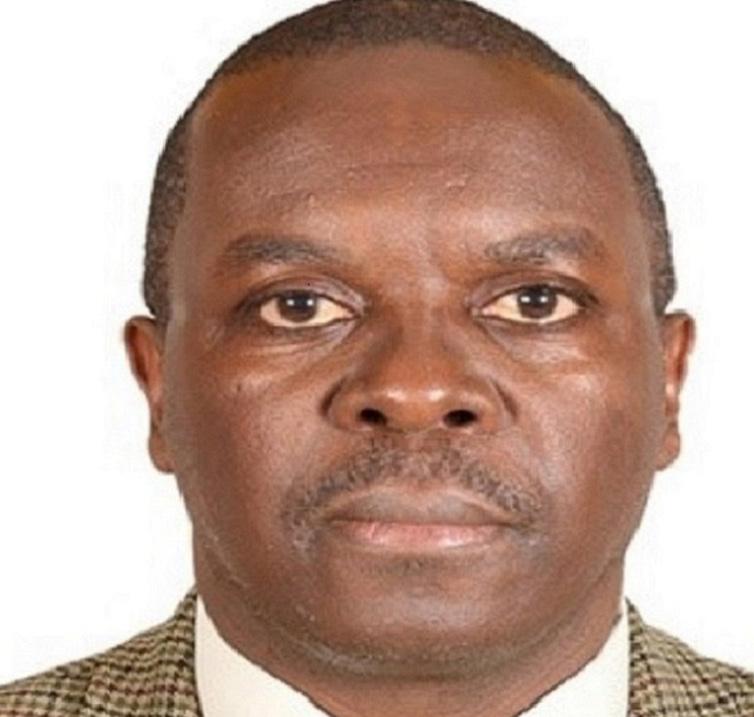
He said those found culpable will face the law as there has been increased drug abuse among students, especially in secondary schools and the trend may jeopardize education in the area.
While addressing the press in his office at Manyatta in Embu North, he said he had traversed the sub-county to ascertain the extent of the damage caused.
The administrator said parents were also facilitating the students by giving them too much pocket money that is converted to drug and alcohol cash, even as students work during holidays for pay.
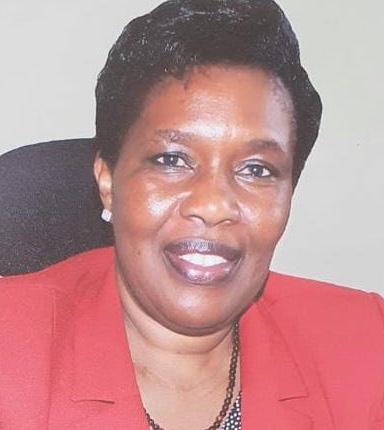
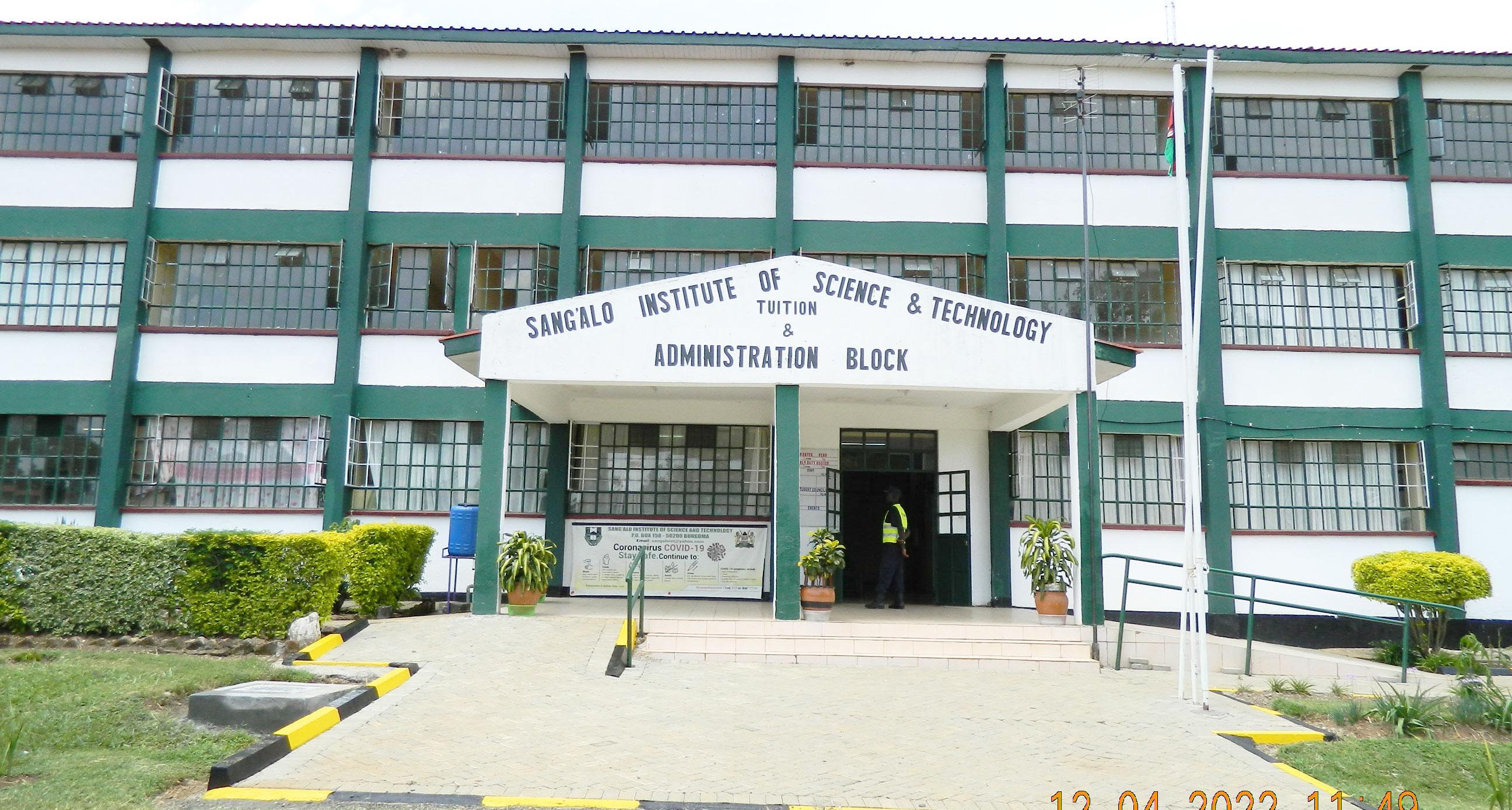
"We have ordered that no student should take part in harvest activities of tea and coffee for pay. If you are not working on your parents’ farms, we shall know you are making money, which is now criminalized," warned Owino.
He urged parents to monitor their children’s moves and encouraged them to focus on education to better their future lives.
Promote teachers in acting capacities, KUPPET Chair urges TSC
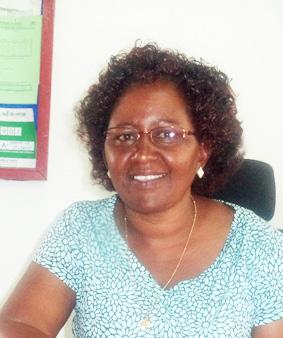 By Emmanuel Gwakoi
By Emmanuel Gwakoi
Kenya Union of Post Primary Education Teachers
(KUPPET) National Chairman
Omboko Milemba has appealed to the Teacher Service Commission (TSC) to promote teachers who have been in acting positions for more than six months in accordance with labour laws.
The unionist demanded that the education committee should confirm such teachers and allocate money for teachers’ promotions
He said several teachers have been acting as deputies, senior teachers and heads of departments for even six years, yet they are not paid for such services.
“What is going on is wrong, illegal and unacceptable,” he said, further noting that teachers should not be treated as casuals.
He revealed that the Union is calculating pending bills and forwarding the same to the government for payment.
Milemba, who is also Emuhaya MP, was addressing unionists at Gusii Stadium during a mini election to replace KUPPET Kisii branch Secretary Caleb Achimba, who got a job in the county government.
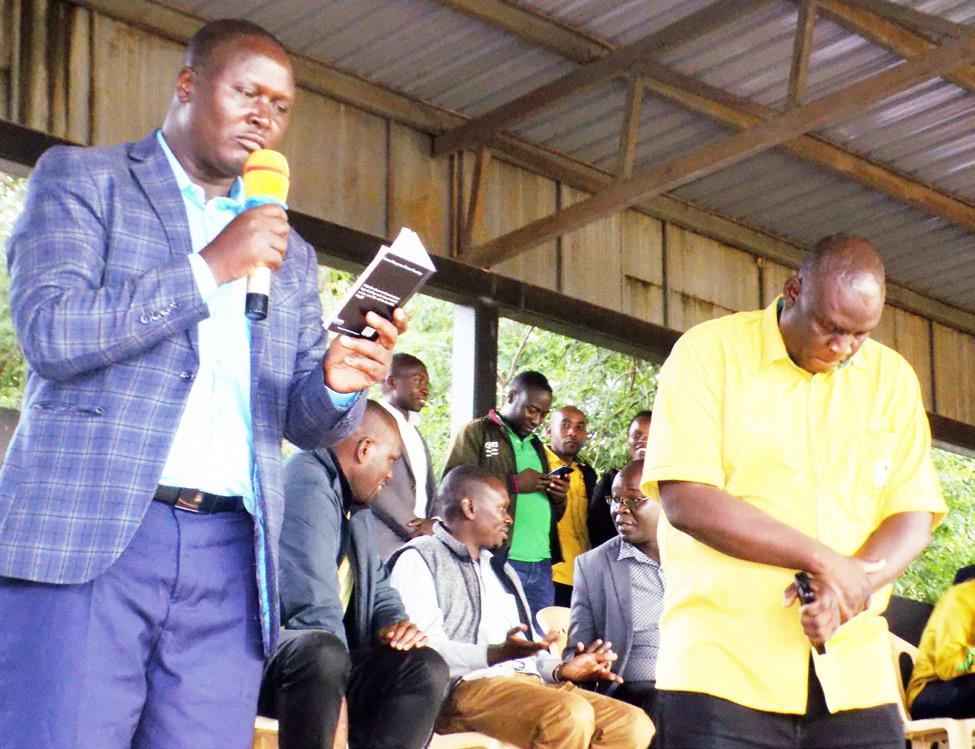
Wilfred Ontita won with
665 votes against his closest competitor Sostena Ntabo who got 268 votes.
He implored the Parliamentary Education and Labor Committee to allocate Ksh8.9 billion more to TSC to top up Ksh15 billion to provide teachers with a medical cover to ease their suffering.
“The National Hospital Insurance Fund (NHIF) requires Ksh23.9 billion to insure teachers. Teachers contributed
Ksh9 billion and the government topped up with Ksh6 billion, but there is a deficit of Ksh8.9 billion, which the government needs to top up,” he noted Milemba was accompanied by KUPPET National Secretary Secondary section Edward Obwocha who proposed that Junior Secondary School (JSS) should be domiciled in secondary schools.
Obwocha argued that secondary schools have
adequate equipment, classrooms and laboratories to foster learning.
"I appeal to parents and guardians to take their children to day secondary schools within their localities so that they can monitor their education and growth," Obwocha asserted.
On the other hand, Ontita lauded the teachers for electing him, pledging to serve them selflessly and implement his manifesto to foster their welfare.
"The competition was stiff and the campaign was tough yet you voted for me overwhelmingly and I pledge to serve you," Ontita said.
KUPPET Kisii County Executive Secretary Joseph Abincha urged parents and guardians not to fall into the traps of conmen claiming they have national examinations to sell to them.
“Fraudsters want to swindle your hard earned money,” he warned.
He reminded the candidates that they have been taught well hence they will excel in the forthcoming national exams.
He wished all candidates the best of luck in their exams and urged them to be disciplined as they prepare to sit the examinations.
Private schools take gamble to invest in JSS amid CBC transition confusion
By Douglas SimiyuEstablished private schools have set their eyes on the projected Grade 7 placements to increase their revenue streams.
A survey by Education News revealed that a hype of activity is ongoing in the schools to create space for the learners.
Kakamega Hill School Director Selpha Omulisya revealed that the school has built a high rise block to house laboratories for General Science, welding and metal fabrication workshops, Home Science room, craft workshop, computer labs and separate office blocks in preparation for the learners.
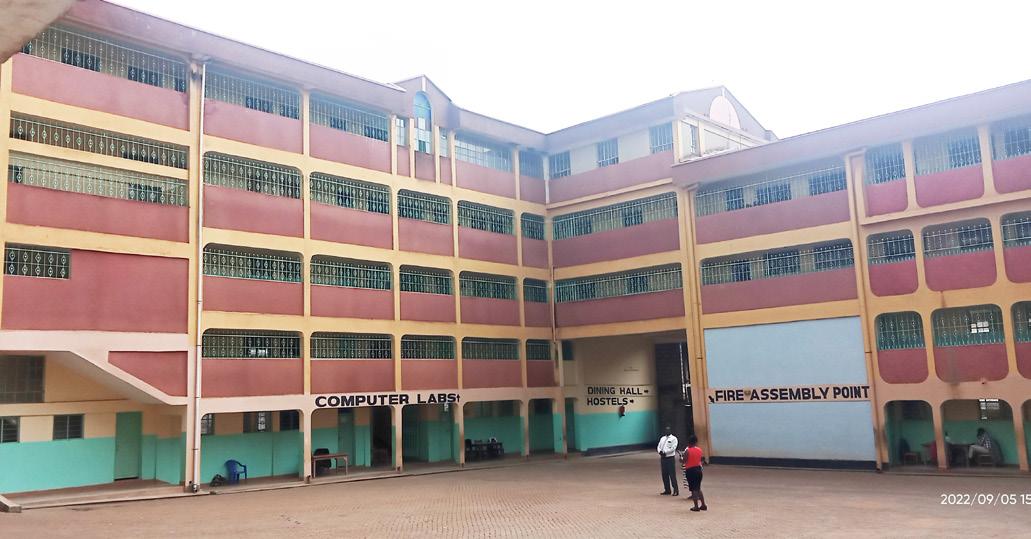
Omulisya revealed that they are set and are only waiting for government guidelines before they advertise job vacancies.
He said the school is racing against time to recreate a new school environment for those who will be dissatisfied with their grade seven placements.
He added that it will be imprudent to integrate tender-age learners with adolescents in public secondary schools.
"We have a social responsibility. We’ve established foundations in our learners which are on the verge of collapsing because of conceivable pitfalls. It’s very sad to note that while the class eight and form four learners have a well-defined pathway to transition, the Grade 6 learners do not. Our move, therefore, is to provide a safety net for our learners,” he said.
Fesbeth Academy Director Ruth Minish said she is hoping to cash in on grade seven placements.
"There's a lot of uncertainty on the criteria to be used to place learners in Junior Secondary Schools (JSS). Most learners
School that was almost brought down by hostile community
By Andanje WakhunguFriends Kivaywa High was on the verge of collapsing until former Deputy Governor Prof. Philip Kutima and other political leaders intervened.
The school was adversely affected by the numerous cases of insecurity including theft of property and loss of lives, a situation that forced many parents to transfer their children to other schools.
The political leaders, accompanied with a multi-agency security team, visited the school to try and unravel the mystery behind the numerous insecurity incidences.
But, the concerted efforts of the political leaders and the arrival of a new principal Bernard Wamanga brought a new dawn to the institution.
Less than a year since he
and even the sponsor church,” he noted, adding that they worked on strengthening the morale of students through guidance and counseling sessions to ensure any form of indiscipline is handled strictly and professionally.
He revealed that lack of a perimeter wall made students to sneak in and out of school.
“We have gradually worked on that and have put in place mechanisms and measures that will see us improve our results in this year’s exams. We managed to attain a mean of 5.7 in 2021 KCSE and we’re aiming for 7.5 in this year’s exams,” he said.
avoid day secondary schools but CBC is drawing them closer and we have to tap into that opportunity to create a safety net for them,” she said, adding that they are only responding to the concerns and needs of their clients.
Former Education Cabinet Secretary Prof. George Magoha, albeit yielding to the reality of impending space crisis in secondary schools, urged private players to fill the envisaged void.
In July this year, KNEC raised a lot of eyebrows during the school selection exercise for JSS by insisting that candidates should avoid selecting boarding schools and instead pick day schools in their localities.
George Mugo, a parent of a Grade 6 learner at St. Joseph Primary School who attended his son's school selection, recalls that guidelines and lists of national and extra county schools were missing.
“We were instructed to avoid choosing the big schools out of our localities and to instead choose four day schools. When I left the school, I had forgotten about my child
Ruth Minish, Fesbeth Academy Director.joining Alliance High, Lenana School and even some extra county boarding schools," Mugo says.
KNUT Kakamega branch Executive Secretary Achadius Liyayi argued that the inadequate infrastructure in secondary schools has given private schools a reason to create space for junior secondary.
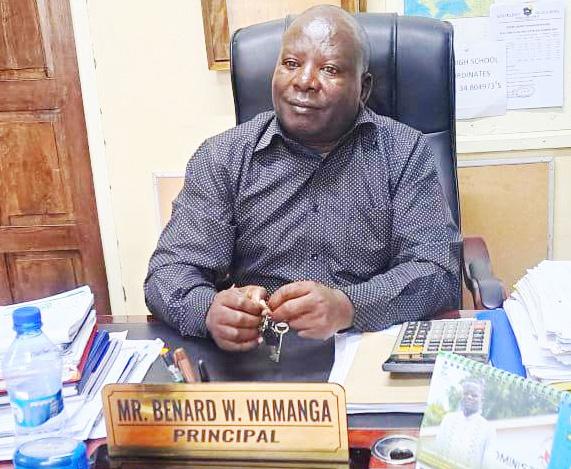
The ministry of education projects that 2.3 million learners drawn from KCPE and KPSEA will transit to secondary in January next year. KCSE exams will free room for at least 800,000 exiting form four candidates.
joined the school, the school has risen from grass to grace and is rejuvenating the hopes of the community and stakeholders at large.
He noted that when he joined the school, the relationship between the school and the community was so bad and was at the rock bottom and very volatile.
The community constantly accused the school’s management of failing to professionally manage the school.
“I joined at a time when no parent wanted to hear anything about the school. The picture painted in their minds was that principals were failures. I quickly assembled my team of teachers, the board and the support staff for a crucial meeting to try and find out the best way we could instill trust back in to the community, who are the major stakeholders of the school,” he said.
Wamanga noted that during the meeting, the community put across several key points for implementation.
“Slowly, we started seeing some rays of hope from parents
The school now boasts of a student population of 1373 with a candidature of 270. It is a six stream school though form one is clocking seven streams. It is destined to become a ten stream institution in two years time considering the high admission trend.
“We’re expecting the student population to rise to 1800 when form ones join us next year. We have set aside three classrooms for JSS learners and we’re hopeful that through our partnership with the stakeholders, we will take the school to greater heights,” he explained.
He thanked the chaplaincy of the Quaker Church for standing firm with the school to ensure sanity is restored and for harmony is witnessed the teaching staff and the non-teaching staff.
He thanked the school management for standing firm with the school to ensure more programmes are put in place to put the school back on the academic map.
The school performs well in co-curriculum activities. In music festivals, the school got to the county level. It also won trophies in drama and badminton among other games.
The main problem the school experiences is teacher shortage. It has 30 TSC from the expected 70.
A section of the 7-stream Standard 7 classrooms at Kakamega Hill School Academy, which is to be reconverted to 7th grade classes for the JSS.Benard Wamanga, Principal
Unions call for review of teacher training, education
By our reporterKenya National Union of Teachers (KNUT) and Kenya Union of Post Primary Education Teachers (KUPPET) have called for a review of the pre-service and in-service teacher training and education in Kenya, arguing that teacher education is a crucial component in education and its structure determines the kind of teachers produced in the system.
During their recent meeting with members of the Presidential Working Party on Education Reforms chaired by Prof. Raphael Munavu in their respective Union headquarters on November 16, 2022, KNUT and KUPPET stated that teacher education in the country should
curriculum review
They also want teacher preparation and training curriculum in TTCs to be redesigned, piloted and evaluated beforehand for successful preparation of teachers in TTCs.
The Union also wants the Diploma Teacher Training Colleges (TTCs) to be converted into Technical Trainers Colleges so that the country has adequate capacity of trained and competent Competency-Based Curriculum (CBC) facilitators to undertake the CBC workshops in all sub-counties.
Oyuu observed that the CBC teachers training curriculum was designed four years after CBC was rolled out and that teachers attending the in-service teacher training workshops are not adequately facilitated.
after schools closed for holidays,” said Oyuu.
Oyuu also raised concern that Teacher Professional Development (TPD) programmes are attended during the holidays, at the same time in service teacher trainings on CBC are conducted.
They are proposing that the TPD programme should be abolished to give room for teachers to attend the CBC in-service training workshops and that TSC teachers upgrade should not be limited to a Diploma but should give teachers autonomy to decide whether to upgrade to Diploma, Bachelor's, Masters or PhD.
Further, it is also proposing for the expansion of the Kenya Technical Trainers College (KTTC) or Technical Training
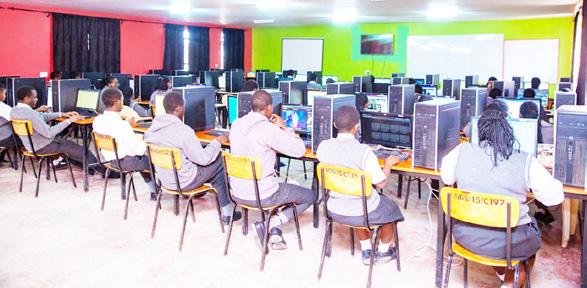
NorthGate School’s impressive journey to the top
By Agnes Orang’oNorthGate School has made commendable strides to become a renowned academic powerhouse in Machakos County.
In the 2021 KCPE and KCSE results, the school had a mean score of 348.4 and 6.54 respectively.
The good performance saw the school ranked third in Matungulu Sub-county and 16th in the county.

This year, they have a target of 380 in KCPE and 7.0 in KCSE.
The school’s director Joseph Njoroge revealed that the school does not tolerate exam cheating and urged parents and students to desist from the distasteful habit.
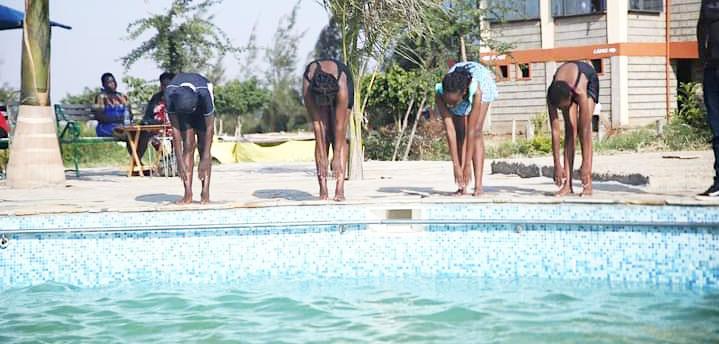
The principal Emily Maina revealed that they aim to shape children to be important people in society.
"We shape students to be better people; good grades are just a bonus," she said.
True to her words, the students are very disciplined, just like the staff.
The teachers always cover the syllabus in time, giving the learners enough time for thorough revision.
Classes begin very early when the students are fresh and weak students get personal tuition from the teachers to
improve.
Steve Mwangi, the school chaplain, said the school is ready for form one and Junior Secondary School learners.
"At NorthGate, we admit both the learner and the parent. We believe that enables coherent development in a learner and in the parent, who is admitted into a process of discovery," he noted.
The school boasts of magnificent infrastructure like well-equipped Science and ICT laboratories, spacious classrooms and good sports pitches.
The Life Reformation Church-sponsored school has over 30 teachers and 300 students.
Over the weekends, the students are allowed to wear civilian clothes to give them a home like environment, a move Mwangi noted has helped them to get to know their learners’ unique characters better.
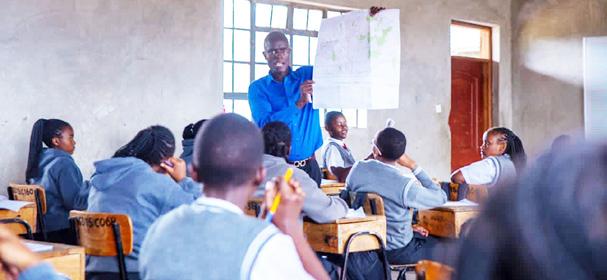
Most afternoons, the students engage in co-curricular activities like scrabble, football, volleyball, tennis, chess, table tennis and swimming, among others.
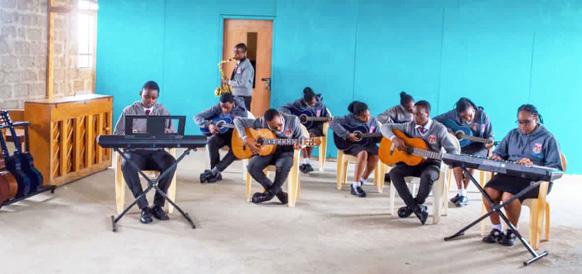
The school, which started seven years ago in a church hall, produces most of the food they consume like vegetables, maize and beans, amongst others.
be re-looked into for effective delivery of curriculum.
KNUT wants Diploma in Primary Teacher Education (DPTE) teachers to be allowed to specialize in specific learning areas unlike now where they are required to teach all subjects.
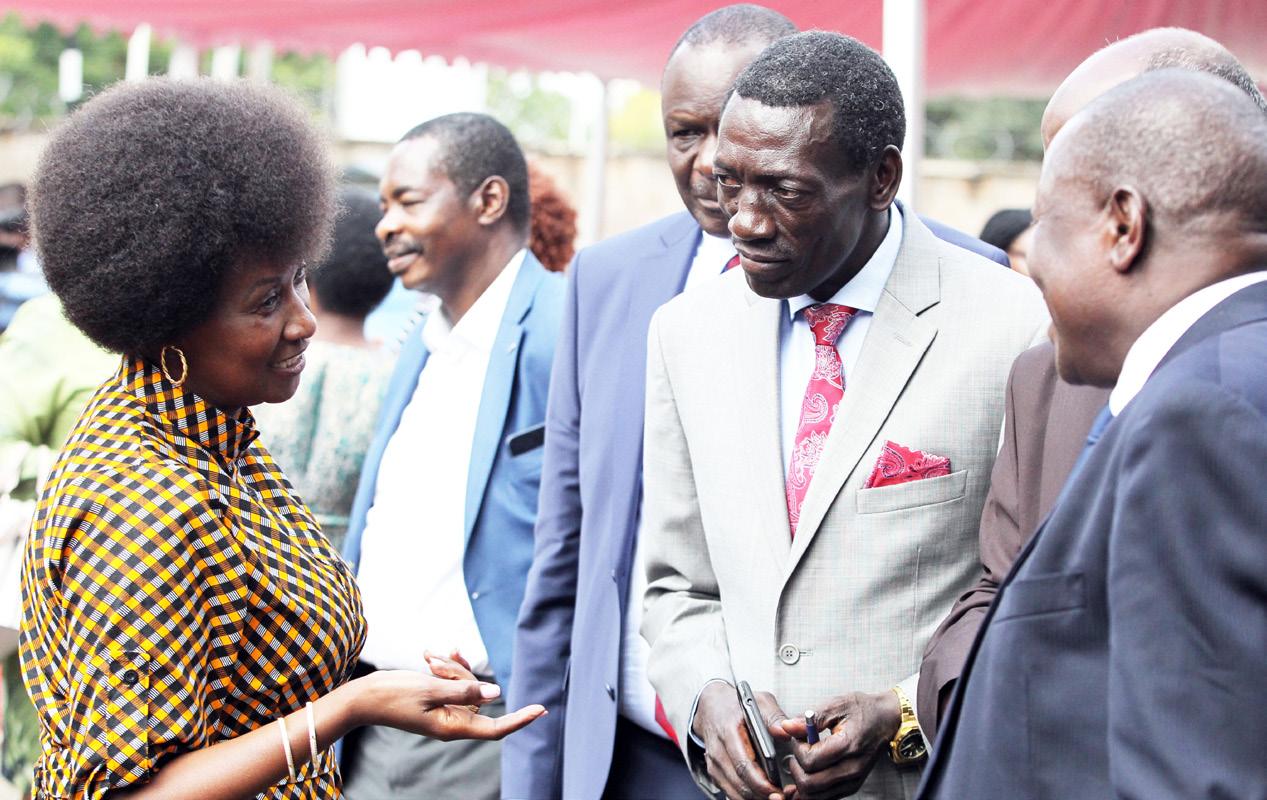
According to KNUT Secretary General Collins Oyuu, primary school teachers are like a jack of all trade since they are trained on all subjects in the primary education curriculum with an expectation that they should be able to teach them all.
The Union is now calling for a standardized training curriculum on teachers competencies, which should be offered to cater for teachers in the event of
KNUT is also calling for the policy on teacher training for CBC to be streamlined and enhanced, tooling and retooling on CBC to be well facilitated and teachers to be provided with conducive training conditions financed by the employer and the government.
They also want the policy on mandatory and compulsory in-service training of teachers to be well scheduled and communicated in advance to all schools and teachers.
“Communications of training workshops is not well scheduled and communicated to all teachers. We have had teachers missing a day of training since communication was done
Institute (TTI) to be converted to KTTC to train technical teachers for faster production of technical teachers.
They also want TSC to employ graduates with Bachelor of Arts and Science with an education option in order to address the gap of secondary teachers in the new learning areas.
On the other hand, KUPPET Secretary General Akelo Misori noted that capacity development for teachers in in-service training requires a radical change of approach to teaching.
“Capacity building of teachers (re-tooling) is very essential for effective implementation of the CBC and achieving quality
education. It enriches teachers with knowledge in the designs for the new system of learning and pedagogy,” added Misori.
He went on to add that unlike the 8-4-4 that was geared towards knowledge memorization, CBC gives precedence to practical learning, with teachers being facilitators.
“Globalisation of teacher education is a new development affecting the whole world. It enables ideas and experiences to be shared through the use of
technological expertise and exposure. The pandemic in 2020 exposed our preparedness in technological advancement in the education sector as the number of teachers who participated in online teaching was insignificant, especially in the public sector,” said Misori.
In the previous taskforce report, which was chaired by Prof. Fatuma Chege on Enhancing Access, Relevance, Transition, Equity and Quality for Effective Curriculum Reforms Implemen-

Corporal punishment thrives in schools despite ban
By Robert NyagahCorporal punishment is still being administered in many schools in Embu County and across the country, with parents and guardians presuming it to be lighter and better than suspending or subjecting learners who err to manual labour.
Teachers frequently use corporal punishment even in the presence of parents, who perhaps assume it is right without actually knowing the effects such caning has on the learners.
Stereotype analysis of corporal punishment could perhaps be the reason why
that goes on. In recent past, respected religious leaders in Embu supported the reintroduction of this type of discipline enforcement.
Majority of religious leaders in the county, some of whose churches sponsor schools, caused controversy when they supported former Education Cabinet Secretary George Magoha's proposal for reintroduction of corporal punishment.
Amid the never ending debate, cases of pupils and students being injured - sometimes fatally as teachers enforce discipline - have continued
tation released in early 2021, the Ministry of Education, Commission on University Education and universities were required to review and align teacher education programmes to CBC and Competency-Based Assessment (CBA) and build the capacity of all university teacher educators in line with the aspirations of CBC.
hezzroy@educationnews co.ke
to be reported across many parts of the country years after corporal punishment was made illegal.
While any serious injury or fatalities inflicted on learners is treated as a crime in Kenya, most incidents of corporal punishment go unreported with school administrations, teachers and parents resolving them as disciplinary matters.
End Corporal Punishment, an organization previously known as The Global Initiative to End All Corporal Punishment of Children, says globally an estimated 246 million children experience violence in and around schools.
Corporal punishment, experts say, can decrease self-esteem, reduce school attendance, and lower academic achievement.
KTDA offers school fees loan incentives to farmers producing quality leaves
By Enock Okong'oThe Kenya Tea Development Authority (KTDA) will give farmers who produce quality tea leaves soft loans to enable them pay school fees for their children.
The directors of Ogembo and Eberege tea factories said the move was meant to motivate hard working tea farmers who followed the tea farming rules to produce quality grade tea leaves.
Led by their chairman Omweno Ombasa, the directors advised parents who will receive the money to use it for the purpose of educating their children.
"We are going to be active partners in education development by supporting bright children who come from poor homes," said Ombasa.
He asked parents to manage their tea farms well enough to produce quality leaves that will attract good markets and enable them to get sufficient money for their daily upkeep.
"Do not be cheated. You will reap what you planted," he advised farmers.
The chairman cautioned the residents to be wary of malicious people who are out to curtail the good plans his team had put in place to support
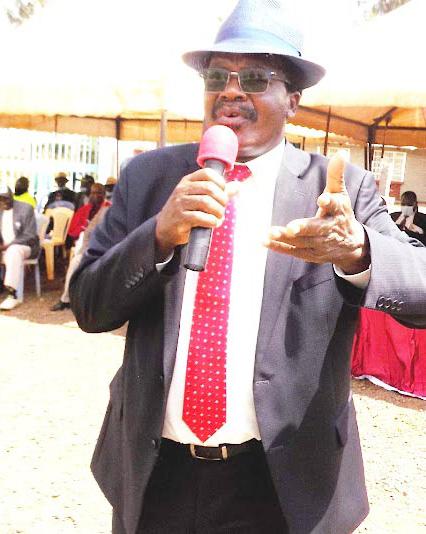 By Erick Nyayiera
Ombasa Omweno
By Erick Nyayiera
Ombasa Omweno
education.
He said the other projects that his team intends to undertake include environmental care, mitigation against defilement of school children, and drug abuse.
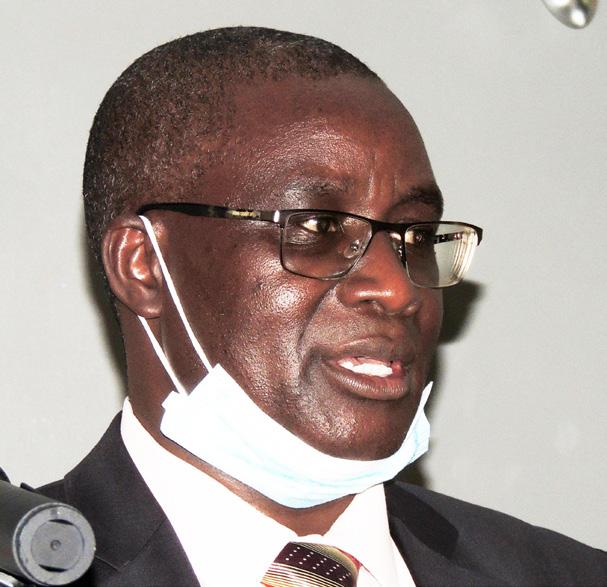
He informed teachers and the community policing groups that his office had opened a hotline that will be used to report cases of child abuse.
By Enock Okong'oThe Teachers Service Commission (TSC) has asked teachers to carry out their duties with passion and pride to inspire students to be what they want to be in future.
Speaking to the recently recruited secondary school teachers during their induction into the profession, Kenyenya Sub-county TSC Director Shem Isaac Odhiambo asked the new teachers to embrace positive spirit that will induce learners to love their subject.
"I would like you to be teachers with a sense of purpose that enables you to see the bigger picture in the innocent learners that have been placed on your laps to mould," he said.
Reminding them that teaching and learning are a continuous process, the director told the teachers to encourage research in their tutorials to enable them cope with the ever-changing world of technology and other emerging issues.
He told them to respect the Heads of their institutions because they are the eyes of the employer.
The 41 new teachers were spread over the secondary schools in the four zones of Kenyenya Sub-county.
The two day induction course was attended by the zonal quality assurance officers.
Kenyenya Sub-county Kenya Secondary School Heads Association (KESSHA) chairman David Osoro
New teachers told to inspire confidence in learners
A section of newly recruited teachers during an induction exercise recently. Photo /Enock Okong’o
welcomed the new teachers to the field. He asked them to add value to the development of education in the county.
"You are young and energetic. Please try to propel the wheel of our education forward," he appealed.
Osoro, a senior principal at Moteribe Secondary School, advised the young professionals to enthusiastically embrace their profession to pass knowledge to learners for their holistic growth.
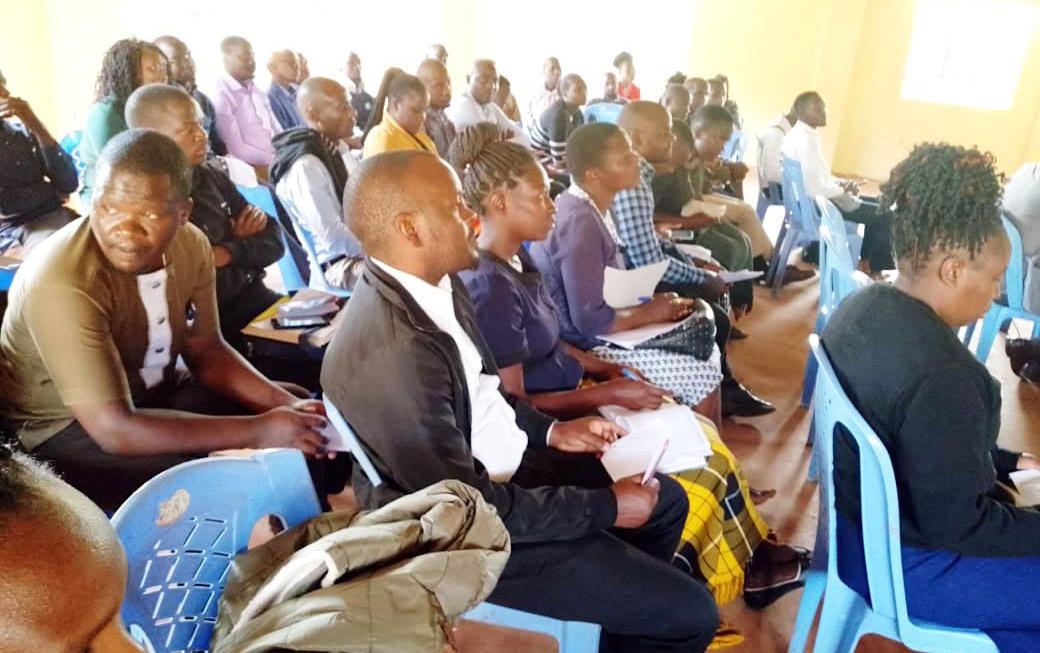
Redesign your role in instilling discipline in schools, church told
Education stakeholders have been asked to rethink their strategies and the roles they play to instill discipline among learners, especially churches that sponsor schools.
The pertinent concerns were raised by Professor Henry Onderi and Dr. Ruth Otienoh of the Jaramogi Oginga Odinga University of Science and Technology (JOOUST), who appealed to sponsoring churches to help tame the wanton indiscipline bedeviling Kenyan schools.
“The church needs to be more conspicuous in schools for learner character formation and development and inculcation of moral values, which will resultantly yield learner discipline,” they stated.
The two made a presentation during
the ‘1st International Ecclesiastical Academic Conference’ themed ‘The church and culture in the diversified 21st Century Society; Challenges and Opportunities’. It was organized by the Anglican Church of Kenya, Bondo Diocese, in collaboration with JOOUST at the university’s main campus in Bondo town.
They observed that most schools in Kenya were founded by various religious organizations; hence church sponsorship plays an important role in the management of schools.
“Kenya’s Basic Education Act (2013) empowers church sponsors to participate in the management of basic education institutions. The role of the sponsor is outlined as to participate and make recommendations of syllabus review, curriculum, books and other teaching and learning resources,” they noted.
The sponsors are also represented
in the Boards of Management (BoM) to provide supervisory and advisory services along spiritual development lines, includ-
Children with disability opt out of school due to poverty, report shows
By Erick NyayieraA report finding by the Department of Special Needs Education of the Jaramogi Oginga Odinga University of Science and Technology has revealed a damning situation of poverty that has kept disabled children out of school in the Nyanza region.
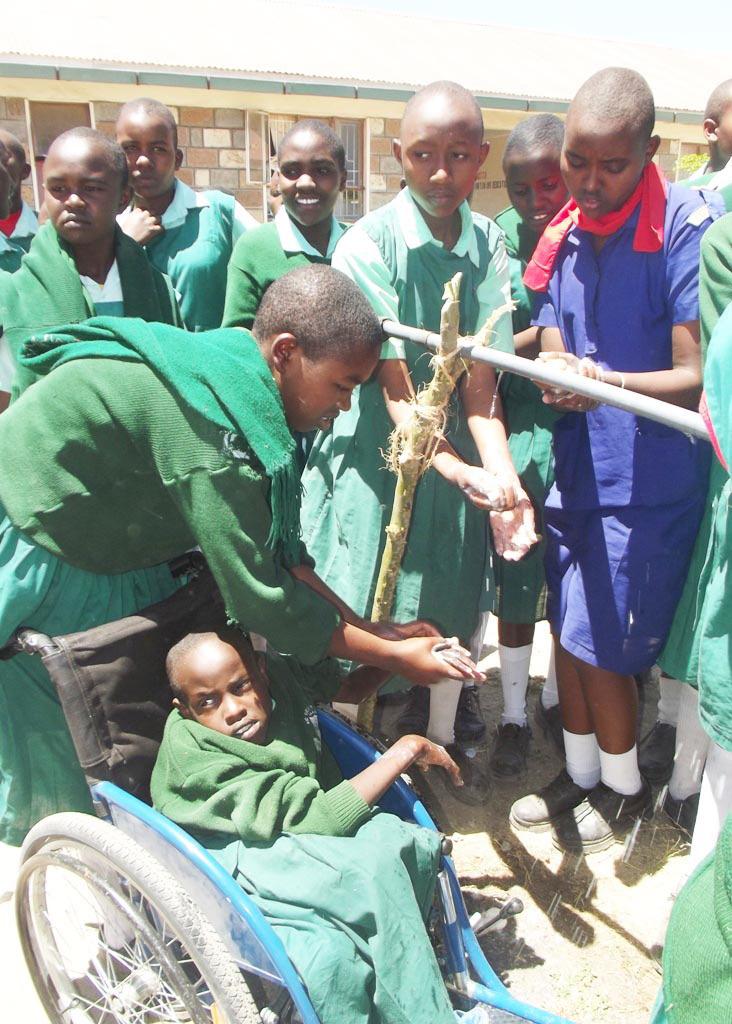
The main findings by Dr. Charles Makori and Gregory Nyongesa, both from the university’s Faculty of Education’s Department of Special Needs Education, was that persons living with disabilities are living in abject poverty, which they attribute to their disability status.
“In matters education, it was found that there are many children with disabilities out of school that members of the
community, including the clergy, were aware of but seemed to have no way of engaging stakeholders to offer meaningful support to them,” read the report.
The findings point to the fact that people with disabilities (PWDs) are usually left out of the mainstream education and socio-economic activities. These include those with sensory, physical and cognitive disabilities.
The United Nation’s Convention on the Rights of Persons with Disabilities (2016), and Kenya’s Persons with Disabilities Act (2004), address issues affecting PWDs to promote, protect and ensure the full and equal enjoyment of human rights and fundamental freedoms, promote respect for their dignity, as well as facilitate the full participation in all
sectors.
“Despite these efforts, we realized that PWDs continue to be marked by experiences of discrimination, prejudice and inequality and children with disabilities get relegated to staying at home. Worse still, religion and theological interpretations of disability have significantly shaped the way in which society relates to PWDs, thereby re-enforcing marginalization and exclusion in their social, economic, political, educational and religious lives,” the university dons highlighted.
The duo’s findings were derived from a study on promoting awareness and participation of PWDs in education and other community-based programmes in Nyanza region.
The action research study investigat-
ing the appointment of chaplains at their own expense while safeguarding the religious faith of others.
They offer financial and infrastructural support as well as a cardinal responsibility to schools.
“The Act further gives the church sponsors the powers to participate in the management of learner discipline, character formation and the inculcation of moral values towards the achievement of the national goals of education,” the dons stated.
The duo challenged the church to consider enhancing guidance and counseling programmes, regretting that in recent times, basic institutions in Kenya have witnessed rampant unrest despite their presence.
“Despite the role of the church sponsors being clearly spelt out in the Act, particularly in relation to learner discipline, unrest is escalating unabated,” they
lamented.
Rev. Dr. Marcellus Kawasonga of Maseno University on his part, while assessing the church and the state roles in holistic education in Kenya since independence, observed that negotiations in educational policy formulations between the church and the state have so far yielded no tangible result as educational development still remained ambivalent.
“Prior to independence, the role of the church in education was clearly stipulated. The approval and acceptance of the Beacher Report of 1949 envisaged that the great majority of African schools will be managed by churches. Each denomination was entrusted the responsibility of managing schools semi-autonomously until independence, which greatly bore fruit,” stated Kawasonga, saying post-independent arrangements became weaker as time went by.
ed the relationship between poverty and disability from the perspective of PWDs and data was collected using focus group discussions.
“Sadly, the church, perceived to have a role to play in community welfare, did not seem to have a structured way of identifying or providing the children with disabilities any support to allow them in schools for their education, including offering any meaningful support to their caregivers,” they observed.
They also identified that misinterpretation of religious teachings seemed to have a bearing on how PWDs were perceived.
They gave the report findings during the 1st International Ecclesiastical Academic Conference held at Jaramogi Oginga Odinga University of Science and Technology’s main campus in Bondo, themed ‘The Church and Culture in the Diversified 21st century Society; Challenges and Opportunities’.
Litein High School’s 2022
KCSE candidates have been urged to approach the forthcoming examinations with prayerful and confident hearts as they had fully been prepared on all fronts to perform exceptionally well.
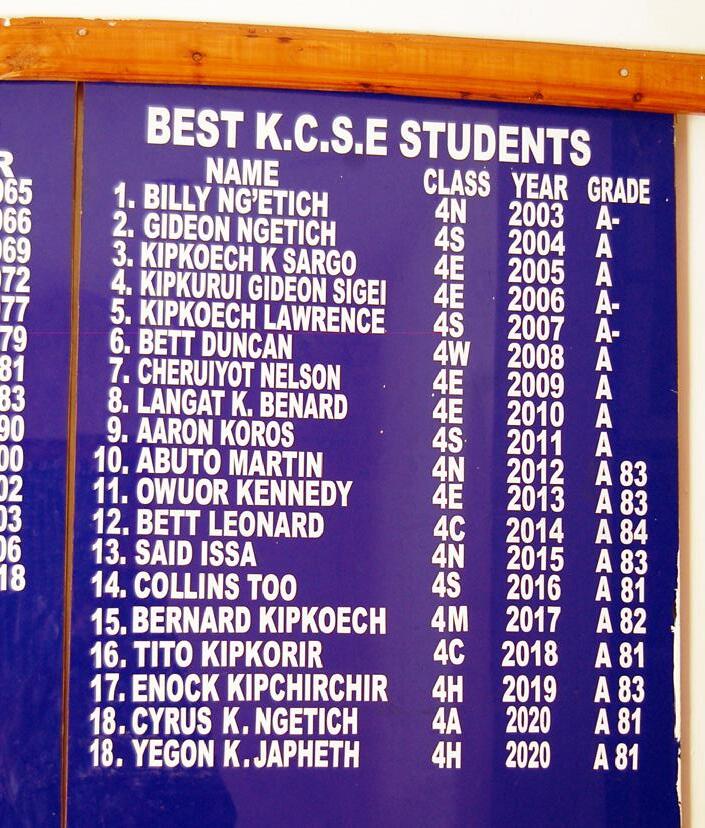
Christened the Spartans, several speakers expressed great confidence in this year’s class.
Led by Dr. Julius Mambili, Chief Principal, they were urged to practise what their teachers had painstakingly

Ready Litein High exhorted to approach KCSE with confidence, prayer

put them through in the last four years.
“We have a lot of confidence in the preparations that have gone to the Spartan class and we have high hopes they will perform well,” he said during this year’s prayer day in the school.
He took time to thank the candidates for maintaining high standards of discipline, which he predicted will be rewarding through good results.
He also thanked the parents for the
great cooperation in timely payment of school fees, which in turn gave both students and teachers maximum time to work instead of wasting too much of it looking for fees.
To the new Board of Management (BoM) led by Dr. Raymond Kemboi, he expressed his deep gratitude for being of great help in the management of the institution.
On his part, his deputy in charge of administration Joshua Ogamba echoed the principal’s earlier sentiments that the class had kept very high standards of discipline, observing that the teachers had sharpened them well to the point there was little else to add except to pray earnestly for success.
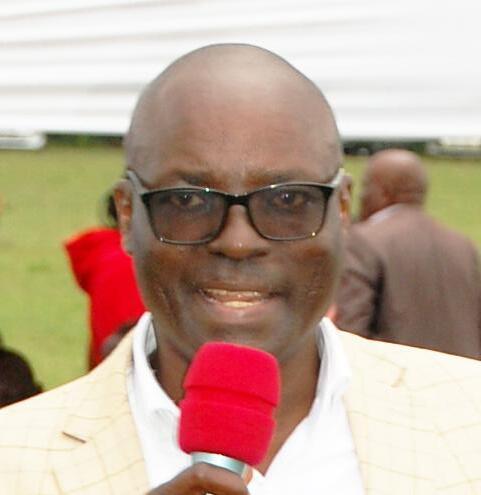
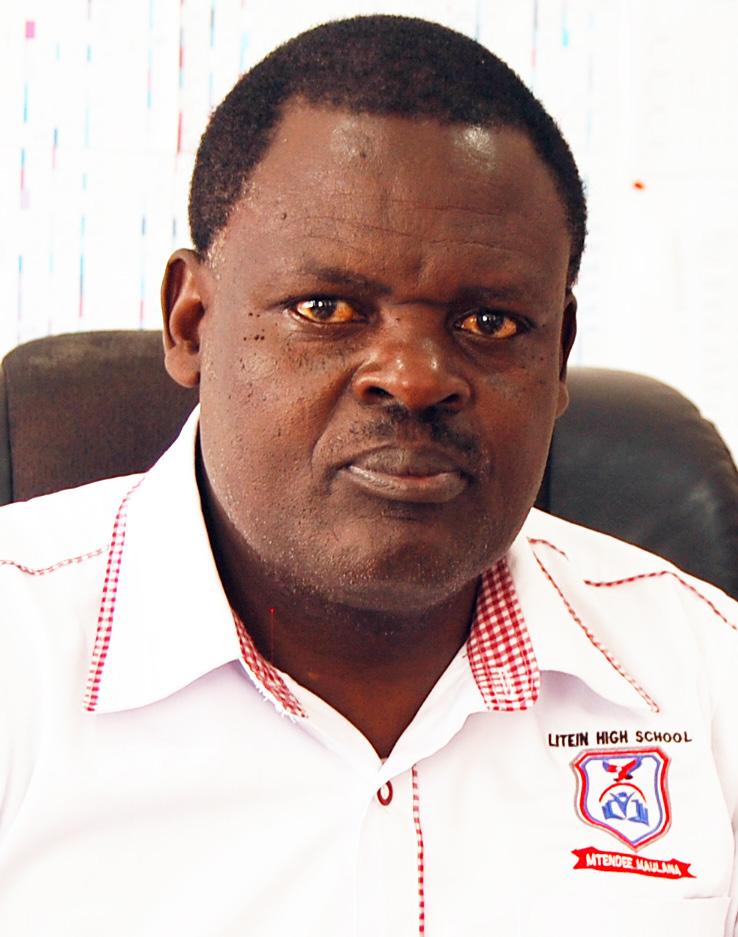
His academics counterpart Wilson Tuei said the group finished the syllabus early enough to give them generous space and time to revise, adding; “The 349 Spartans are a well prepared team and we only pray for God’s guidance during the exams.”
He said the school had started the process of guiding the candidates on careers, an activity that will go on even after they leave the institution.
The form principal Vincent Ruto was full of confidence and was hopeful their target of 9.5 will be hit to achieve a 100 per cent transition to university. Like the preceding speakers, he also commended the
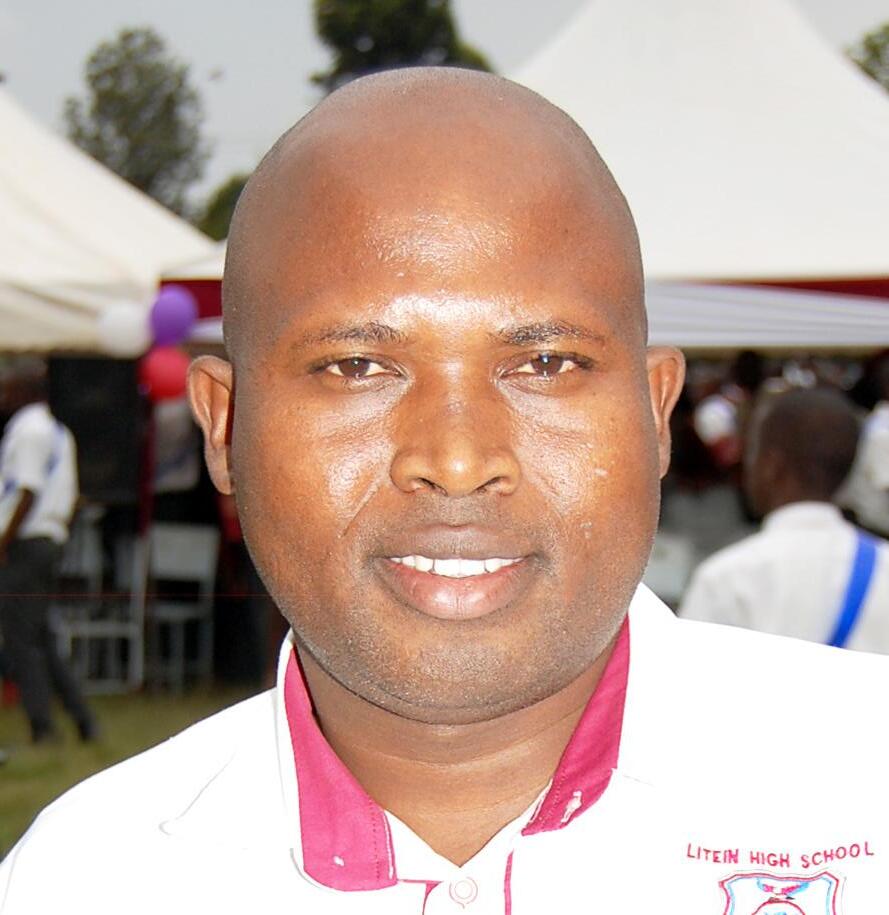
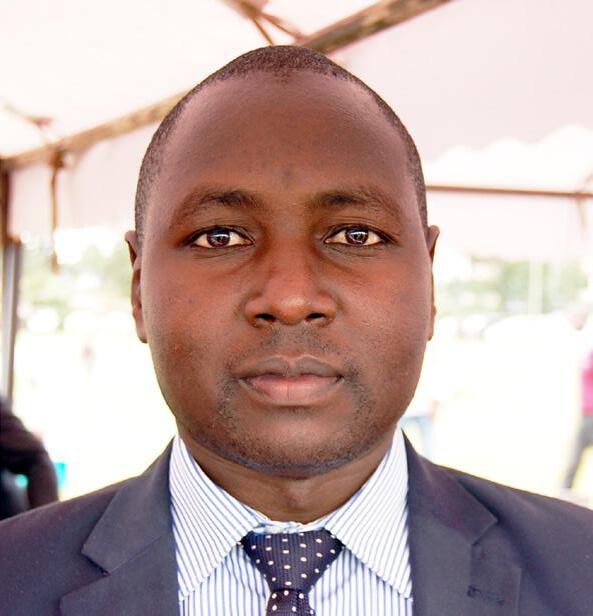
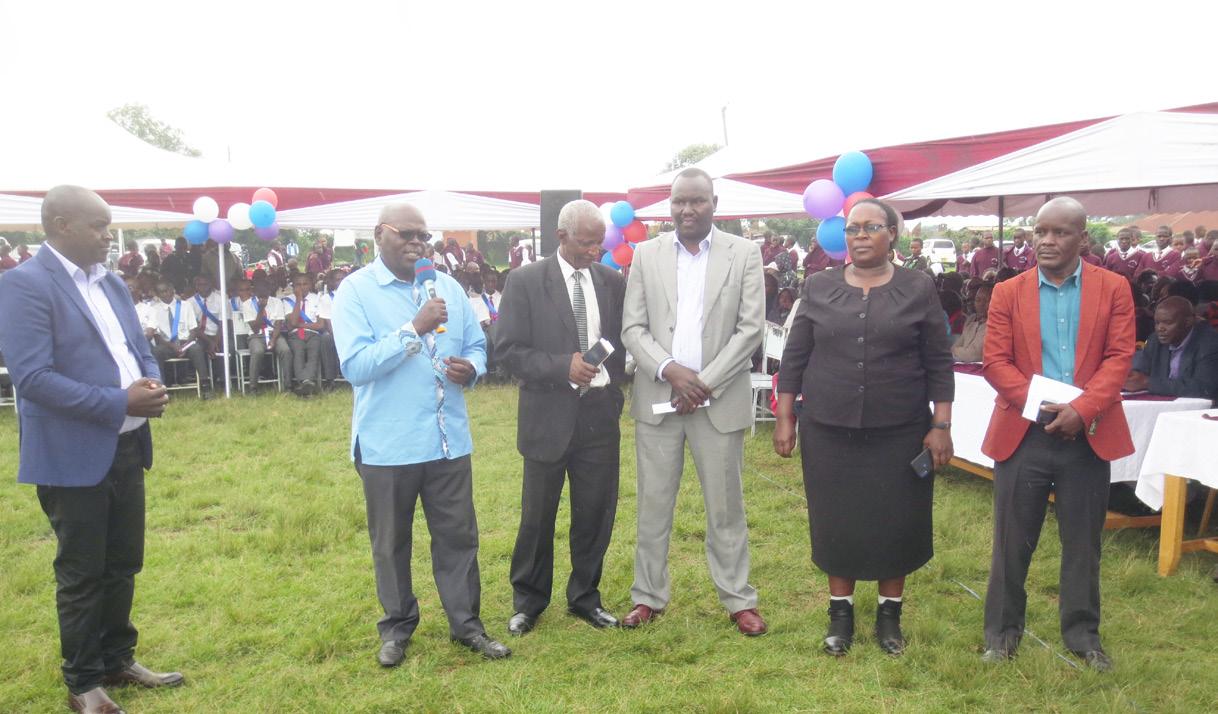

class discipline as an impressive sign post to future successes.
The chairman of the BoM thanked the staff led by the principal for their tireless efforts in preparing the candidates.
He said the Board will partner with all stakeholders to take the school to the highest point of success. Blessing the candidates as his parting shot, he urged them to be confident to the last minute.
We have a lot of confidence in the preparations that have gone to the Spartan class and we have high hopes they will perform well.
- Dr Julius Mambili, Chief PrincipalBy Education News team
After the Presidential Working Party on Education Reform (PWPER) taskforce concluded its two-week public participation countrywide tour, they now settle down to sift through the diverse views expressed as part of the reform agenda in the education sector.
The public participation which started on November 1, 2022 and ended November 18, 2022 was a cocktail of opinions on Competency-Based Curriculum (CBC) implementation, with many giving varied suggestions ranging from abolition of the system to cutting down on costs.
However, the overriding theme was where to place Junior Secondary School (JSS), with majority inclining to keeping it in primary school - with valid justifications.
High cost of implementation, inadequate training of teachers, transition, inequality and lack of infrastructure were variously cited as some of the impediments to CBC implementation.
Here is a summary of the views collected from all corners of the country.
Domiciling JSS
The proper structure of CBC, in particular domiciling JSS in primary school, was of greatest concern; with stakeholders differing sharply.
Teachers and residents of Bungoma County wanted JSS to be hosted in primary school because those transitioning to Grade 7 are still too young.
Kenya National Union of Teachers (KNUT) Bungoma East Branch Executive Secretary Aggrey Namisi Murumba said the government failed to fully conduct public participation before rolling it out, making it a nightmare to implement.
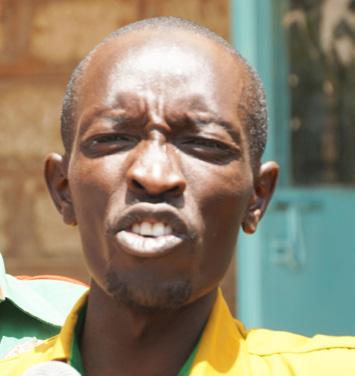
He was supported by his Yatta counterpart in Machakos County Michael Kasimba Ngui, who noted that domiciling JSS in primary school will give the government at least three years to construct more classes in readiness for Senior Secondary School (SSS).

The same was echoed by Nakuru County Parents Association Chair Charles Chepkwony, who said there must be adequate infrastructure like classrooms and well equipped laboratories and learning materials for the practical implications of the CBC to be realized.
Nakuru Branch KNUT Executive Secretary Anthony Gioche was in agreement.
In Siaya, both KNUT and KUPPET supported the establishment of JSS in primary school and having its name changed to senior primary.
KNUT’s Siaya Branch Executive Secretary Alex Dunga noted that as a Union, they support the CBC but wanted primary schools to accommodate JSS as the teachers there were qualified to handle that level of learners.
Similar sentiments were echoed by his KUPPET counterpart Sam Opondo, who thought CBC must undergo a review of capacity and infrastructure, reiterating that secondary schools are still not prepared to receive the junior secondary students.
"It is the responsibility of the government to provide equipment and other necessities for the implementation of CBC, hence the need to revamp the Kenya School Equipment Scheme and the school equipment production units,” added Opondo.
University Academic Staff Union’s (UASU) University of Eldoret Chapter secretary Philip Cheburet said Grade 7 pupils are too young to be in secondary school.
Abolishing CBC
There were those with radical views, suggesting the scrapping of the system altogether and continuing with the current 8-4-4. The dissenting called for its
What stakeholders around the country said about CBC
Committee Member (CECM) in charge of education
John Awiti.In Uasin Gishu County, Eldoret West KNUT senior official Jacob Arusei said CBC was hurriedly implemented and never went through all the curriculum stages, and therefore must be abolished.
The same views were fronted in Kisii, where teachers called for the abolition because the government had not provided enough classrooms in all schools.
"It is only a few selected schools that have CBC classrooms and this will lead to a scramble for the few resources by the 1.27 million Grade 6 learners," said Lucy Machuki.
However, the county KESSHA chairperson Joyce Orioki said the CBC is good because it equips young learners with the requisite skills for growth. She expressed her fears that secondary school teachers had not yet received a clear syllabus.
Students from Bungoma High School also praised the curriculum, saying it was out to tap talent.
Boniface Oluoch, who spoke on behalf of the students, said the curriculum laid emphasis on practicals, which are an invaluable asset in the absence of white collar jobs.
Transition to university
UASU’s Chuka University Chapter secretary Thomas Motindi observed that the transition from senior secondary to university under CBC is expected in 2029, yet the university curriculum is yet to be revised in line with the system.
was further draining them financially.
Special Needs Education
On SNE, stakeholders asked the government to design a disability-friendly curriculum to enhance the education and performance of learners in special needs schools.
Peter Mogaka, Principal of Giachere Special Secondary School for Hearing- Impaired Students, said the current curriculum favours learners in regular schools.
He said visually impaired children need special tools and learning materials to enhance e-learning, stressing that it is necessary for the learning tools to be adapted to suit the interests of learners with various impairments.
In Mombasa, representatives of special schools led by Elizabeth Ngare, head teacher of Likoni School for the Blind and chairperson of Mombasa Special Schools, hinted that for the new curriculum to succeed, various steps have to be taken to set up the needed conducive environment.

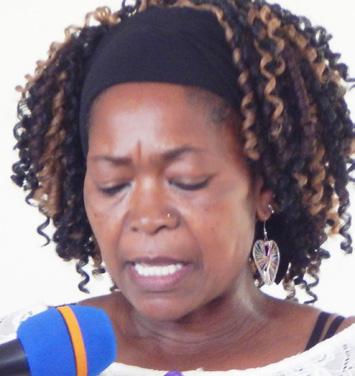
She added that adequate deployment of teachers to meet the ever-rising number of special learners was crucial in the full implementation of CBC.
According to the SNE heads, curriculum supervision in such schools was also wanting and needed to be improved if learners were to receive quality education.
Prof. David Some Chairman Rift Valley Region Task Force team
modification.
In West Pokot, Governor Simon Kachapin said although its implementation was rushed, CBC can be improved because the original objectives of the 8-44 were the same.
West Pokot KNUT Executive Secretary Martin Sembelo said CBC should be abolished to allow for the modification of the 8-4-4 system.
“There is not a single swimming pool in West Pokot. Subjects like art, craft and music should be combined. We also need serious investments in the internet and electricity,” he added.
Dr. Simon Tingaa suggested that the Technical and Vocational Education Training (TVET) institutions should be decentralized to all counties, opining that the government funding should be re-
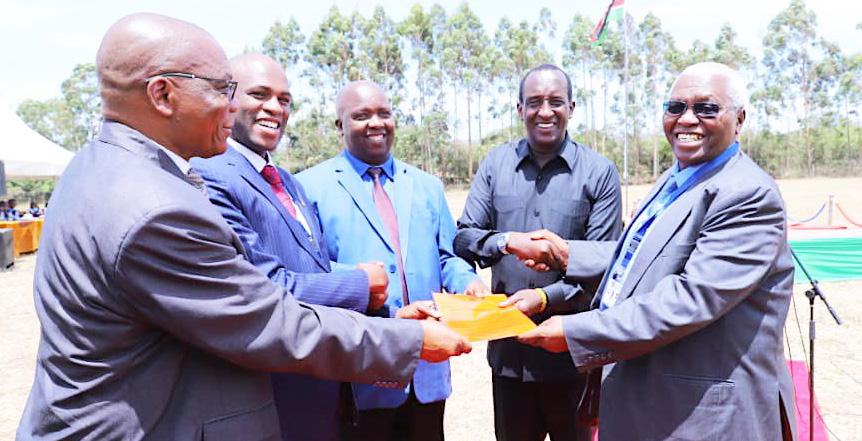
viewed so that many students can benefit.
He urged the government to restructure CBC, saying it can even suspend its implementation for a period of 5 years.
In Kisumu, a number of education stakeholders unanimously recommended that the CBC should be retained since it nurtures talent and also makes learners more innovative; with the county KESSHA chairperson stating that the new system should only be refined since its drafters had good intentions.
The same was supported by the county National Parents Association (NPA) chairperson Martin Okaka, who said the government had already invested a lot of resources in the new system of education - and it can only be fine-tuned with an aim of making it even better. He was seconded by the County Executive
He said university enrolment is expected to more than double in 2029 from the current 510,000 to 1.2 million, which would overstretch the already strained infrastructure.
“If CBC is to be implemented, the government will have to increase budgetary allocations to universities for infrastructural development and also revise university curriculum,” said Motindi.
Cost of CBC
As others supported CBC, and recommending that JSS should be domiciled in primary school, a number of them are irked by its cost, with Narok County Governor Patrick Ole Ntutu saying it is too expensive to implement.
Nevertheless, he pointed out that learners’ talents should be identified early so that they can pursue what they want to be in future.
Embu Deputy Governor Kinyua Mugo said there is need to train teachers properly for them to deliver the CBC.
Kibabii University Vice Chancellor (VC) Prof Ipara Odeo praised the new curriculum, saying it only needed some activities and expenses to be removed from parents.
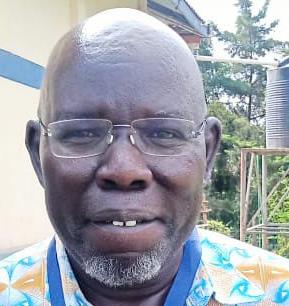
He said parental direct involvement, such as doing homework and buying learning kits, should be reviewed and possibly taken up by government.
Robert Opemi, Mombasa Chair of the NPA, acknowledged the good intentions the developers of the CBC had but faulted the government’s reluctance to fully finance the system to unburden parents.
He said the tough economic times currently experienced had made it impossible for most parents to fend for their families, and the new education system
Rose Genye, Nakuru County KEWOTA Coordinator
Sosthen Bellat, Uasin Gishu KUPPET Chairman
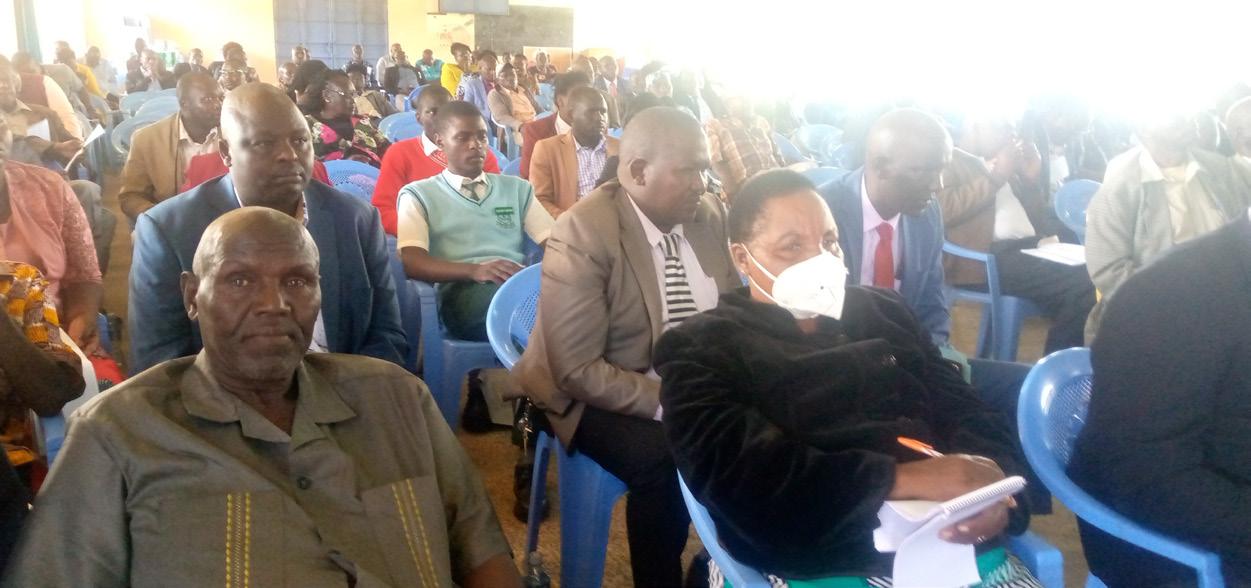
Martin Okaka, Kenya National Parents Association Kisumu chapter Chairperson
Kasimba Ngui, Yatta KNUT Executive Secretary
Reporting by Achola Bulimo Mathews, John Majau, Agnes Orang’o, Peter Otuoro, Erick Nyayiera, Kipilat Kaptuya, Fredrick Odiero, George Otieno, Wasike Elvis, Lucy Nyokabi, Enock Okong’o, John Majau, Obegi Malack, Nancy Masit, Brian Malila, Martin Ruto, Tony Wafula and Emmanuel Gwakoi.
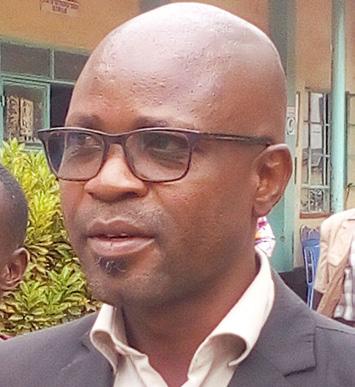
High cost of implementation, inadequate training of teachers, transition, inequality and lack of infrastructure were variously cited as some of the impediments to CBC implementation.Narok County leaders led by Governor Patrick Ntutu (2nd Right) and County Commissioner Isaac Masinde (left) present their MoU to Presidential Working Party on CBC Review, Prof. Raphael Munavu. Photo/Nancy Masit Chuka University Academic Staff Union Secretary General Mr Thomas Motinda hands over written submissions to the CBC Review Taskforce team at Chuka University in Tharaka Nithi County. Photo John Majau Members of the public follow proceedings during the Presidential Education Reforms Taskforce at Nasokol Girls high school in West Pokot County on 9-11- 2022. Photo Kipilat Kaptuya By Leonard Angatia
Onjiko High is ranking high amongst the best schools in Kisumu County, topping Nyando Sub-county for many years to rival big schools in the county like Maseno School.
The 8-stream extra-county school has a population of 1539, a number that has more than doubled in less than two years after the current senior principal Joseph Were took over in 2020. He was transferred from Sigalame Boys where he had been for 12 years to find only
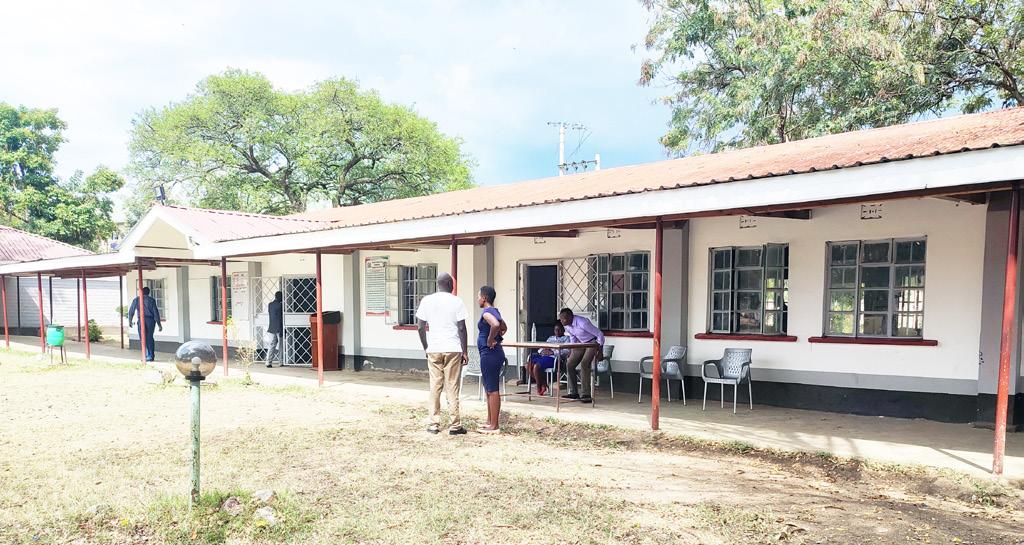
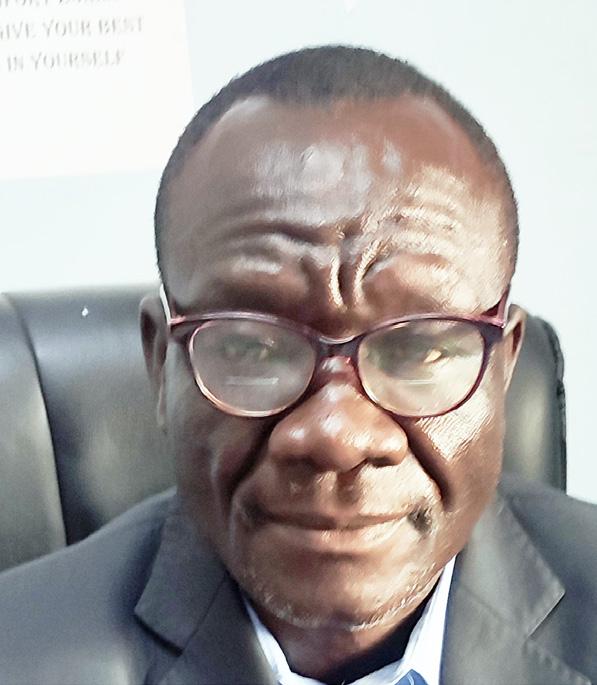
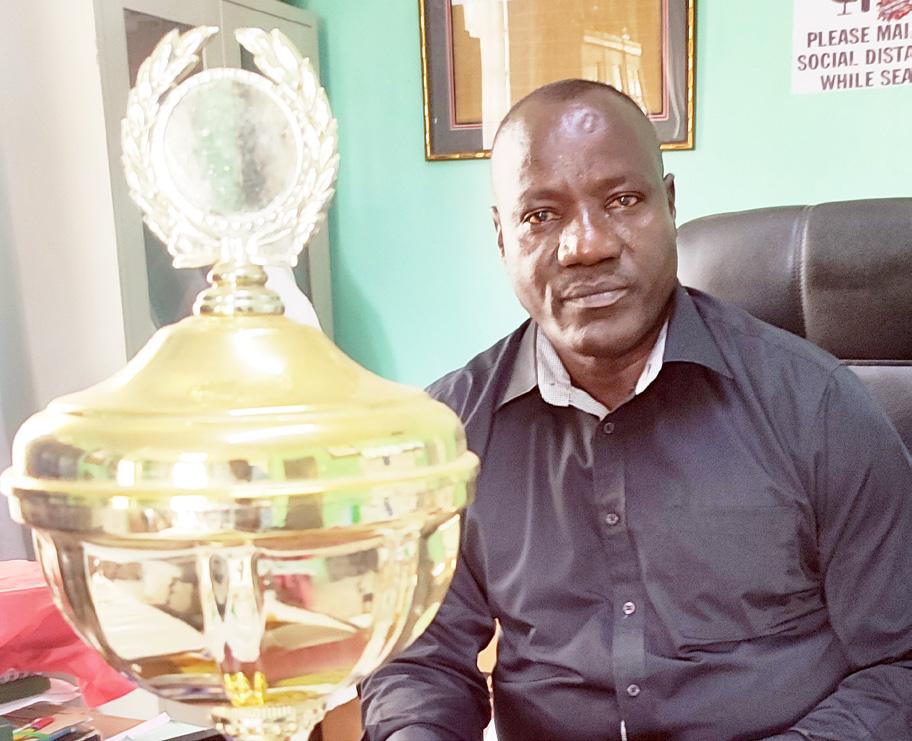
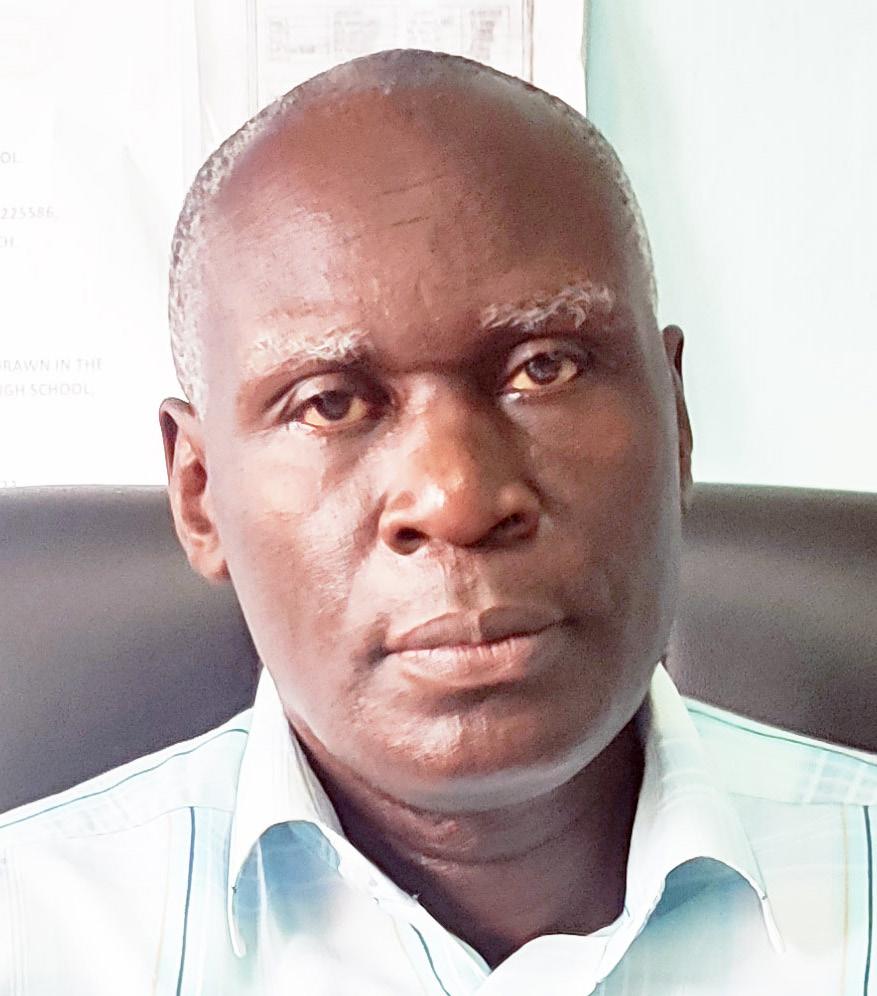
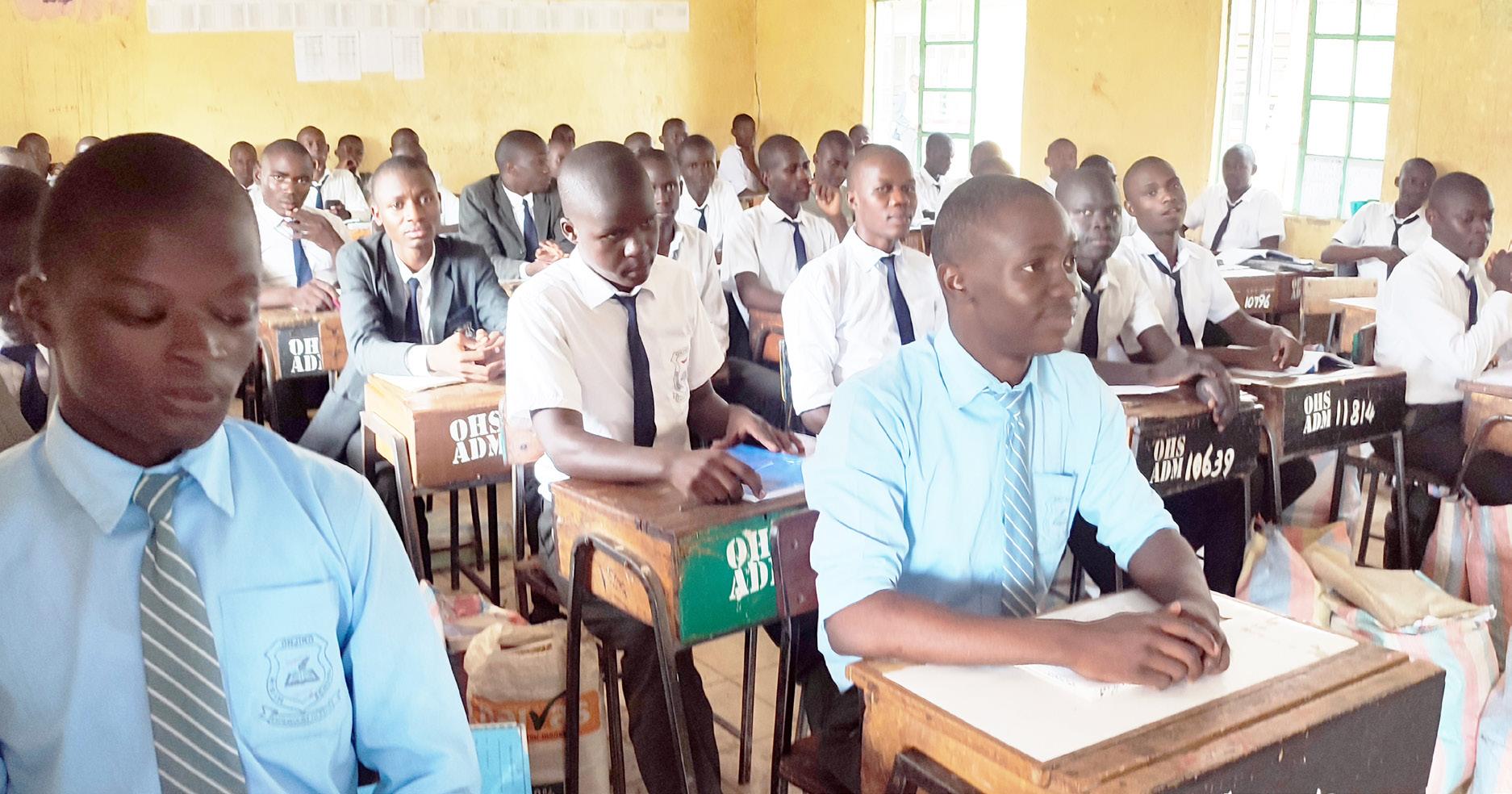
700 students. There are 38 teachers employed by the government and 15 engaged on Board of Management (BoM) terms.
In 2021 KCSE, the school had an improved mean score of 5.995, up from 5.80 in 2020.
The senior principal, who teaches Physics and Chemistry, has a track record of sustained campaigns for improved performance, infrastructure and population.
“I see this great school on a positive trajectory to success. With involvement of stakeholders in decision making, we believe in the laid strategies,” averred the principal.
Discipline has improved tremendously unlike before when student unrest was the order of the day. In any decision making, the principal must involve students who feel they are part and parcel of the process.
He has also re-introduced morning preps and Saturday morning meetings with students to help motivate them to work harder and get the best out of them.
Being a basketball coach, he constructed a court to popularize the game from as early as form one.
“We are the indomitable basketball champions in the region and also the second runners up at nationals with the youngest team ever,” he said.
In the short stint he has been around, there is notable school face-lift beginning with the construction of a 400 capacity dormitory named after him.
In addition to the Were Dorm, there is a 2-floor storey tuition block with 4 classes already completed in a span of 1 year. He transformed the kitchen by replacing firewood with gas as a more efficient and friendlier source of energy.
Favourite among the entire school community, he has paved all walk ways and connected a security lighting system that links all buildings around the school, making it possible to study anywhere even at night.
The management is working on the restoration of original school colours, famously known to be white, grey and black.
There is unity among teachers and non-teaching staff who are ready to work extra hours to get the best out of students.
CCTV cameras have been installed everywhere to help in surveillance, whose main purpose is to improve academics and discipline.
With 263 candidates
Onjiko High takes pride in its decorated history
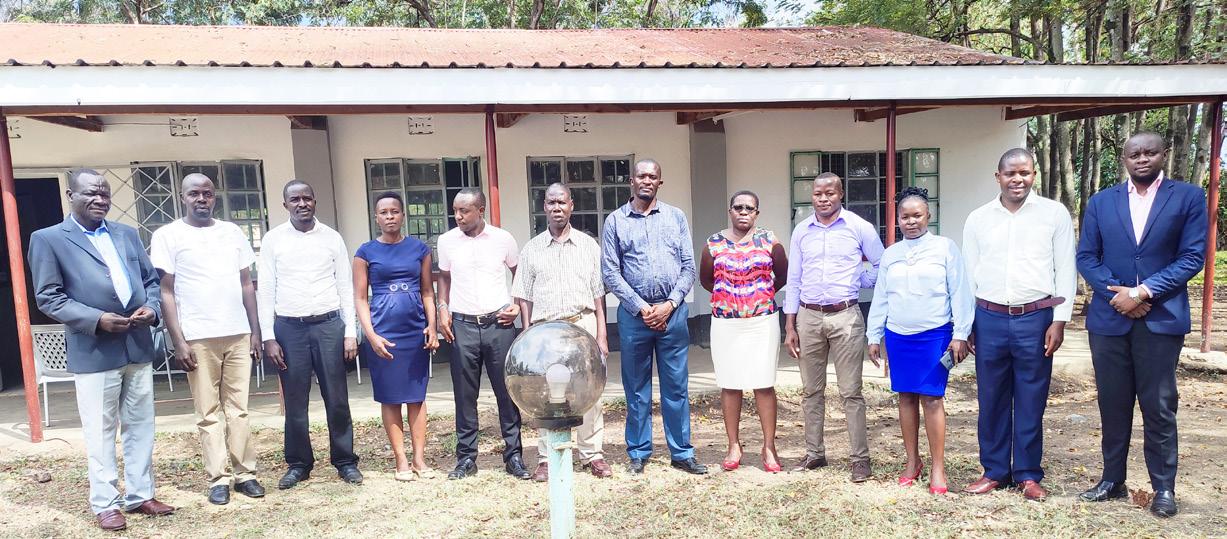


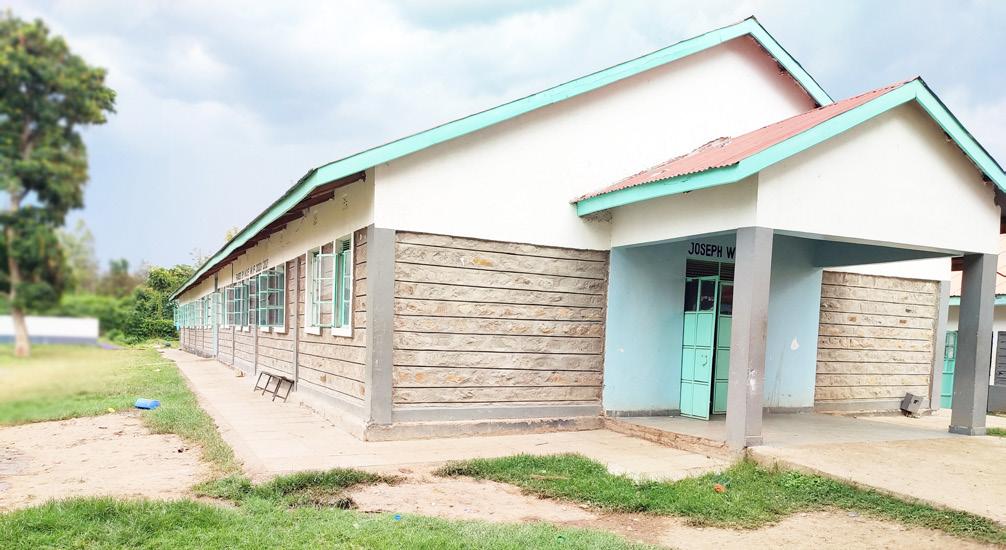
Students in class
for the 2022 KCSE, who have set a target of 7.5, the school is keen to break its previous academic records.
However, with all the achievements, there is a dire need for a dining hall as the one they are using now was constructed way back in 1987 to accommodate only 360 students. They are now calling on stakeholders and well-wishers to help build one to ease congestion.
The school is proud to have produced iconic individuals and great politicians. The first Director of Quality Assurance in the education ministry
He has also reintroduced morning preps and Saturday morning meetings with students to help motivate them to work harder and get the best out of them.
Enos Oyaya is one notable alumni. Others are Hon Dr. James Nyikal, MP for Seme Constituency, Hon Omboko Milemba of Emuhaya, Hon Anthony Oluoch of Mathare, and Hon Martin Owino of Ndhiwa.
Owen Ojuok, current clerk of Kisumu County and renowned lawyer Dr. Miguna Miguna are luminaries who went through the school.
The school has two deputies; Ogutu Gordon is in charge of curriculum and Henry Ouma Ngara takes care of administrative matters.
Gas for clean energy
Some of the teaching staff
KEPSHA calls for increased capitation to ensure smooth running of primary schools
By Hezron RoyPublic primary school head teachers, through their association, Kenya Primary School Head Teachers Association (KEPSHA), are pushing for increased school capitation under the Free Primary Education (FPE) capitation.
The association’s National Chairman Johnson Nzioka noted that the current capitation rate where a child is allocated Ksh1,400 per year was last reviewed in 2010 and falls far below the requirement to effectively run a primary school.
He noted that for schools to effectively run, the FPE operational costs in an ideal school of 400 pupils should be Ksh3.4 million (3,418,365), with each child requiring Ksh8,546 annually.
While submitting the association’s recommendations to the Presidential Working Party on Education Reform on November 17, 2022 at Absa Towers in Nairobi, Nzioka said their new proposed funding has taken into consideration the current status of the respective funding gaps noted in various vote heads.
Recently, the government, through the Ministry of Education in a Circular dated October 11, 2022, disbursed funds for FPE to all public primary school accounts for third term at a capitation rate of Ksh154 per pupil.
Of the disbursed amount, Ksh46.20 per child went to the school’s Simba Account, plus text book maintenance (Ksh4.20), exercise books (Ksh20), reference materials (Ksh5) and stationery (Ksh17).
The remaining Ksh107.80 per pupil is to be utilised in the following ways: support staff wages (Ksh30), renovation of classroom, building of toilets, repairs maintenance and improvement of physical facilities (Ksh15), local travel and transport (Ksh 9); electricity, water and conservancy (Ksh11.50), telephone, box
DPP: Take up teaching profession to curb shortage
By Amoto NdiewoDirector of Public Prosecution
government the burden of putting up new classrooms since primary schools have classes 7 and 8,” said Nzioka.
The association argued that the government should put up a simple affordable mobile laboratory from School Equipment Production Unit (SEPU), which is available at a cost of Ksh200,000 with each set available at Ksh74,000.
Nzioka noted that domiciling JSS in primary schools should not affect the curriculum designs in any way and that Grade 6 should transit to Grade 7 in primary schools within their walking distance.
The KEPSHA boss noted that secondary schools should be left to concentrate on the 100 per cent transition policy for the Kenya Certificate of Primary Education (KCPE) graduands of 2023 and 2024 while putting in place solid Competency-Based Curriculum (CBC) infrastructure and sound career pathways for grades 10, 11 and 12 to commence in 2026.
Noordin Haji has urged locals to end the prevailing teacher shortage in North Eastern by taking up the noble profession of teaching.

Speaking during the launch of Young Muslims Girls Primary School in Garissa town, Haji noted that local students must take up the teaching profession to bridge the gap.
“As long as the local community shies away from the teaching profession, the region will continue suffering in matters education,” he said.
He urged parents to encourage their children to take up the noble profession, pointing out that the solution to the teacher shortage in the region lies with them.
The DPP gave a recent incident where leaders from North Eastern held a consultative meeting with TSC officials to discuss the teacher shortage bedevilling the volatile region.
security concerns have made many employees flee the regions.
The sad state of education affairs in the region commenced in 2014 after Al-Shabaab bandits started attacking, killing and maiming nonlocal teachers, forcing them to flee the region.
TSC was forced to withdraw the services of non-local teachers, a move which was hugely condemned by local leaders who argued that the teachers employer was giving in and glorifying terrorism and denying local children their basic right to education.
Data from TS\C reveals that Mandera County has 1,849 and 517 teacher shortage in primary and secondary schools respectively.
Wajir has 1,414 and 51 teacher shortage in primary and secondary schools respectively, while the teacher shortage in Garissa stands at 913 and 651 for primary and secondary schools respectively.
rental and postage (Ksh1.50), environment and sanitation (Ksh8), capacity building and meetings (Ksh15), contingencies (Ksh2.50), Science and Applied Technology (Ksh2.80), Information and Communication Technology (ICT) infrastructure materials (Ksh2.50) and assessments (Ksh10).
Regarding the contentious issue of Grade 6 transition to Junior Secondary School (JSS), the head teachers maintained that Grades 7 and 9 should be domiciled in primary schools and be renamed Senior Primary while secondary schools take up Grades 10-12. “The move will save the
“KEPSHA strongly recommends that Grades 7, 8 and 9 remain anchored in primary schools whose teachers have undergone sufficient professional training on handling pre-teenage adolescents and that transition to secondary schools should happen after Grade 9 when the pupils have developed psycho-social maturity,” added Nzioka.
The association further recommends that Competency-Based Assessment (CBA) should stand at 40 per cent for formative and 60 per cent for summative exams, with regular formative assessments being coordinated and supervised by the sub-county director’s office using a team from zonal clusters to ensure integrity.
KEPSHA observed that the current format of 60 per cent formative assessment and 40 per cent summative assessment through Kenya Primary School Education Assessment (KPSEA) at the end of Grade 6 suffers a major weakness.
“The assessment assumes that all teachers will be honest and of high integrity. The possibility of some teachers abusing their immense powers of formative assessment is very real. The complexity of this fact becomes even more pronounced considering that it is at this middle school levels where the various pathways the pupils will take in senior school are cemented,” said Nzioka.
It further wants the assessment materials to be supplied to schools through a sufficient vote head in the FPE capitation and that the government should install free Wi-Fi (internet) connection in every school to ease assessment since the workload expenses and time spent by teachers downloading the assessment materials, administering, marking, analyzing rubrics, uploading to Kenya National Examination Council (KNEC), among others, have been overwhelming.
<<<<< See table
“We were taken aback when we were told that even if TSC gives out special allowances, teachers aren’t willing to teach in North Eastern,” said Haji.

Haji noted that most schools in Garissa, Wajir and Mandera counties don’t have enough teachers because
In 2019, President William Ruto, then Deputy President, urged locals to take the bull by the horns and lead from the front by ensuring their children join Teacher Training Colleges (TTCs) to curb teacher shortage in the area.
Interestingly, the few who join the noble profession of teaching leave at a faster rate than they came in.
Drought threatens gains made in northern Kenya education sector
By Amoto NdiewoData from the Red Cross Society has revealed that 3.1 million people in Arid and Semi-Arid Lands (ASAL) are experiencing food insecurity while 500,000 need immediate assistance to remain alive.
The unforgiving drought in Northern Kenya is threatening generations there. Children are dropping out of school to look for food for themselves and pasture and water for their livestock.
Ten-year old Grade 4 learner
Omar Golicha didn’t report to school for third term. Being the first born in a family of seven, he has to give care to his siblings as his parents focus on putting food on the table.
At times, Golicha accompanies his father to search for water. His sister, who has since dropped out of school, spends hours on end looking for water for domestic use.
Mohamed Lokha, a retired Assistant Chief, noted that most children are dropping out of school to help parents look for food while some get married off to reduce the
family budget.
He warned that children losing parental care risk being exposed to child trafficking amongst other ills like child prostitution and drug abuse.
The Kenyan government has been leading efforts to mobilise help for people and livestock facing the crisis.
In that respect, DP Rigathi Gachagua recently launched a Ksh16 billion international appeal for drought mitigation that includes relief food support and livestock off-take programme.
SOS Children Village also launched an international appeal to raise $10.3 million to help families in four Horn of Africa countries, including Kenya.
Some of the cash will be directly sent to vulnerable families to put food on the table and ensure children remain cared for.
The village operates by sheltering vulnerable children without parents in family-like set ups in Nairobi, Mombasa, Eldoret, Meru and Kisumu. Currently the centres have 2,000 children.
Torongo Girls based in Eldama/Ravine subcounty, Baringo County has grown over the years from a little known school to an established academic and cocurricular powerhouse.
As a Centre of excellence, the school is redefining its history through the programmes they have put in place.
The school recently held a prayer day event which doubled up as a thanks-giving ceremony to lay down plans on how they can best emerge victorious in the forthcoming examinations as well as pray for the candidates as they prepare for the final exams.
Speaking during the colourful event, the principal Mrs Christine Chepkole stated that they have prepared the candidates well by exposing them to quality examination materials as well as assigning them to individual teachers through student families to assist them on their weak
Torongo Girls charts path to academic glory in 2022 KCSE exams
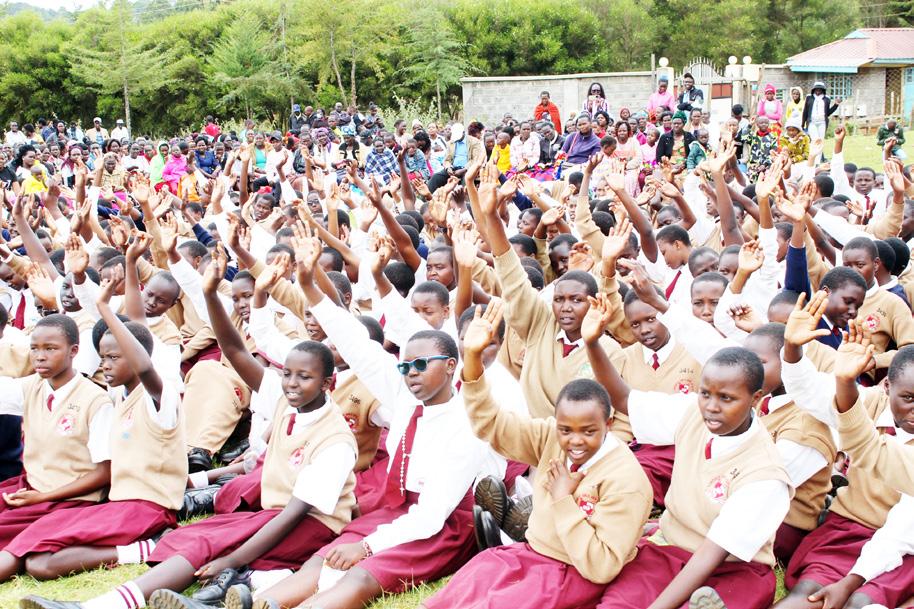
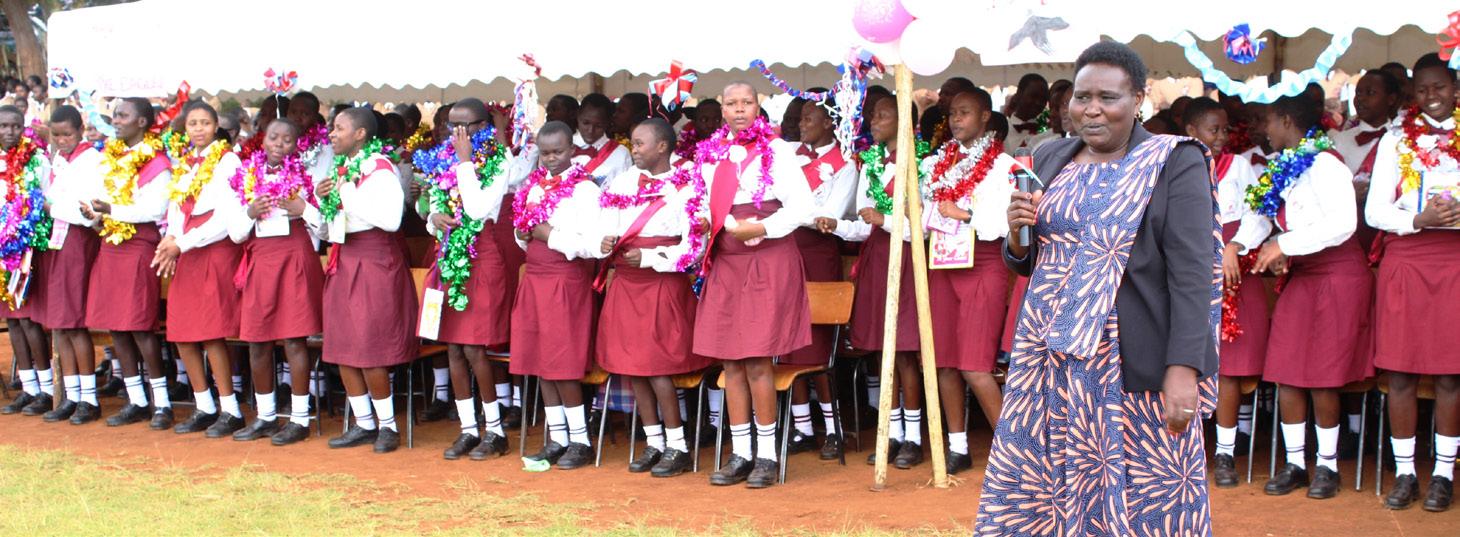
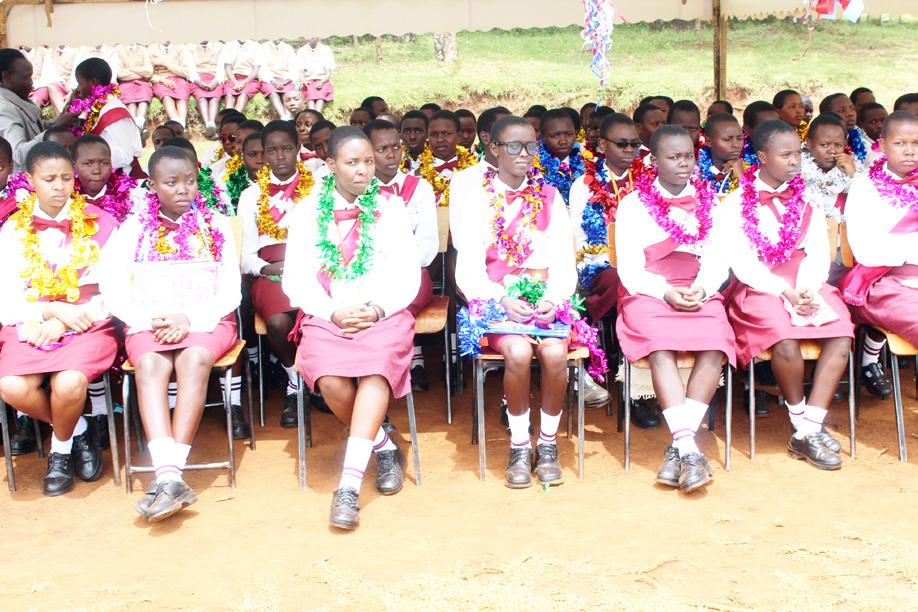

“This is an important day that will redefine the history of Torongo Girls in our academic calendar. We thank the parents for their continued support and encourage them to continue with the spirit as well as keenly follow-up the academic progress of their children. The candidates are well prepared to tackle
areas.
She exuded confidence that they will beat the set target mean of 6.5 owing to the fact that it’s a strong class which has portrayed a high level of discipline, determination and sacrifice since they joined the school.
The principal affirmed that their wish is to churn out an all-rounded girl child who can perform well across all sectors of the economy and in all corners of the globe.
the final exam and we encourage them to go for the target by revising further and avoid any distraction during the KCSE period,” she said.
The principal singled out her team of teaching staff for their sacrifice and determination, saying that she will continue rewarding them through seminars and workshops.
She also thanked the non-teaching staff for their support.
She observed that her girls are doing well in co-curricular activities and have performed up to the county level and regionals in some games. She said that the school has all games including indoor and outdoor and all students are encouraged to participate.
Mrs Chepkole revealed plans to double the number of students exiting to university in the school under the government sponsored programme to over 70 per cent in the 2022 exam.
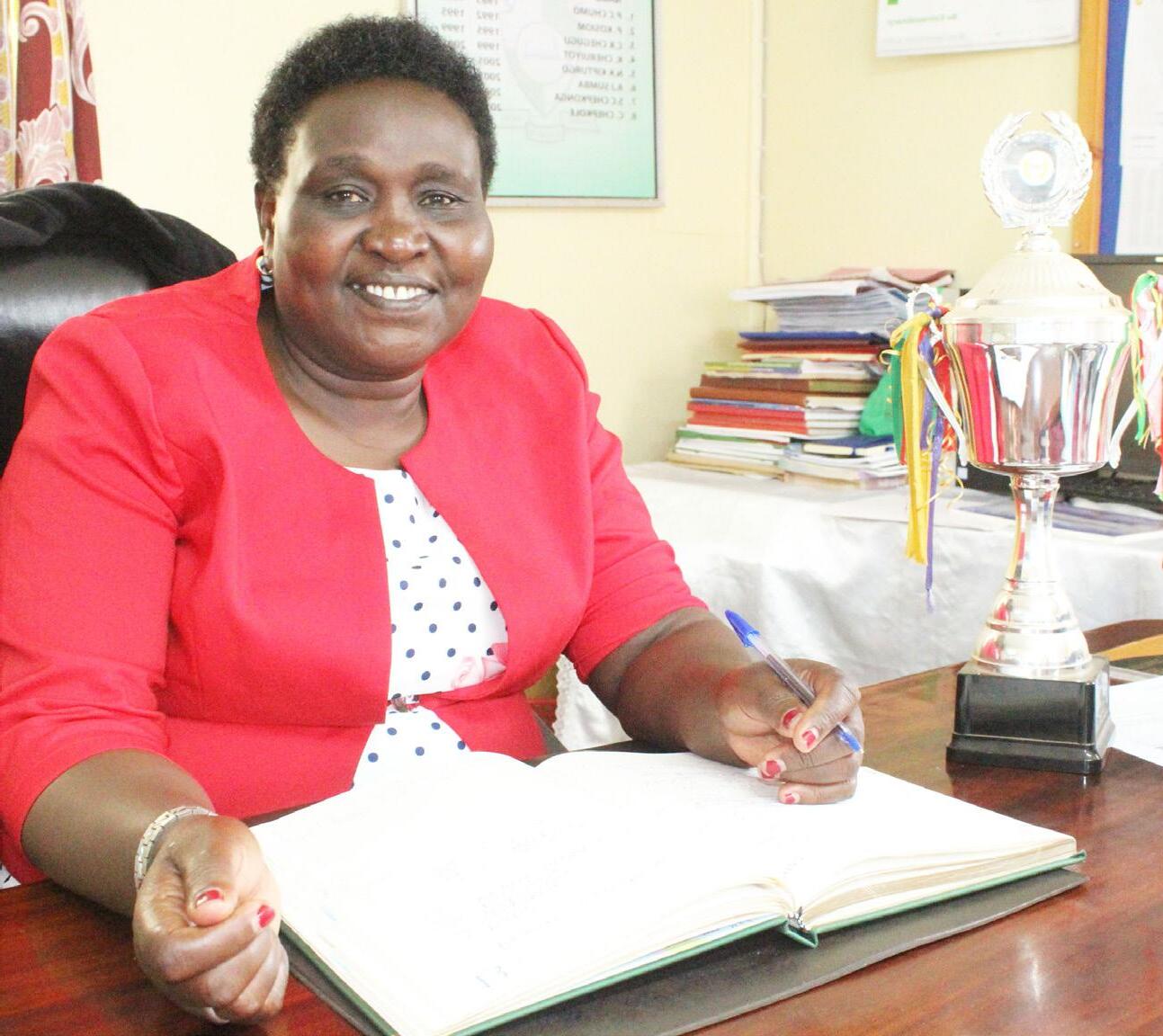
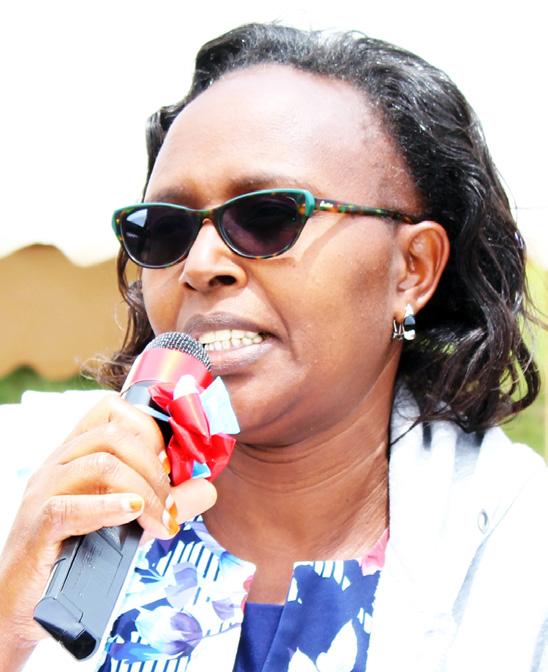

On infrastructure, she said that various partners have come to their aid, and that through the CDF, Ministry of Education and Parents Association (PA) there are newly completed classrooms and plans are underway to construct a modern tuition block.

The PA chairman Mr Silas Cheruiyot thanked the parents for their continued cooperation, encouraging them to continue in that spirit even as they engage their children in meaningful discussion around discipline and hard-work.
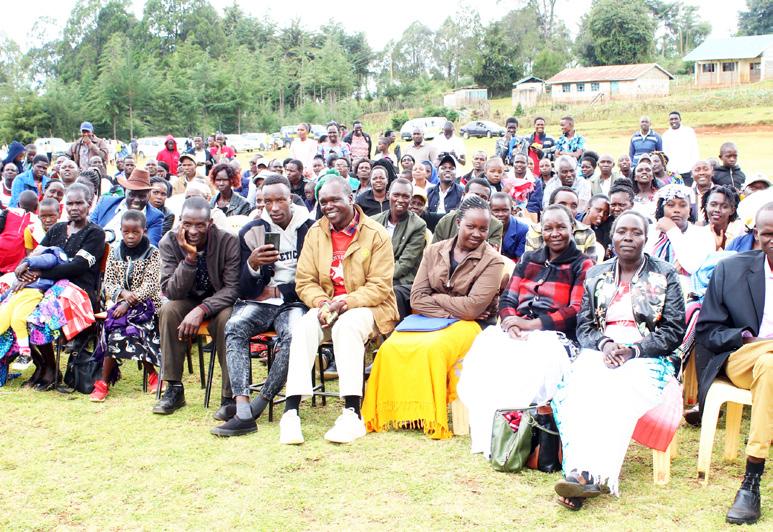
The deputy principal Mrs Rose Maroro, too, praised the girls for their impeccable discipline, acknowledging the role the teachers and strong chaplaincy led by Rev Stephen Sawe played in shaping them.
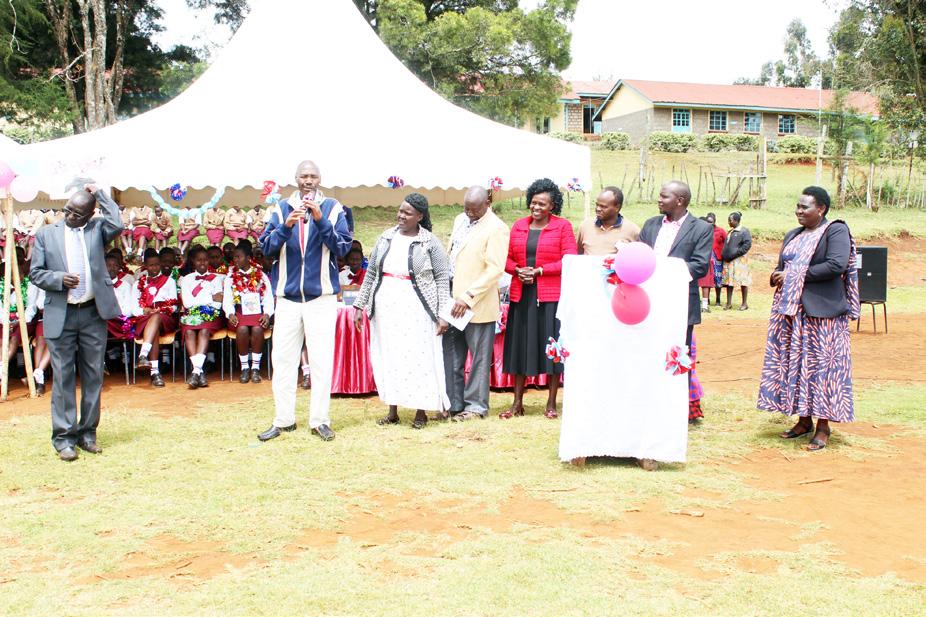
The candidates are well prepared to tackle the final exam and we advise them to go for the target through continuous revision as they avoid external distractions during KCSE period.
PrincipalChristine Chepkole, Principal
FAWE unveils programme to curb teenage pregnancies, early marriages
By Tony WafulaBungoma county is among the 20 counties set to reap big from the Imarisha Msichana programme that will be run by the Forum for African Women Educationalists (FAWE) in partnership with county governments, education stakeholders, Civil Society Organisations(CSOs), the security team and counties health department.
Speaking during the launch of the two-year programme, the Programmes Coordinator Joan Ireri revealed that the initiative aims to address and reduce teenage pregnancies and early marriages in the 20 counties.
She added that the programme aims to engage all stakeholders to ensure school going girls are free and safe.
“This programme targets regions that have recorded high numbers of teenage pregnancies. Bungoma County registered over 6,000 cases of teenage pregnancies during the Covid-19 lockdowns,” she said.
She noted that FAWE aims to frequently engage with the various stakeholders to ensure the high numbers are brought down to pave way for an African girl to access education.
“It’s very sad to see how girls are being harassed and defiled. That is what moved us to decide to spend two full years to engage and partner with all actors to address the menace,” she said.
Ireri noted that before the pro-
BUSIA
Joan Ireri, FAWE Programmes Coordinatorgramme commences, experts will conduct studies in the grassroots to establish the real number of teenage pregnancies and early marriage cases in the twenty counties.
“We need enough support from our partners. We have come here to work and change the story, we don’t want to hear and see Bungoma hit headlines in relation to the bad history of teenage pregnancies,” she said.
The coordinator said FAWE will seek stakeholders’ inputs and will inform them of their findings.
KNUT Busia branch plans polls to replace outgoing officials
By Charles OumaKenya National Union of Teachers (KNUT), Busia branch, is set to hold elections after two seats fell vacant following the appointment of some officials to the County government.
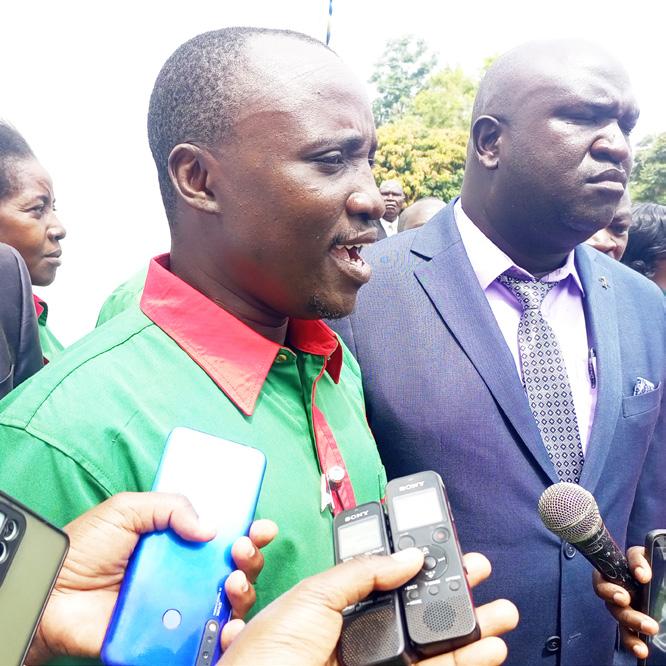
Branch chairperson Paul Ekwenye, who also doubles up as the Western region chairperson, and Teso branch Executive Secretary Omuse Olakachuna, were last week appointed County Executive Committee Members (CECMs).
Announcing the appointments, Governor Paul Otuoma said Ekwenye will be the CECM for Sports, Culture and Youth Affairs, while Olakachuna will take the Trade and Industry docket. They were sworn in after the County Assembly adopted the report of the
Over 3OO victims of abuse rescued by humanitarian NGO
By Richard ShichangiMore than 300 women and children across Kakamega County have been rescued from child abuse and wife battering by Kakamega Civil Society Network, an organisation that assists people in distress by offering legal advice
Chiefs, parents warned against settling children defilement cases out of courts
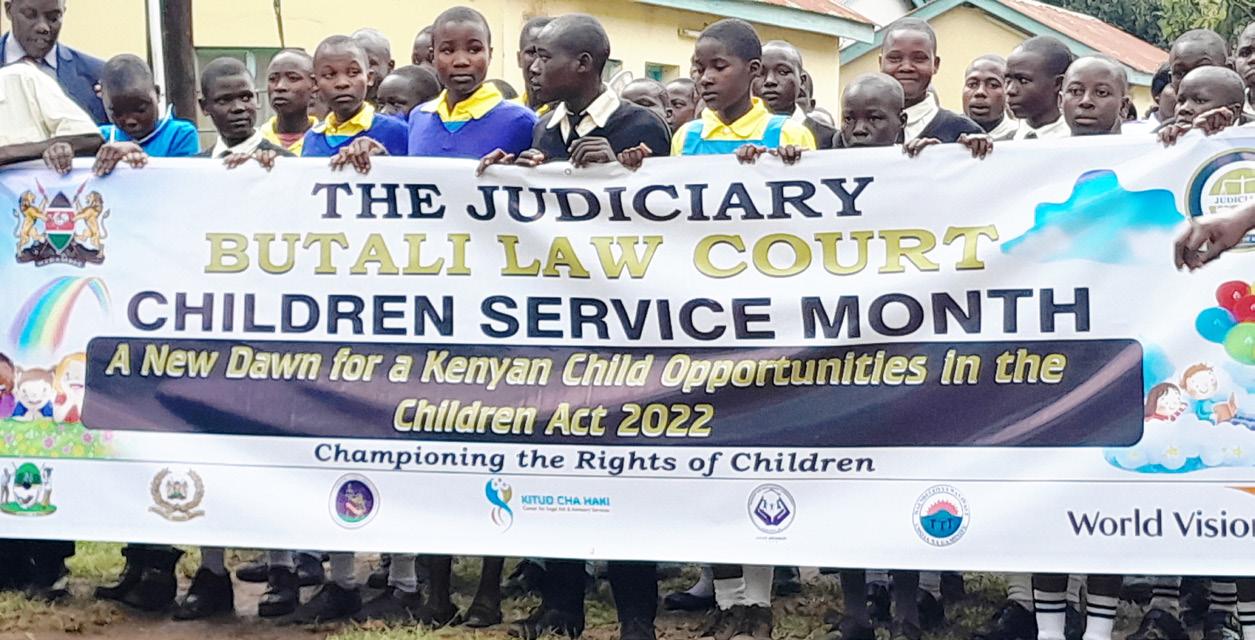 By Andanje Wakhungu
By Andanje Wakhungu
and health referrals.
Speaking to the network members in three workshops at Shianda Mart in Mumias East Sub-county, the network chairman Thomson Mate said that besides advocacy and protection, the organisation also plays a watchdog role by ensuring that the residents get the
“We won’t work independently and that’s the reason we decided to engage all the actors before launching the programme in Bungoma,” she said.
She said that through the programme, guidance and counseling clubs will be set up in schools and journalists will also be trained to enhance their reporting skills on issues dealing with children.
She noted with concern that most teenagers engage in sex to get basic needs due to poverty.
Everlyne Wekesa, Director of Administration in the County Department of Education and Vocational Training, applauded the organisation for including Bungoma on the programme, adding that it will greatly help in addressing the teenage pregnancy and early marriage problem.
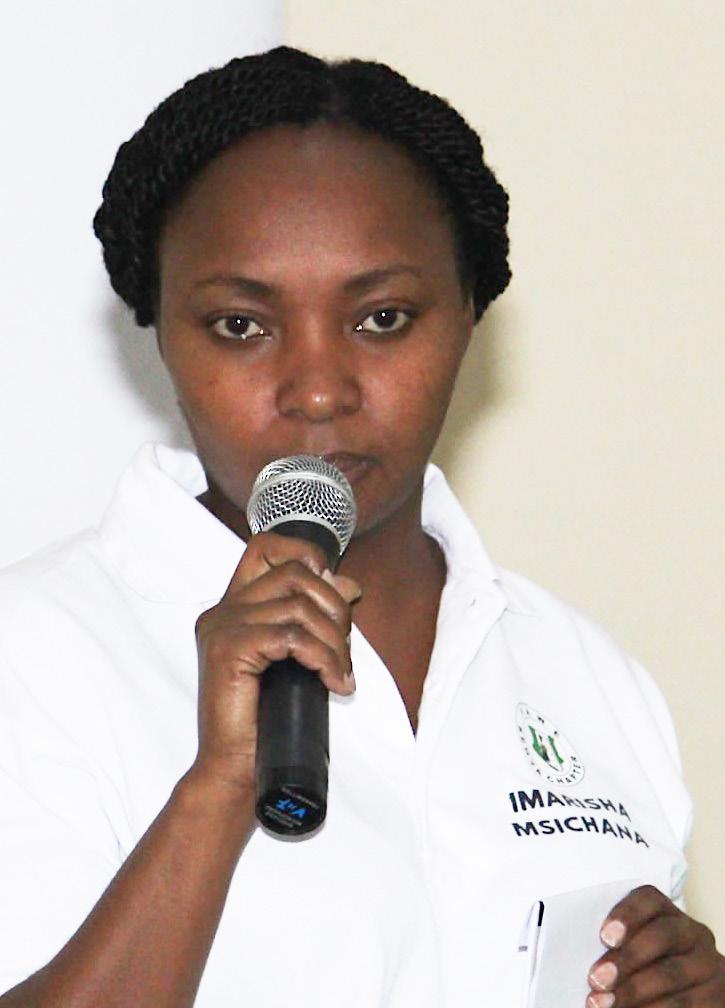
Wekesa affirmed that the programme aims to ensure that the future of the girl child is well taken of, further urging all stakeholders not to forget the boy child.
David Lupao, a Child Protection Officer from Bungoma County Children’s Rights Network (BCCRN), called on parents to report all defilement cases to the police so that the cases are acted upon.
He warned parents against settling such cases in Kangaroo courts.
Other counties set to benefit from the FAWE programme include Busia, Nairobi, Samburu, Kakamega, Elgeyo Marakwet, Nakuru and Meru among others.
Assembly Appointment Committee, which vetted them and seconded their appointment.
Addressing the media shortly after being sworn in, Ekwenye urged teachers eyeing the two posts to conduct peaceful campaigns ahead of the elections, which are likely to be held in December.
"To those who want to take up the seats, we wish them well and appeal to them to conduct peaceful campaigns ahead of the elections," he said.
He thanked the governor for having faith in teachers.
Ekwenye also promised to put in place structures that will help nurture talent among youth in the county, apart from improving sports facilities.
"There are many talents in this county which have not been realized and nurtured. I want to pledge to put in place mechanisms to nurture those talents among our youths. I will also make sure that sports facilities like stadiums are improved,” he said.
best services from public offices.
The Chair noted that the network, which works under the umbrella of Kakamega Capacity Building Organization, took issue with the state of Shianda Health Centre, which has only six nurses and one clinical officer who doubles up as administrator.
This is contrasted with the number of patients per month that averages fifteen thousand.
He said that besides the acute shortage of personnel, the facility equally lacks the necessary drugs and equipment.
Butali Children’s Court Magistrate
Caroline Naliaka Njalale has warned local administration officers against tampering with evidence touching on children’s cases, arguing that they risk jail term if found guilty.
She also warned parents who conceal such cases in favour of the offender with promises of monetary gains of hefty and harsh penalties.
Speaking to the public during the official opening of the children’s court, Njalale warned of stern action against chiefs and their assistants who are notorious of enticing the victim’s siblings to withdraw filed cases and opt for out of court settlements.
She said so many cases of gender and sexual based violence against children have not been forwarded to their courts as the two parties opt to settle such cases out of courts, denting the victims justice.
“The culprit gets to walk away scot free and commits a similar offense to another child within the village,” she said, further reiterating that the courts shall not condone such behavior.
She noted with concern that statistics have also revealed that fathers are notorious sexual offenders and that their families choose not to report such cases for fear of being shamed.
“We want such cases to be forwarded
to us so that we take full action against the culprits,” he said.
Kabras Police OCS James Nyabidi said his team of officers will bring to book any leader or parent found hosting kangaroo courts.
He called on maximum cooperation between the parents and police to restore sanity in the communities.
He also called on the public to divulge any information concerning sexual offences to them as soon as possible for prompt arrest.
Butali Chief Magistrate Sumsang Kipng’elion called on community elders to continue instilling good and upright moral values in the society to ensure that the same are respected and upheld.
Officials from I Care, a local Non-Governmental Organization (NGO) led by John Kariuki, said most children are sexually harassed by close family members.
Kariuki stated that their findings indicate that high levels of poverty, poor housing and foster families play a crucial role in these cases.
He urged all stakeholders to embrace the Children Act of 2003 and the Sexual Offences Act of 2006 which have set a minimum sentence for sexual offenders.
He called for close collaboration with the relevant bodies to ensure justice prevails for the affected children.
Children court
KNUT boss defends CBC as good for country
By Tony WafulaKenya National Union of Teachers
(KNUT) Secretary General Collin Oyuu has said they are not wholly opposed to the Competency-Based Curriculum (CBC), having renounced only its hurried implementation.
“At inception, KNUT rejected the CBC because we wanted everything to be put in place to help in the implementation and adoption of the new curriculum,” Oyuu stated.
He was speaking at the funeral of a former KNUT member in Saboti Constituency of Trans-Nzoia County. The SG argued that the government should invest more in the CBC, praising it as one of the best curricula Kenya has ever had.
The unionist said the new curriculum was at first rejected by KNUT because it was implemented at the wrong time as revealed by their survey in March 2019 that teachers and schools were not fully prepared to dispense it.
He applauded President William
Ruto for forming the education review taskforce that has invited public participation around the country.
He averred that the KNUT view was the general idea of the rest of the country, thus the government should fully fund it.
“What we are asking the government is to fully fund the CBC and remove the burden on parents,” Oyuu said.
Another of their surveys, he said, supported domiciling the junior secondary (JSS) in primary school as secondary schools lacked infrastructure, saying the classrooms built by the government were already occupied due to the 100 per cent transition.
He added that he is determined to initiate many reforms in the education sector. He also said teachers who were affected by delocalization will go back to their former working stations in January next year.
Oyuu added that KNUT is also focused on working with the Teachers Service Commission (TSC) to address teacher promotions.
St Mary’s Mumias
Girls is a Catholic sponsored school that has established itself as a centre of excellence owing to its good performance in national exams.
Despite being on top of its game, the school is not about to relent as it is even aiming higher, to achieve a set target of 9.94, in 2022 KCSE.
Chief Principal Esther Akiso Amukwachi noted that the students are working hard beyond their limits to become the best girls school in Kakamega County.
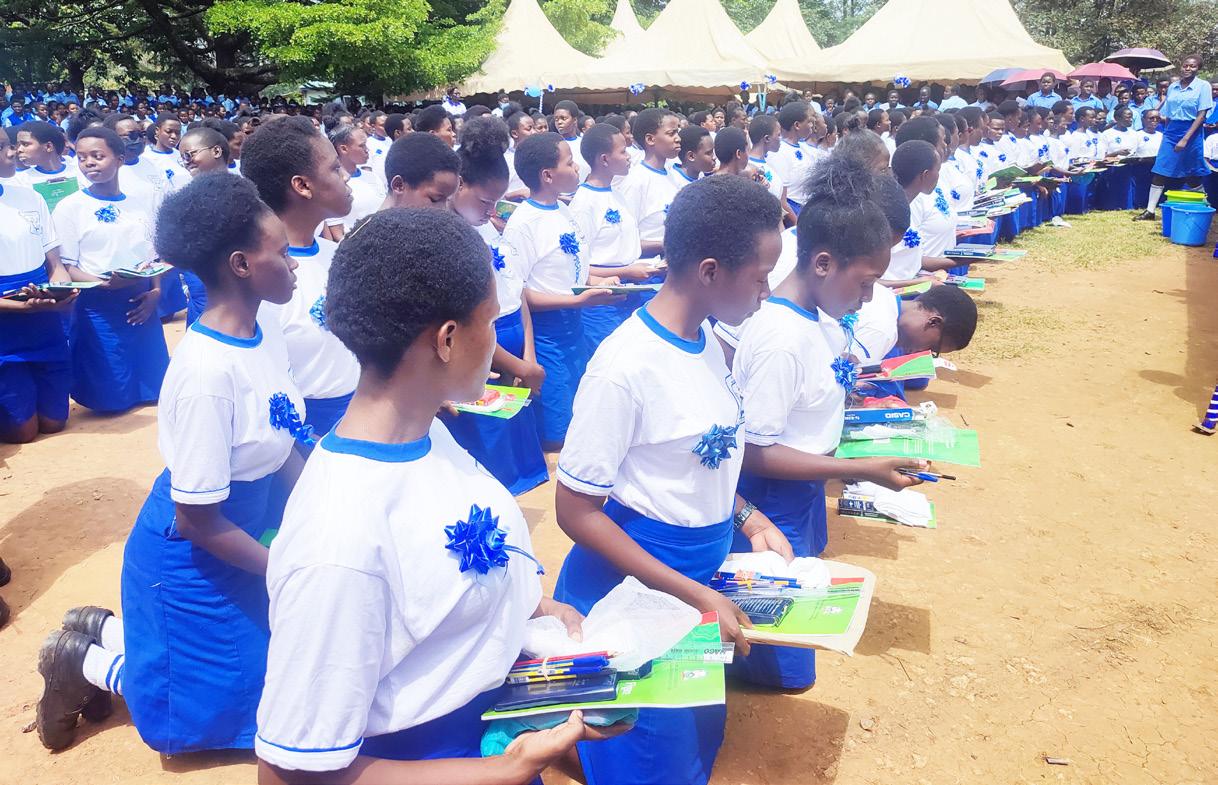
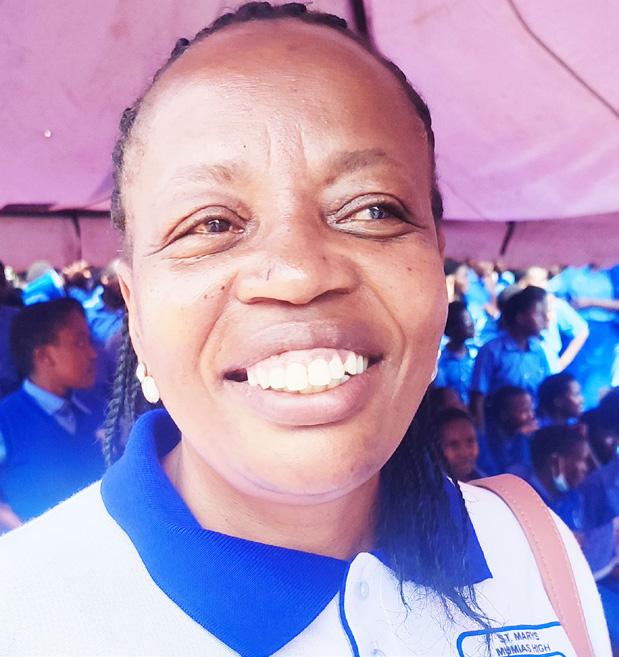
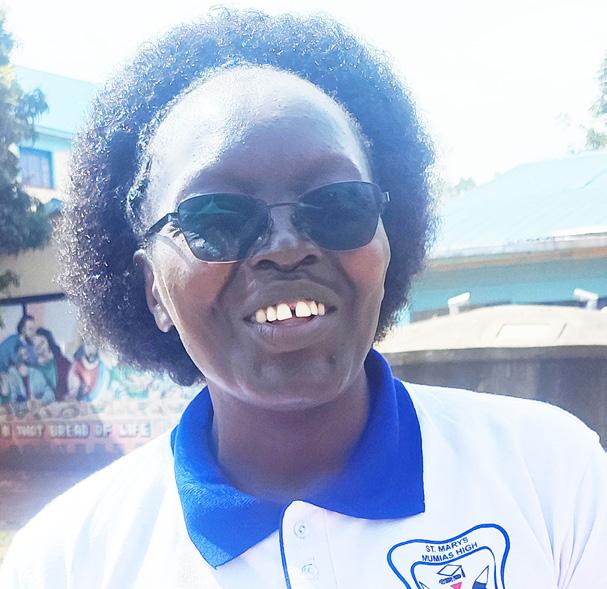
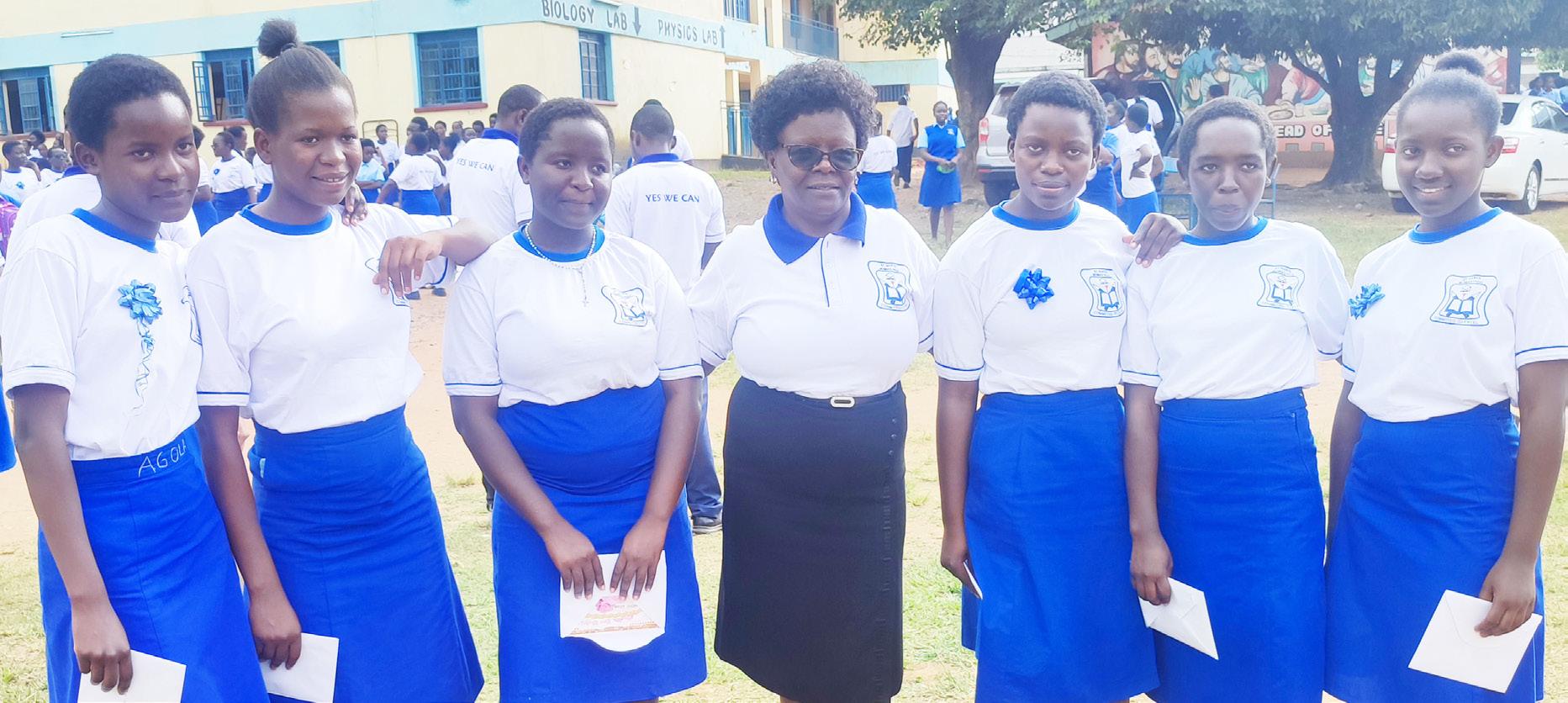
In 2021 KCSE, the school came second after Butere Girls.
Amukwachi noted that the 241 candidates have done several joint exams like deanery exams, BBURAMU 1, 2 and 3 , Mumias West Sub-county exams, and preKCSE exams for adequate preparation and that the candidates did well with promising mean scores.
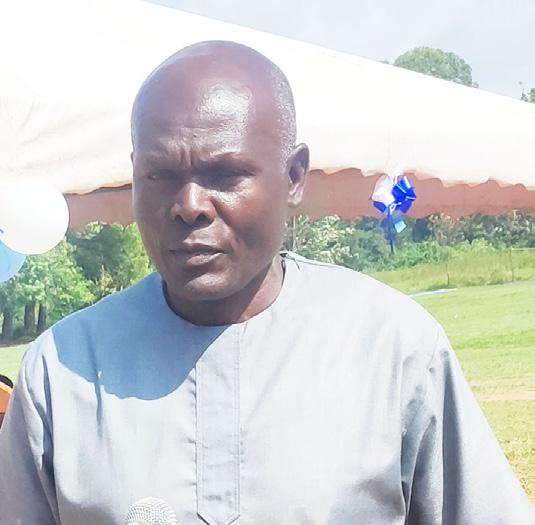
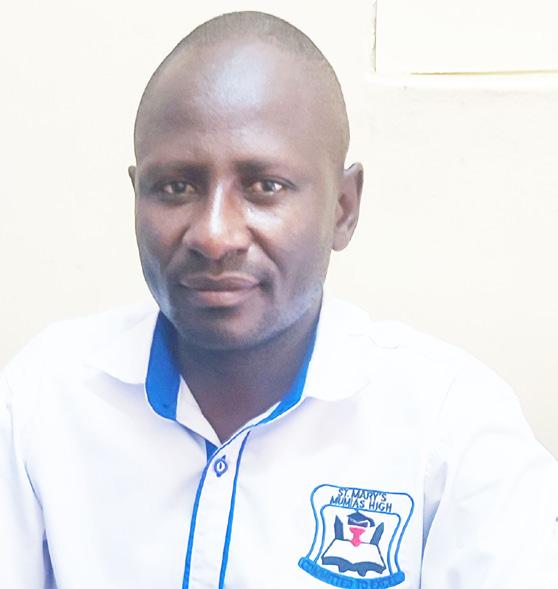
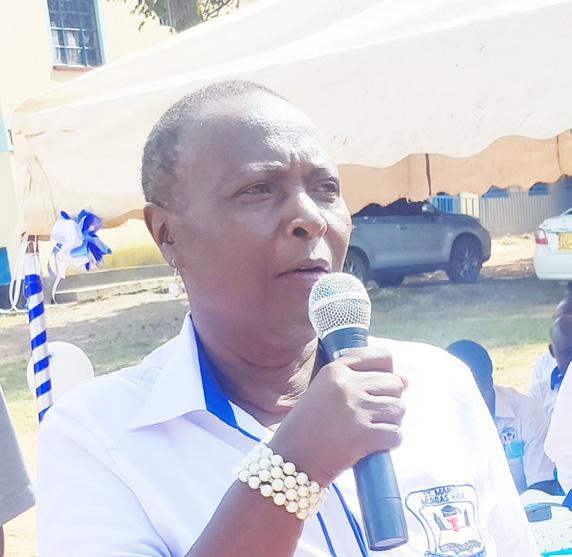
"The Form 4 class has five streams namely: North (Navigators), East (Eagles), West (Established), South (Stars) and Central (Champions) who
FOCUS ON TOP SCHOOLS
St Mary’s Mumias Girls aims to tower higher on the academic pedestal
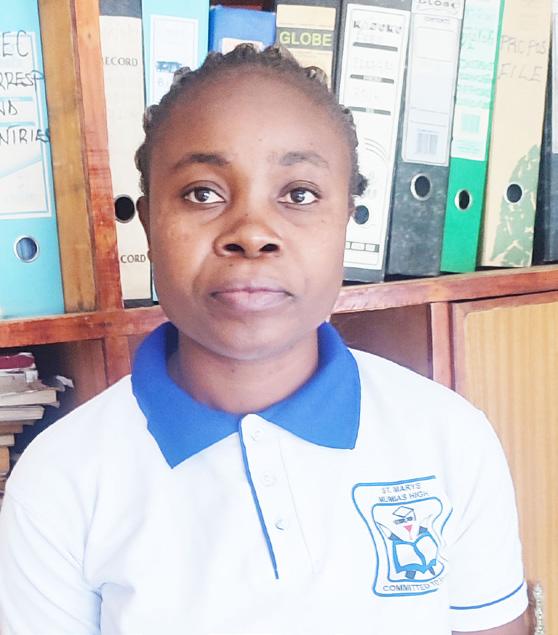

Candidates are prayed for
have sat comparative exams with the junior classes and have emerged victorious, prompting everyone to believe we have done our best," averred the chief principal.
She lauded the committed and united team of teachers who have done their best to ensure the students perform well.
“The teachers report to school as early as 4am and leave at night and through the increased student to teacher contact hours, we believe the students will perform well,” she noted.
She added that the school invites subject experts who take candidates through revision tips and how to tackle tough exams.
“We group the students in families of 10 according to their abilities. Each family has a mother/ father teacher who mentors and guides the students,” she noted, further adding that guidance and counseling sessions conducted every Wednesday have greatly improved the students’ discipline.
She added that the school was established on the virtues of St Mary, which are: faith in God, obedience, purity, chastity, patience, gratitude and humility.
The school has a slogan of PUSH : Pray Until Something Happens.
"Our school motto is ‘Committed to Excellence’. The painstaking measures make us believe that things are working out well," insinuated the chief principal.
Amukwachi noted that the school is registered as a 6-stream institution with 1,564 students. It has 37 TSC teachers and 24 engaged by the BoM.
The chief principal has renovated classes and dormitories. The ablution block has been landscaped with gabros.
There is also the ongoing construction of a 600 capacity dormitory and a perimeter wall for the safety of the students.

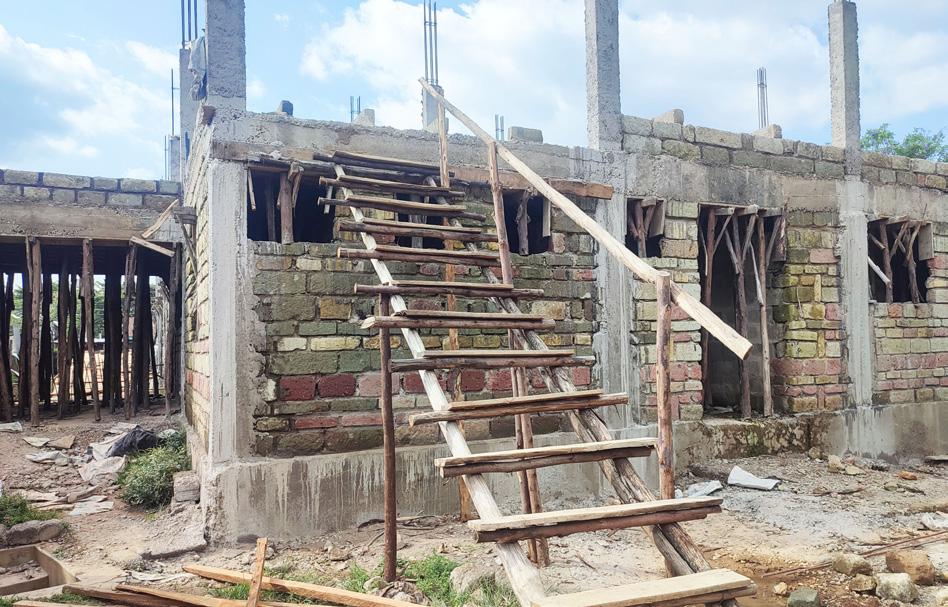
The main challenge the school has is understaffing and inadequate infrastructure to cater for the high number of students.
The school has two deputies: Ms
for administration and
for academics. The form four class principal is Judith
Onyango, the presiding Bishop of Salem Ministries, is an extra-ordinary personality whose compassion has moved her to help destitute children, orphans and widows. What’s more, she never tires as she spreads her love across many counties in the Western region.
Her smile is captivating, never fading from her radiant face. Touched by human suffering around her, she started off with a handful of destitute children who had nowhere to call home, hoping she could offer them a shoulder to lean on.
With that leap of faith, Onyango has now hundreds of less fortunate children under her care, from the small idea that started in the slums of Kisumu town.
She was not born to fortune herself, perhaps the reason for her golden heart. For starters, she dropped out of Pand Pieri Primary School at Standard 7 due to biting poverty.
Born and bred in Nyalenda slums in Kisumu where she lived with her parents and four siblings, she says her parents were forced to separate because her father could not take care of the family needs.
Later, she had to be brought up by her grandparents when her mother could not sustain them because she had no means of livelihood. But it was not to last as things became tough for her grandmother and her life took another turn in 1976.
“From there my life was one of struggle as I tried my hand in menial jobs within Kisumu. I continued to
By Emmanuel GwakoiTeaching special needs children requires special skill and exceptional humane disposition to be able to help these children in their natural growth and development.
Patience, kindness, love, care, and a generous heart are only a few of the attributes that a teacher must possess to be able to bring out the best out of them.
Pamela Bosire, who teaches children with autism at Kisii Primary School in Nyaribari Chache Constituency of Kisii County, perhaps is the archetype and generous example of people with the angling to handle such children.

Extra-ordinary can easily be an understatement, going by her patience and resilience that has lasted over 10 years as she tries to mould autistic children.
According to medical experts, autism is a developmental disability related to brain differentiation that impacts on how a person perceives, communicates, learns, behaves and socialises with others.
Bosire, the Head of the Autism Unit, goes the extra mile to ensure the vulnerable children learn and acquire skills to enable them fit in the society and support their own lives.
“I ensure the children are dropped at the school on time and are returned to their parents or guardians safely in the evening,” she told Education News
For starters, Bosire says parents detail the condition of their children daily before they report to the school
Class 7 dropout turned cleric who has changed lives through education
street children, most of whom had been abandoned by their parents. It crossed her mind that she could not continue brooding over her children while there are others without a home and parents.
She was so moved that she took in six of them to share their single room in Obunga slums. That was the beginning of a new chapter of service and charity, which opened a whole new chapter of life to her.
“With meagre resources and little education, I have managed to start a fully-fledged church ministry with over 26 branches in Kenya and one in Uganda, a children’s home, a secondary and primary school,” she says today with a broad smile.
Bishop Onyango says though it was difficult to feed her now bulging family, she refused to look back; instead started seeking help from government social welfare offices.
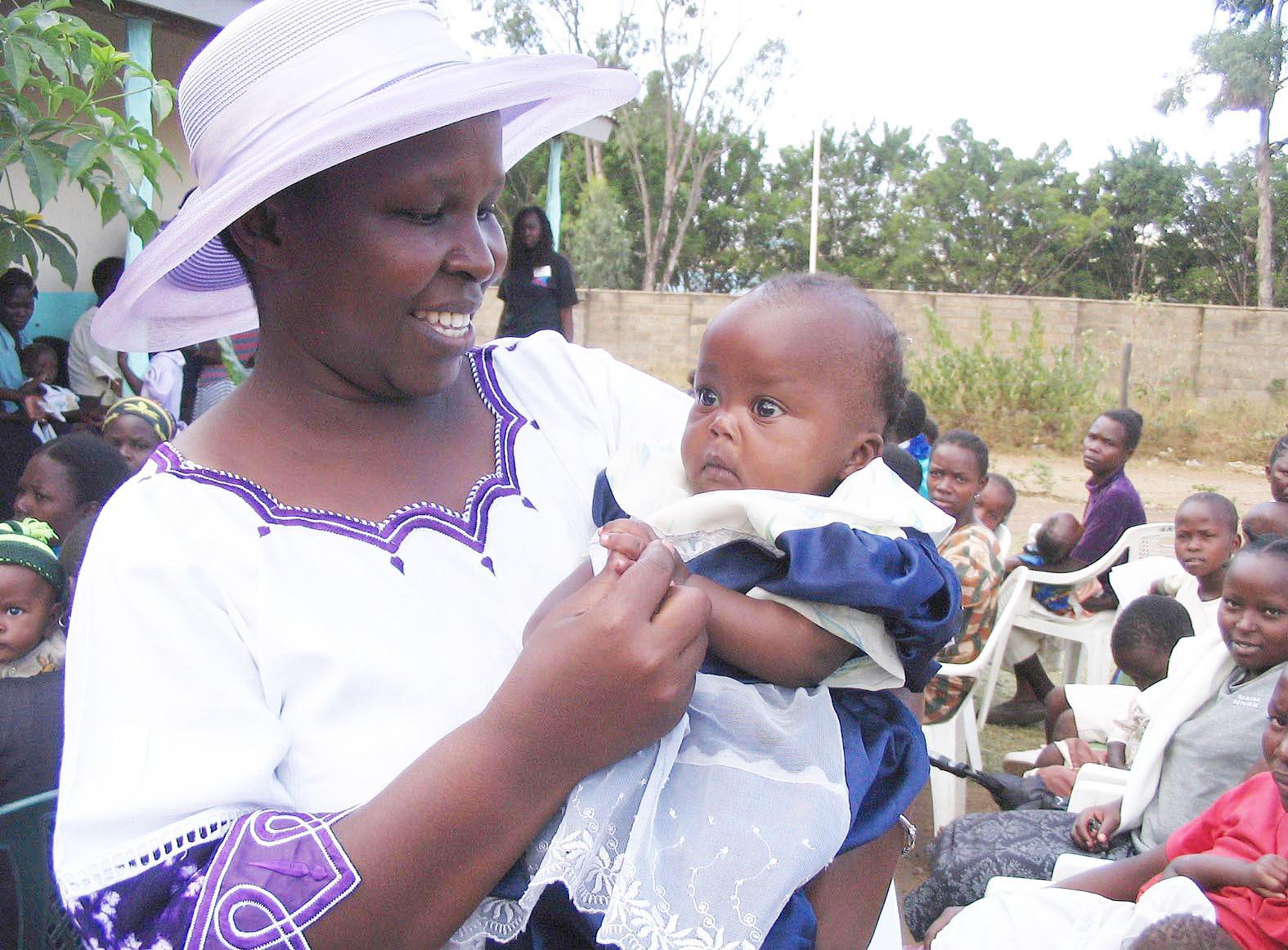
“When I told the state officials that my dream was to start a children’s home, they advised me to register it,” she says.
In 1997, Phoebe established a primary school and a clinic for the children, inspired by the desire to give them food, education, shelter and proper healthcare.
“I felt education would be a longterm investment for them,” she adds.
She later followed up with a secondary school, both of which now have recorded stellar performances in the region.
She says she later established a church ministry where she could take care of their spiritual needs.
However, it has not been easy-going as in 1999, the children’s home suffered a major setback when 17 children died of HIV-related complications.
She explains that currently, Salem Ministry takes care of hundreds of orphans and abandoned children from all over the country.
It has also introduced a widows empowerment programme that equips them with farming and weaving skills so that they can be independent.
‘We give them hybrid seeds and teach them modern farming methods,” she says.
She was ordained by Bishop Maurice Arao in 2010 as a full bishop. She says her church in Kisumu has six priests.
yearn for education and started saving the little I earned to enroll for a series of short courses,” she recalls.
Bishop Onyango says she opted to get married at 17 years when the situation at home grew worse, hoping to secure her life but unfortunately, the marriage did not offer any solace because her husband was in the same hole of poverty as she.
By then she was selling second hand clothes to complement her husband’s scant earnings as a tout.
Hopeless and weak, disillusioned and lost, she decided to turn to Christ and salvation in 1992.
Yet even with her newfound faith, she still felt downtrodden.
Then one day while walking in the streets of Kisumu, she noticed many
The hand that gives never lacks, so from the moment she opened her home to destitute children, funds started flowing in.
She later started Salem Children’s Ministries and, with the help of donors like Feed the Children, the numbers increased tremendously to more than 150.
The home is now a refuge for the disadvantaged in Kisumu.
the children.
“The skills enable the children to take part in income generating activities, contribute to food security and improve their lives,” Bosire explains, pointing out that English and Kiswahili are the only languages of instruction.
It is wrong to discriminate against the children. All of us are candidates of disability and we should respect children or people living with disability since it is not their wish to be so.
Pamela BosireThe learners, notes the teacher, are hyper active - and so teachers take time to discover their interests and abilities in order to support them to reach their full potential.
She says the children are taken through a foundational stage based on their ability (not age), proceed to intermediate, prevocational and vocational levels to acquire more skills to support themselves.
“Teachers focus on pre-vocational ability, talent and interest of the learner. The school has a farm where they plant vegetables and here, teachers discover their interests and consistency,” Bosire explains.
The teacher states that a child can have interest but may lack ability, and
Woman with a passion to serve autistic children
to enable the teachers handle them accordingly. They have to know whether they are sick or have injuries so that they can support them in the course of learning.
And they are perpetually prone to
injury, being reckless in every situation as they go through life.
She says the children are taught skills in farming, making necklaces and other artifacts, cooking, and life skills. The craft is eventually bought by teachers and the community to support
vice versa, emphasizing they have a short attention span and, often, teachers use peers during learning to enhance their understanding.
She said the children can destroy learning materials and the school needs
Bishop Onyango was feted by a Greek organization for helping the less fortunate in society. So far, her work is felt across Siaya, Homa Bay, Migori, and Busia counties, with networks for aid both nationally and internationally.
She was once the chairperson of Kisumu Town Churches and Bishops Network.
Now aged 49, she has managed to donate 12,000 water filters to several islands of Lake Victoria worth over 50 million shillings.
a lot of diversified materials to replace them for smooth learning.
“As of now, the school has 24 pupils; 11 girls and 13 boys. Two of our children are in vocational institutions learning various skills and I urge the community to empathize with and support them exploit their potential,” she said.
She added: “It is wrong to discriminate against the children. All of us are candidates of disability and we should respect children or people living with disability since it is not their wish to be so.”
The school has four teachers. Parents support the unit’s feeding programme and sometimes wellwishers chip in to assist the children, most of whom come from poor families.
The less fortunate are under homebased care, while others have health challenges and cannot be ferried to school, thus requiring teachers to visit and support them from their home bases.
“We have two orphaned autistic siblings. Teachers sometimes raise funds to support the family with food and other items. I urge well-wishers to support the unit and such poor families,” Bosire pleaded.
She operates under the overall school head teacher Grace Nyamweya, who commended the national government for improving institution’s infrastructure, noting that it has enhanced teaching and learning.
Nyamweya is the first female to head the school. It was started in 1956 by the Asian community in the region, who handed it over to the District Education Board (DEB).
More than 8,000 students have received full scholarship to pursue secondary school education, thanks to the Kenya Secondary School Education Improvement Projects (SEQIP).
Beneficiaries are students from Form One to Form Four in the project initiated in 2017 and ends in 2023.
The Ministry of Education project is being rolled out in 7,852 primary schools and 2,147 secondary schools, targeting 110 sub-counties in 30 counties.
It targets students from Arid and Semi -Arid areas where education standards are relatively low compared to other counties in the country.
SEQIP National Coordinator Jane Mbugua said the project is meant to enable learners in the target areas access education at primary and secondary levels and join various higher education institutions.
Mbugua said this while speaking during capacity building workshop held at ARC Hall, Egerton University and attended by over 300 Teachers Service Commission (TSC) sub-county directors.
She noted that the students were also provided with learning materials, basic needs and pocket money to facilitate their learning in secondary schools.
“The aim of SEQIP is to give Kenyan learners in arid and semi- arid areas an opportunity to get education and succeed in their academic pursuits”, she said.
Mbugua said SEQIP project is also tasked to improve students learning in Science, Mathematics and English in secondary and primary schools.
Over 8,000 needy students benefit from SEQIP scholarship
In primary schools the programme targets improvement of Science, Mathematics and English subjects, especially in class seven and eight.
In secondary schools, it targets improvement of Biology, Physics, Chemistry, Mathematics and English subjects.
She stated that 4,329,057 text books were distributed to 600,000 students in 2,147 secondary schools in the targeted areas.
“We distributed the text books for Chemistry, Biology, Physics, Mathematics and English for Form One to Form Four in secondary schools to improve performance of those subjects in examinations,” said Mbugua.
Over 600,000 learners in primary schools received 2,254,782 exercise books for English, Science and Mathematics in class seven and eight.
The text books which were distributed through Ministry of Education and Kenya Institute of Curriculum Development were meant to improve student, book ratio to 1:1 and also enhance performance in Science, English and Mathematics and also to smoothen learners’ transition from primary school to secondary school.
Before the initiation of the SEQIP Programme, Mbugua regretted that many learners dropped out of school
State urged to do more to protect children from harm
and majority of them were unable to join secondary schools.
“We also aim at improving the transition from primary to secondary schools in the 110 sub-counties whose education standards were so low, high school dropout was witnessed, and there was low transition from primary to secondary schools.
Besides, the targeted areas also performed poorly in Sciences, Mathematics and English which are key subjects in our basic education”, she explained.
Mbugua also indicated that 2,145 learners in special need education institutions received learning devices.
“We have distributed 774 devices
She noted that over 50 per cent children have experienced one of these fears in their daily lives according to the 2019 National Violence Against the Child Survey report.
Prime Cabinet Secretary Musalia Mudavadi who represented President William Ruto at the event, said access to internet in schools remains a necessity to impart digital literacy to children so as to prepare them for the workplace and the future ahead.
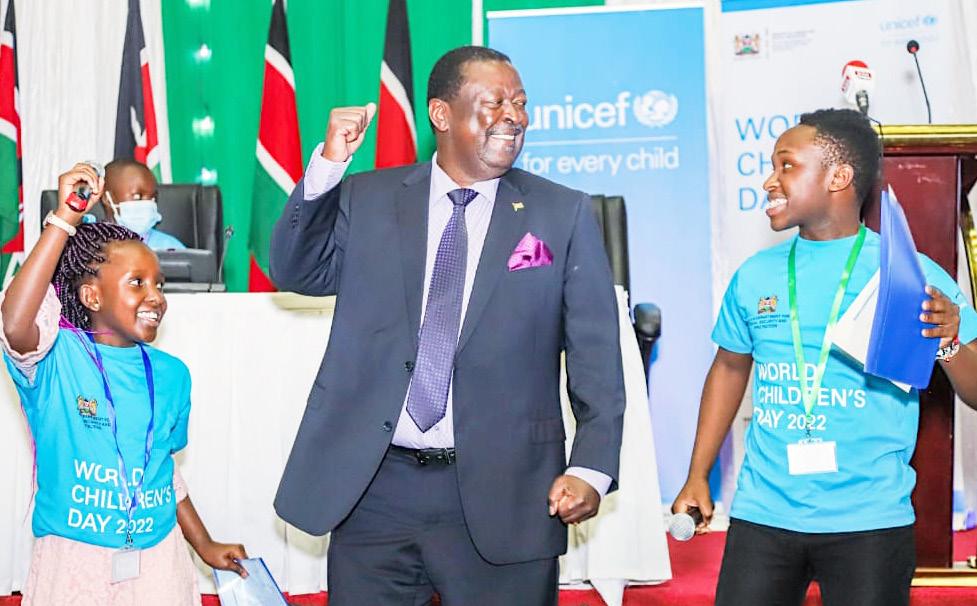
He said that the government is working in partnership with Global and Innovation Gateway for All to ensure internet is accessible in all primary schools by 2030.
“Over 14,000 children have benefitted from the initiative which was introduced in 43 schools in our country,” Mudavadi reported.
He also urged police officers to handle children matters as provided in the 2022 children’s Act.
Nairobi Woman Rep, Esther Passaris called on the government to ensure that there is fair and equal distribution of resources to all public institutions, noting that items such as sanitary towels should be dished out to all girls.
By Mutuvi JanetThe government and other stakeholders have been challenged to build a “culture of safety” in which children are protected from violence, exploitation, abuse, and neglect.
Nairobi County Kenya Children’s Assembly Governor Agnes Mwendwa said the government has a duty to end all forms of discrimination affecting children.
“Children should be protected from abuse, cyber bulling, online sexual exploitation, child labour, Female Genital Mutilation (FGM), early marriages and discrimination for them to have a smooth stay,” she said.
Mwendwa spoke on behalf of all children during the celebrations to mark this year’s World Children’s Day which took
place at Kenyatta International Convection Centre (KICC) in Nairobi.
She said children should also be allowed to give their views concerning matters that they are involved in.
Calls for protection of children dominated talks during the global event whose theme was “Equality and Inclusion for Every Child”.
The children's ambassador also called on other stakeholders including non-governmental organisations, media, faithbased organisations and members of local communities to work with the government to protect children.
Mwendwa identified other challenges that children face as; difficulties in accessing free basic education, violence, inadequate safe drinking water, electricity connection and internet access.
“The vice of discrimination should be eradicated. Students from faith-based organisation and community schools should be considered in the initiative of distributing sanitary towels,” she added.
Mara Moja Transport Chief executive Ronald Mahondo addressed the issue of safe, affordable and accessible public school transport to children.
He noted that children have being undergoing difficult times due to lack of transport, adding that most students are forced to walk over long distances before they reach school.
“This has led to poor performance in many institutions and also absenteeism. Due to the long distances to school it has forced some of the students to drop out hence hindering the academic journey,” Mahondo added.
Secondary school students during a KCSE exam paper. SEQIP project has boosted learning through provision of facilities. File Photo

to hearing impaired learners, 1,000 devices to Visually impaired learners and 371 devices to physically disabled learners ,” said Mbugua.
The SEQIP Project have distributed 10,771 brail textbooks and also printed and distributed 4,2547 text books in special schools in the country through the effort of Ministry of Education and Kenya Institute of Curriculum Development.
Over 17,000 teachers have been employed in primary schools and 8,500 employed in secondary schools in the targeted areas through the programme to address teacher shortage in the targeted areas.
This was aimed at improving quality of teaching and enhance teaching professional development through the TSC and CEMASTEA,” she said.
Before the programme, there was shortage of teachers in the affected areas that saw learners underperform especially in Science, Mathematics and English in Primary school.
Physics, Biology, Chemistry, Mathematics and English were poorly performed in Secondary schools.
Besides, 7,891 teachers from 7,852 primary and secondary schools have been trained as gender champions to advocate for social support and gender sensitization programmes.
The project also aimed at enabling girls who face a number of barriers such as early pregnancy and early marriages leading to school drop-outs access education.
Child labour and drug abuse are among challenges facing the boy child in these regions.
In an effort to help retain girls in schools, she said, 1,478,135 sanitary towels were distributed to girls in the second and third year of the implementation of the project.
Hunger bites harder as children collapse in school
By Obegi Malack obegimalack@gmail.comKajiado County Deputy Governor Martin Moshisho has said the ongoing drought has affected most learners in the county to the point that they collapse in school because of acute hunger.
Moshisho, who was speaking in his office after flagging off food and sanitary towel donations from Sawaina Foundation, said schools are shutting down as absenteeism had increased.
The founder Zipporah Sawaina said the group had collected food and other stuff from well-wishers and friends who have witnessed firsthand the suffering of people in Kajiado County.
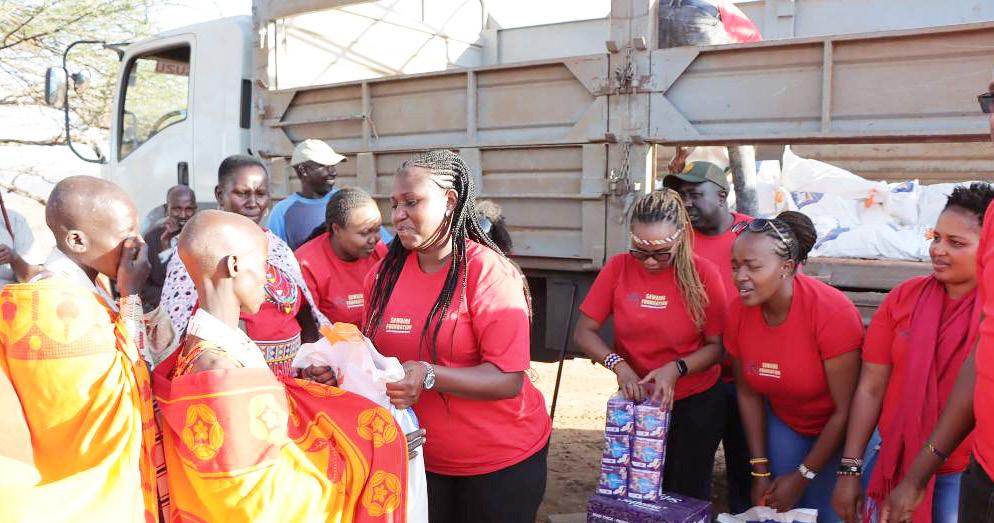
“The drought situation is getting worse by the day. I thank friends and well-wishers who have supported
us,” she said. She promised to offer long term solutions by educating the community on the importance of planting trees.
Sawaina, a native, said she has seen her community suffer for a long time due to drought, and challenged the government to provide locals with water.
Dr Jane Saoli, medical officer at Ngong Sub-county Hospital, who is a member of the foundation, pointed out that apart from food distribution, they also taught young girls the demerits of teenage pregnancies and early marriages.
Another member Charity Silantoi called for more support for the community, at the same time encouraging the community to invest in crop farming since land for livestock keeping is declining.
RIFT VALLEY RIFT VALLEY
NAROK BOMET LAIKIPIA
By Geoffrey Ole KetereEducation stakeholders in Narok County will conduct a one-month Rapid Result Initiative (RRI) with an aim of arresting and prosecuting suspects of defilement.
This is after it emerged that about 741 school-going girls in the county are pregnant, according to data from Ministry of Education.
The decision was reached during a consultative meeting that was chaired by the County Commissioner Isaac Masinde and attended by eight Deputy County Commissioners, County Director of Education and County Director of Gender.
Also in attendance was a senior counsel from the Office of Public Prosecution, County Police Commander, representatives from the Judiciary, County Director of Health, County Children Officer and County Information Officer.
County Education Director Jane Njogu said 332 girls are pregnant in primary schools while another 409 below the age of 18 years are pregnant in secondary schools.
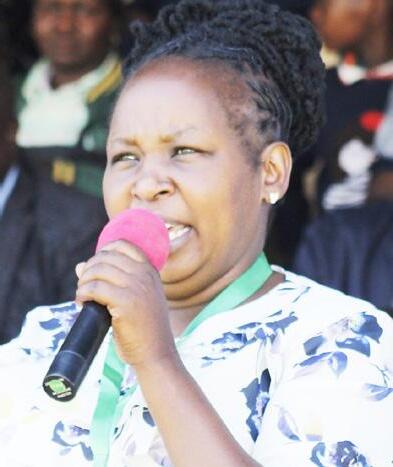
She added that Narok South was leading in girl pregnancy at 149 girls, followed by Narok Central at 140 while Narok West Sub-county had 124 pregnant learners.
Other sub-counties affected are Trans Mara West, 81, Narok North, 60, Narok East, 66, Trans Mara South, 67, and Trans Mara East Sub-county has the lowest at 54.
“The problem with our society I believe is with the culture that allows girls to engage in sex after they undergo Female Genital Mutilation (FGM),” said Njogu.
She said that some principals are not willing to disclose the number of pregnant girls in their school and instead connive with the
By Obegi Malack obegimalack@gmail.comKajiado County data shows that prevalence of malnutrition is 10 per cent higher than the national figure of 4 per cent, aggravated by a stunting level of 25.3 per cent that has been blamed on drought and inadequate food supply.
The statistics were issued by Alex Kilouwa, County Executive Committee Member (CECM) in charge of health during an event marking Prematurity Day in Ongata Rongai Sub-County Hospital.
The Kajiado County statistics also show that between the months of May to October 2022, a total of 887 pre-term births were recorded.
The officer said global statistics show that about one in 10 of all babies are preterm-born.
This year’s World Prematurity Day theme was: “A parent’s embrace: a powerful therapy. Enable skin-to-skin contact from the moment of birth”.
“We are raising awareness that skinto-skin contact establishes the basis for the best development. It promotes the onset of breastfeeding and a healthy intestinal flora,” he said.
Kalouwa said preventing deaths among babies born too soon is a public health priority. Nearly 85 per cent of preterm babies are born between 32 and 37 weeks of gestation and most of them do not need intensive care to survive.
741 school girls are pregnant in Narok County
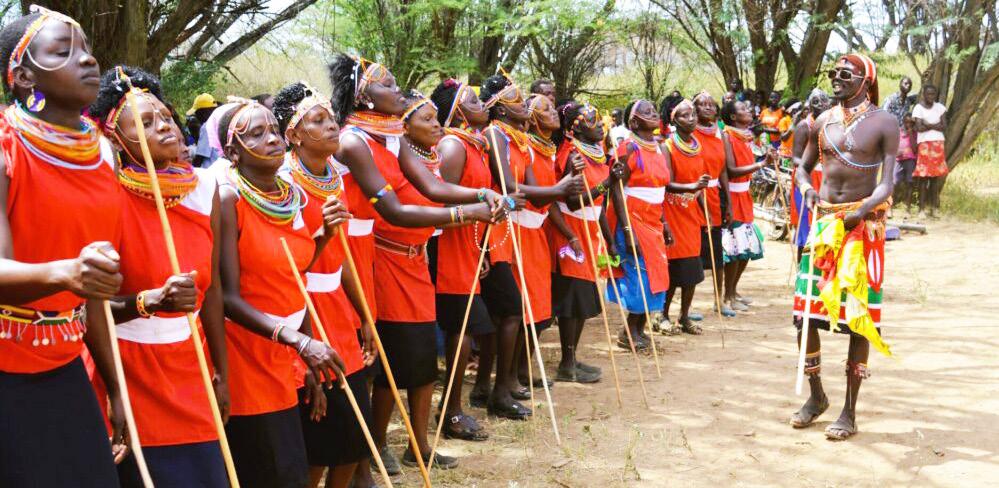
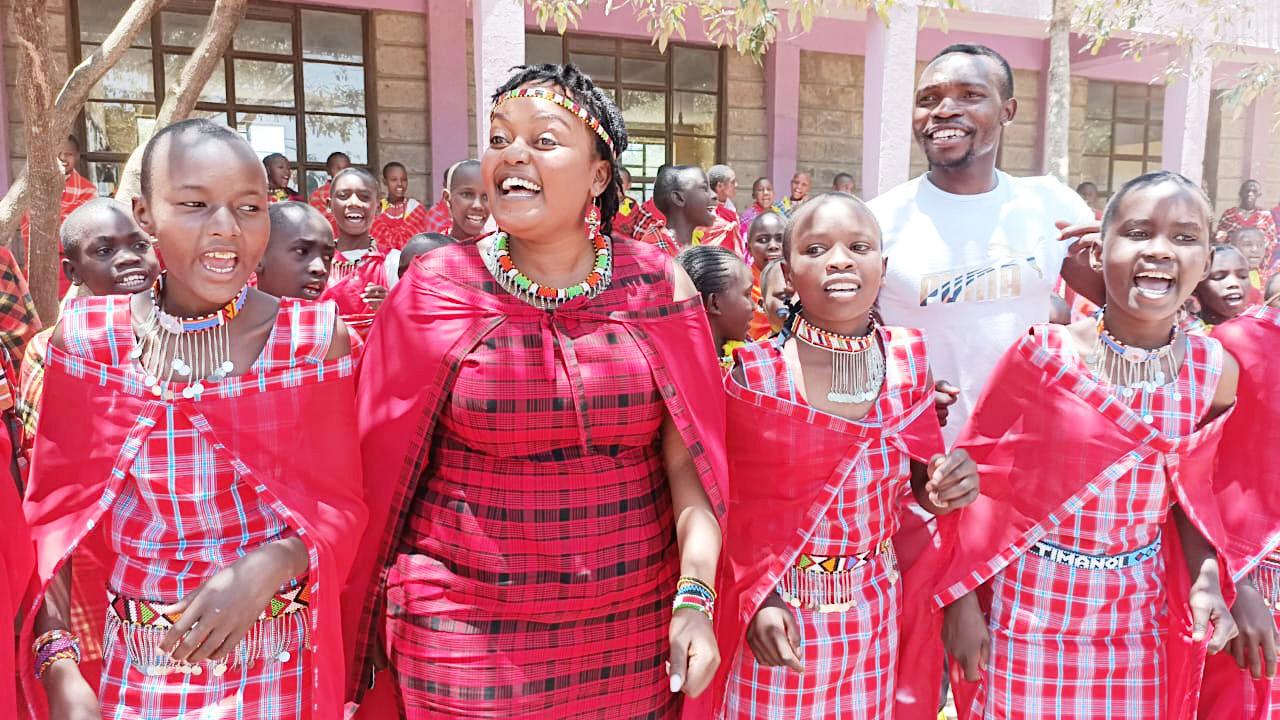
Bomet unveils plan to protect school-age children from abuse
By Geoffrey Ole KetereBomet County Government has formed a technical committee to create awareness on sexual and gender-based violence (SGBV) and ensure achievement of high-quality, inclusive, and equitable education for all children.
Governor Hillary Barchok said he is still perturbed by the recent case of 10-year old Shariffa Chepng’etich who was molested by a close family member.
Condemning the incident, Barchok said such barbaric acts do not have a place in society. He called upon the security forces to apprehend the culprit and the judiciary to expedite justice for the family of the young girl.
59 more graduate under Laikipia’s Ujuzi Manyattani training programme
atrocity from the very people entrusted to take care of them,” said Barchok.
He disclosed that the county is currently assessing health facilities, mapping out rescue centres and training service providers on prevention, response and management of gender-based violence.
He admitted that there are several cases of sexual and gender –based violence, which are becoming a thorny issue in the county.
He added that the trend of SGBV in Bomet is worrying and needs urgent intervention before it boils over.
“I call for stringent legislation to curb such societal vices. Bomet has registered a five per cent increase in SGBV compared to 8.3 per cent at the national level,” he said.
parents to hide the men responsible for the pregnancies. Narok County Health Director Francis Kiio said about 900 girls visit various health facilities in the county for their first antenatal clinics every month.
“This means there are 900 new cases of girls aged below 18 years every month. Some of these girls are still in school while others have dropped,” he said.
Masinde directed the education department to champion the creation of guidance and counseling sessions in all schools where the students will be taken through thorough sensitisation programmes.
“The number could be more as we believe many cases are not reported. This is very scary and we all have to bring our efforts together to eradicate girl
pregnancy,” he said.
At the same time, the stakeholders raised concerns over many cases where the minors are impregnated by their fellow minors, hence weakening the case in courts of law.
“We must start engaging the school principals and head teachers closely so that they too can know they have a responsibility of guiding the young children on sexual matters,” Masinde said.
Already 66 people have been remanded while 90 other people have been convicted by the courts for defilement in the county.
In the year 2014, Narok was named by Kenya Health Demographic Survey as the leading county with teenage pregnancy at 40 per cent against the national average of 18 per cent.
Alarming rates of malnutrition in Kajiado blamed on drought
The young girl was buried at their home in Sabaiyan area of Bomet Central Sub-county.
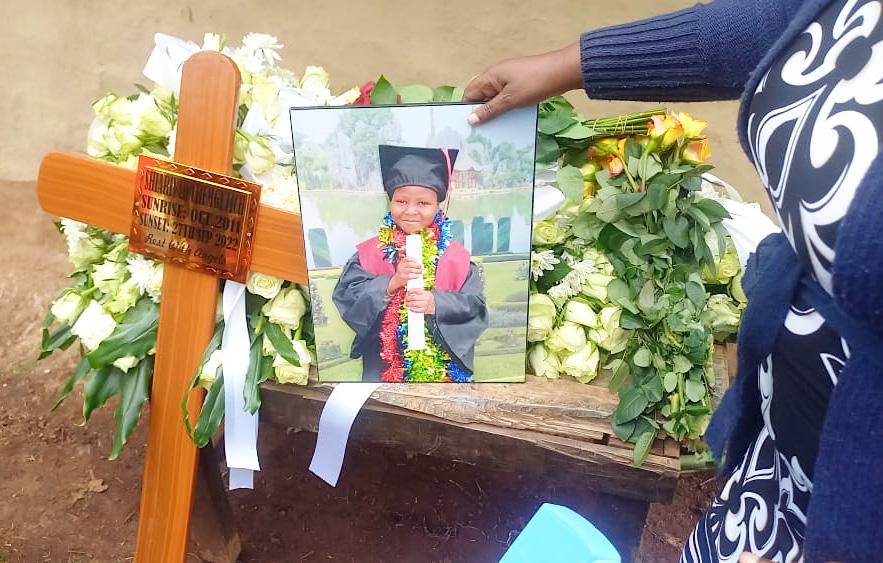
It is reported that the girl developed kidney problems after she was defiled several times by one of the family members when she was four years old.
“No child should undergo such
By our correspondentFifty-nine youth and women have graduated from Ujuzi Manyattani Vocational Training, a programme that seeks to empower vulnerable groups in Laikipia County.
This brings the total number of those who have undergone the training to 605 since its inception in 2019.
They were all from Ruko Conservancy, having taken a period of three months to acquire some technical skills that include tailoring and dressmaking, hairdressing and beauty therapy, and motorcycle repair and maintenance.
Government urged to accelerate consolidation of education funds
By Benedict Ng’etichThe county government has prioritized some key interventions in various health facilities, including counseling on healthy diet, optimal nutrition, and tobacco and substance education.
The CECM also launched this year’s Malezi Bora week, which is an initiative implemented nationally as a strategy to accelerate the utilisation of maternal and child health and nutrition services of-
fered in county health facilities.
As a preventive tool, families and communities are encouraged to practice measures such as ensuring that expectant mothers attend antenatal clinics, deliver their babies in health facilities, ensure children are taken for immunization, and practice exclusive breast feeding and Vitamin A supplementation to boost their immunity and that of their babies.
The county chief said his administration has formulated SGBV policy, which is now at the Assembly.
Barchok encouraged victims of any form of GBV to come out and speak up, report the cases to the police or contact the county gender and social services officers.
He lauded partners like the Kenya Red Cross Society who are working with his officers to sensitize the public over SGBV.
“So, let us join hands and pass legislation to protect the vulnerable members of the society and preserve the dignity of our girls,” said the county boss.
The vocational model aims to contribute to the Kenyan government’s Vision 2030 that strives to promote job creation for youth and women, as well as deepen industrialization.
“Ujuzi Manyattani has given us an opportunity to earn income through the skills we are taught. I have never gone to school; I have learnt how to make clothes from the tailoring and dressmaking course. It will help me earn income and create employment for other women and youth,” a beneficiary of the pro-
gramme said.
The ceremony was presided over by Douglas Mutugi, Marigat Sub-county Deputy County Commissioner (DCC), Ruko Community Conservancy leaders, community members, Vocational training teachers, and the NRT Trading team.
Ninety per cent of the graduates are semi-illiterate. The fourth graduation saw 30 men and 29 women receive certificates and toolkits to enable them start business ventures.
Ujuzi Manyattani is a vocational training delivery model in which polytechnics place trainers in villages to teach marketable skills.
Jeniffer Putonoi, KWS Deputy County Warden, Baringo County, issues a certificate to Ujuzi Manyattani beneficiary.

By so doing, they are able to learn and integrate with disadvantaged socio-economic groups, particularly those who have not been able to access formal education.
It enables pastoralists to acquire practical vocational skills without disrupting their way of life, where other training facilities are absent.
The training incorporates adult literacy and entrepreneurship skills. Trainers and tools move across villages, conservancies, and counties to provide equal opportunities to all ethnic groups in community conservancies.
Other skills offered include masonry, carpentry, mobile phone repair, welding, plumbing, electrical engineering, tour guiding, and solar installation.
Ujuzi Manyattani Programme has been made possible through the support and funding from the United States Agency for International Development (USAID) through the Local Works Program and the Conservancy Livelihood Fund (CLF).
Technical partners are Kiirua Technical Training Institute and Laikipia North Technical and Vocational College.
NRT Graduands sing as they celebrate during the graduation ceremony.
KUPPET lauds public participation in education reforms
By Enock KipturgutKenya Union of Post Primary Education Teachers (KUPPET) has expressed hope the government will consider information given to the Presidential Working Party on Education Reforms by teachers who are the main implementers of the Competency Based Curriculum (CBC).
The Union’s National Secretary for Tertiary Institutions Sammy Chelimo Chelang’a argued that the good proposals will give the government guidelines on how to review the CBC and other issues affecting the education sector.
Speaking during prayer day for Grade 6 and Standard 8 candidates at Jawabu School in Nakuru, Chelang’a noted that the Union fully supports the taskforce.
He lauded President William Ruto for the initiative, saying it allowed Kenyans to participate in
the decision making process that suits their children. "CBC is not bad. However, how it was handled was wrong,” he said, adding that the government implemented the new curriculum without consulting key stakeholders.
He went on to add that the pioneer Grade 6 candidates are
ready to sit their Kenya Primary School Education Assessment (KPSEA) exams and join junior secondary in January 2023, yet the schools do not have enough classrooms.
“Secondary schools are congested due to the government’s 100 per cent transition policy,” he said.
On delocalisation of teachers, Chelang'a lauded the National Assembly for its move to stop it.
The government has been urged to actualize its campaign promise of consolidating the several education funds into one giant entity.
Addressing the Kericho KUPPET Annual General Meeting held in Kericho town, the branch Executive Secretary Mary Rotich suggested that the government should consolidate the Higher Education Loans Board (HELB), TVET funding and other government scholarships into a fund to be known as the National Skills and Funding Council.
She said the new model should be designed as soon as possible to support needy students in various institutions.
The branch executive also called on the government to hasten the construction of TVETs in the 250 Wards that did not have them and also equip them to the required standards.
She also called for the roll out of the school feeding programme in public schools “to ensure retention of students in institutions and to promote child health.”
She welcomed the idea of a National Open University, whose operationalisation she said
Soy MP supports retention of Grade 7, 8 in primary school
KUPPET Executive Secretary, Kericho Branch, Mary Rotich.will boost access and reduce the cost of university education, besides introducing a paid internship programme for graduates.
Commenting on the controversy surrounding the teachers’ medical cover, Rotich said it had continued to generate lots of displeasure among them.

Some of the issues that must be addressed include lack of proper records, demands by some hospitals for members to pay bills in cash before services are rendered, detention in hospital due to do delay by MINET to authorize discharge, and rejection of bills and admission.
North Rift leaders castigate TSC for poor policies
By Kiplat KaptuyaLeaders from the North Rift region have castigated the Teachers Service Commission (TSC) for its policies like delocalisation, saying they are out to destroy the education sector. They said there was need for reforms in the sector.
West Pokot Governor Simon Kachapin said that delocalisation was used badly and has affected the lives of teachers in the region.
David Kiplagat, By Wasike ElvisHe revealed that many teachers had suffered since the introduction of the policy as they could not bear the challenge of separation from their families.
“Teachers Service Commission rushed to implement the policy without the involvement of teacher Unions,” he said. He went on to add that the plight of teachers and the human face of TSC must be seen during the implementation of policies.
“The family set up is paramount. It's a small unit of the society where we have seen family disintegration because of delocalization," he added.
He called on TSC to consider the issue of teachers’ health, noting that there are some teachers who have conditions which require them to be close to their care givers.
He also urged the Commission to look into the age of teachers before any transfers are made, adding that most teachers have been transferred yet they are close to retirement.
---Chelang'a commended the government for improving Technical and Vocational Education and Training (TVET) centres, adding that it has shifted focus from knowledge-based to skill-based curricula.
Soy Member of Parliament David Kiplagat has supported proposals to have Competency-Based Curriculum (CBC)’s grades 7 and 8 domiciled in primary school since it has more infrastructural facilities.
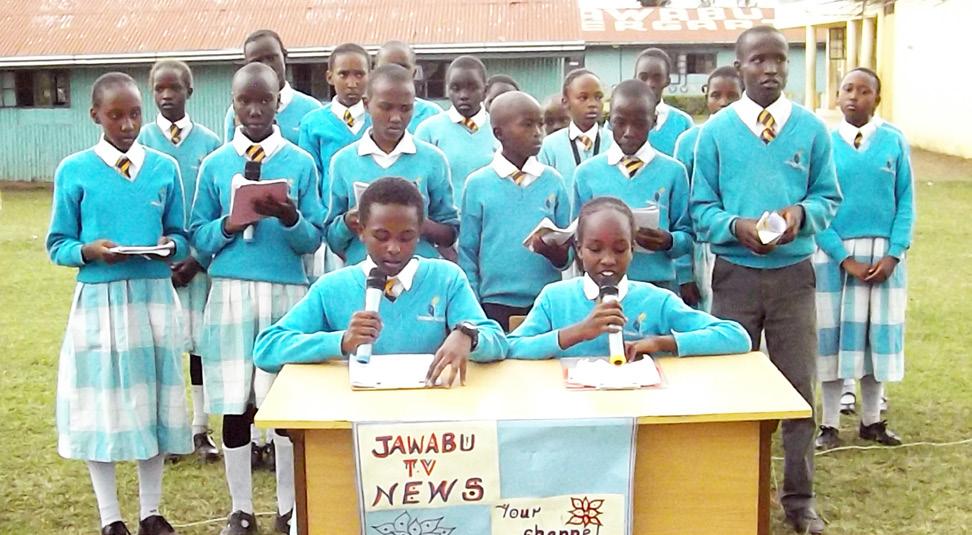

Speaking to the press recently, the legislator said primary schools have enough infrastructure compared to secondary schools, making it easier, convenient and logical for them to continue learning there.
“My views on CBC are that grades 7 and 8 should be domiciled in primary school since there is enough infrastructure. They would lack space were they to proceed to secondary,” he said.
Kiplagat supported the ongoing review process, saying it should focus on reducing the cost burden on parents.
“It is important for the curriculum to be reviewed so as to ease the burden on parents. There is also need for more teachers to be employed for efficiency,” he said.
The Soy legislator further called on youths to join TVET institutions, saying it will help them start businesses.
“I call upon the youth who have recently finished their secondary education to join TVET institutions where they will be impacted with technical skills and knowledge that will help them earn a living,” he said.
“I don’t support delocalisation because it was misused. We want teachers from other counties to come and teach here but it is bad to transfer a teacher just because he is a Pokot. We need nationalisation and not delocalisation,” he said.
Speaking at St Albert Kamito Secondary School during a thanks-giving ceremony after the school took part in East Africa schools championships, Kachapin lauded the sports ministry for reinstating the Football Kenya Federation (FKF).
The sentiments were echoed by Kapenguria MP Samuel Moroto, who said that the ministry should improve education in the area.
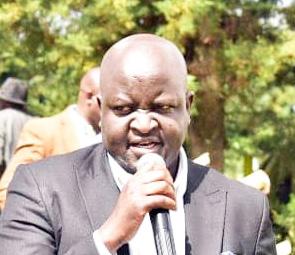
“Delocalisation has become a thorn in the flesh for teachers. If you transfer a principal from a big school and bring them here where there is only a grass thatched house, then life becomes terrible,” he said.
Moroto lauded the Kenya Kwanza government for setting up schools in the area, adding that former regimes discriminated against some areas.
He said the Competency-Based Curriculum [CBC] was good but needs some review.
“It is like the 8.4.4 system which was good but politicised. The junior secondary debate is not practical for young children to stay away from their parents,” he said.
University Academic Staff Union
(UASU) has called for an urgent stakeholders’ meeting to discuss the funding crisis in public universities.
UASU Secretary General Constantine Wasonga said the forum would seek a lasting solution to the impasse, which if left unaddressed would leave higher education on the verge of collapse.
“The financial situation in universities has now reached a crisis level and unless it is addressed immediately, there is imminent collapse of higher education,” Wasonga said.
“UASU calls for an urgent stakeholders’ forum to discuss the funding crisis in public universities with a view to finding a lasting solution,” added the don during a media conference held early November at the Union’s headquarters in Nairobi.
He said public universities no longer meet statutory obligations to Kenya Revenue Authority, National Social Security Fund and National Health Insurance Fund on a regular basis, which is disturbing.
The UASU boss attributed this to limited capitation from the government to public universities, which he said cannot fully support respective institutions’ payroll expenditure.
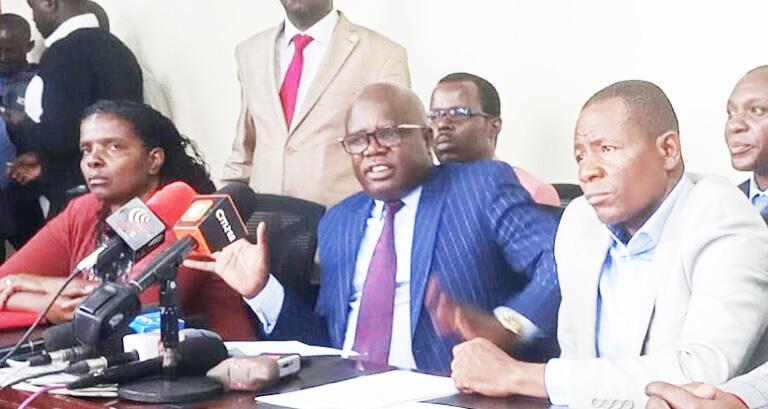
“It cannot also support other recurrent expenditures in terms of operations and maintenance, hence forcing public universities to fall into arrears in remittance of the statutory deductions,” Wasonga said.
The staff, he added, has been grossly affected by the state of affairs since their pension schemes do not receive adequate funding from the sponsoring institutions.
“More often than not, bank loans are not serviced as the contracts provide for, and many employees have been listed by Credit Reference Bureau (CRB) for loan defaulting,” he said.
Wasonga noted that despite the underfunding crisis in public universities, the government has nevertheless continued to allocate funds to private universities to support government-sponsored students even when there is adequate capacity in
Learners resort to eating roots to survive hunger
By John MajauThe hunger crisis in the county has worsened, forcing some school going children in Tigania West sub-county to resort to eating roots of plants to keep hunger at bay. Nkiluthu Primary School
Deputy head teacher Francis Mwingirwa Akwalo noted that he has let children dig out roots as there is no point in sending them home where there is no food.
A UN report has revealed that Kenya is among the 19 countries facing severe drought crisis.
Up to 26 million people are expected to face a crisis or worse levels of food insecurity in Somalia, Southern and Eastern Ethiopia, and Northern and Eastern Kenya.
Fresh optimism as A-level teachers seek help from new regime
UASU calls for crisis meeting to address university funding
budget of Ksh2.73 billion, each student being funded at Ksh44,357. The required budget being Ksh12.104 billion, it implies there was a funding deficit of Ksh9.375 billion.
Using the DUC formula, Universities Fund plans to come up with a fair and acceptable criterion for allocation of funds to universities through developing a criteria for allocating funds to public universities and issuance of conditional grants.
Government capitation to public universities is currently based on the DUC model, which is pegged on the number of undergraduate students registered and the courses they take.
Under the model, the government is expected to cater for 80 per cent of the unit cost while the remaining 20 per cent is to be achieved by students and institutions.
public universities.
He said the government has not been able to provide sufficient and adequate funds through capitation to enable public universities to respond to the high demand promptly and effectively.
As a result, Wasonga said universities have been forced to secure and offer many of their services on credit, claiming almost all public universities have had to run on budget deficits on account of debts to their suppliers and service providers.
He said the exponential growth in student numbers has put heavy strain on facilities and human resources in the universities.
“The universities have had to deal with increased demand for learning spaces as well as more academic staff to cope with the high number of students,” he added.
Previously, UASU National Organising Secretary, who also doubles up as Multimedia University Chapter Secretary Onesmus Maluki, told Education News in an interview that part-time lecturers at Multimedia University (MMU) have not been paid since 2018, terming the move unfair and inhuman since they have bills to pay.
“Part-time lecturers have not been paid since 2018. How do you expect someone who has taught over four years to continue working yet you’ve not paid them? how do they manage their bills?” he wondered. Maluki said part-time lecturers handle many classes as compared to fulltime lecturers.
“Full-time lecturers can only manage a quarter of the classes so the other three-quarters are done by part-time lecturers. Those part-timers have not been
MCA starts mentorship programme for primary schools
By Asa MainaNominated Nyeri
MCA Agnes Wachira has launched a mentorship programme for primary school boys and girls.
Wachira said, through the programme, they will speak to girls on menstrual health and to boys on what to expect as they go through the rite of passage.
She revealed that she realized there is a gap in boys mentorship hence decided to fill it.
Wachira, who spoke to the media at Ngangarithi Primary School in Nyeri town after the programme, said she is expecting to roll out the programme in other schools.
She appealed to father
Agnes Wachira, Nominated MCA
figures in the society to help in mentoring the boy child who are mostly in the danger of indulging in alcohol
and drug abuse, radicalisation and who are sometimes prone to depression.
During the programme, she distributed reusable sanitary towels to the girls while the boys were given boxers, toothpaste and toothbrush each. The students also received flour for lunch during the exam period.
James Kariuki, a clergy from the ACK Church St Peters Cathedral, said they prayed with the pupils and encouraged them to give the forthcoming national exams their best shot.
He said the boy child has been neglected in matters of mentorship hence they have gotten into alcoholism and drug abuse.
He called on the government and the church to turn into mentoring them as well.
paid for years. I also don’t understand how someone is not paid for years and still wake-up to go to work!” he remarked.
According to data from Universities Fund, there have been gaps in the allocation of funds for university education in the country.
For instance, in the 2020/2021 Financial Year, the agency funded a total of 271,446 students who were enrolled in public universities from an approved budget of Ksh41.907 billion; each student being funded at Ksh154,386.
The required budget at 80 per cent Differentiated Unit Cost (DUC) computation was Ksh69.266 billion, which implied that the agency faced a funding deficit of Ksh27.359 billion.
In the same financial year, the agency funded 61,541 students who were enrolled to private universities, with an approved
By Staff ReporterKenya Union of Post Primary Education Teachers (KUPPET) Samburu branch has described the online Teachers’ Performance Appraisal and Development (TPAD) as time consuming venture and urged Teachers Service Commission (TSC) to come up with a tool that is simple and operable.
Speaking during the branch’s first governing assembly at Maralal Youth Polytechnic, the branch Executive Secretary William Lengoyiap noted that the complexity of the teachers’ online appraisal had reduced them to students at night.
“Most of us are married and we need time with our spouses,” said Lengoyiap, adding: “I wish we can have a tool that is less time consuming and give more
Under the formula which was rolled out in Financial Year 2017/18 where the government allocated each academic programme a flat rate of Ksh120,000 per year, all university academic programmes have been grouped into 14 clusters and the cost of teaching each fixed.
Courses in clinical medicine are the most expensive, with a Bachelor’s degree in clinical medicine and dentistry hitting a maximum DUC of Ksh720,000 per year. Basic humanities and social sciences were the least expensive after being allocated a DUC of Ksh144,000 per year.
The cost of academic programmes is determined by the cost of paying the lecturers, equipment needed, laboratories and learning resources, among others.
hezzroy@educationnews.co.ke

Simplify TPAD for convenience, KUPPET says
prominence to the teacher and learner as opposed to the teacher-employer orientation.”
Nevertheless, according to TSC report on completeness of TPAD among teachers in third term of 2021, which was released early 2022, Samburu County was among the most improved counties in terms of teachers who had completed appraisal, rising from 55.92 per cent to 84.67 per cent.
The county had only 273 teachers who had not completed their TPAD while 1,508 fully completed their appraisals.
The report shows that 32 counties had more than 90 per cent TPAD completeness while 14 counties

had between 80 to 89 per cent completion rates. Only Baringo had below 80 per cent.
The KUPPET branch boss maintained that they will continue fighting for teachers to get a good medical cover and to champion for their members’ security in the region.
“There are no two ways about this; we either work in secure areas or we boycott duties and go to safe areas. The right to life supercedes everything,” he said.
The region has been prone to insecurity. A case is when a Baragoi High School teacher was killed in July by unknown gunmen in broad daylight.
Forum to come up with lasting solution to the crisis, which if left unaddressed will leave higher education on the verge of collapse.UASU National Chairperson Grace Nyongesa, Secretary General Constantine Wasonga, National Organising Secretary Onesmus Maluki and other members during the press conference. Photo /Courtesy
